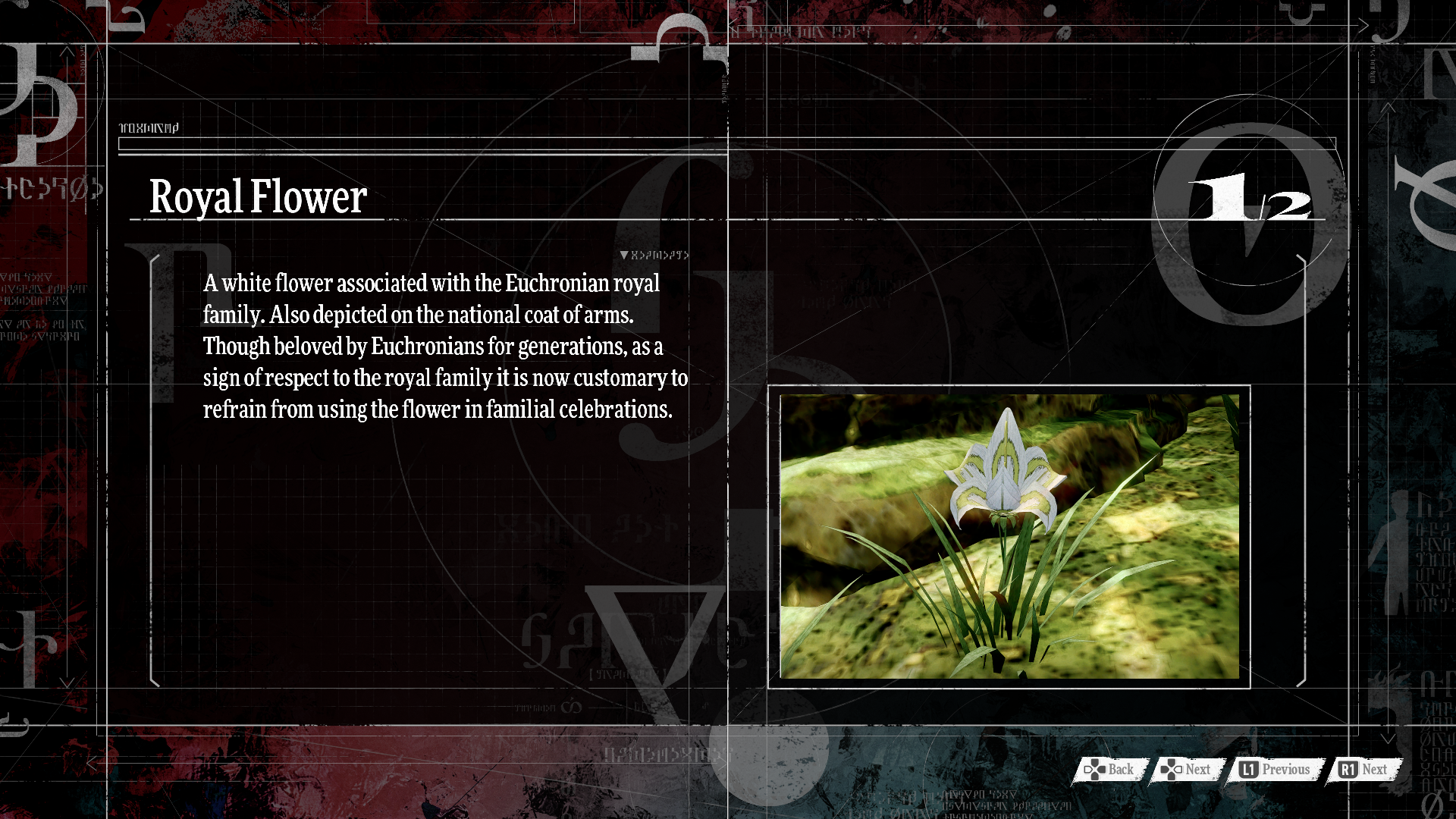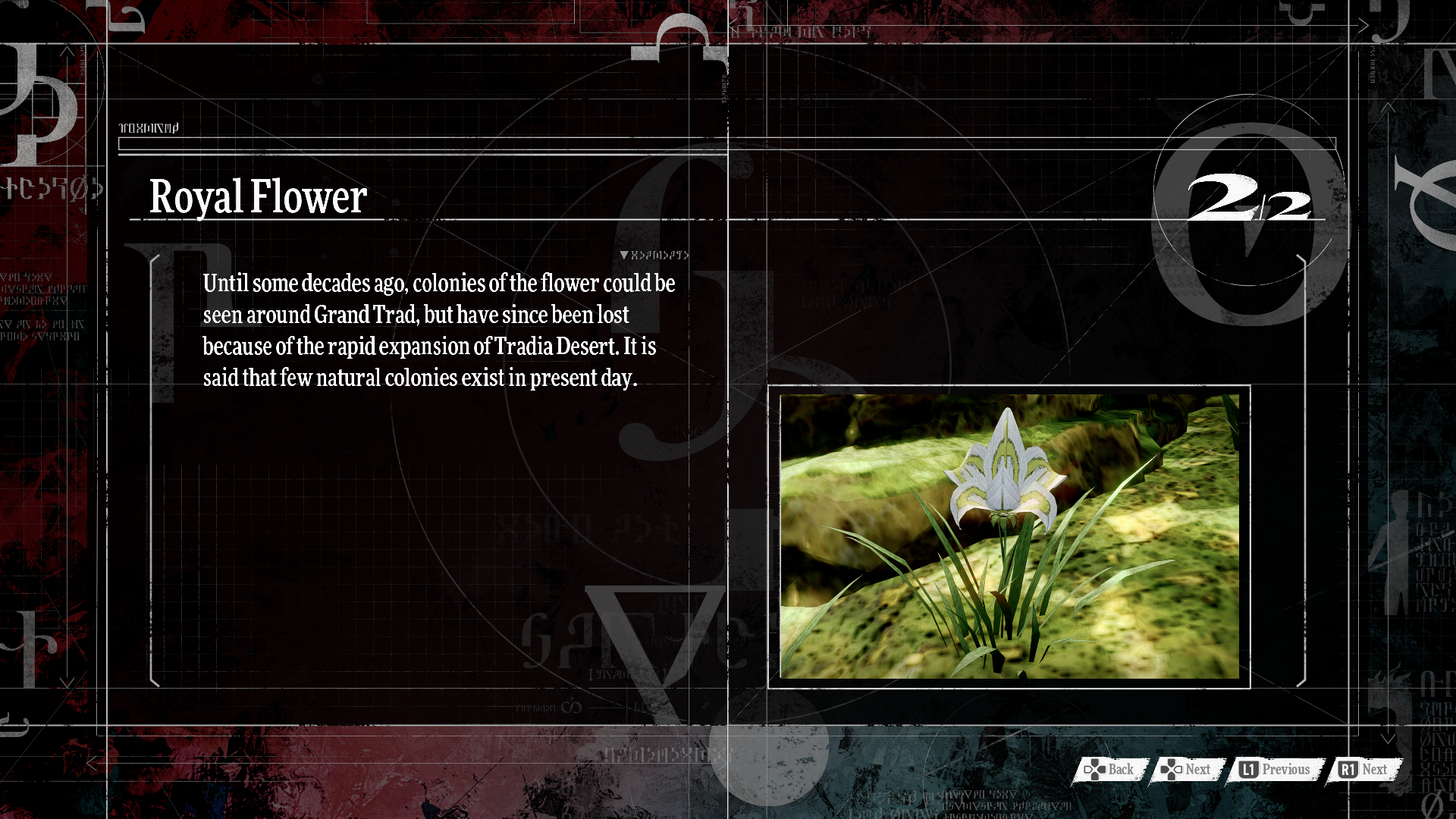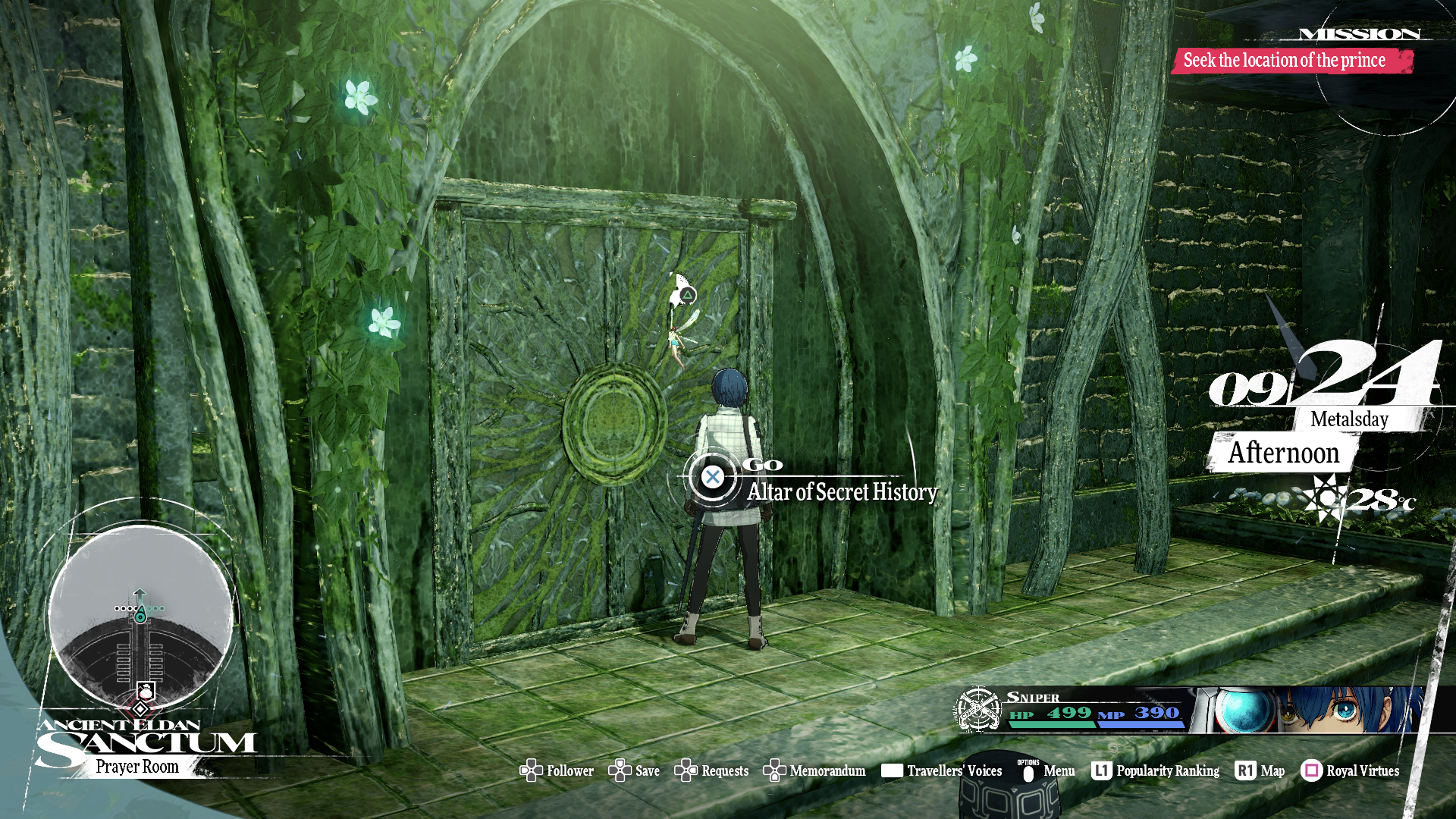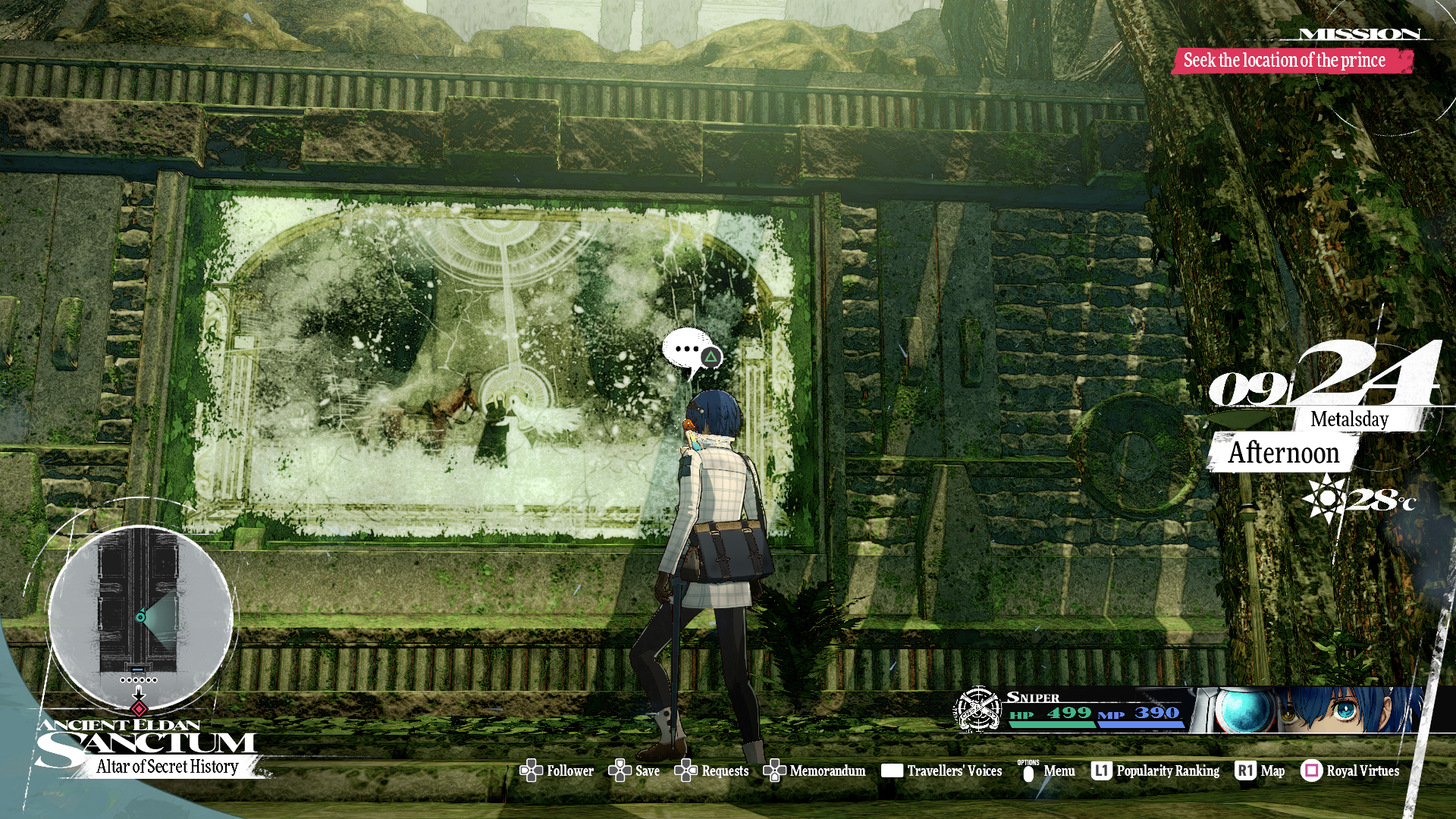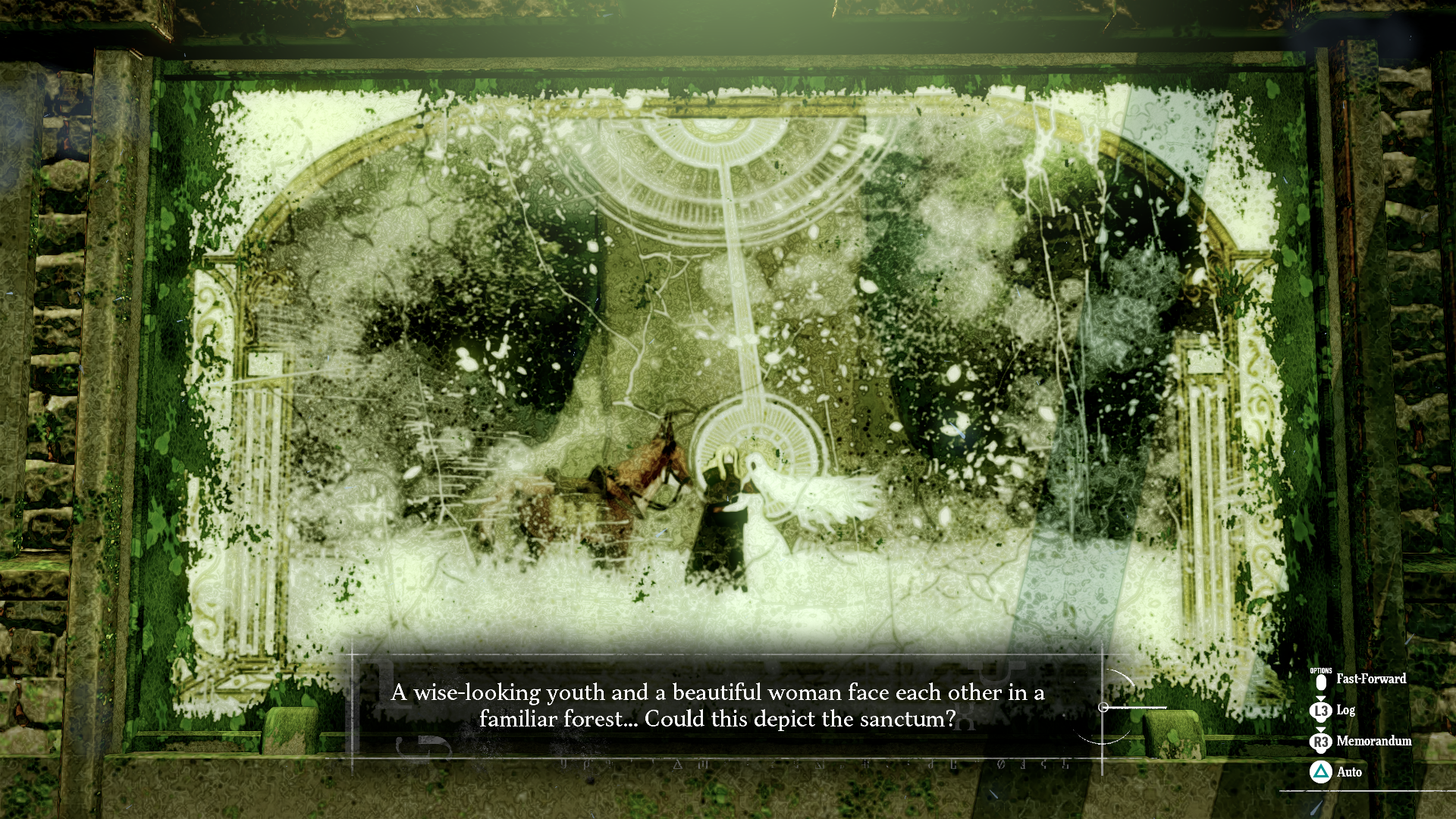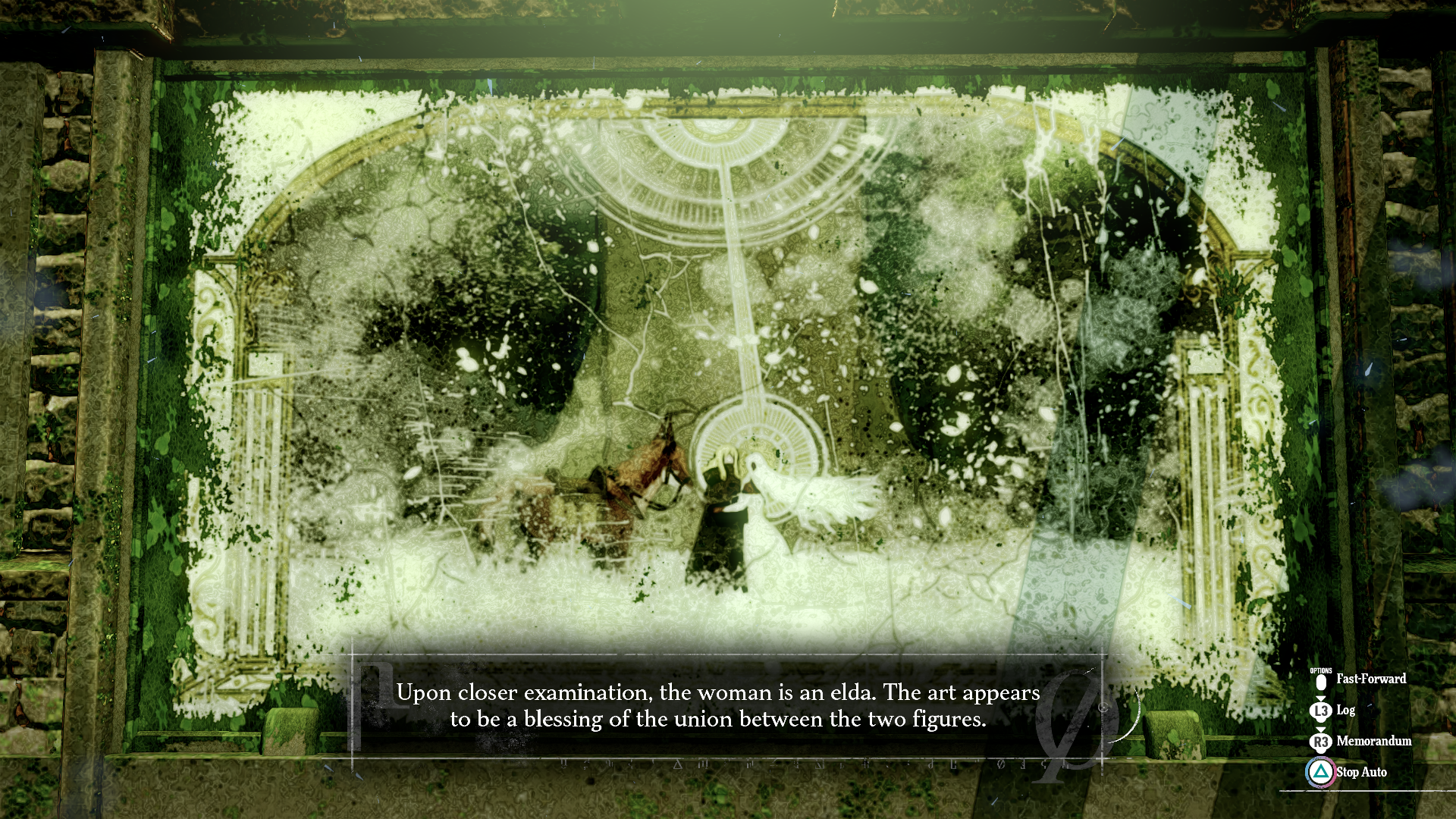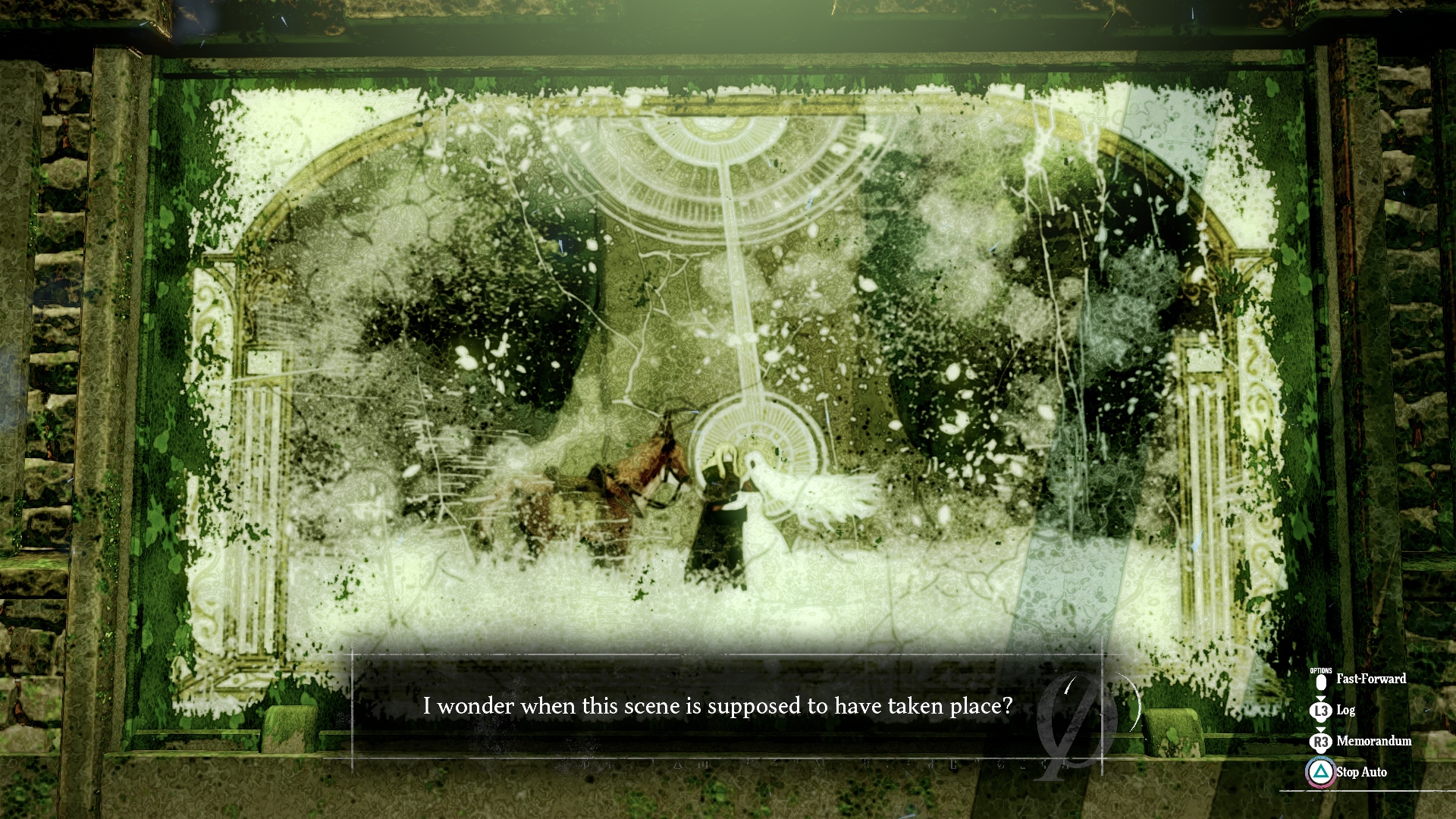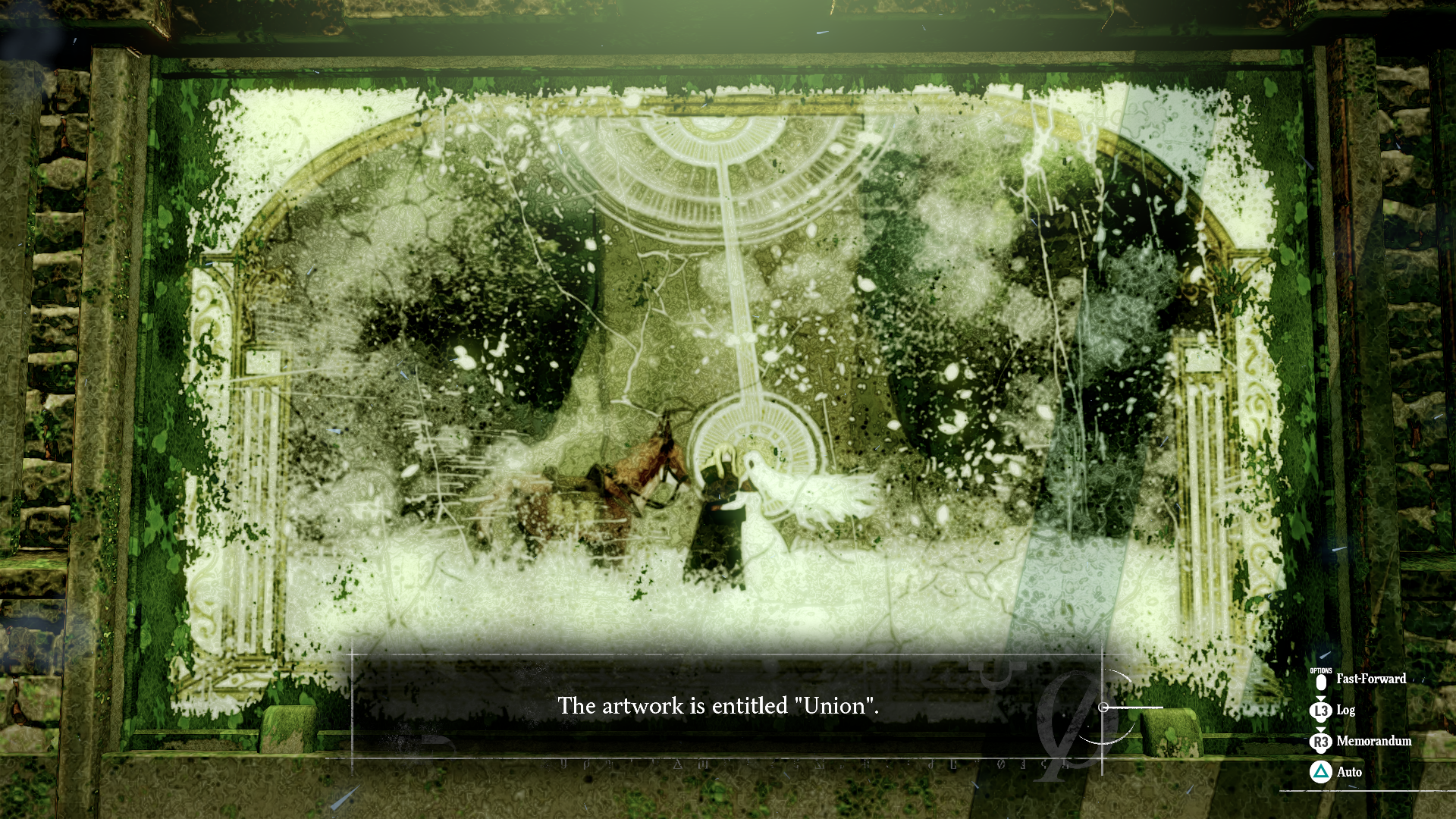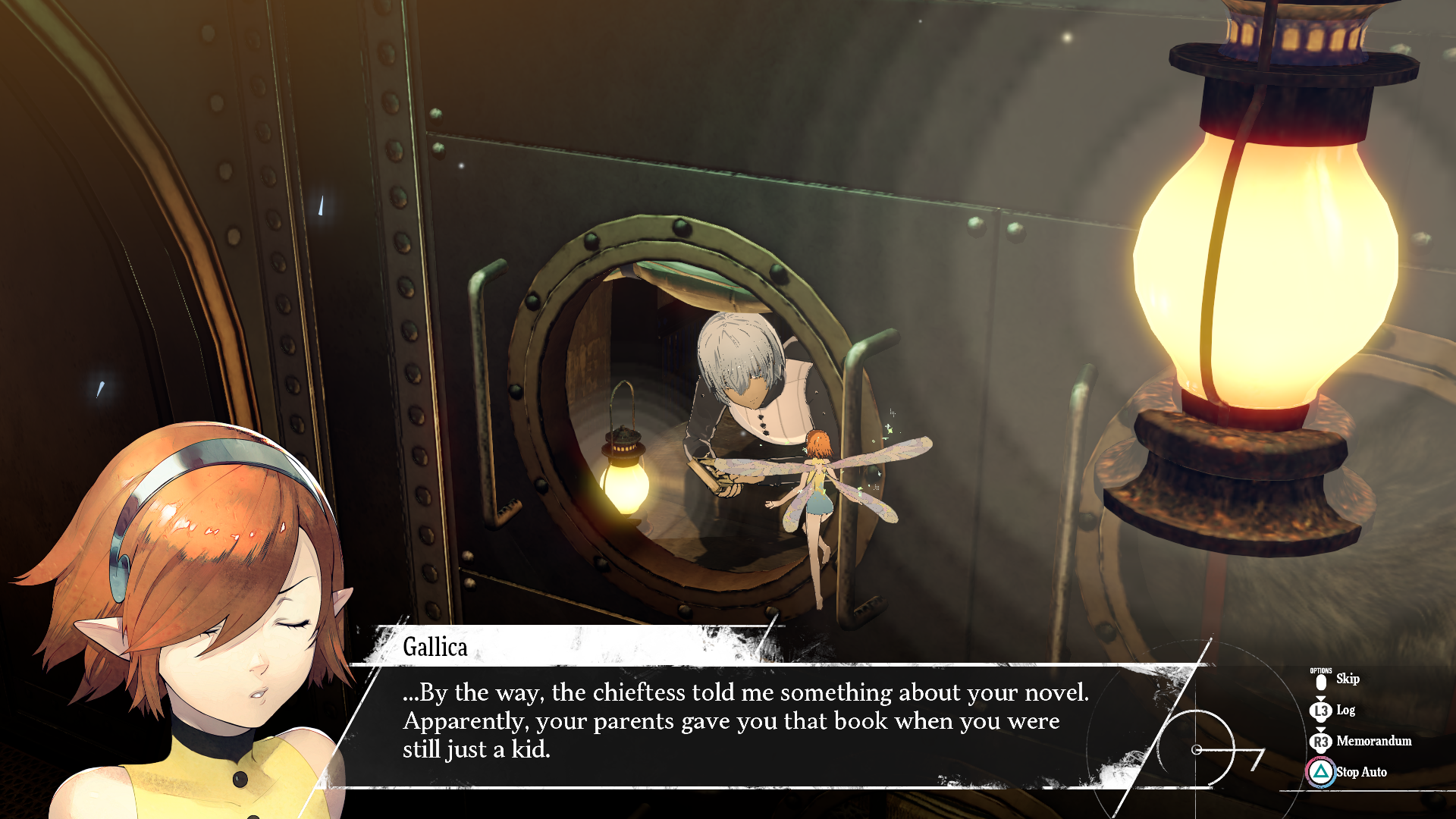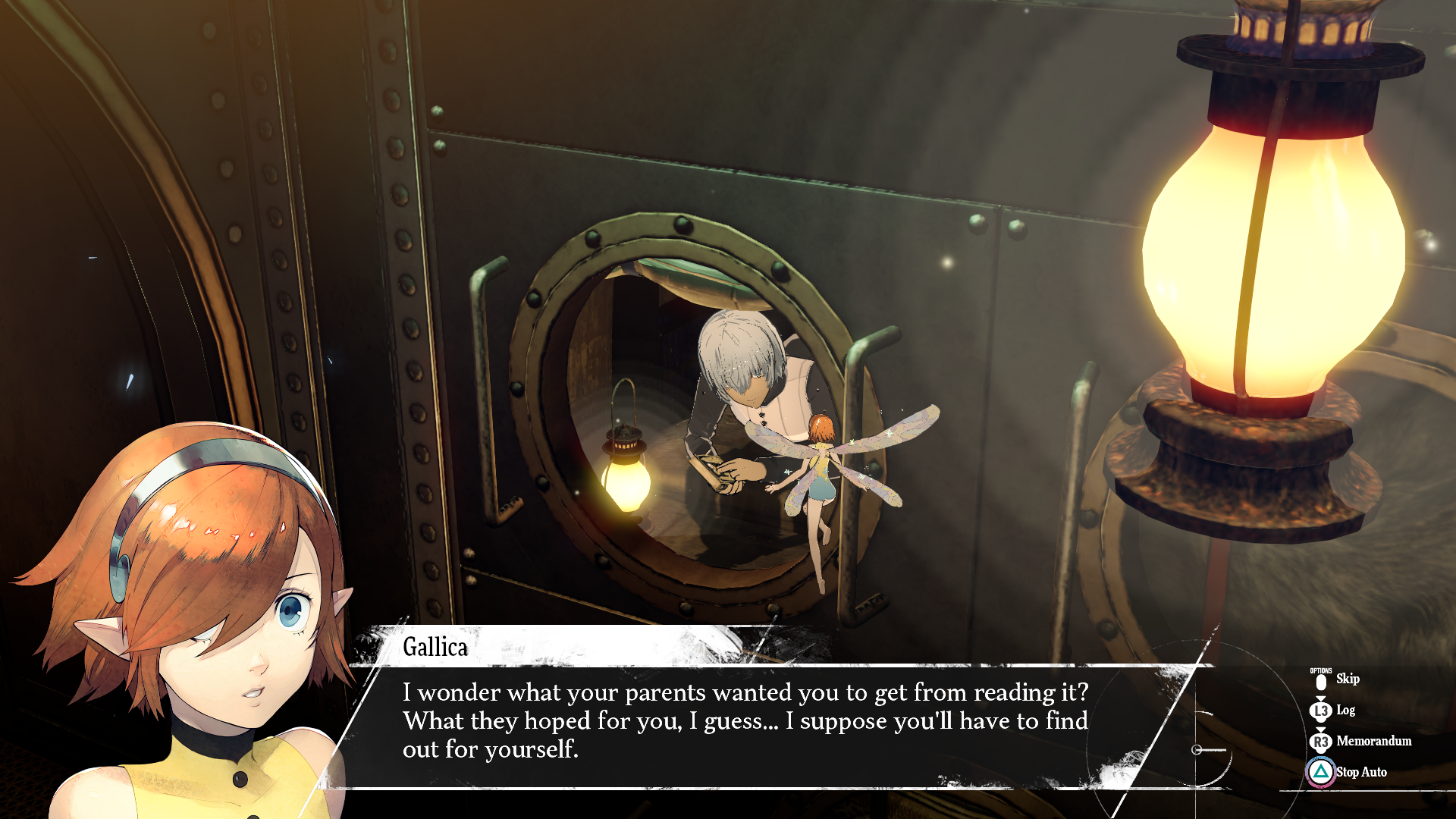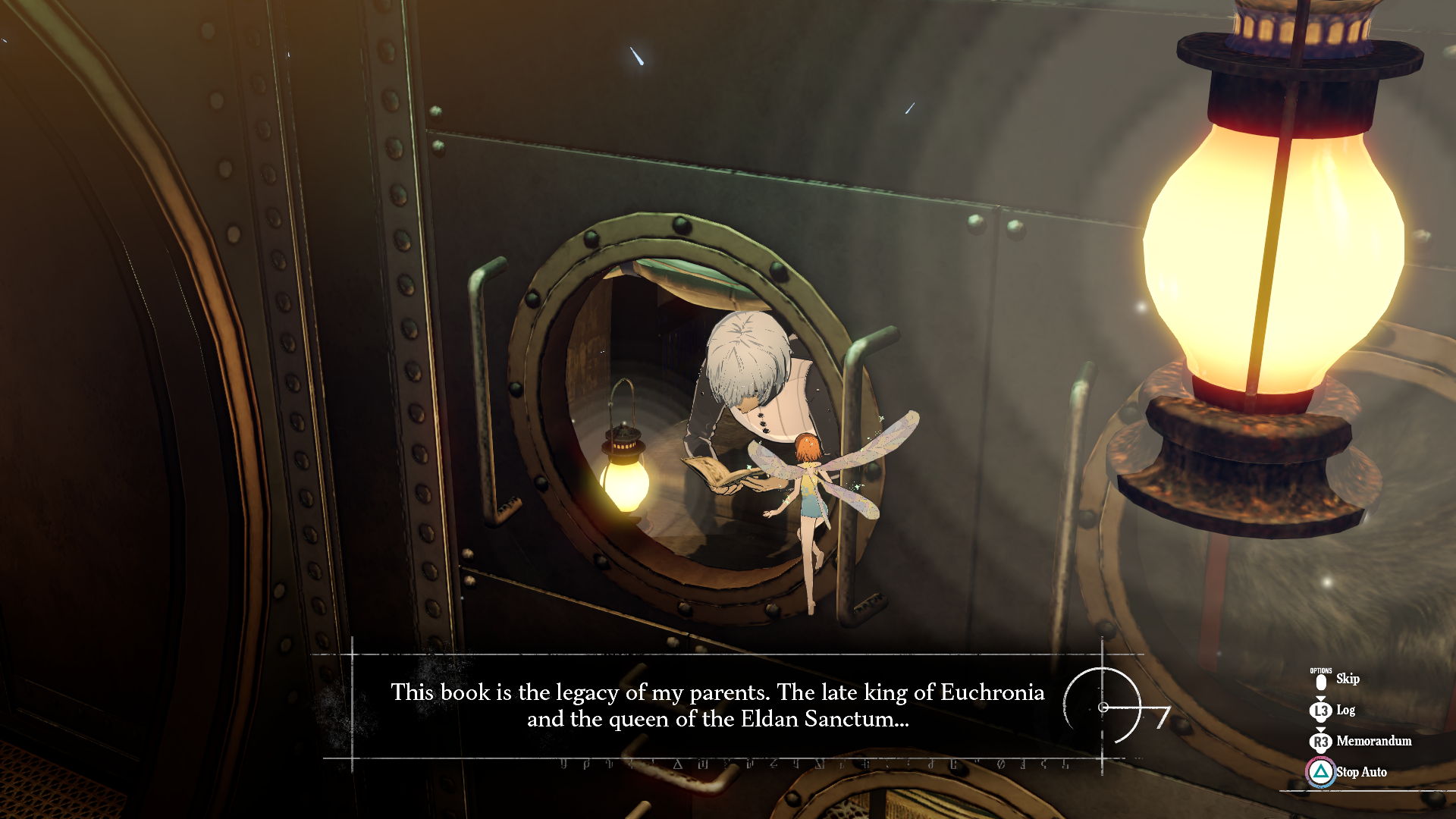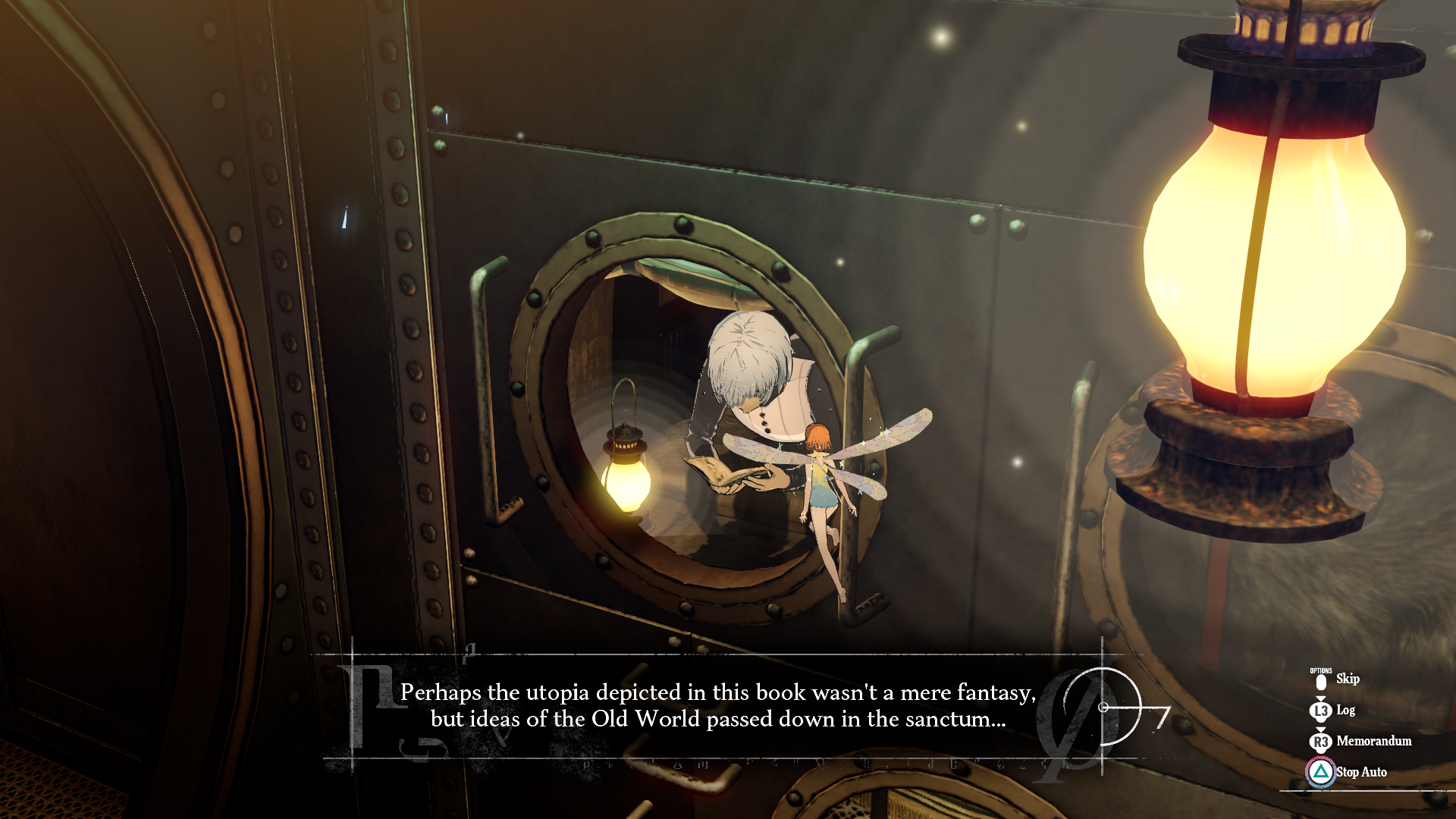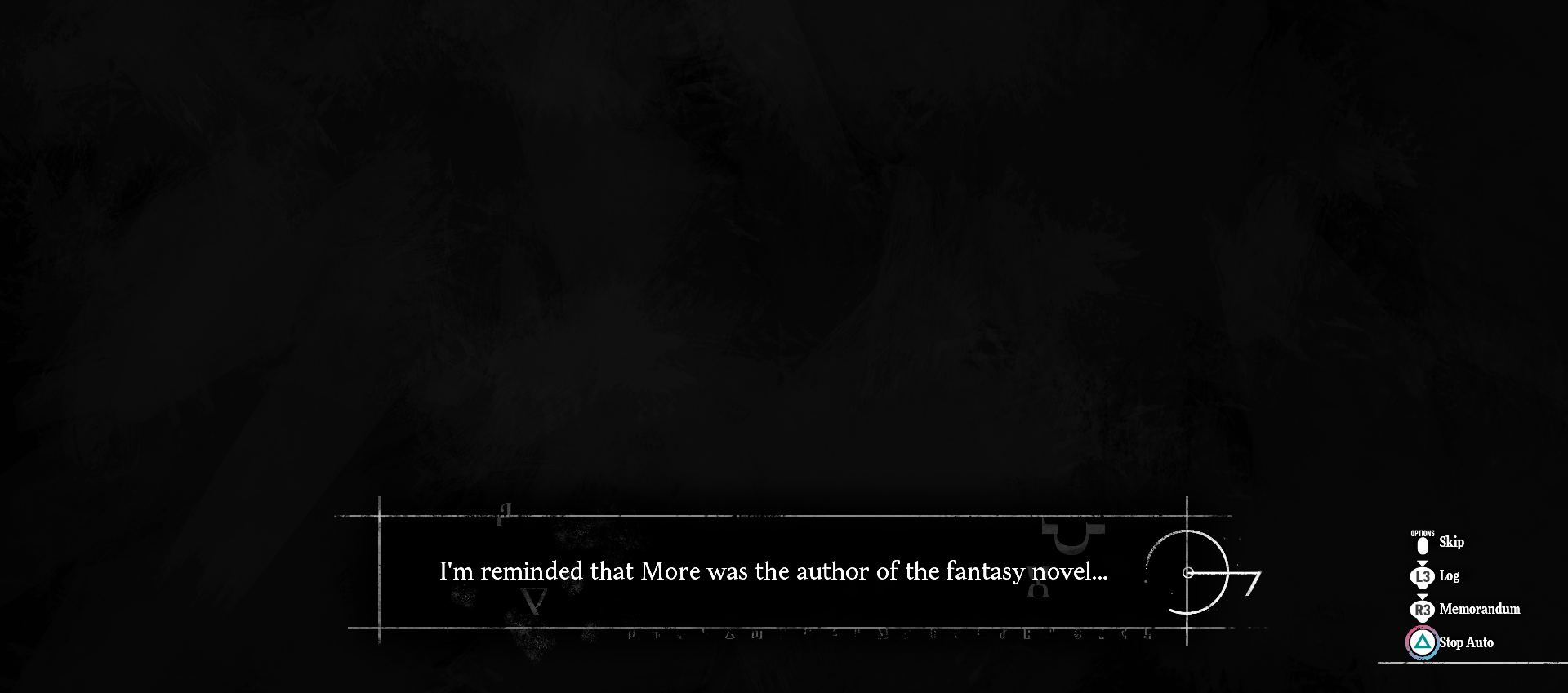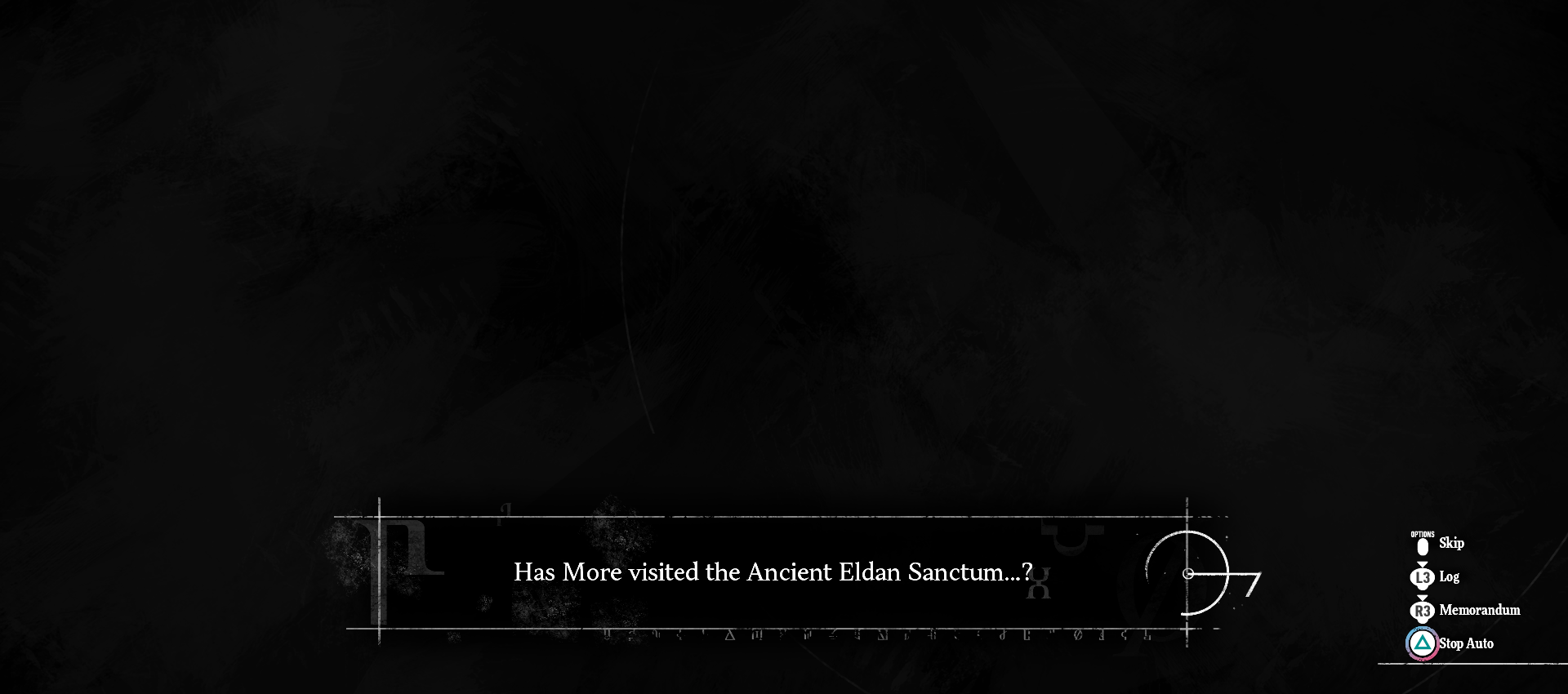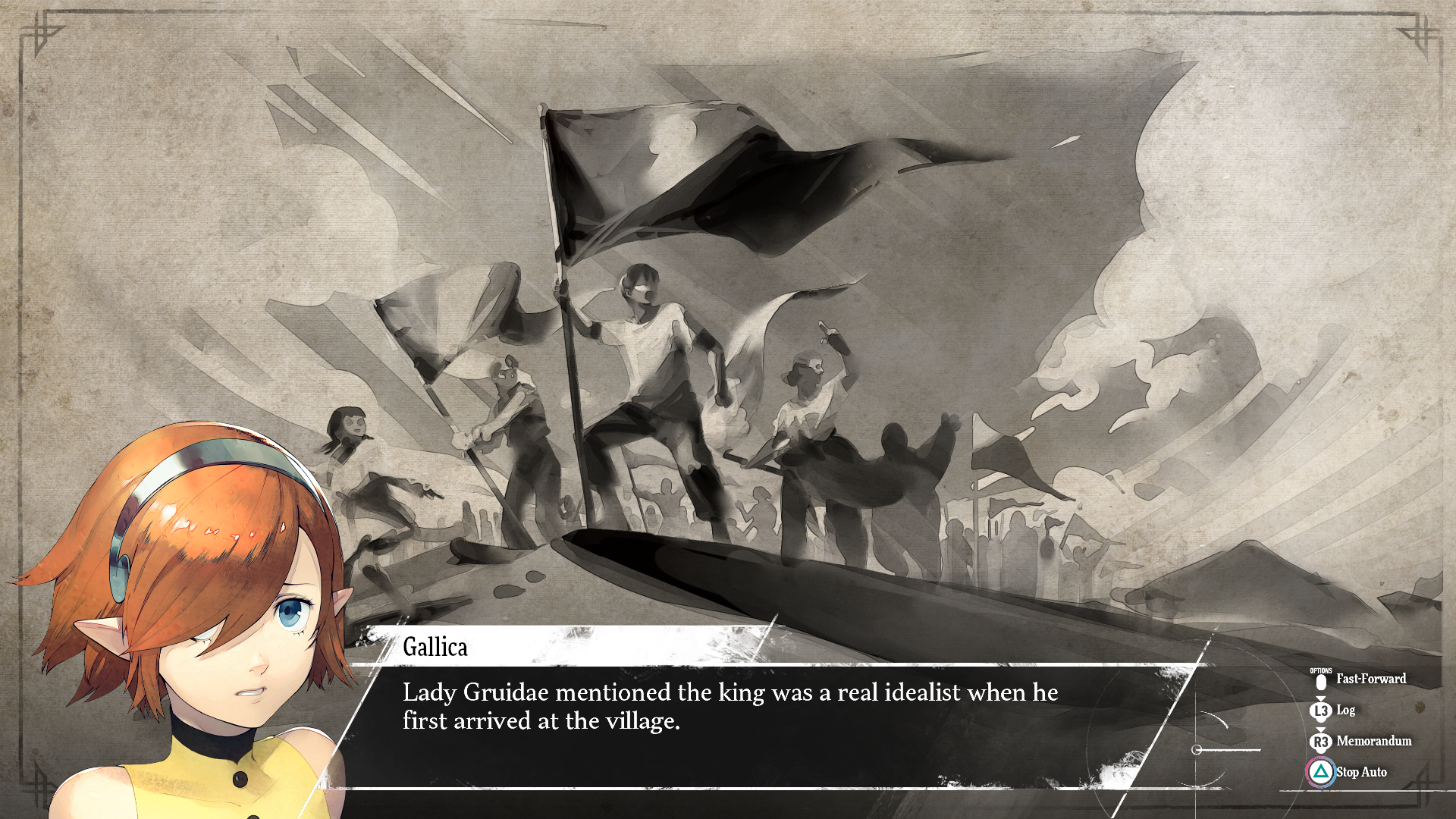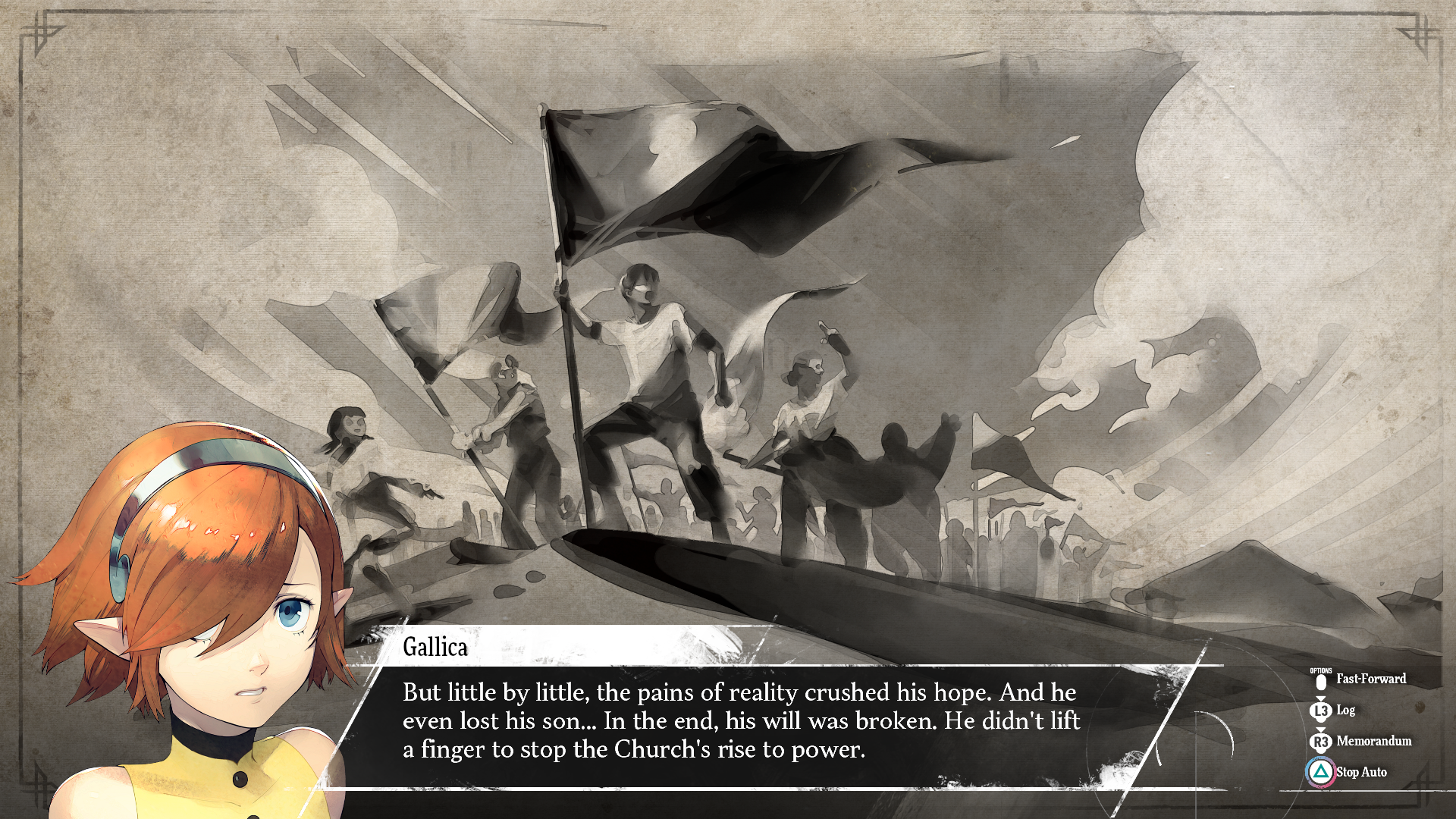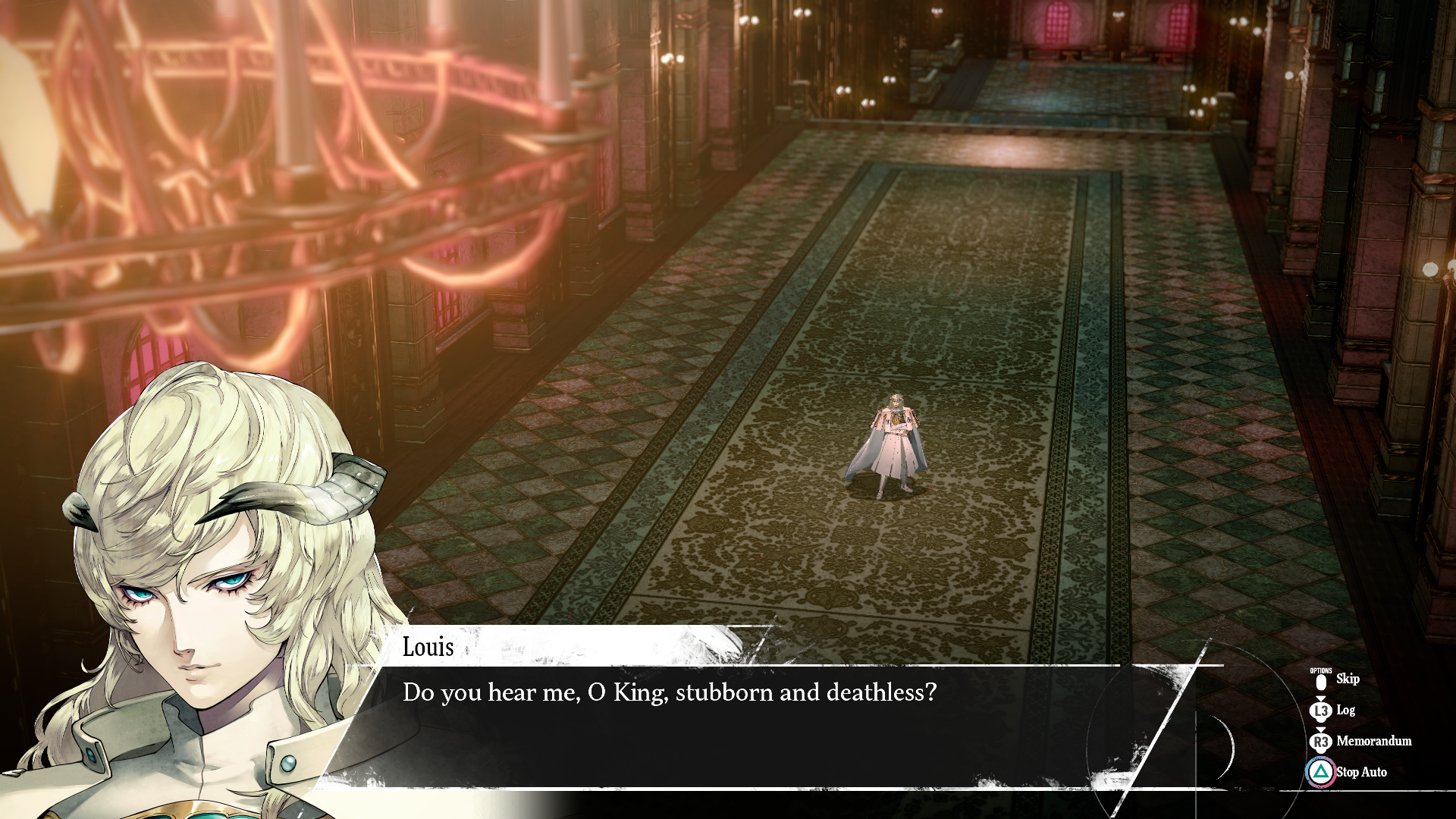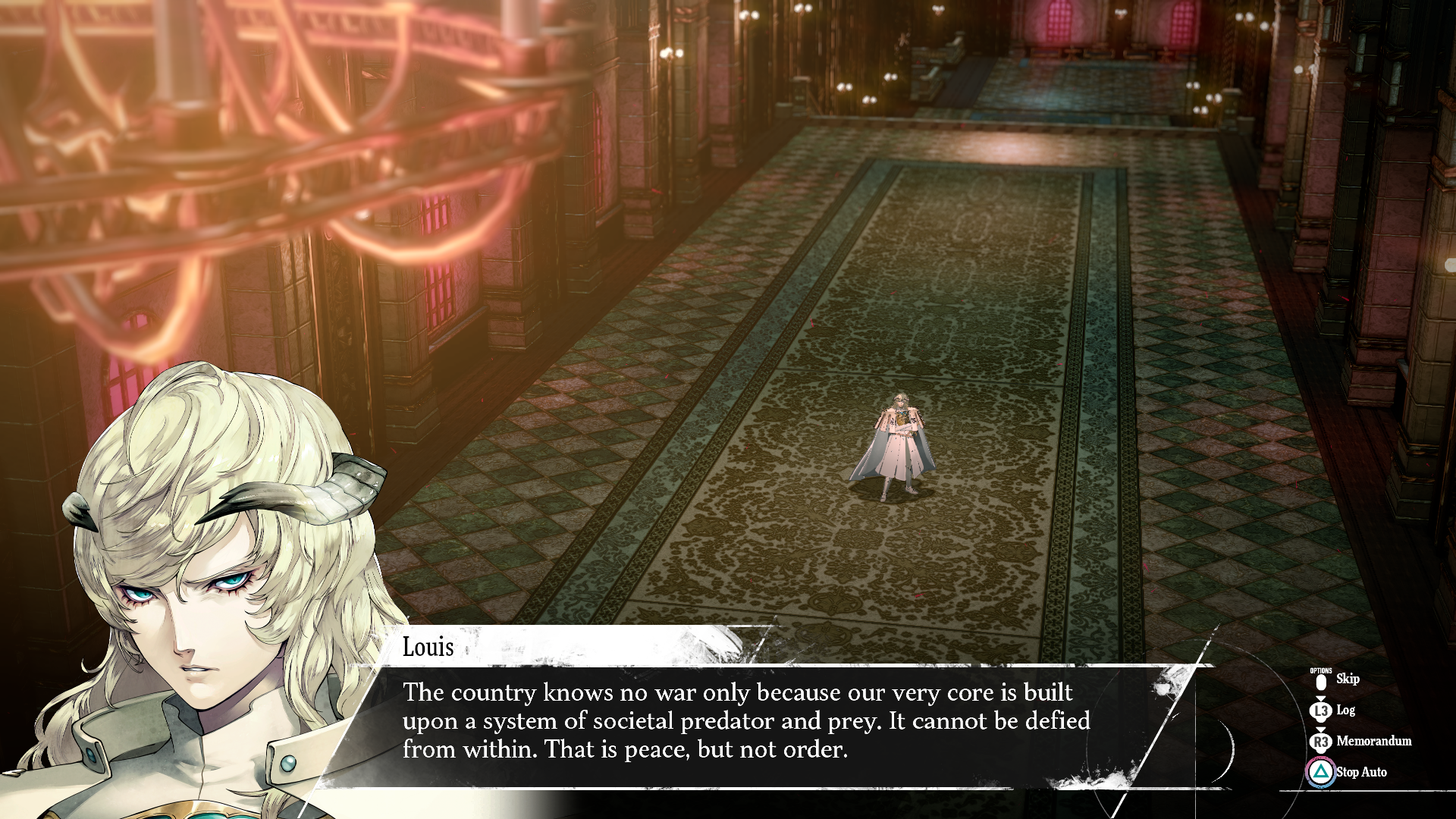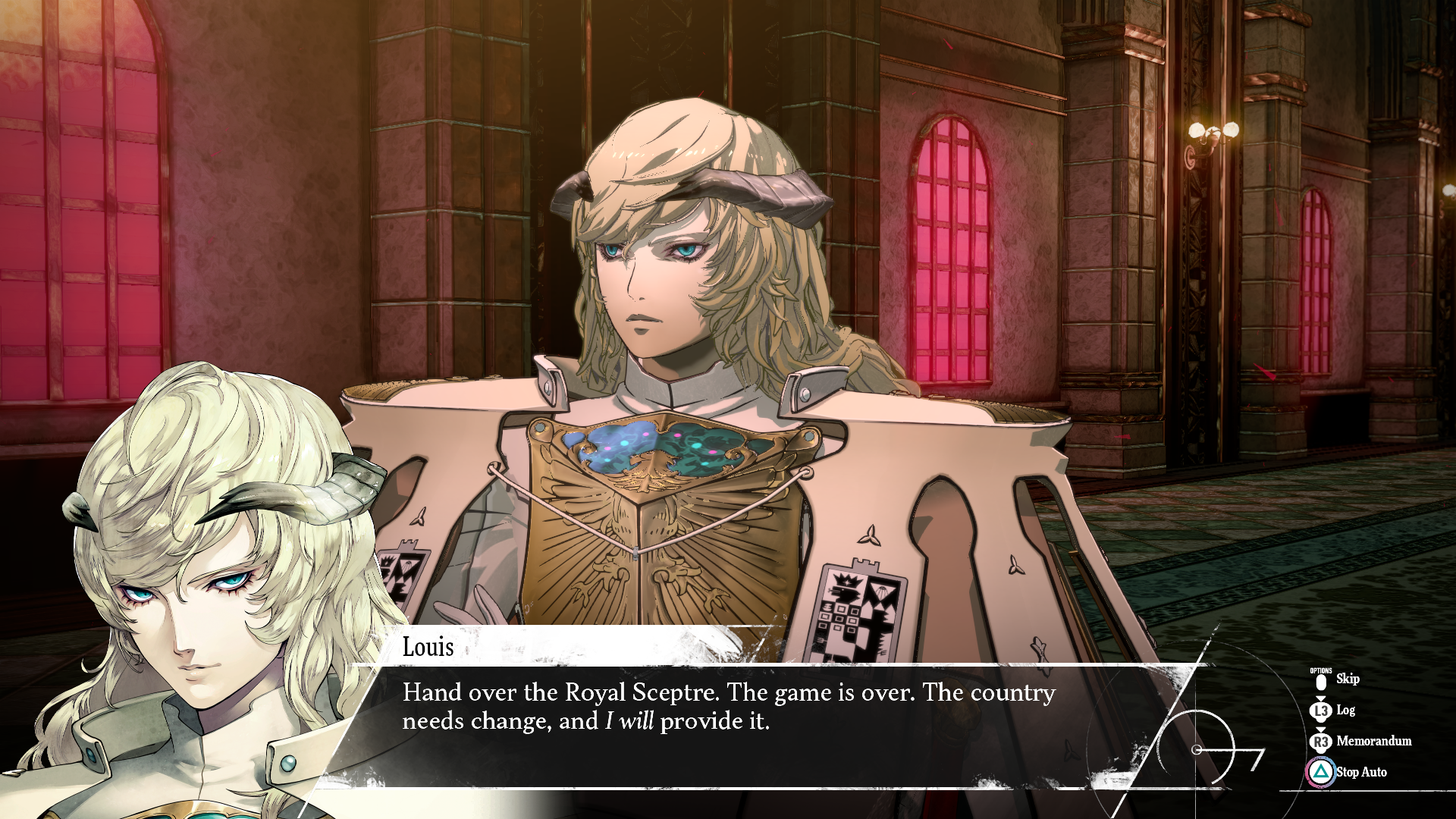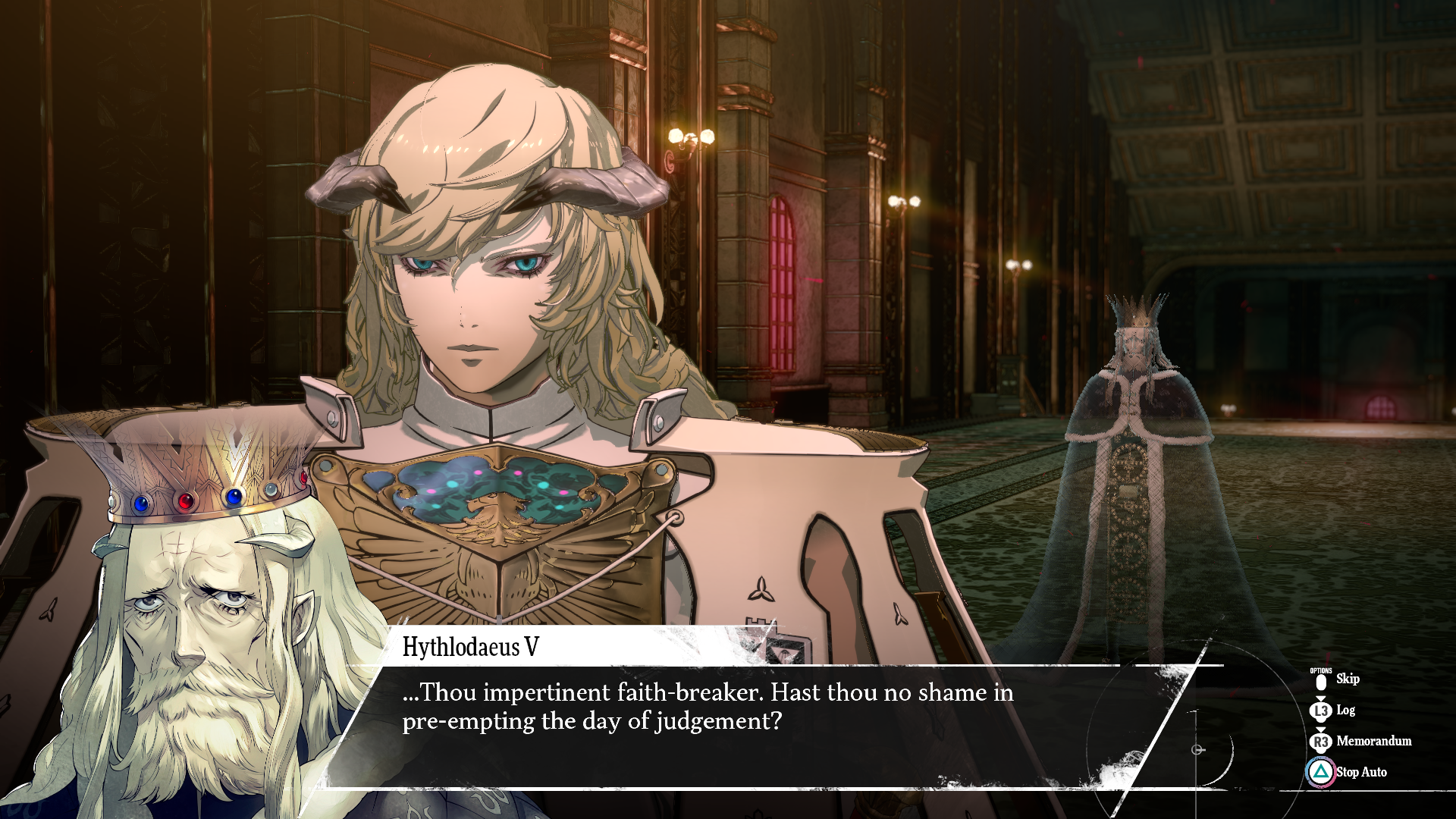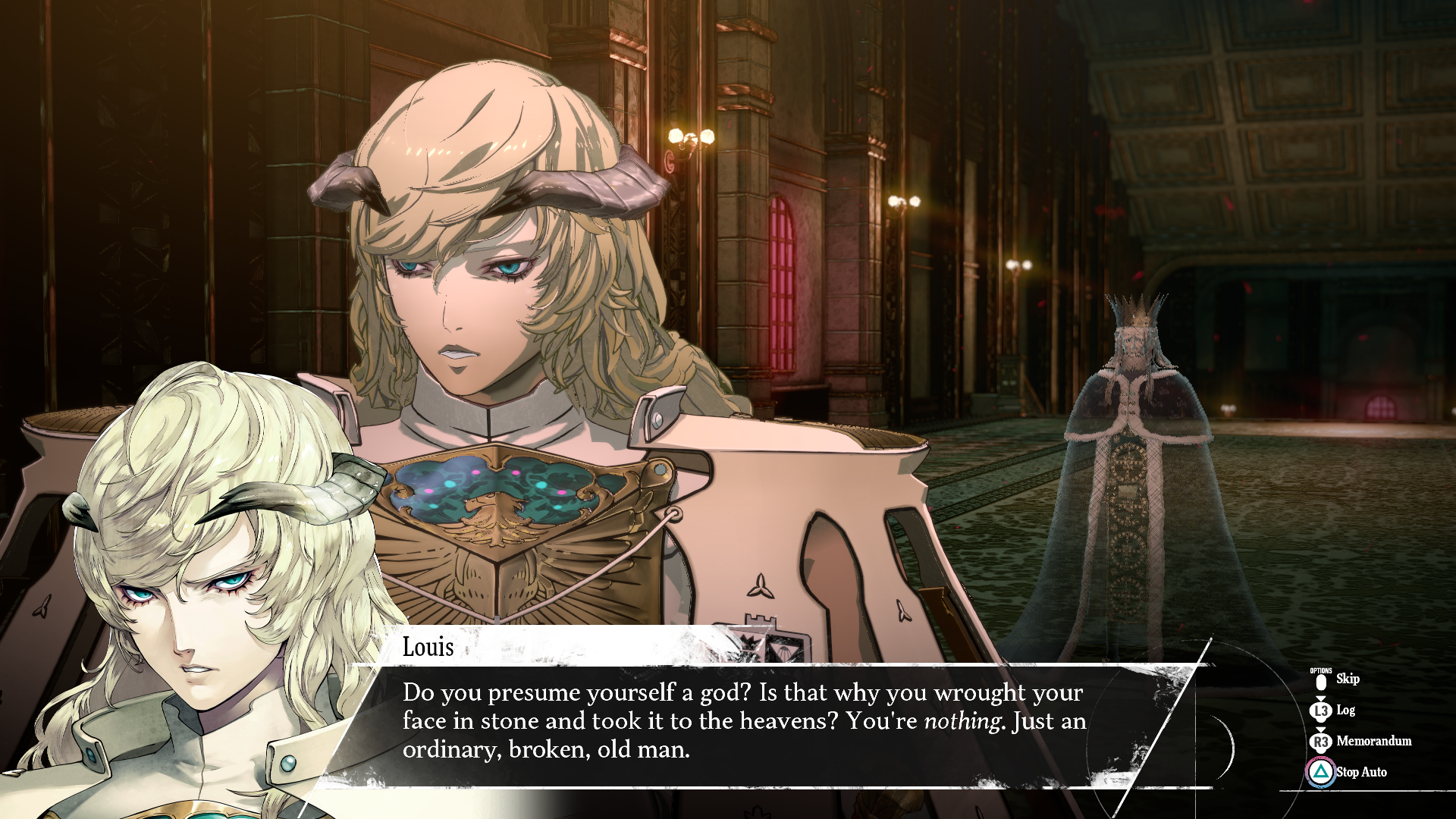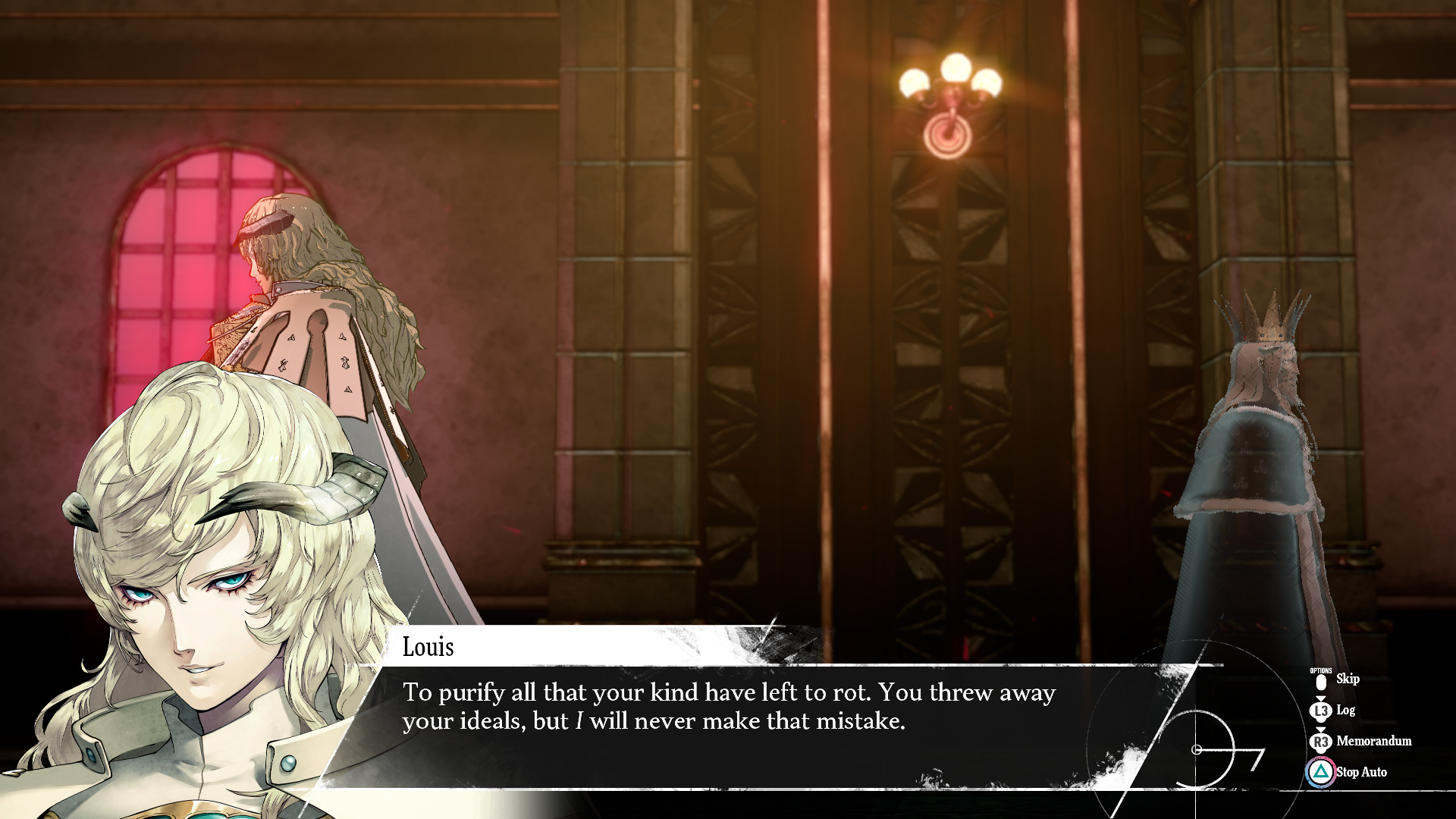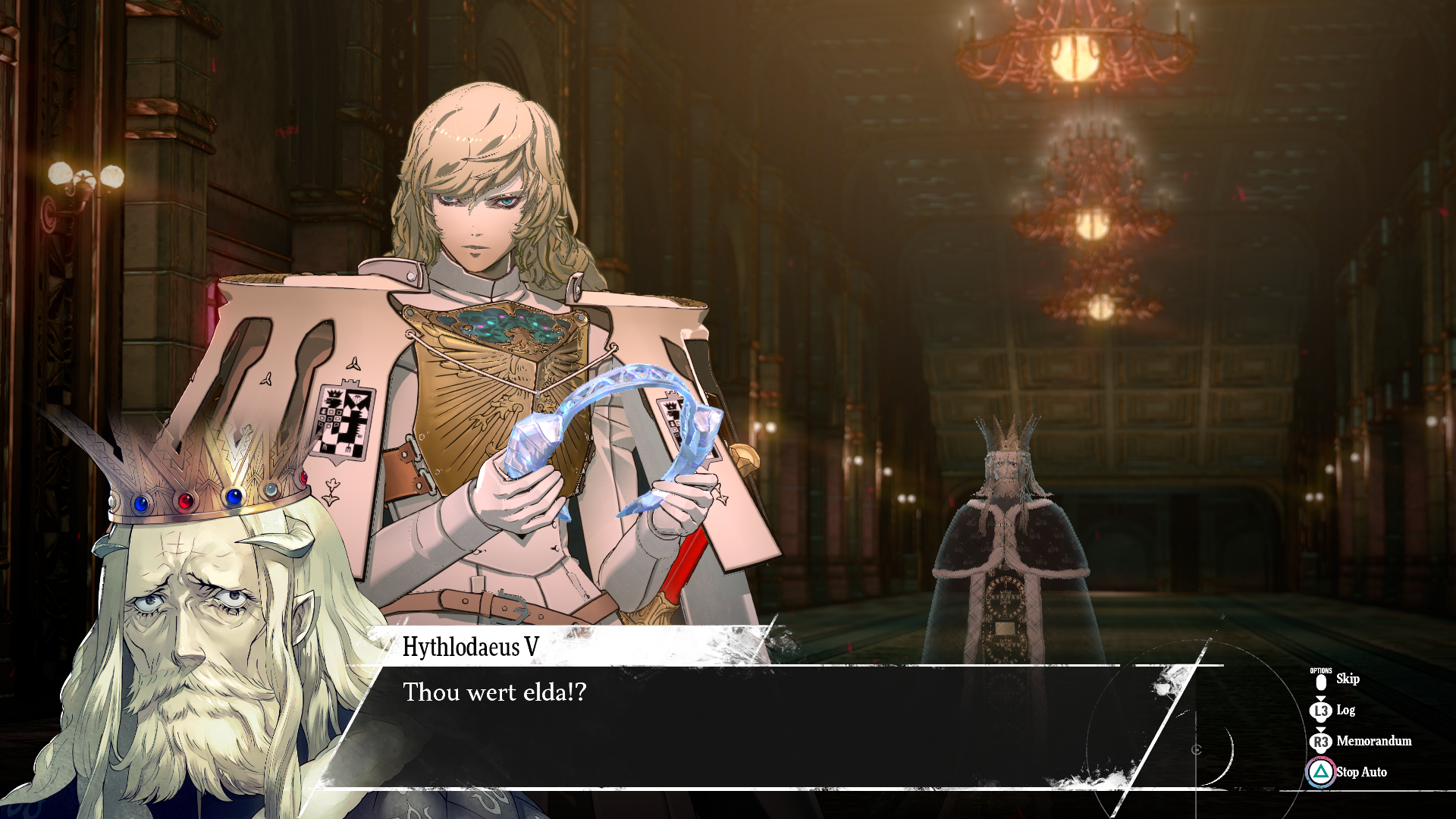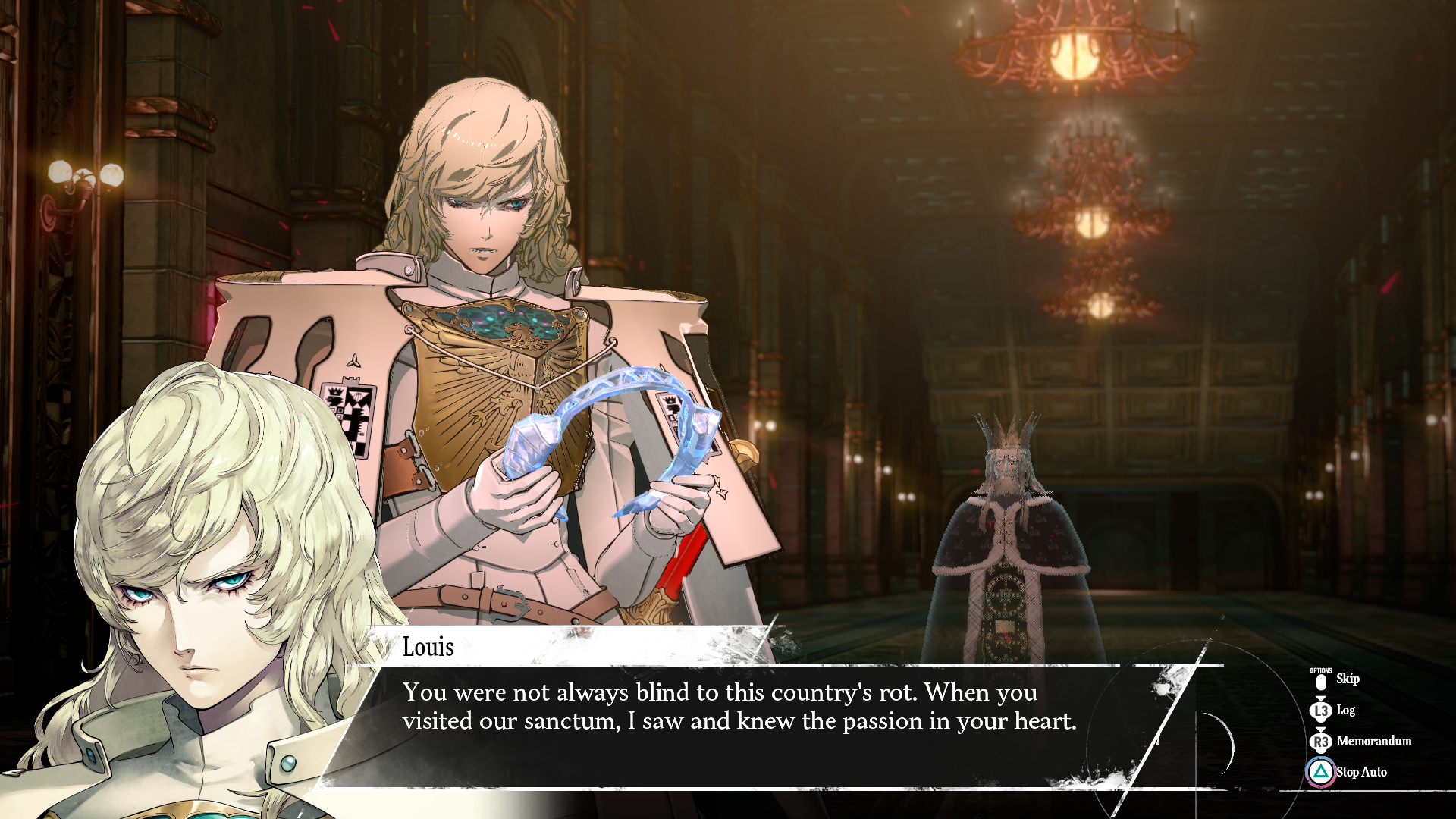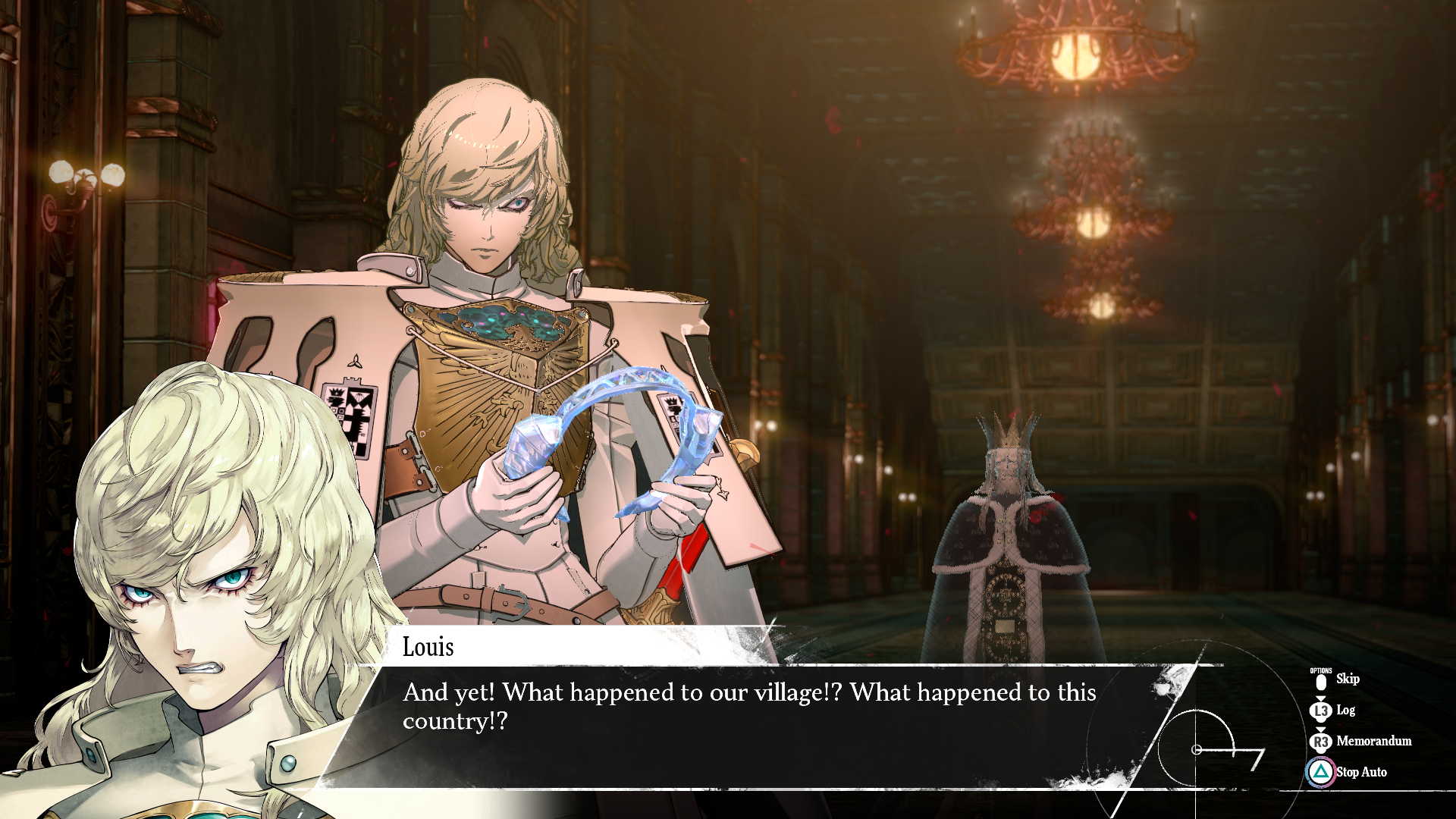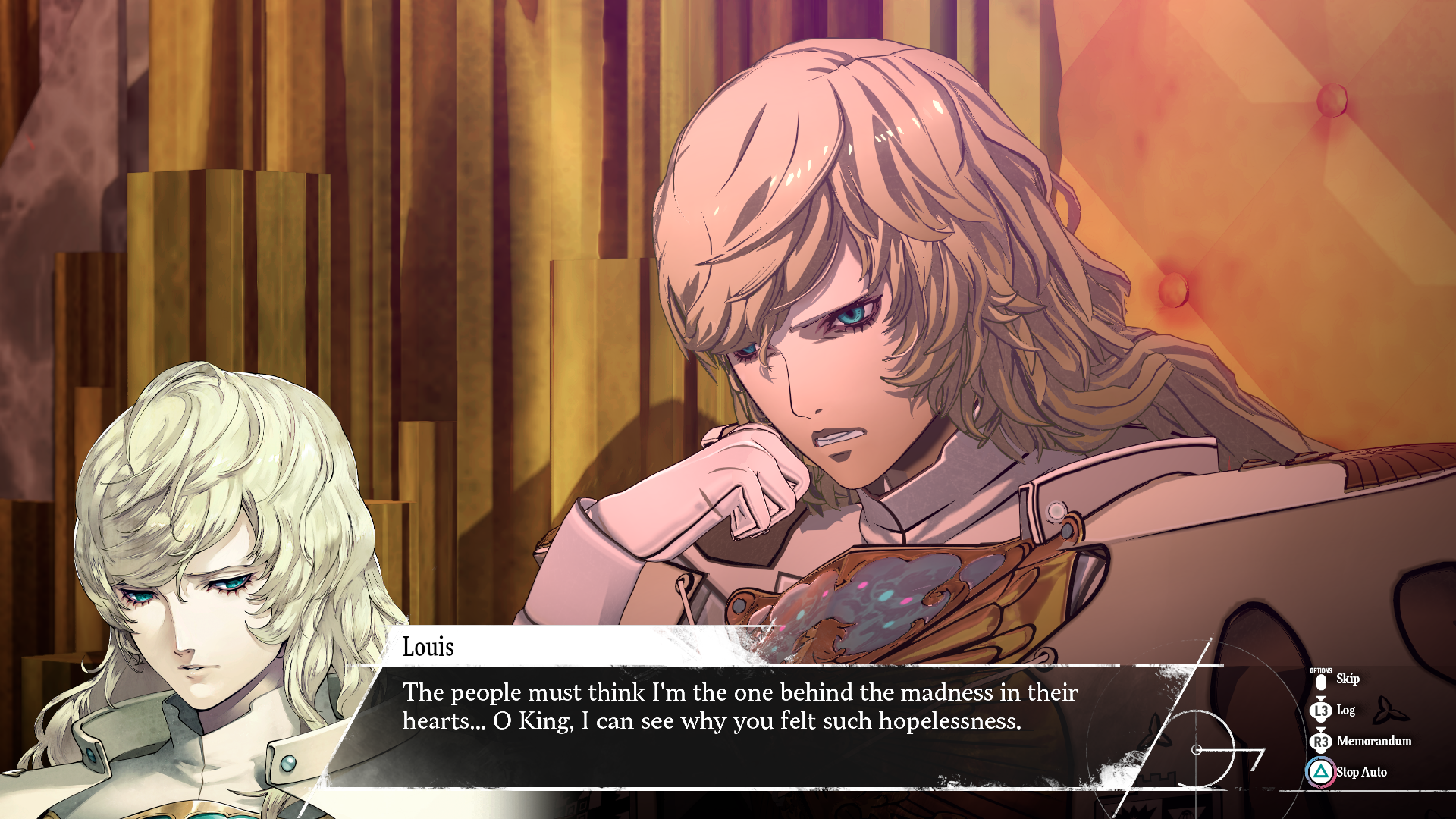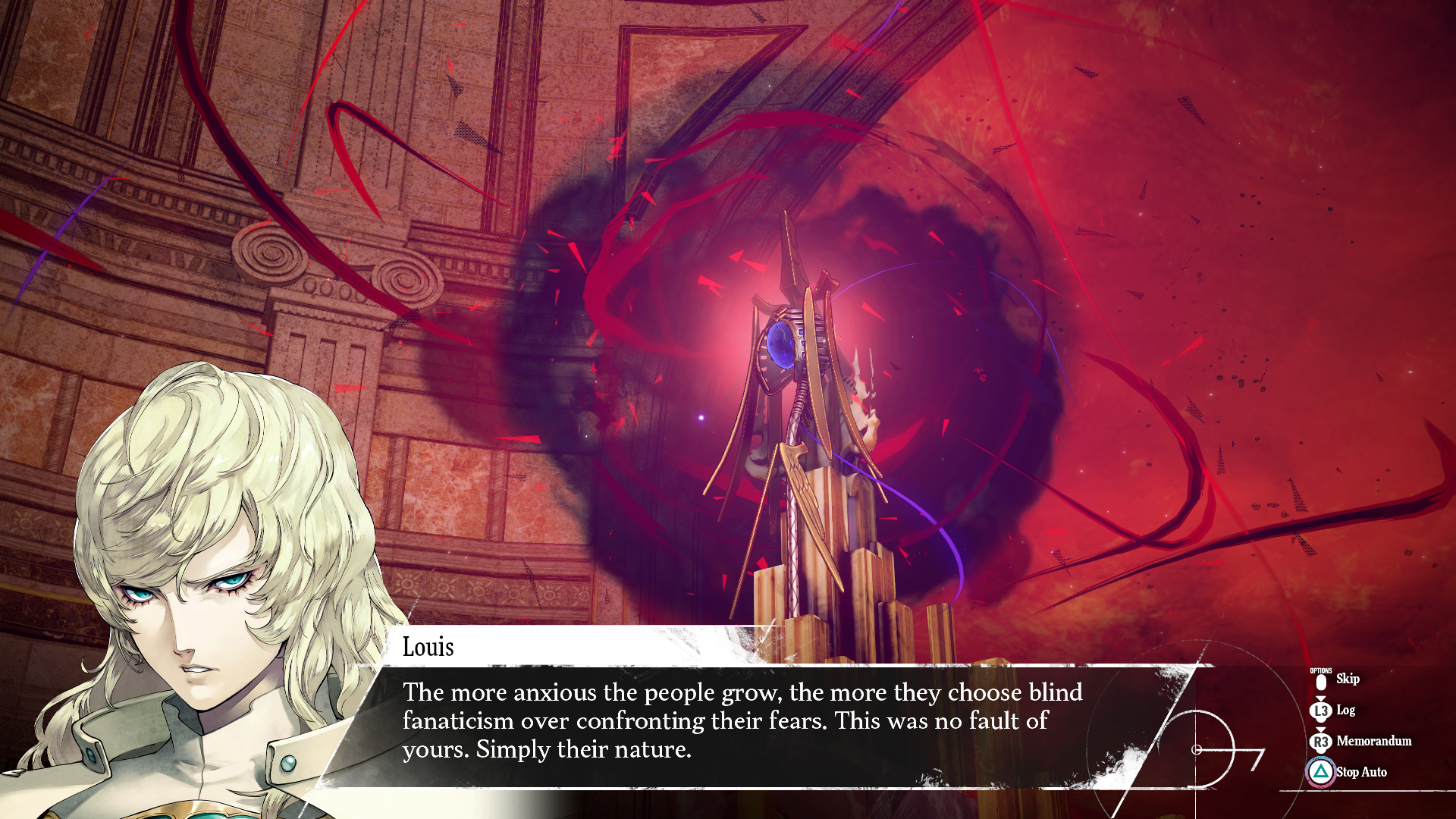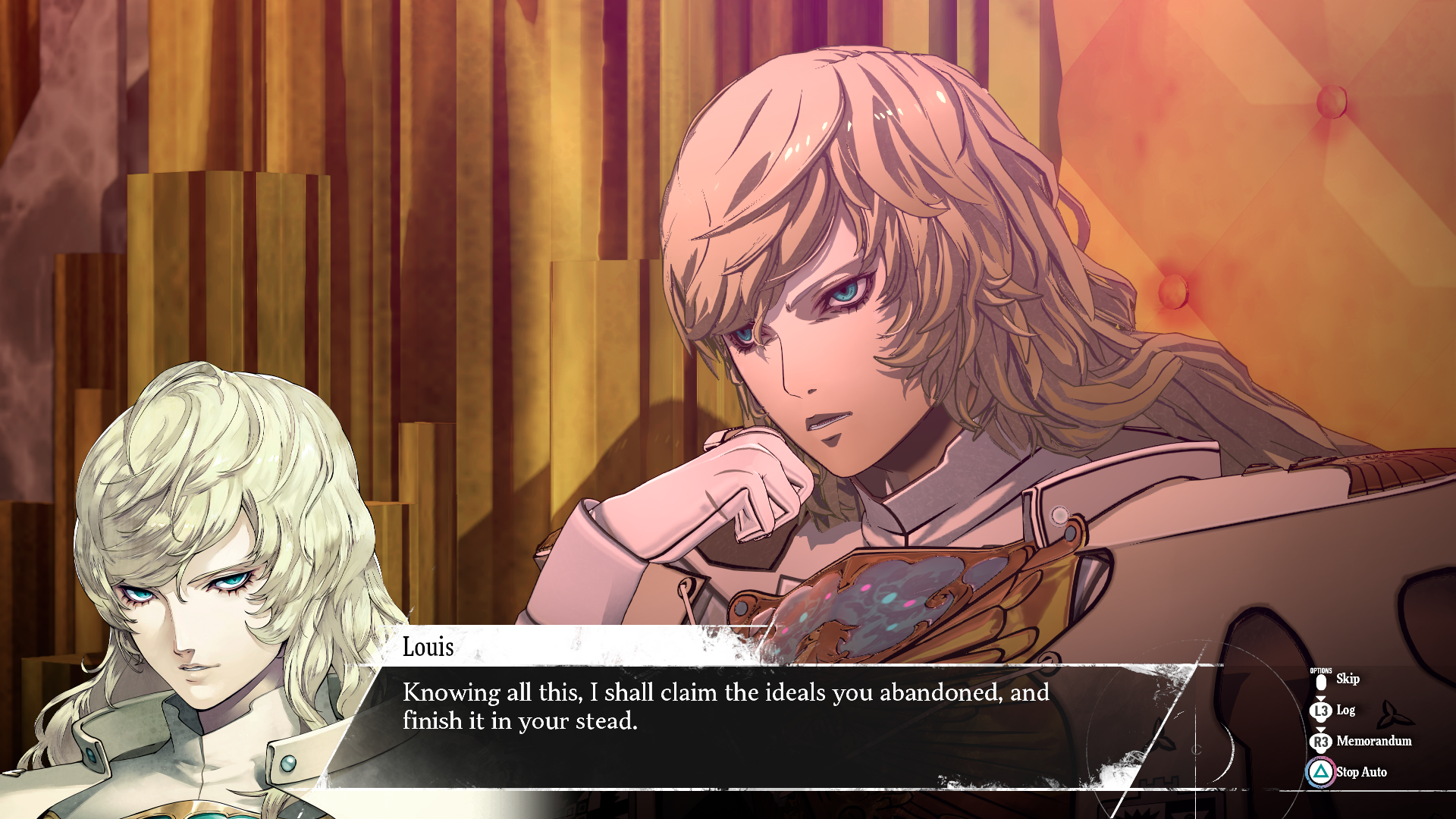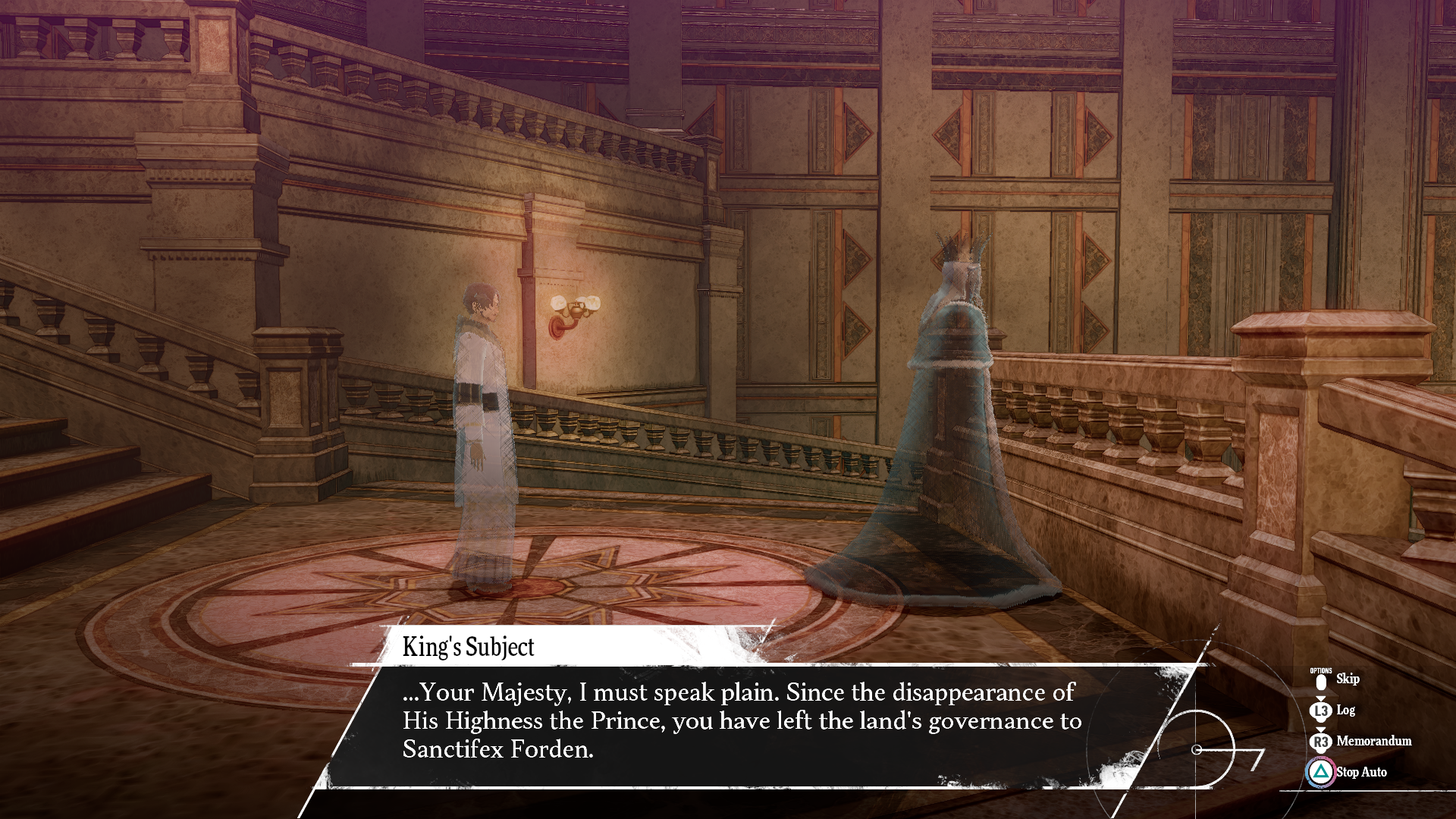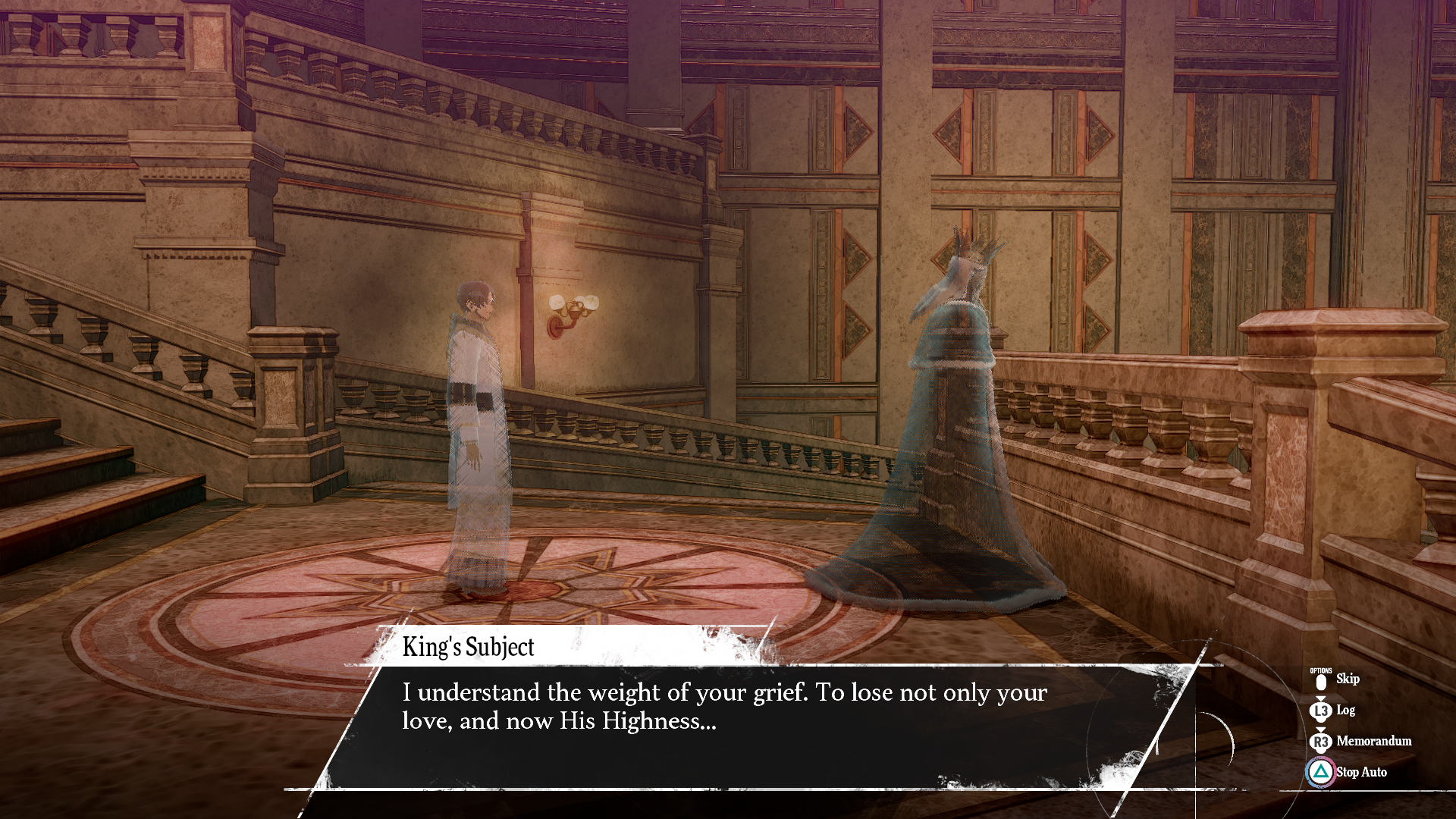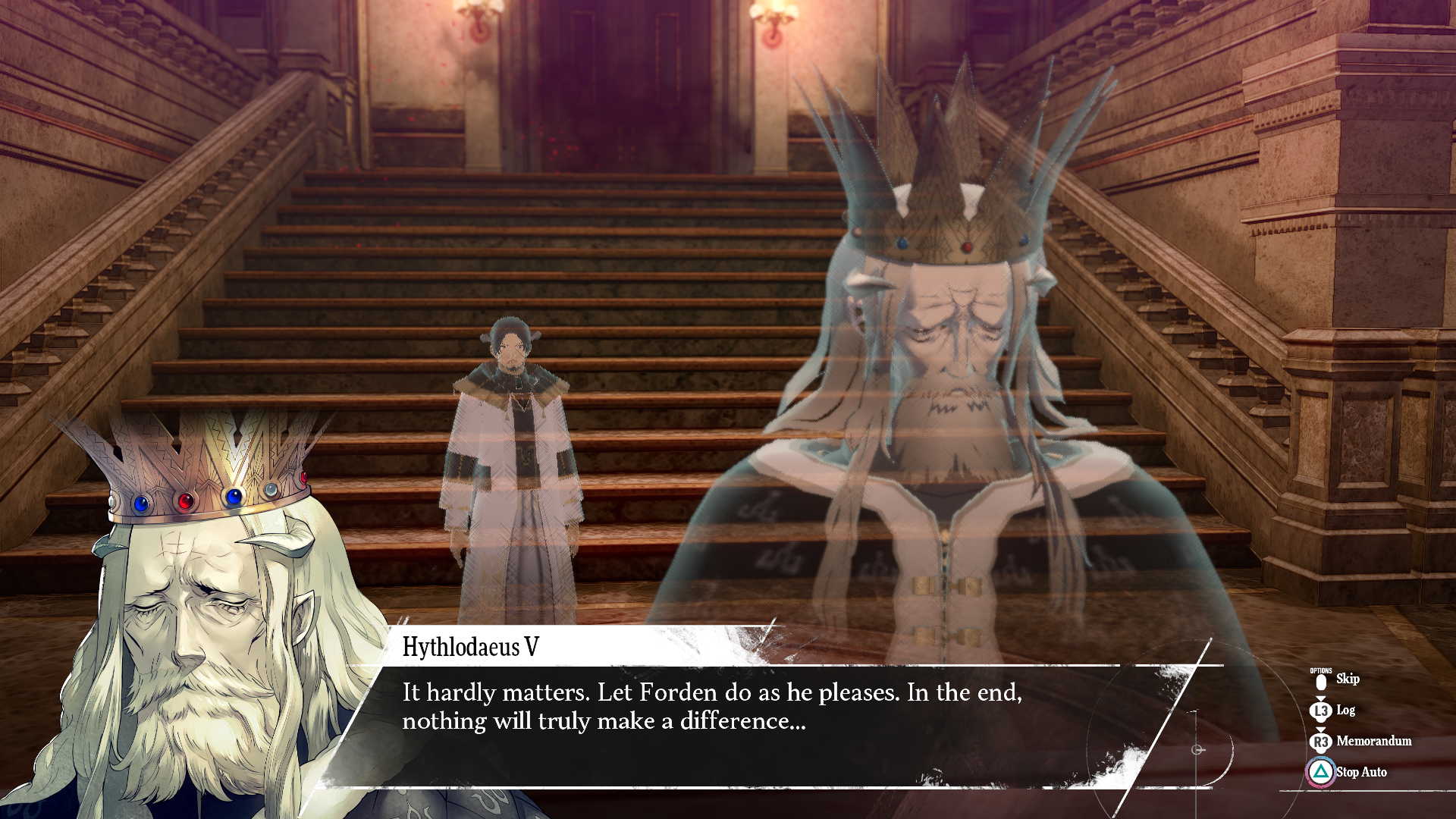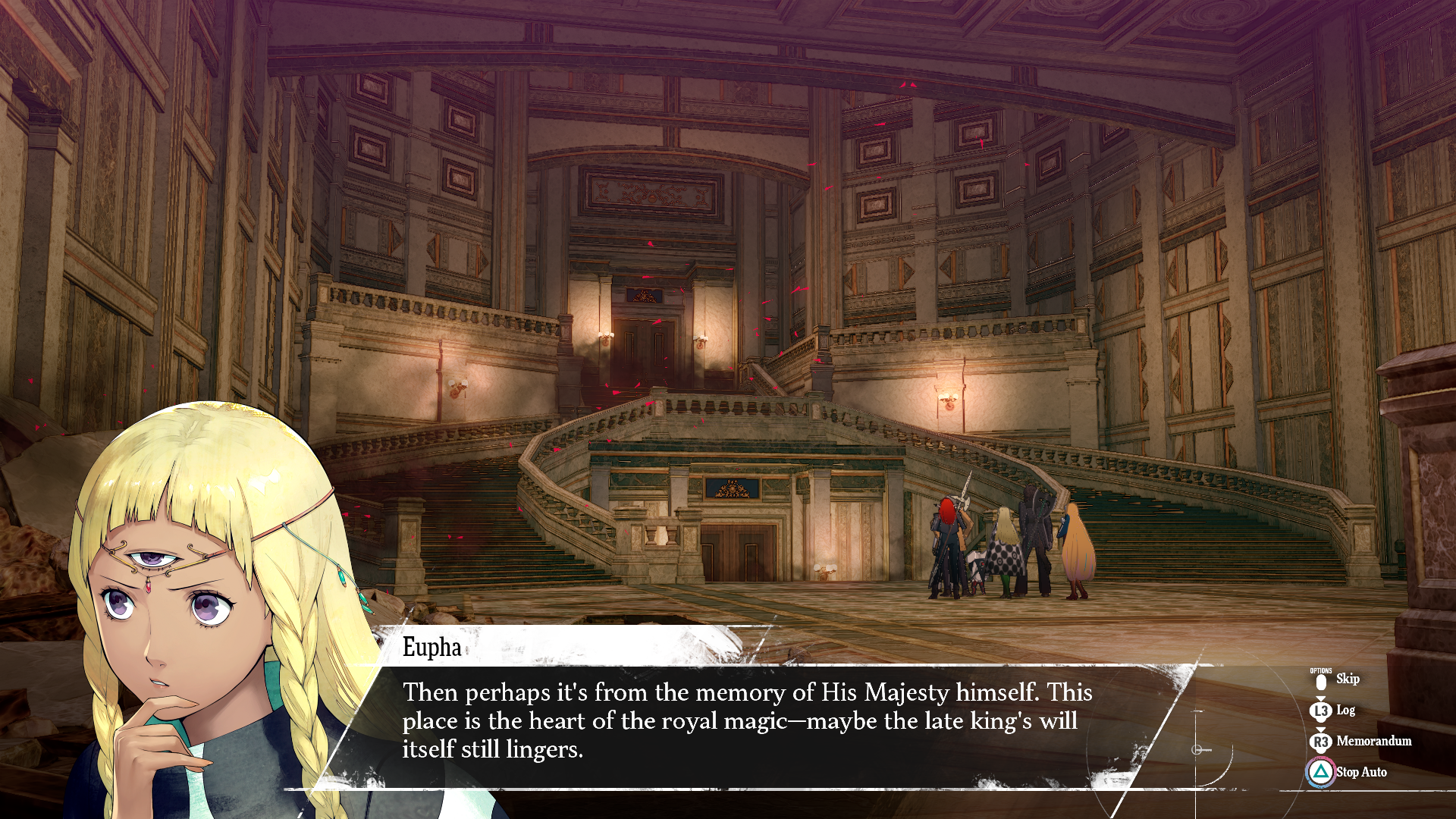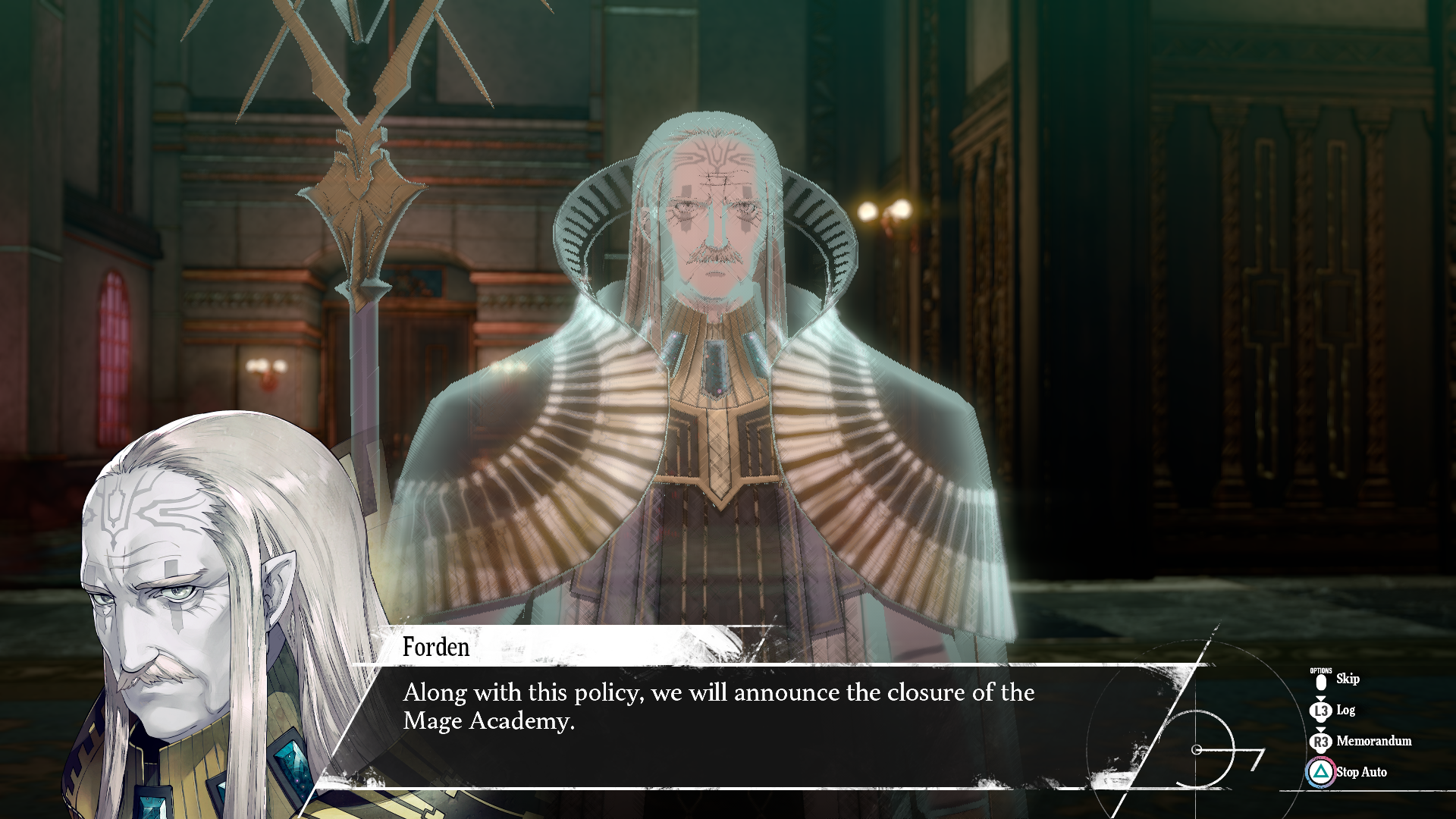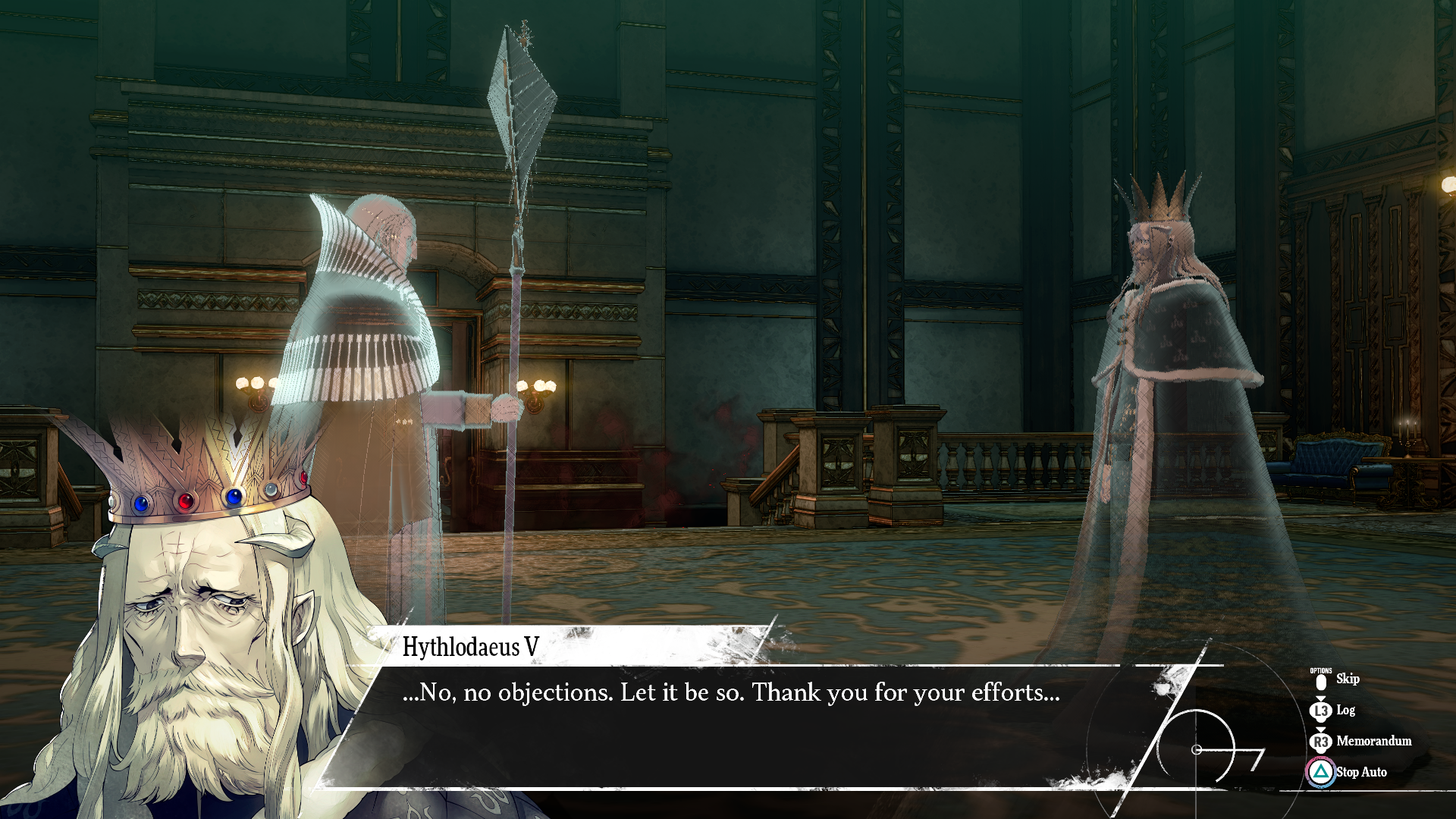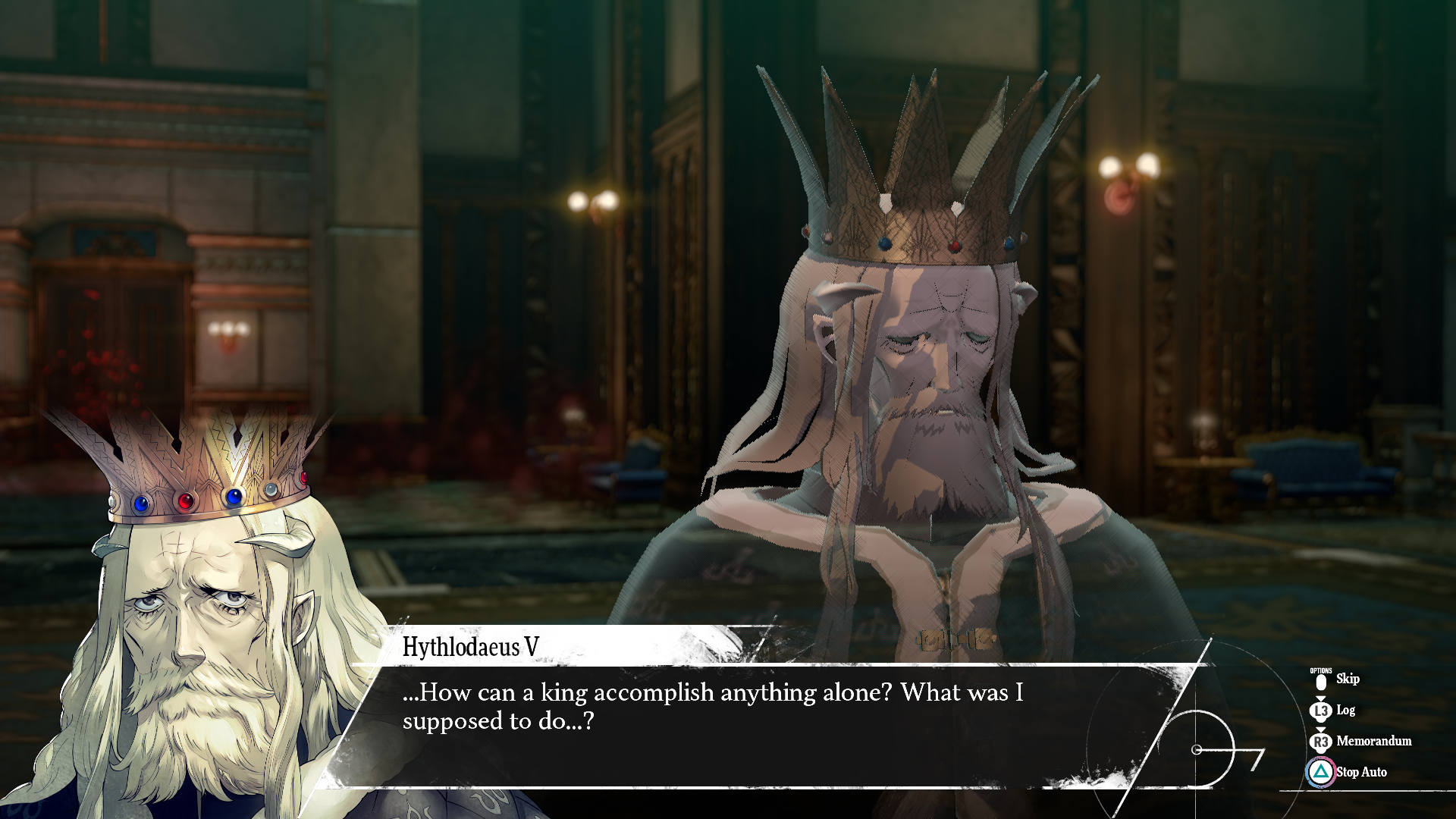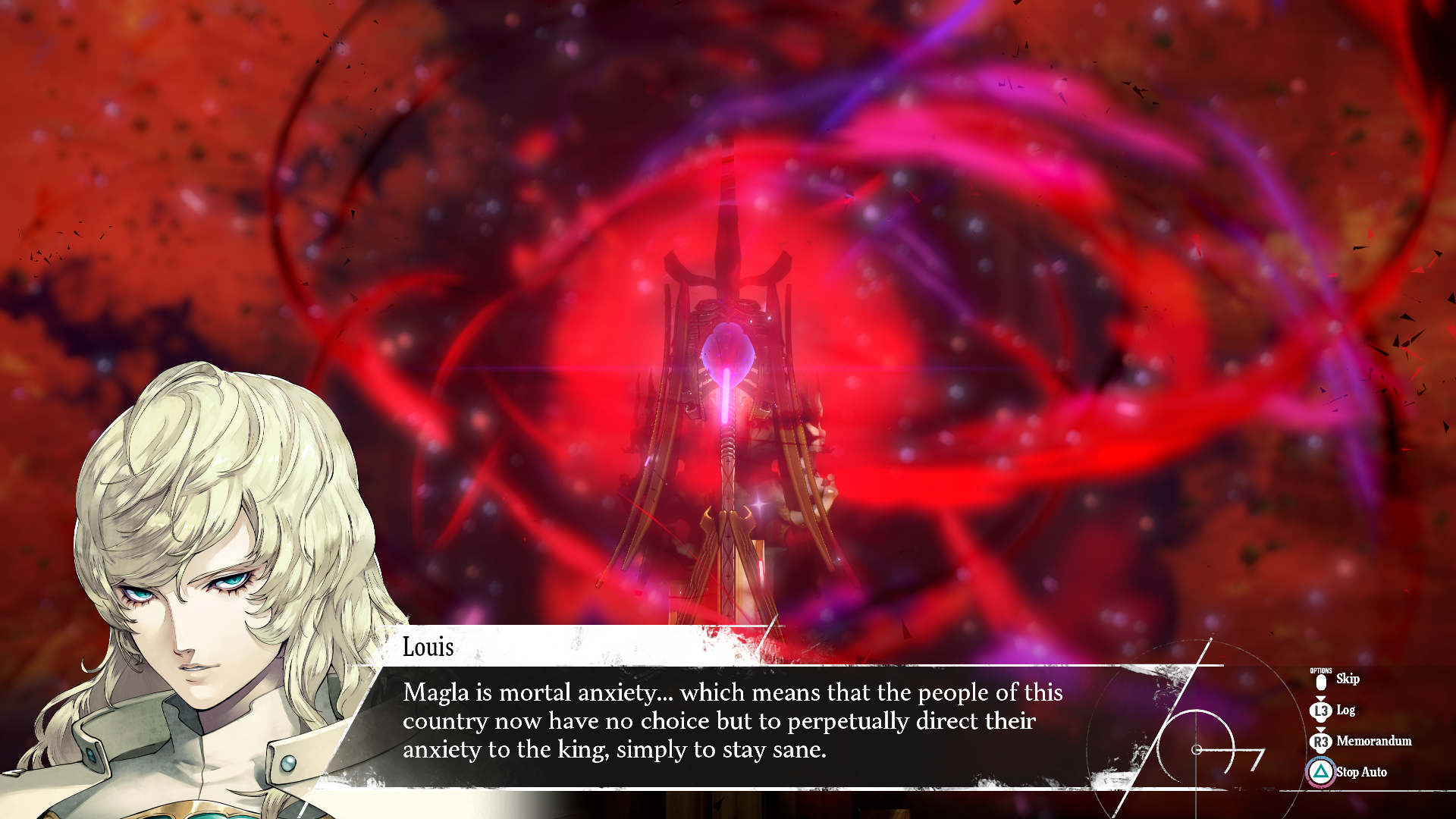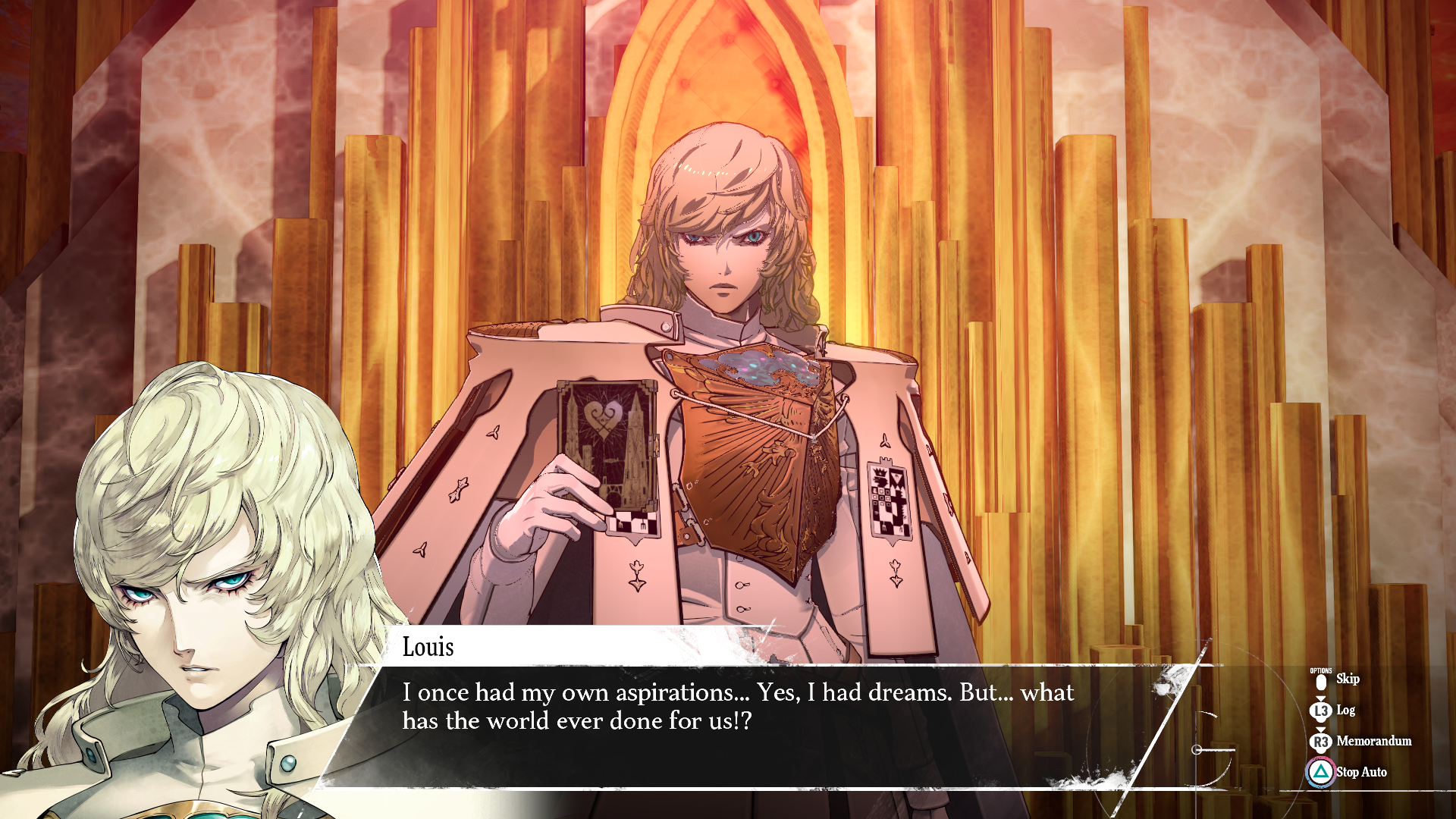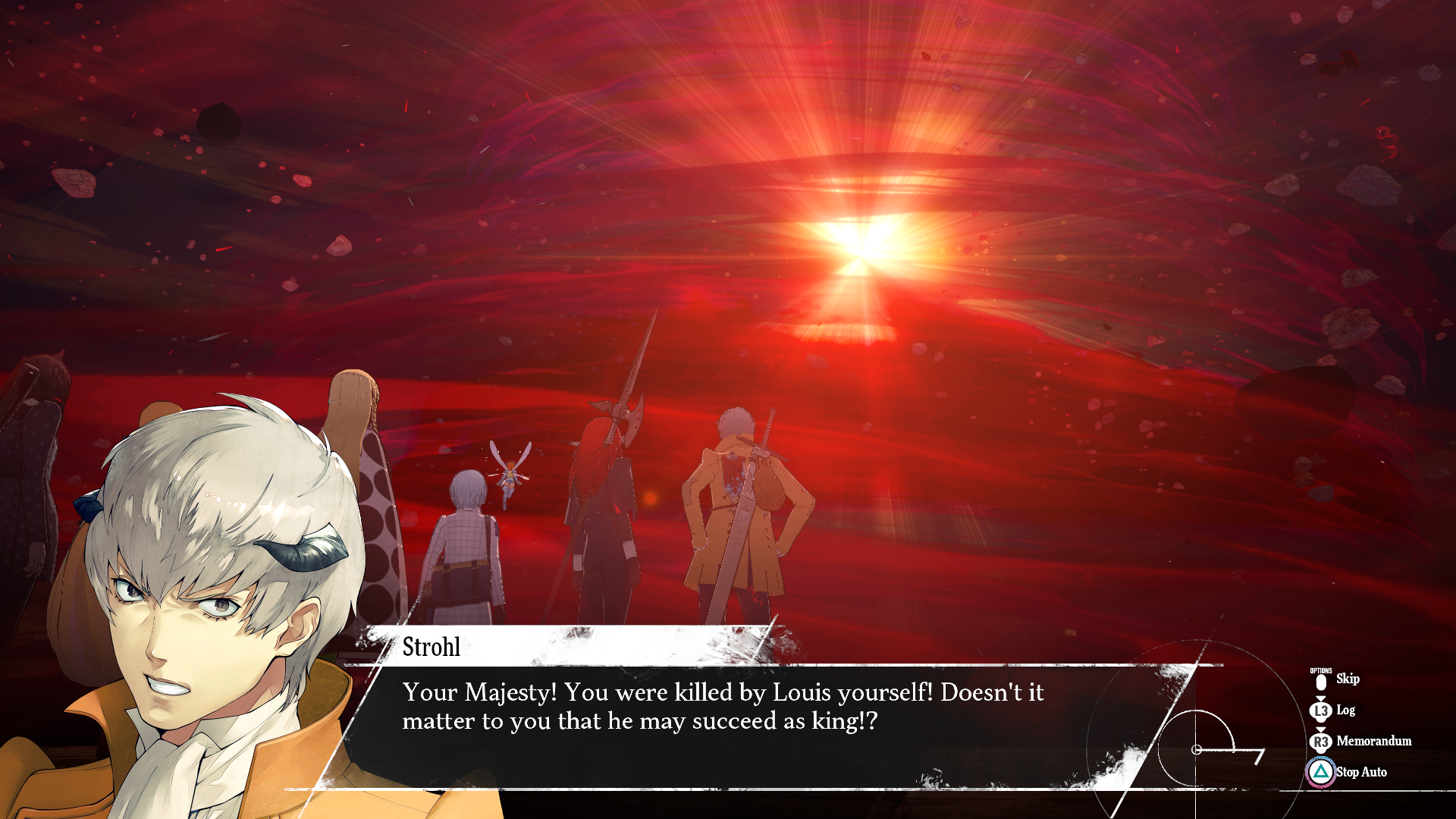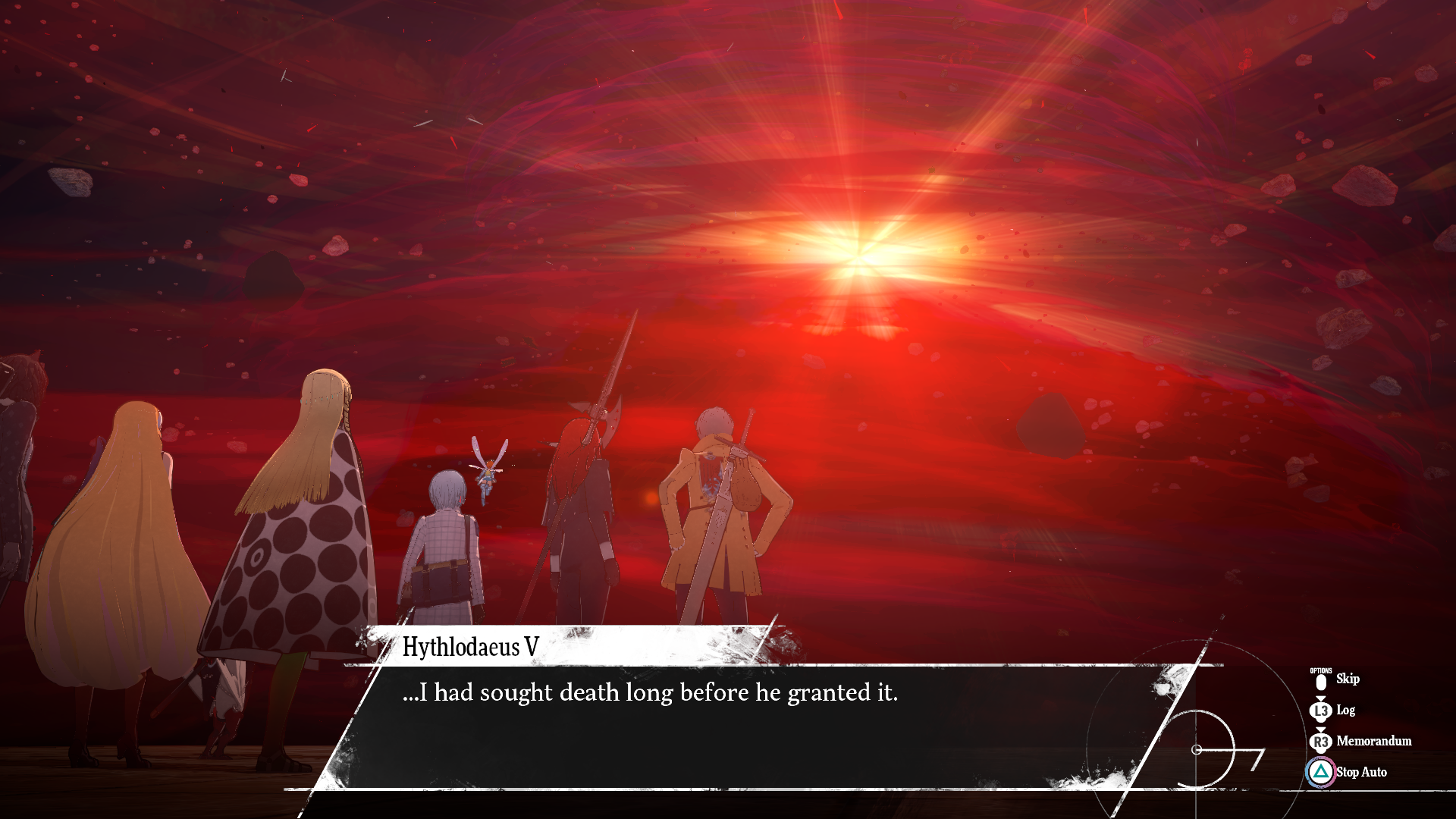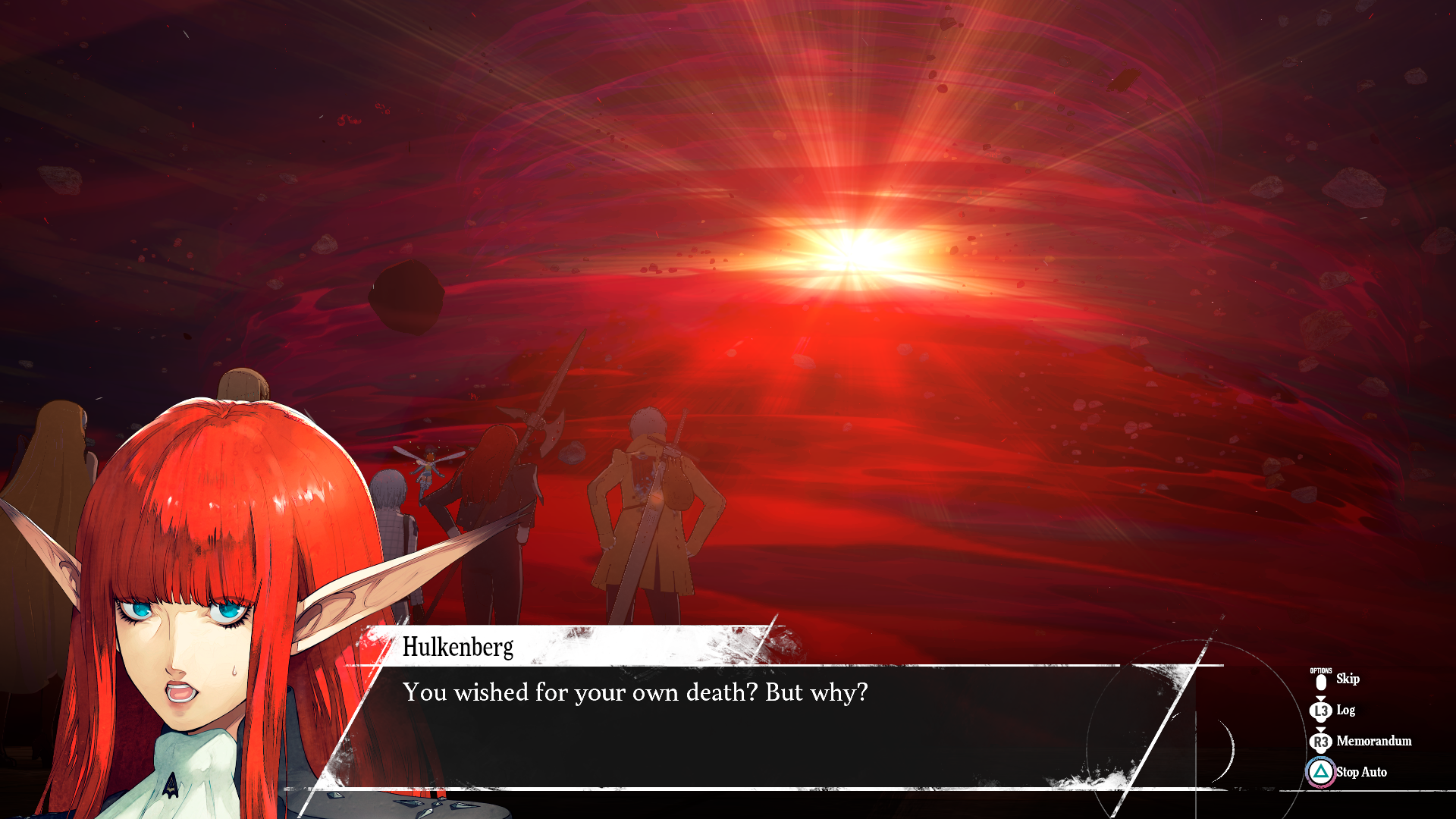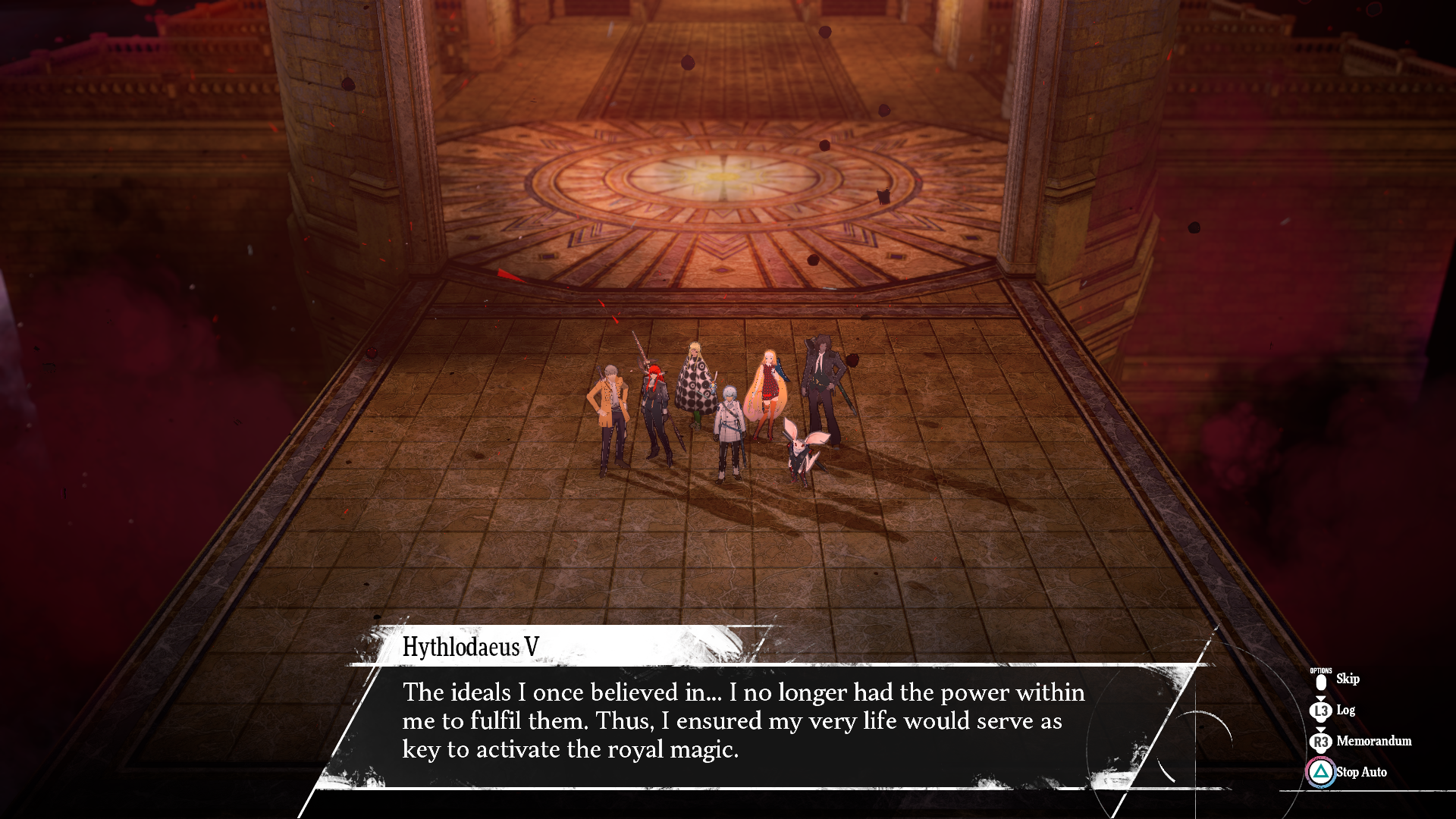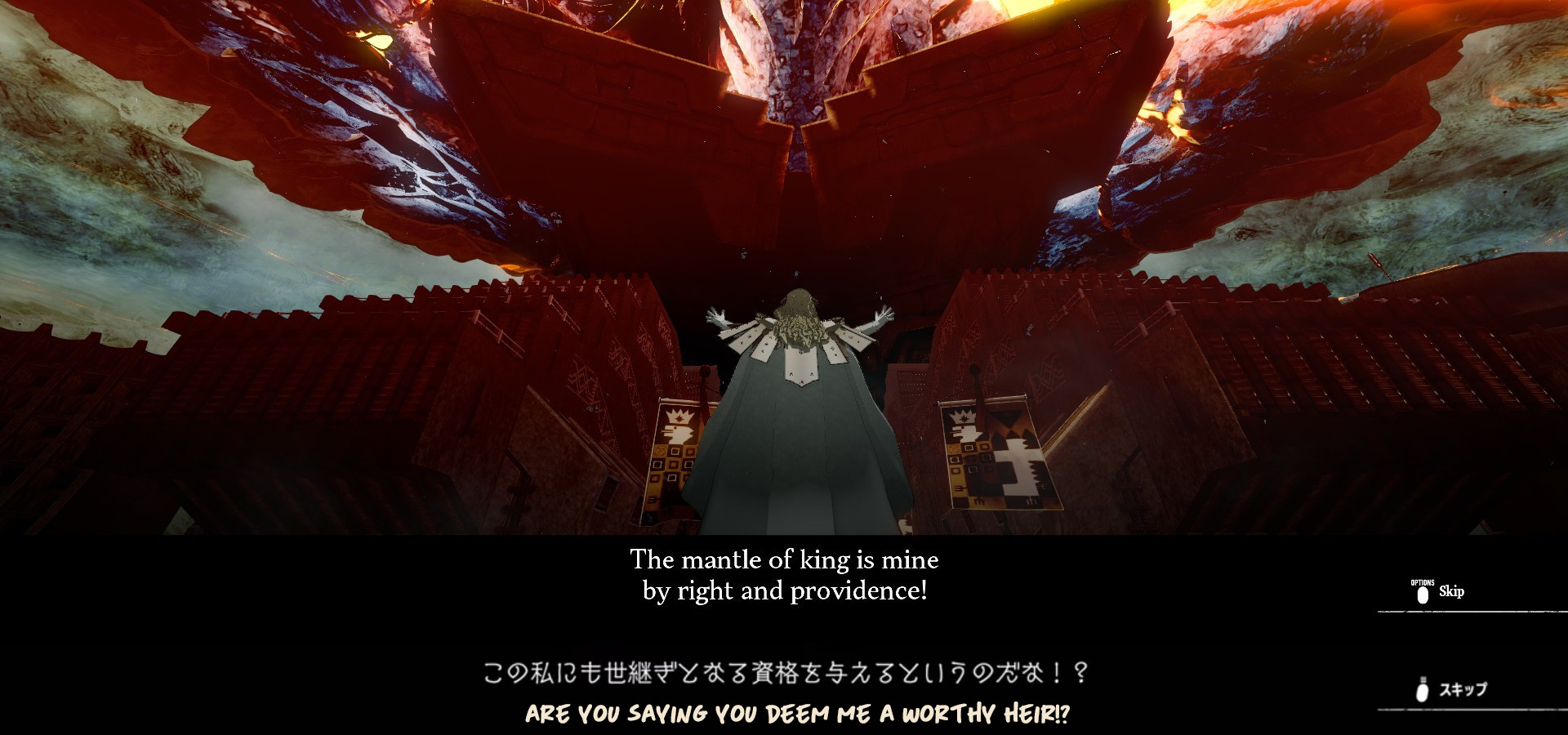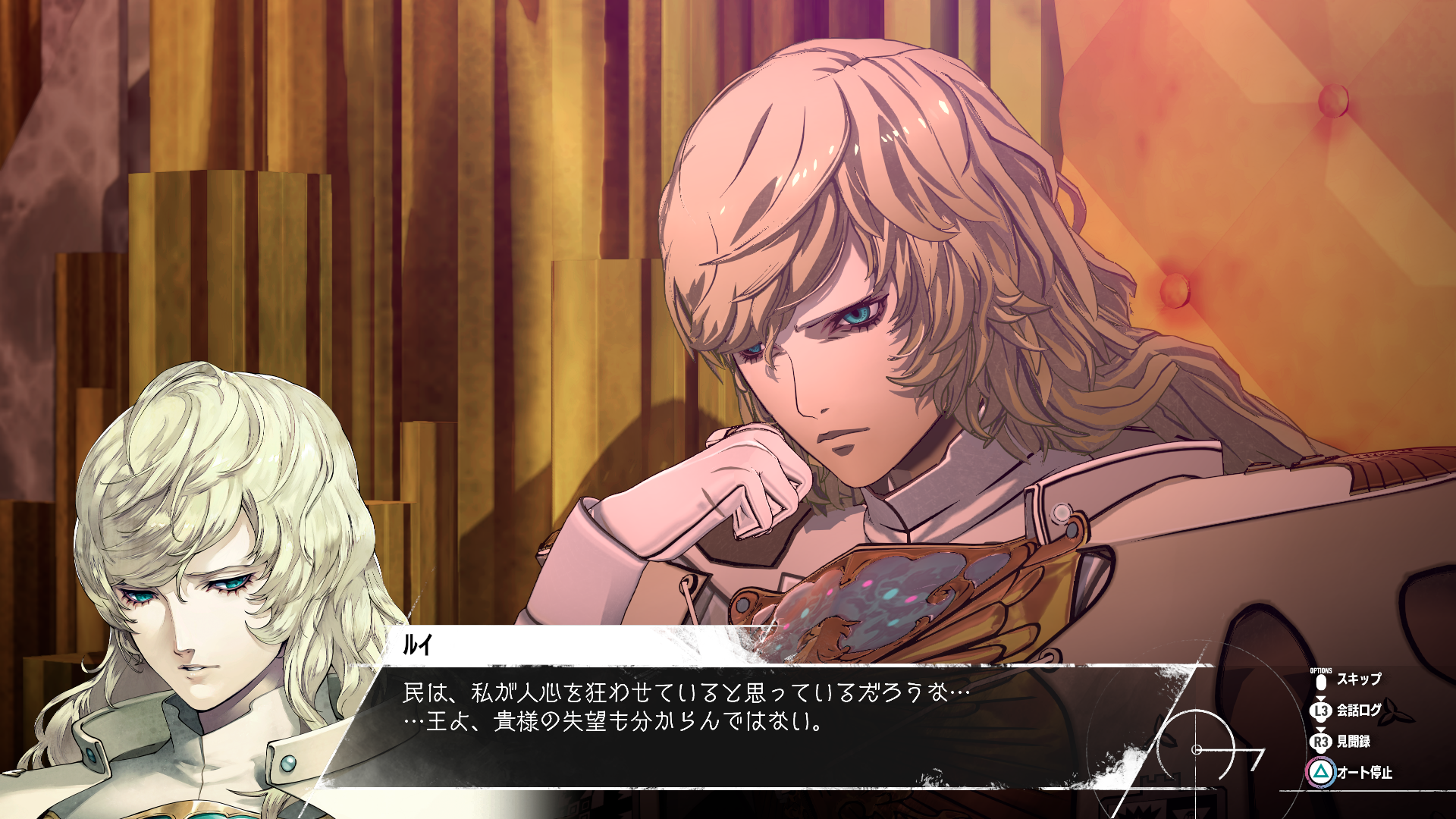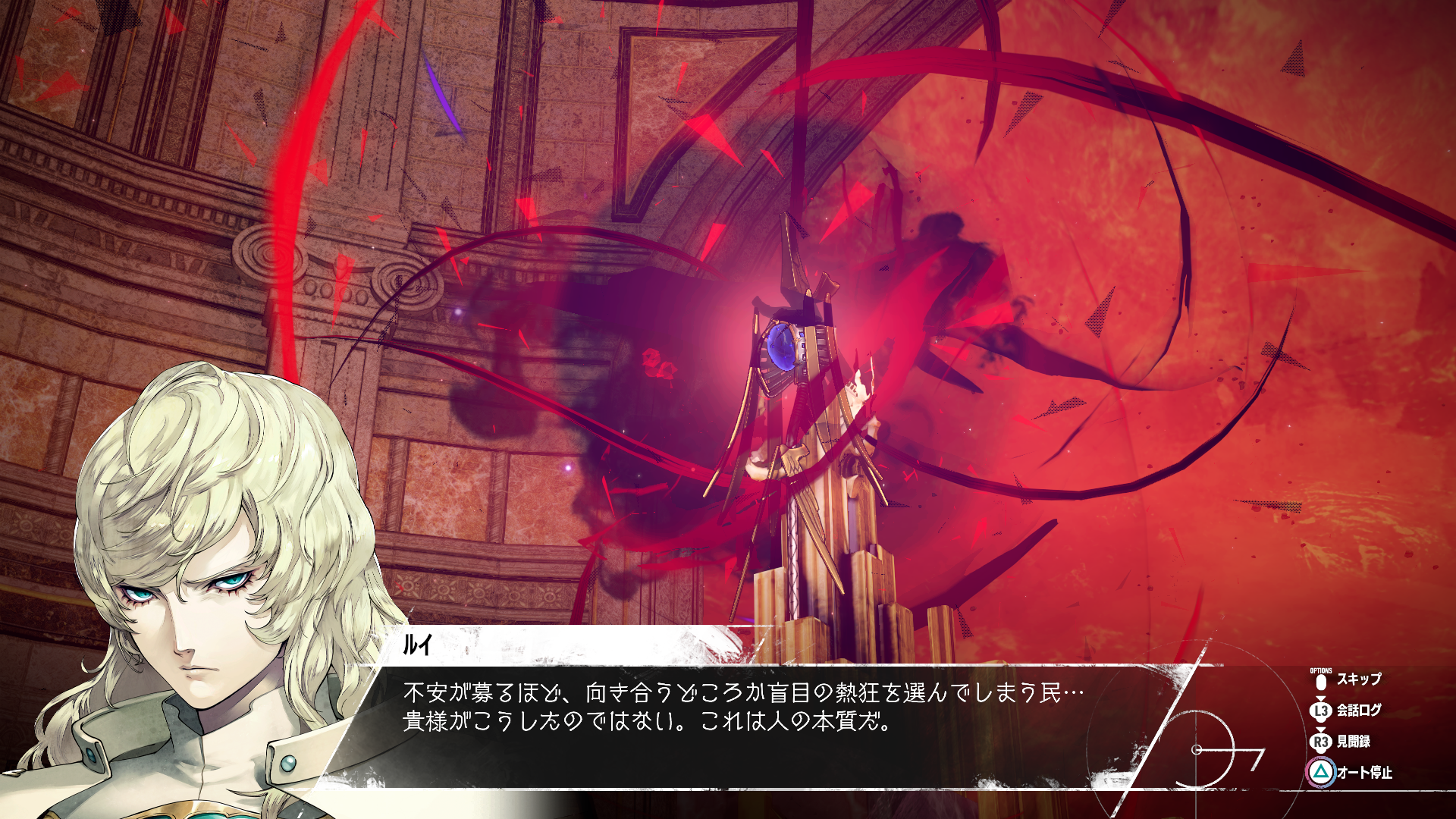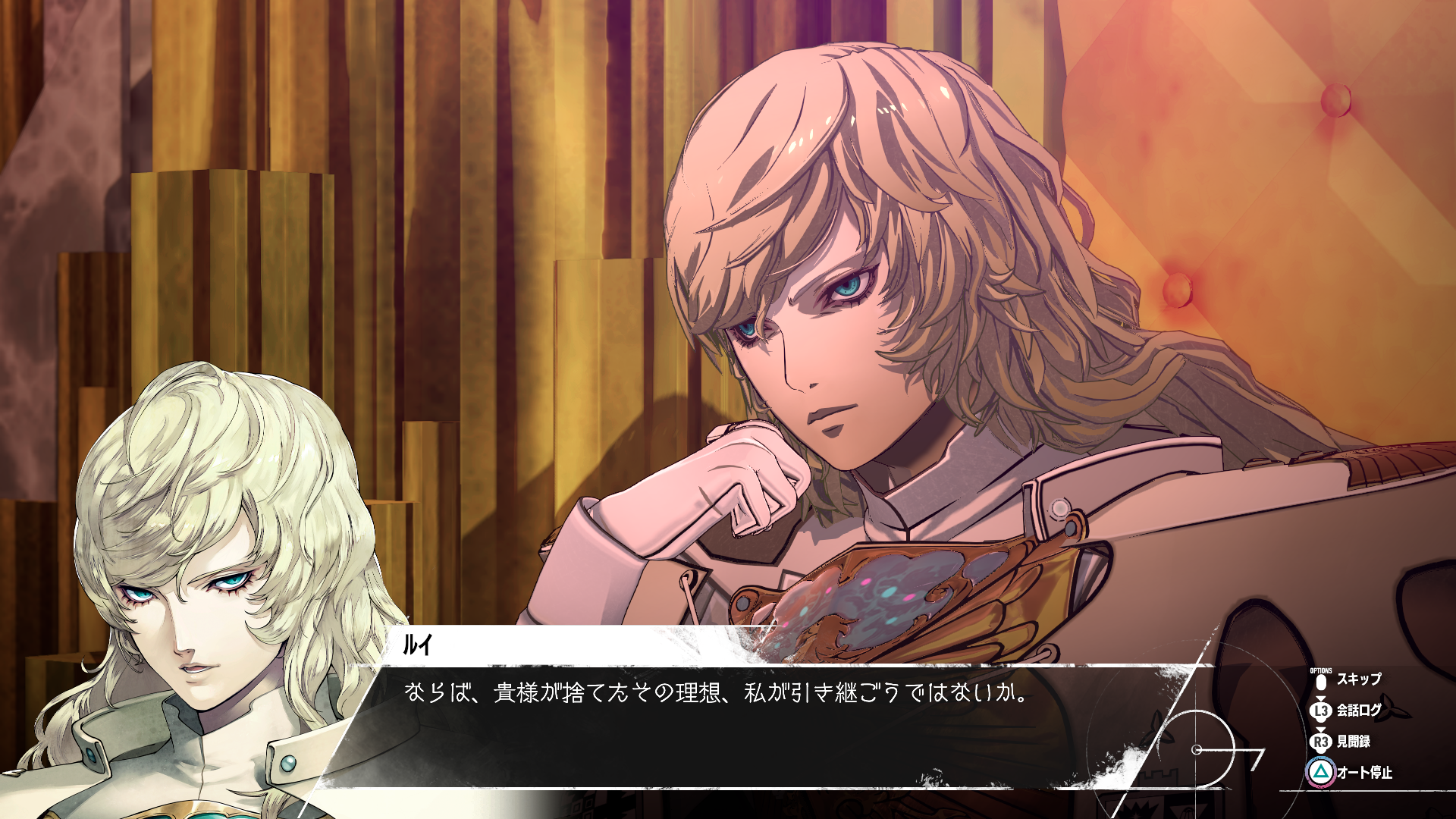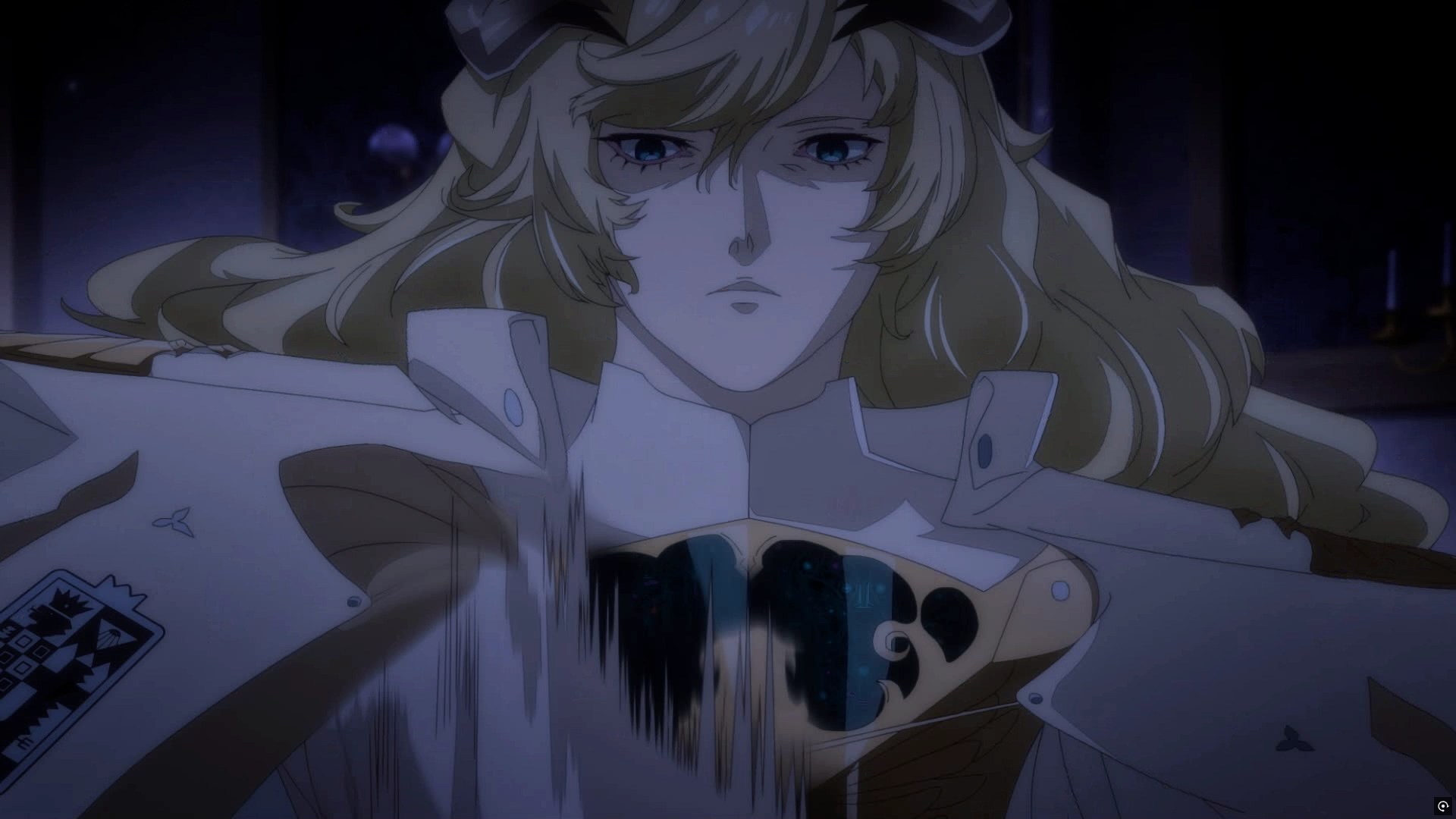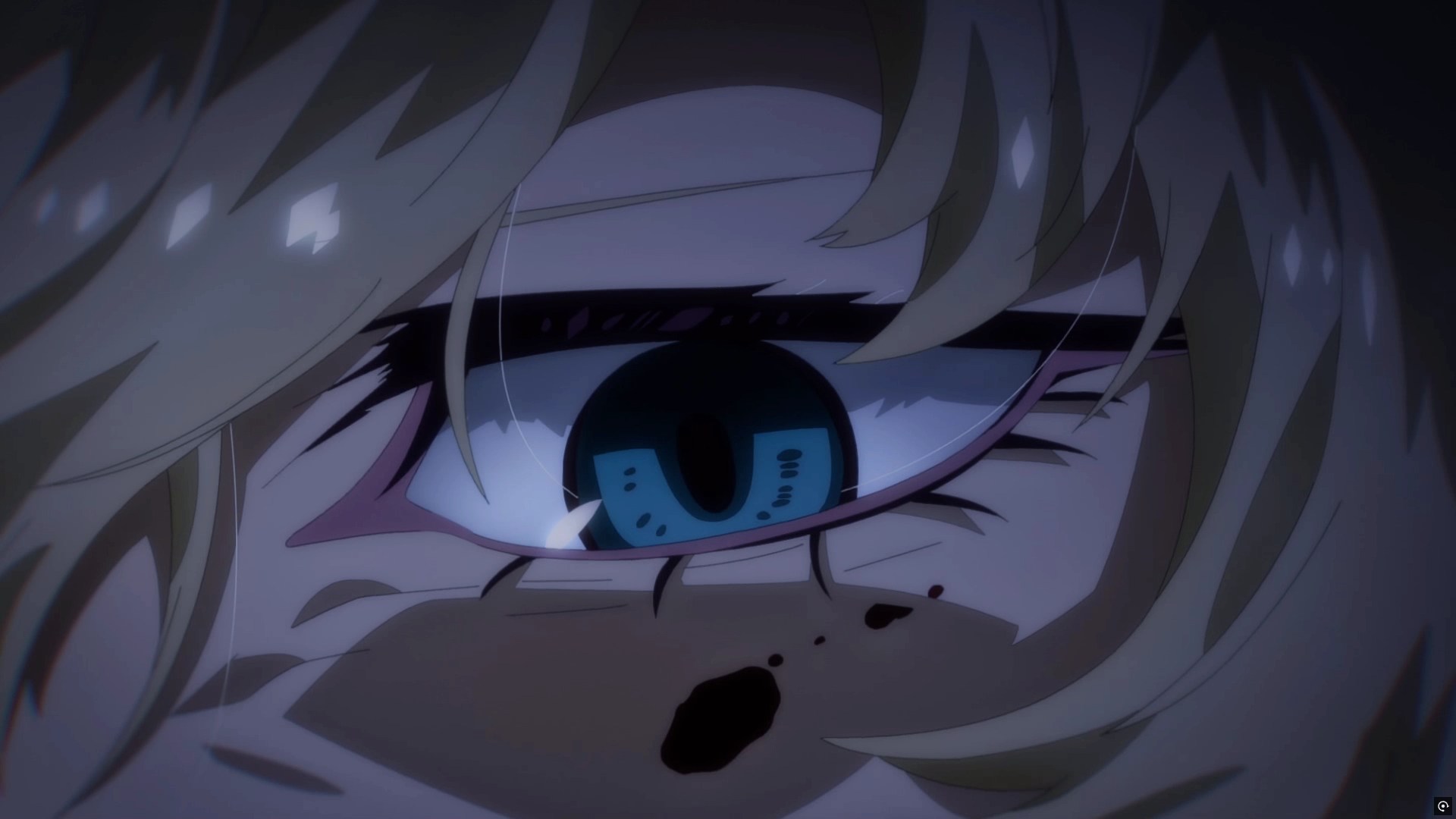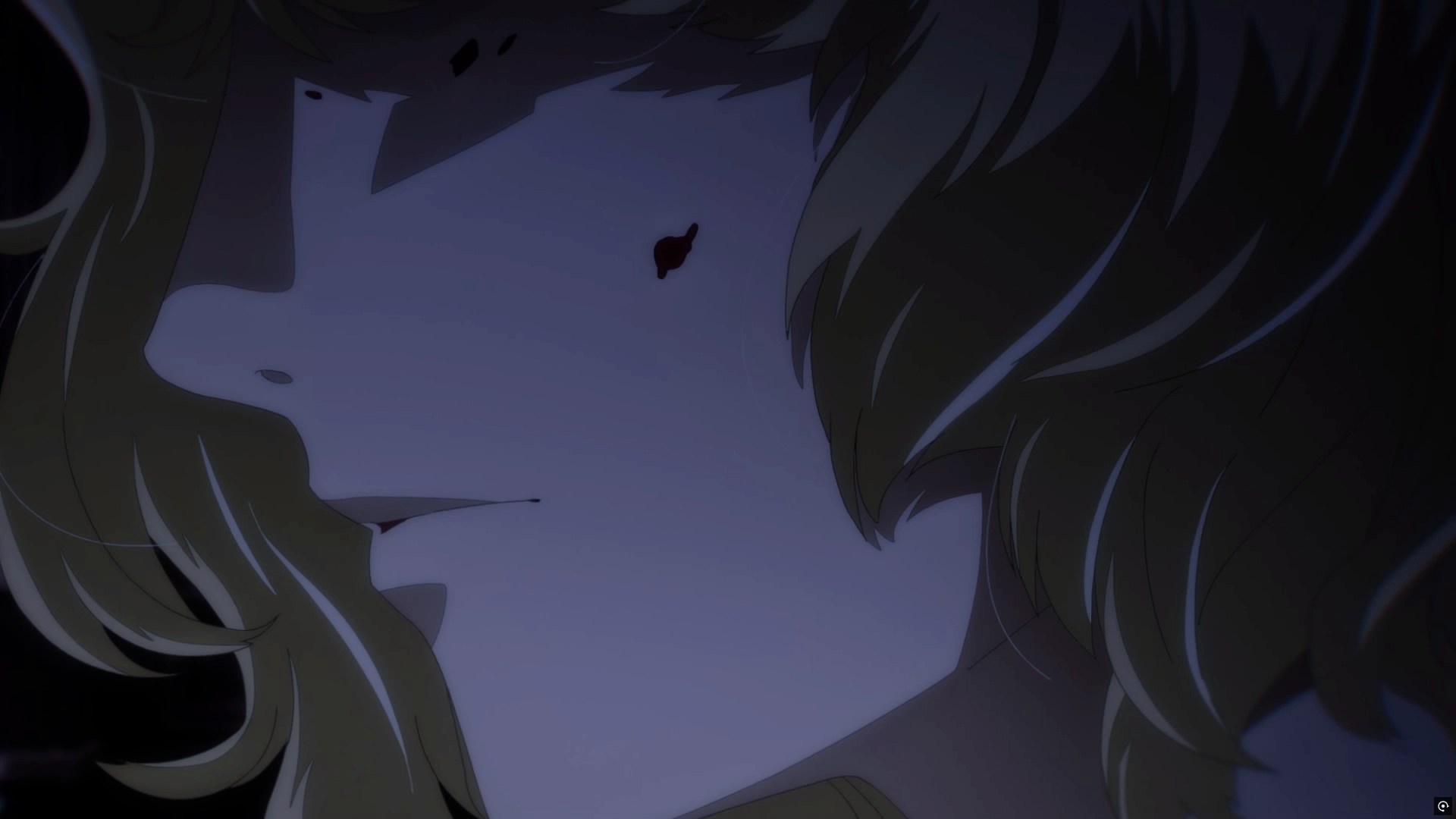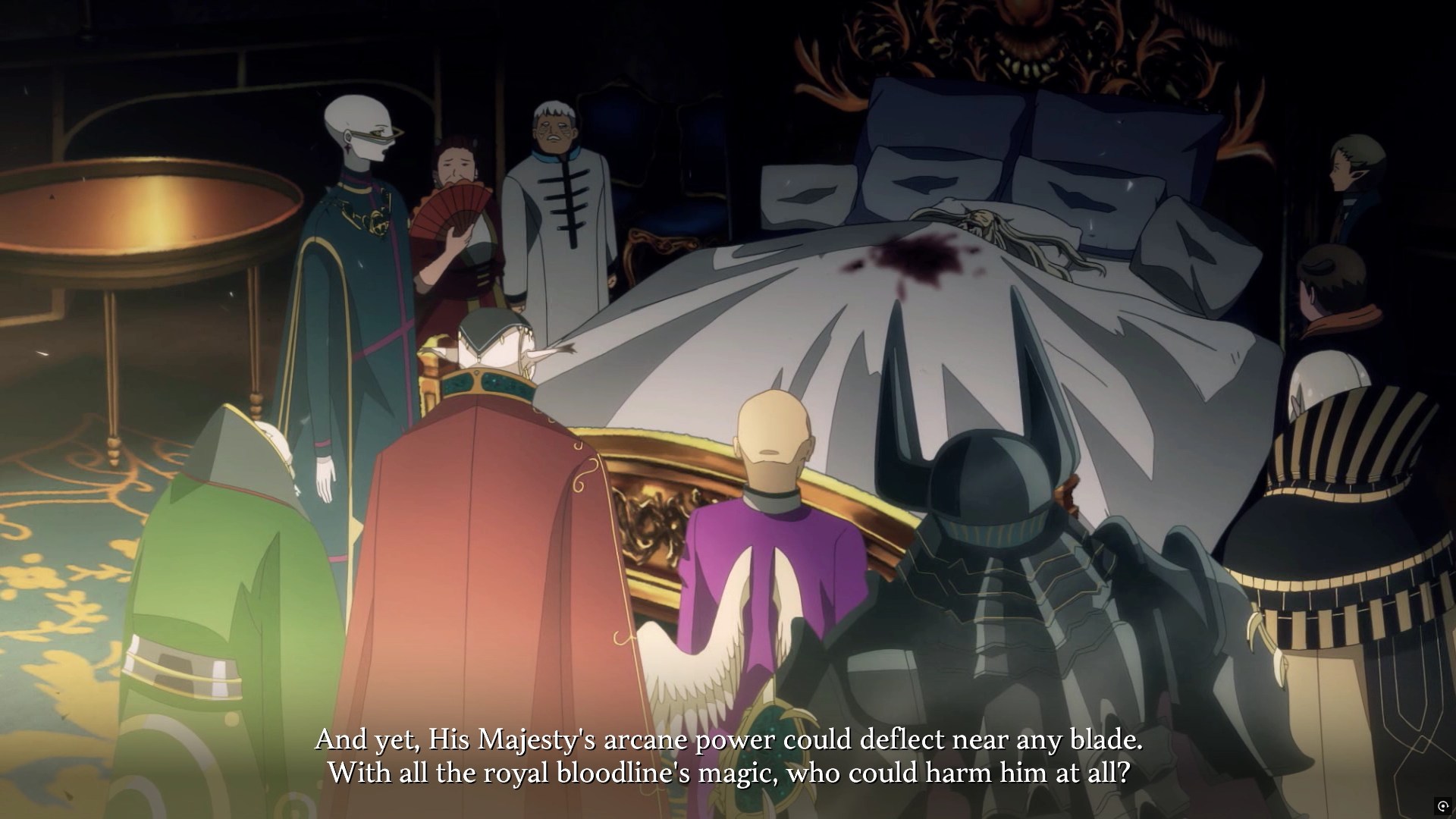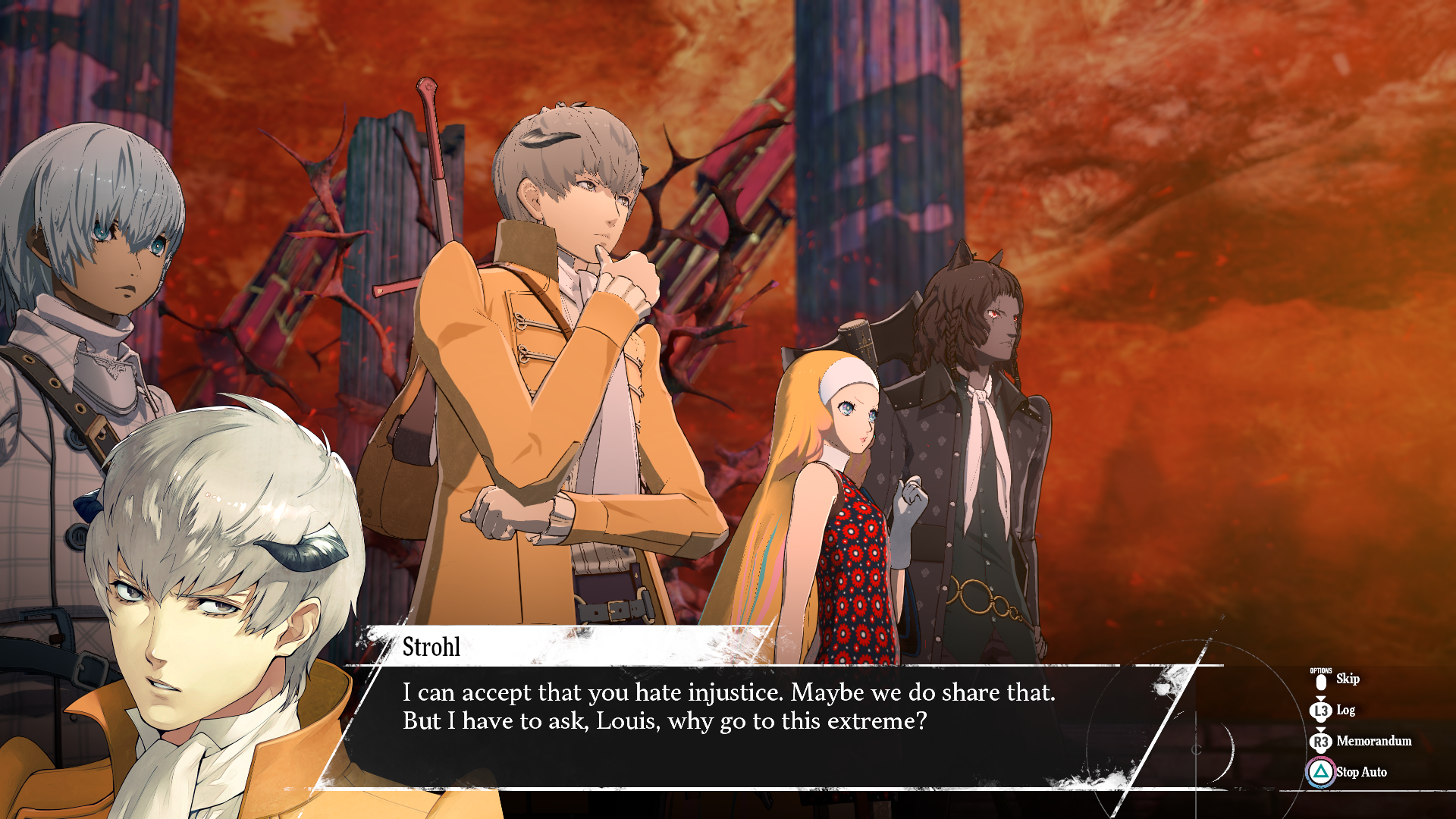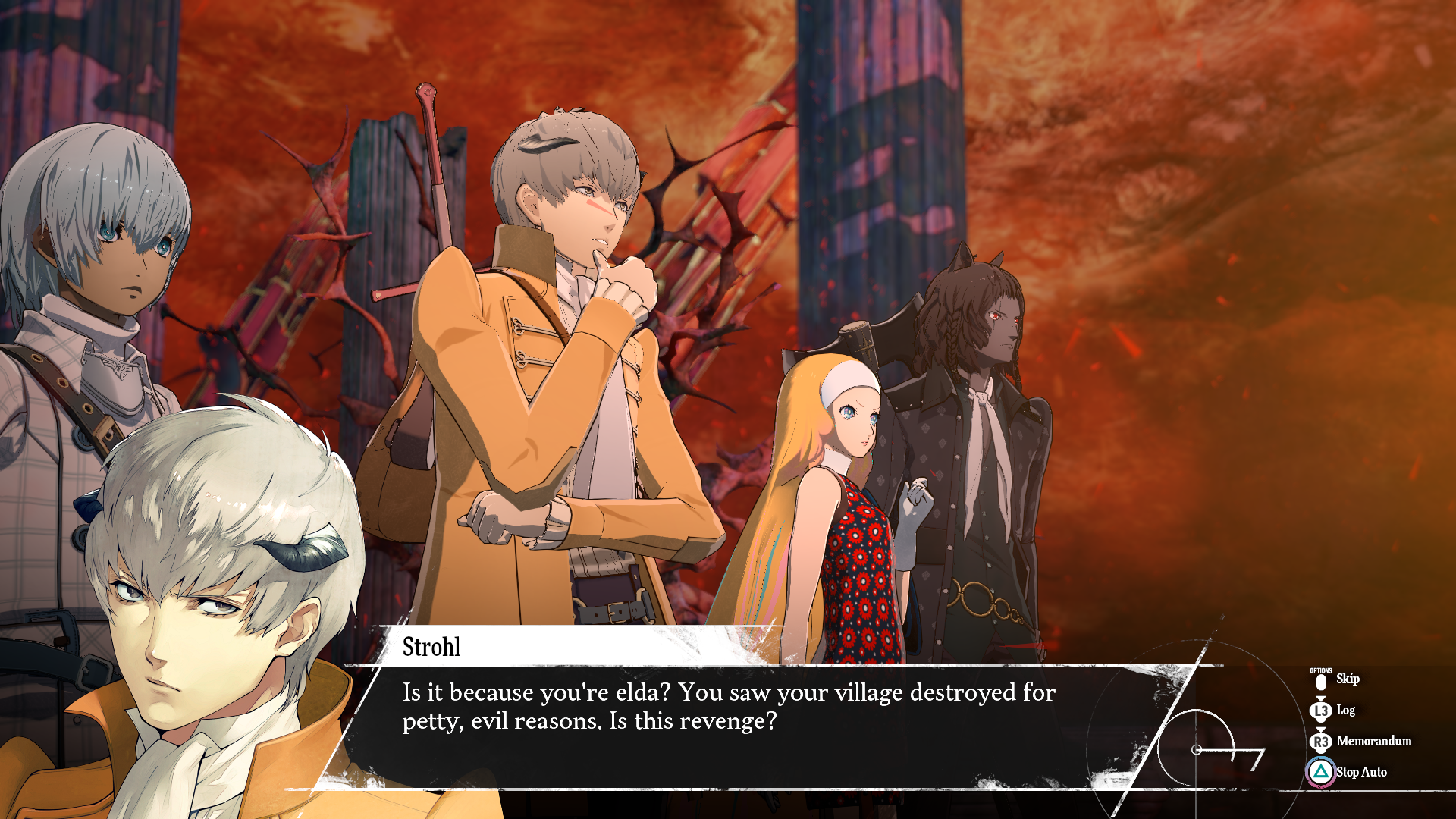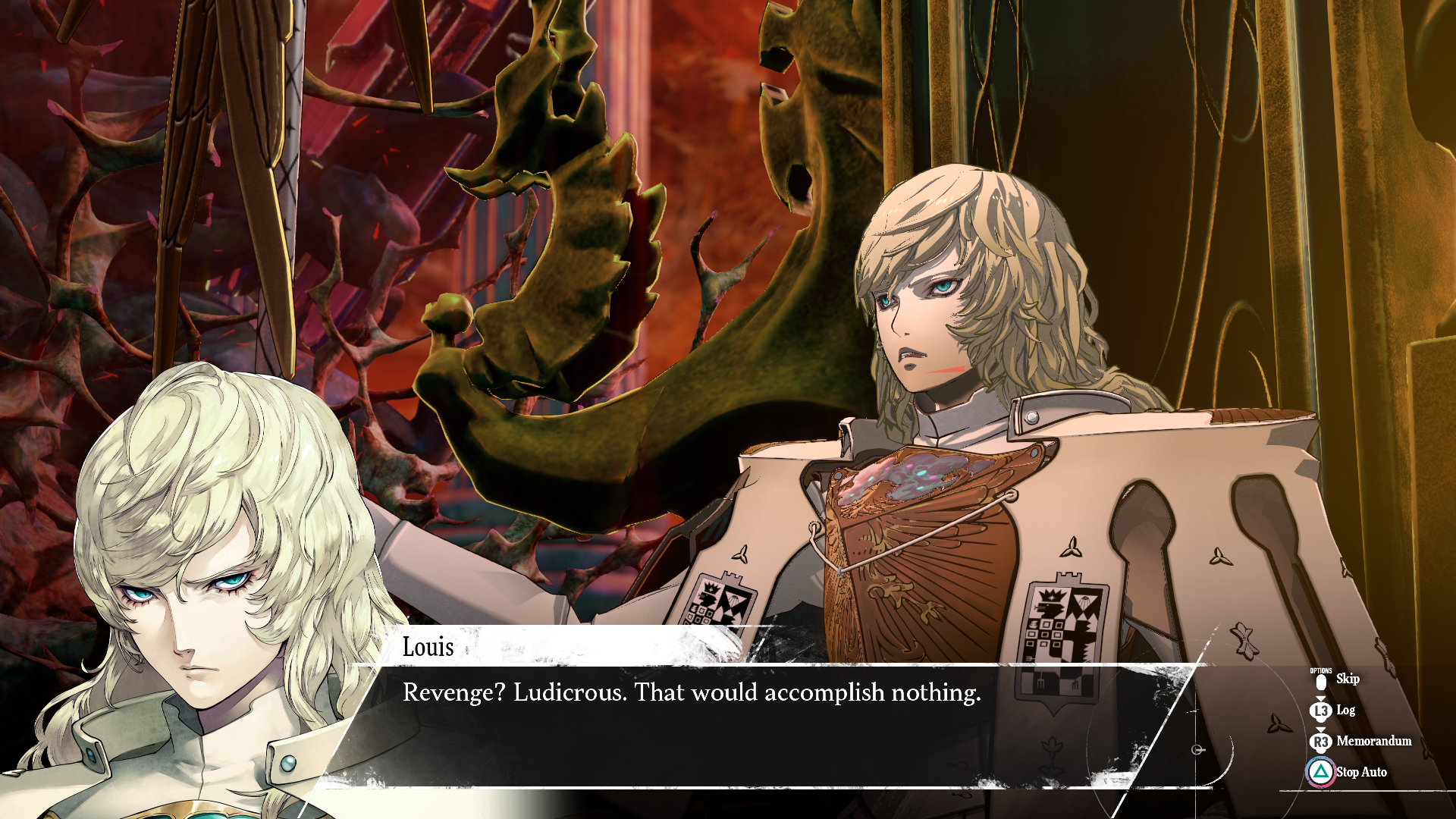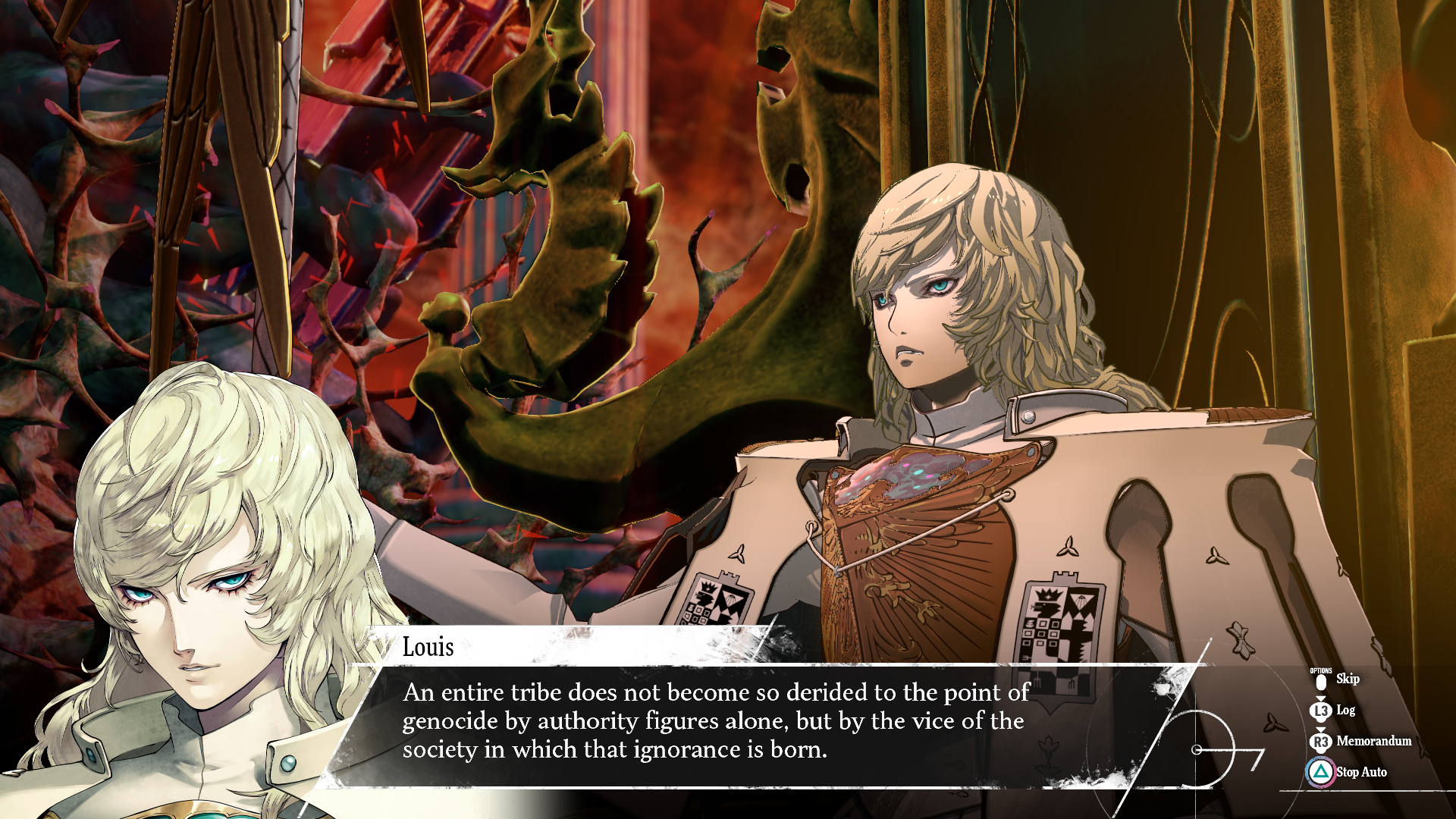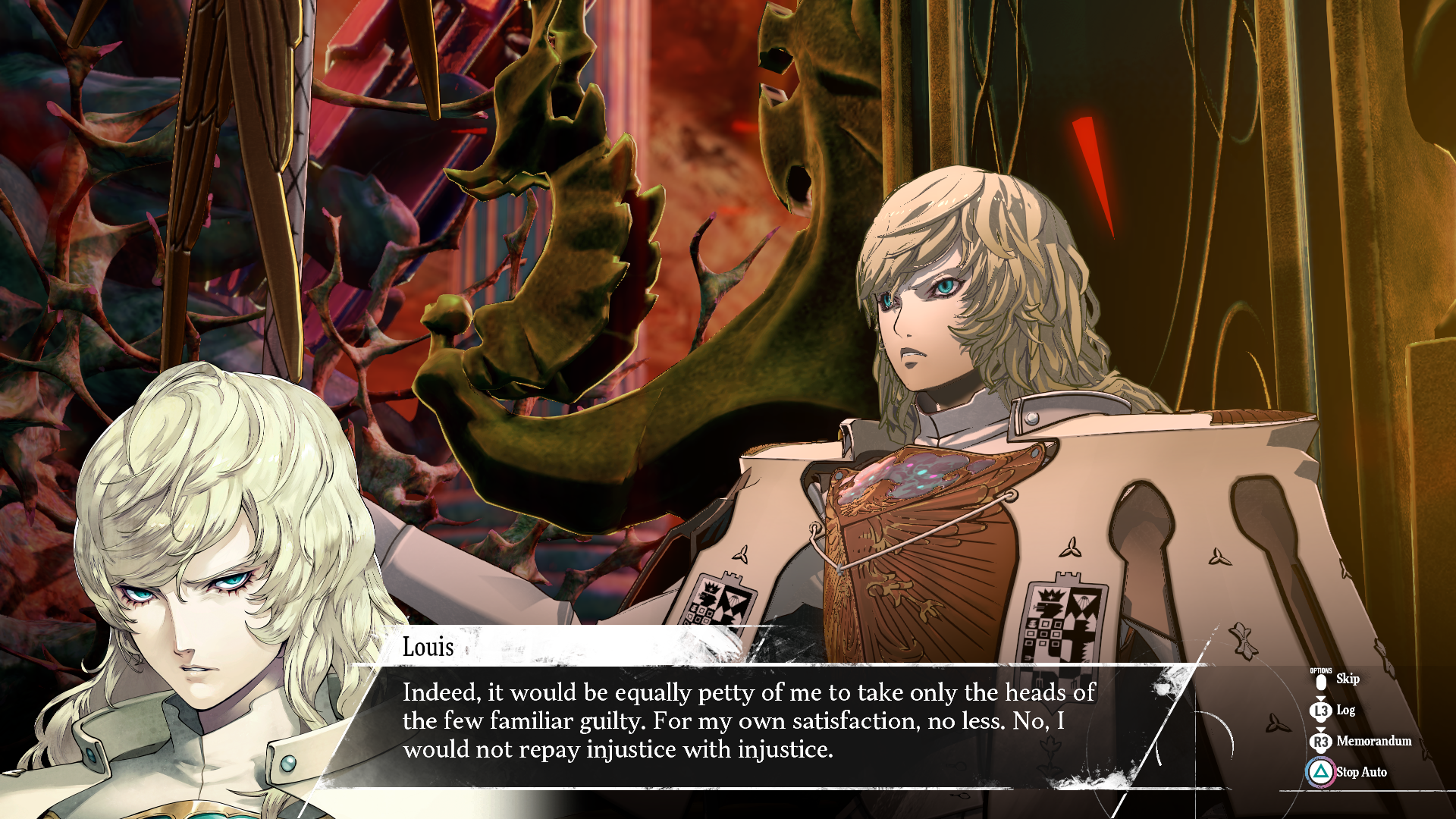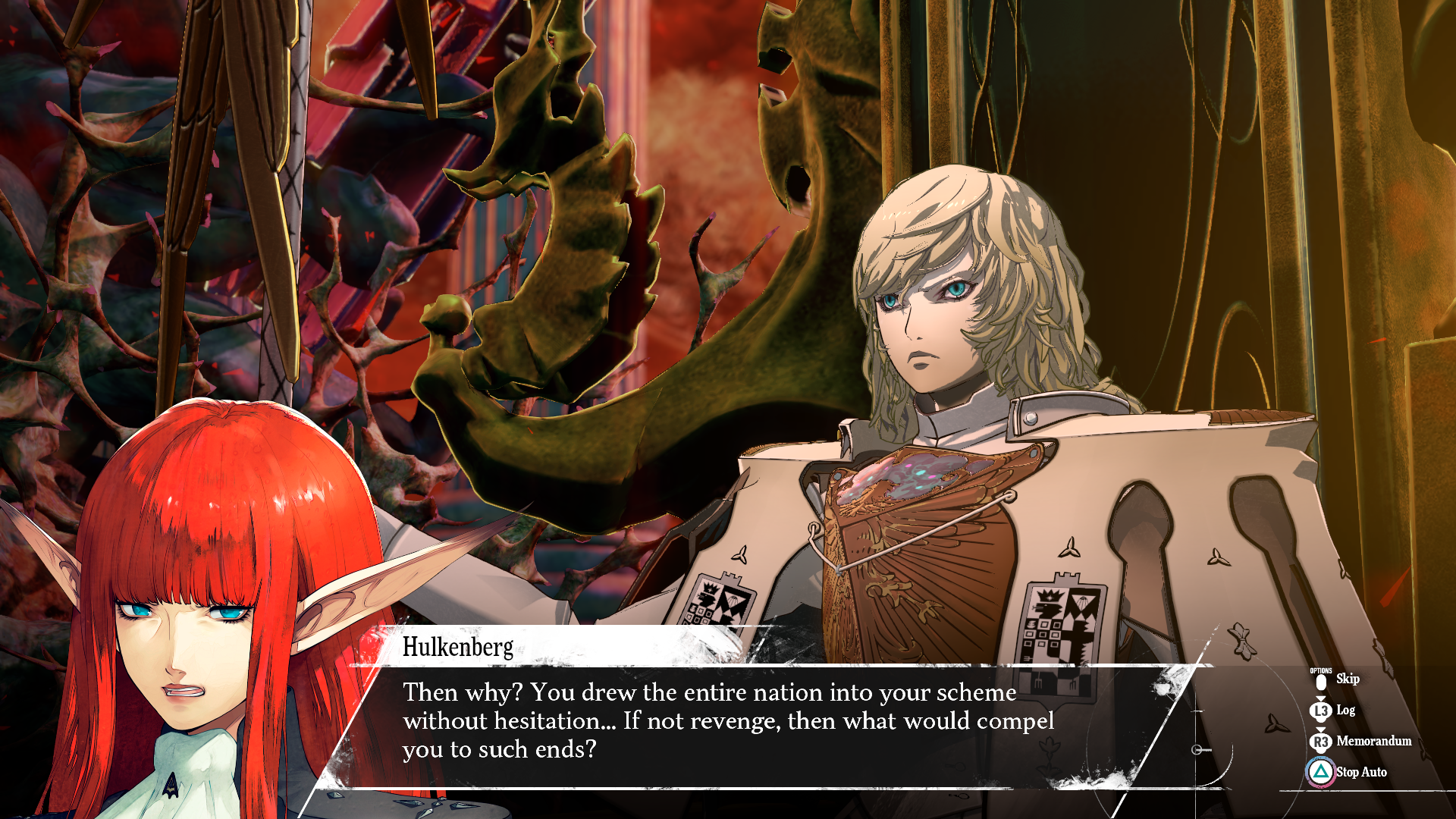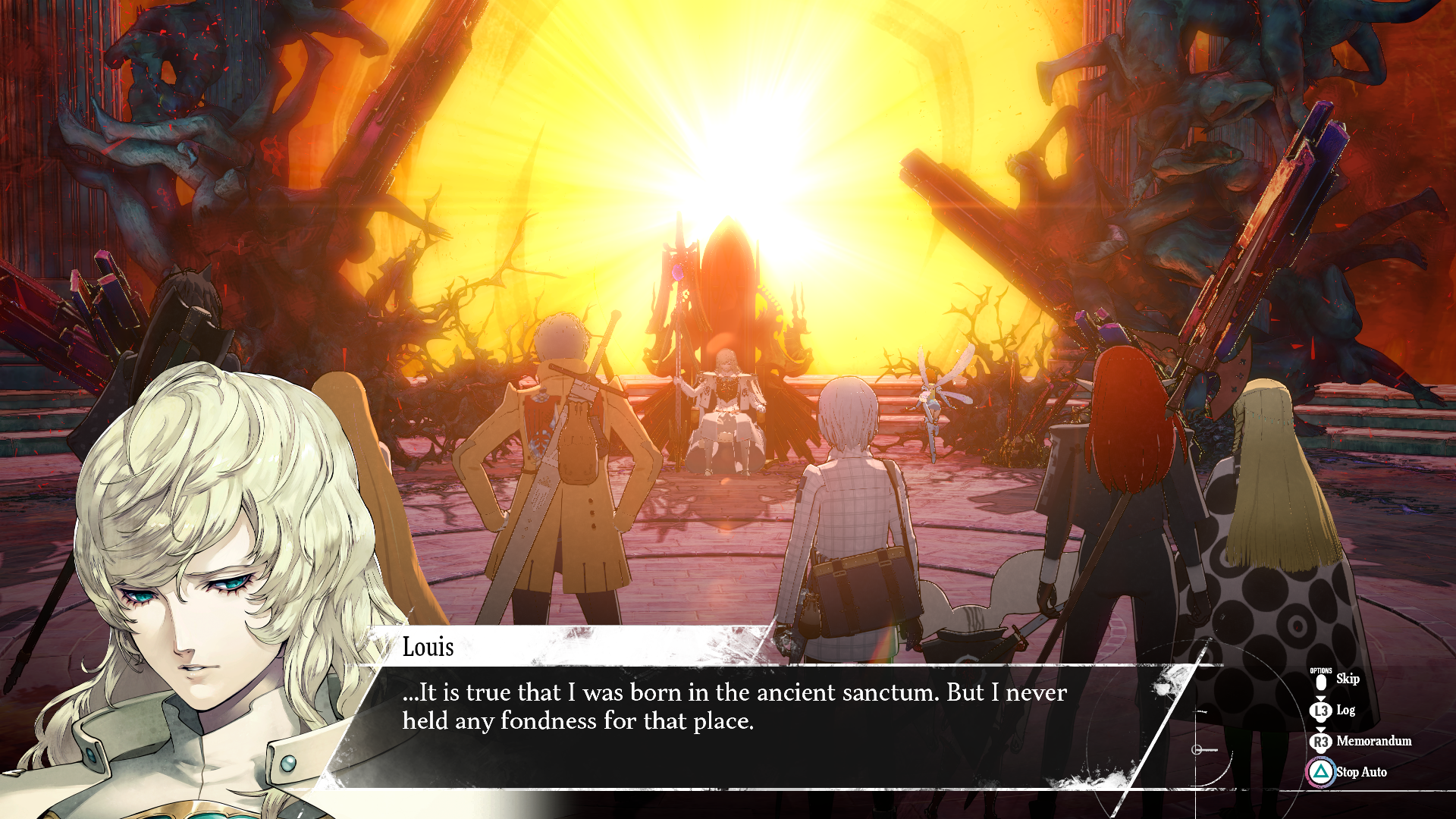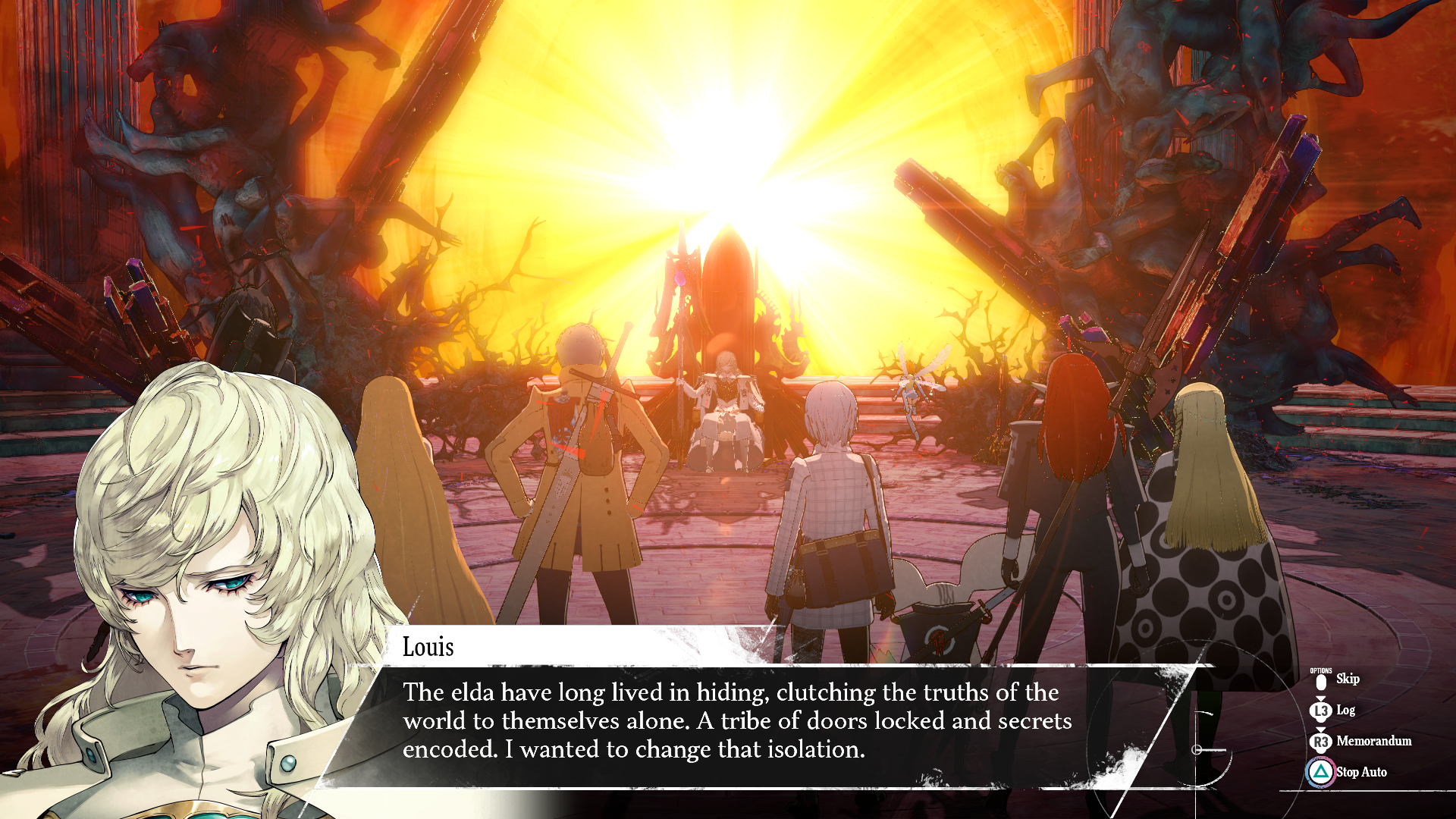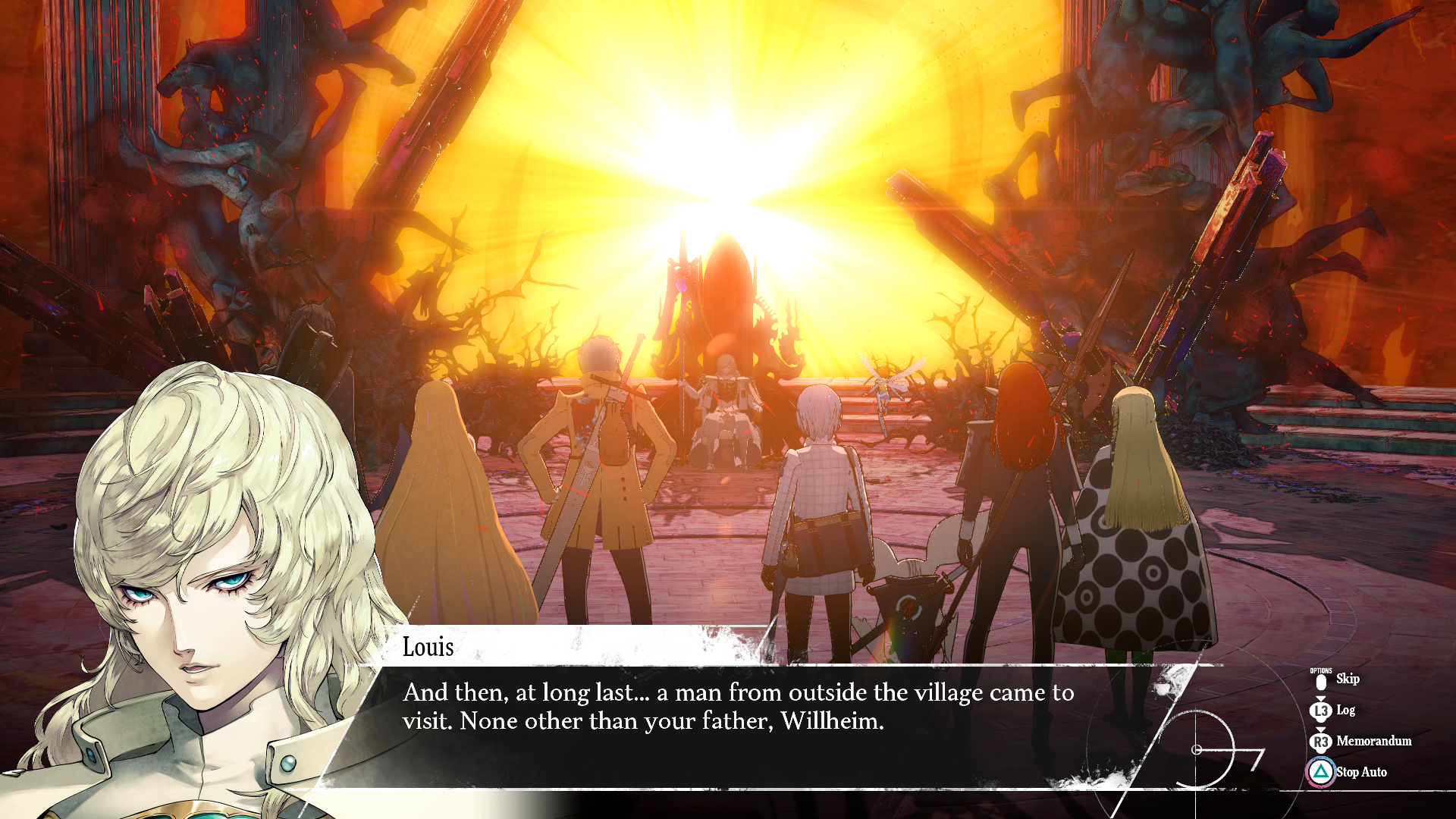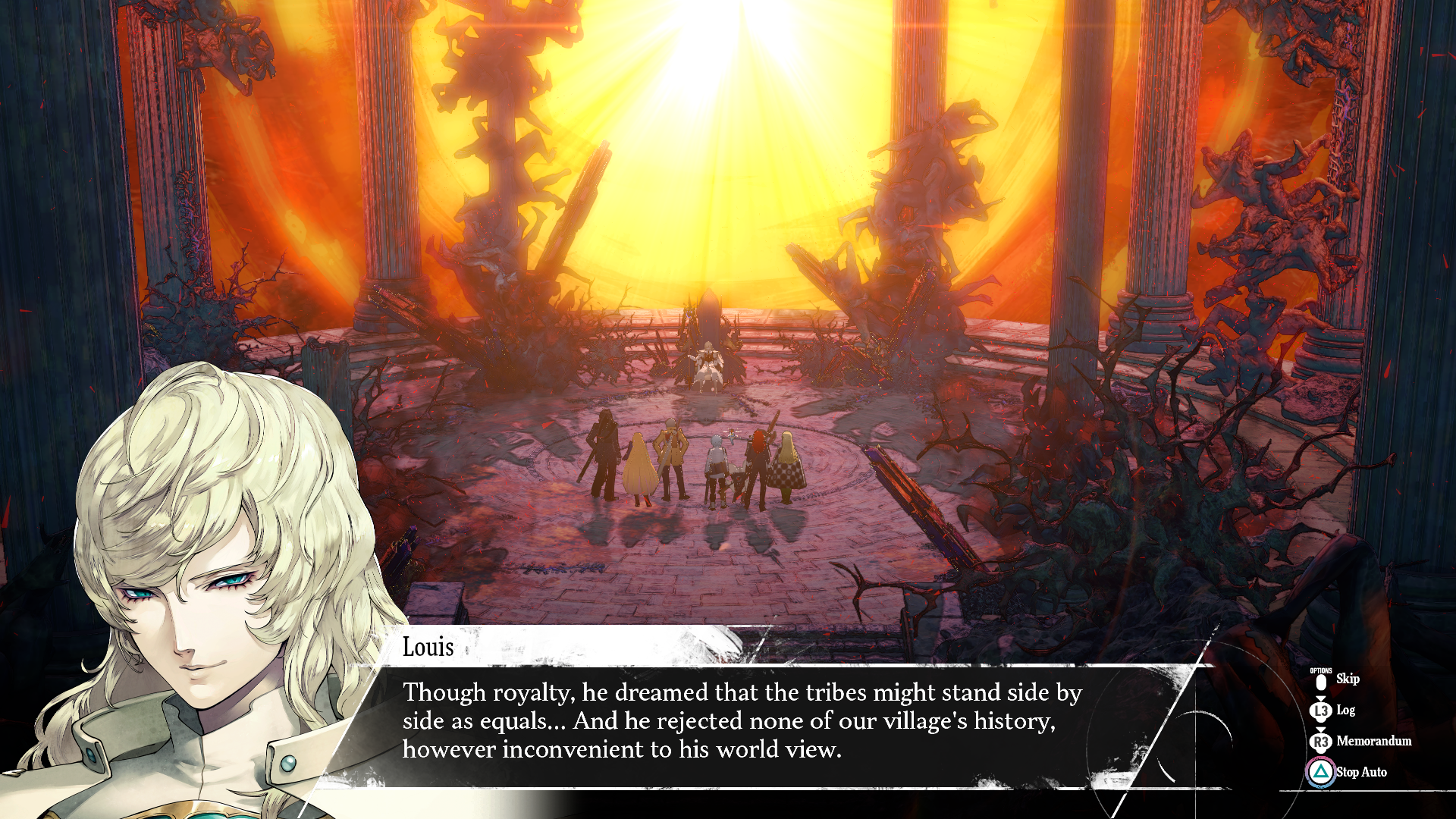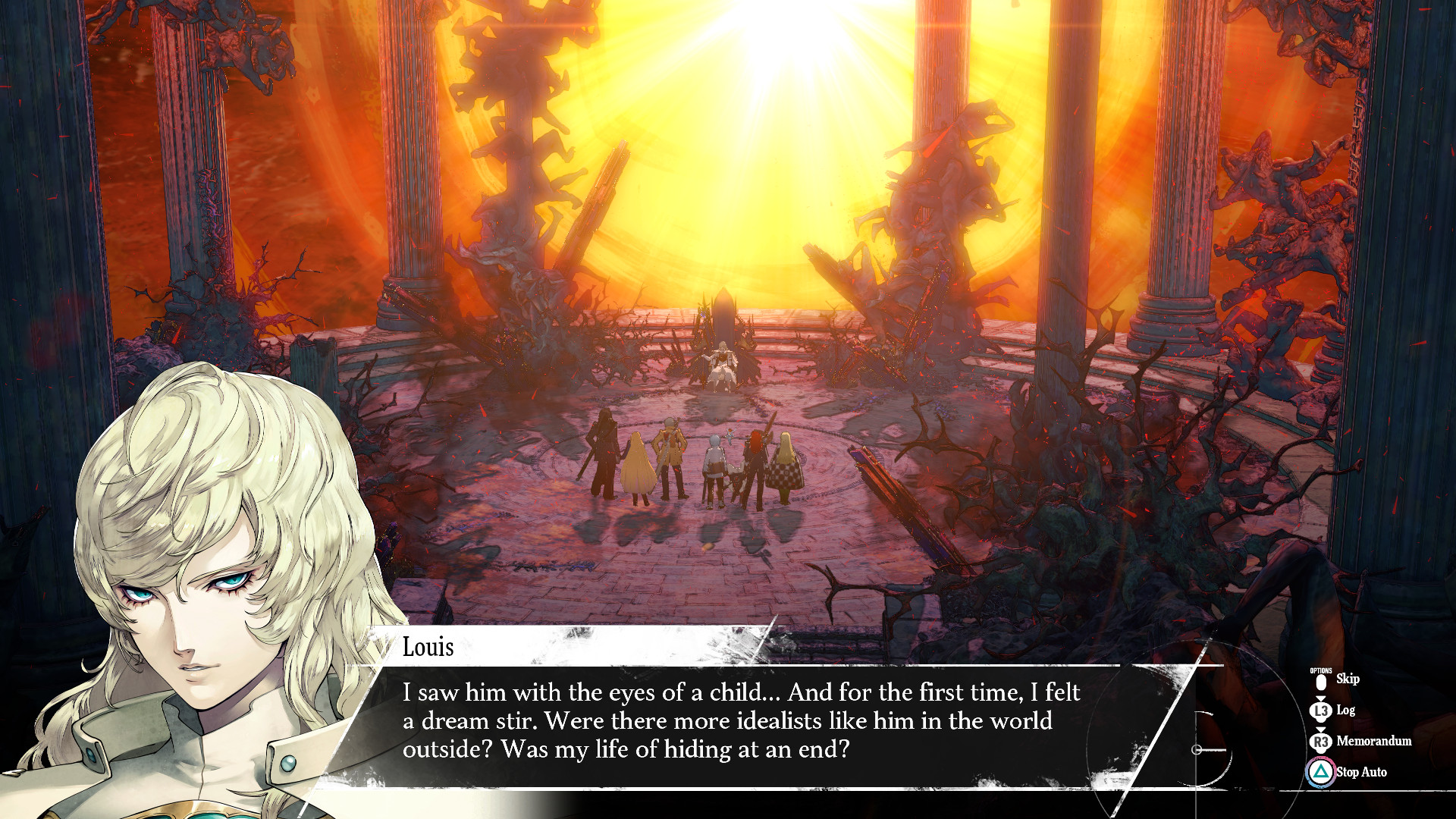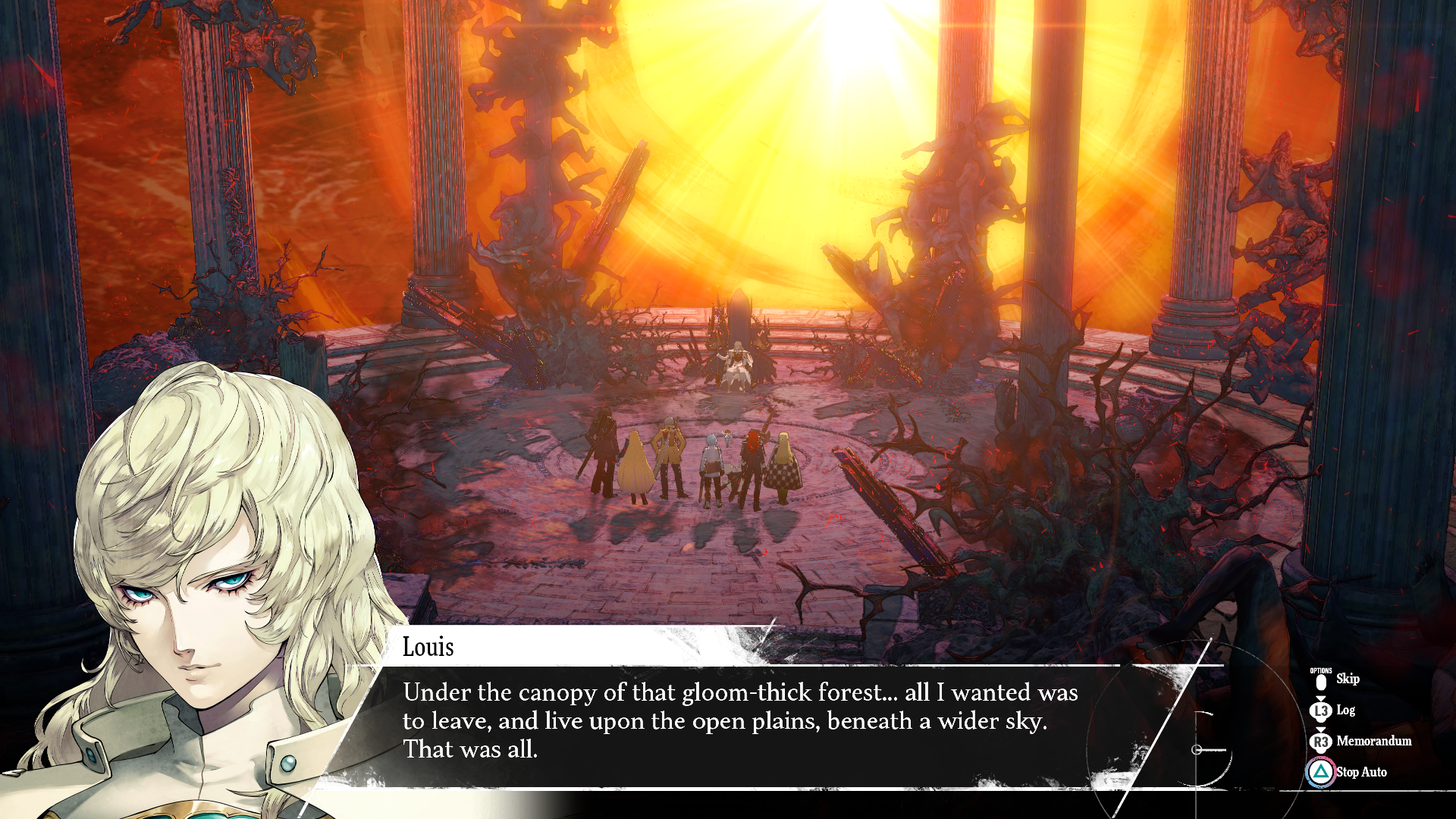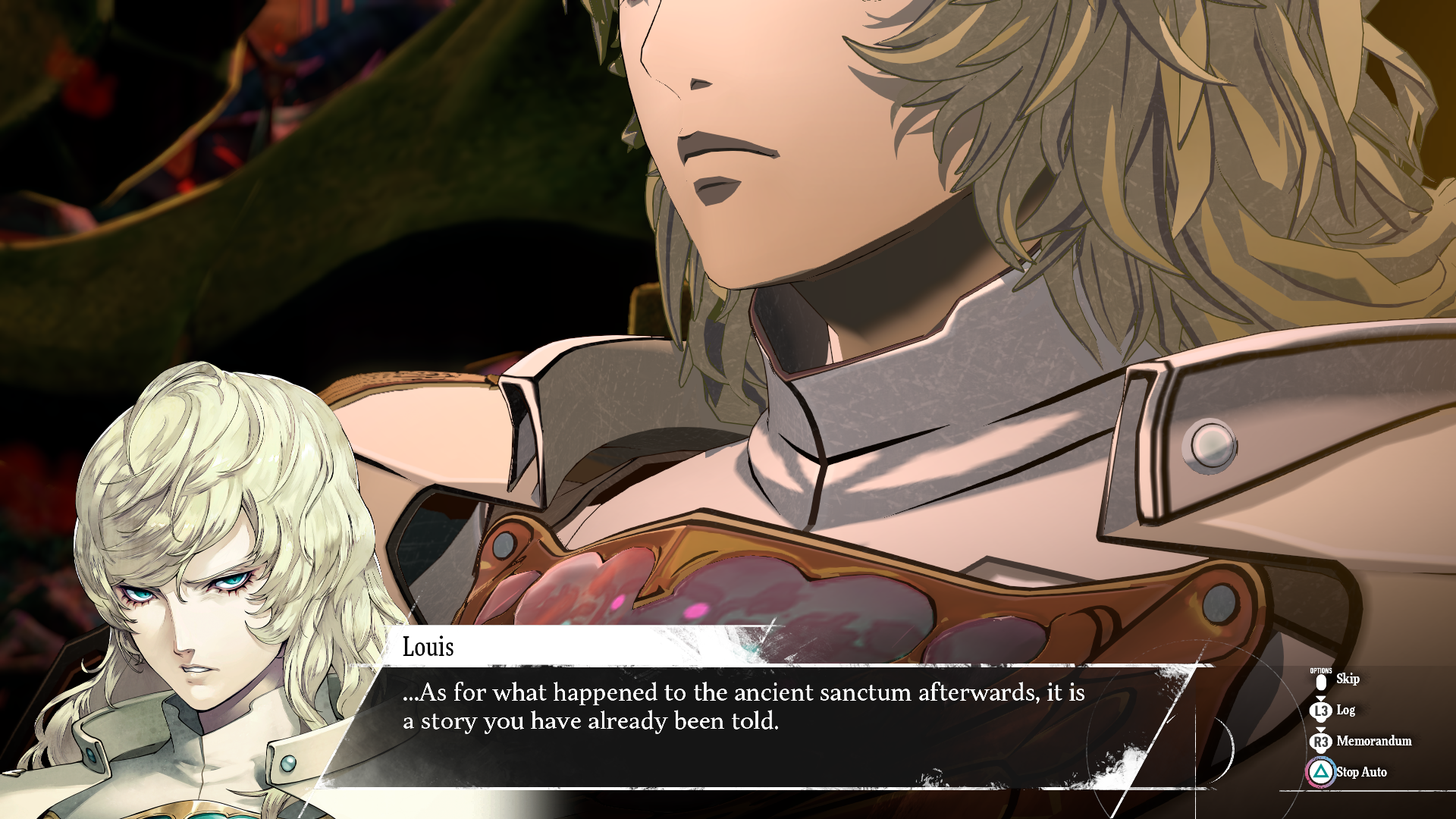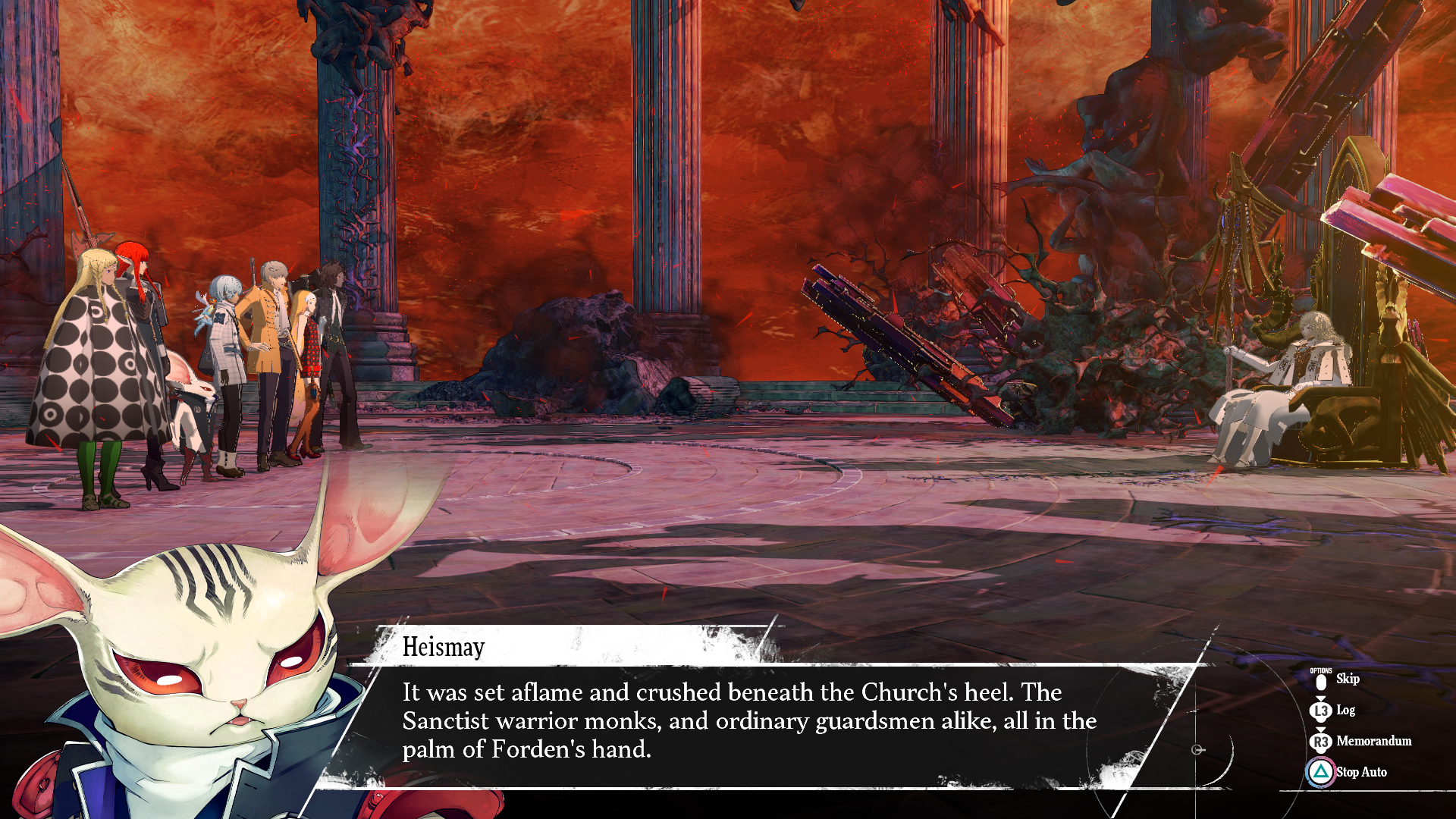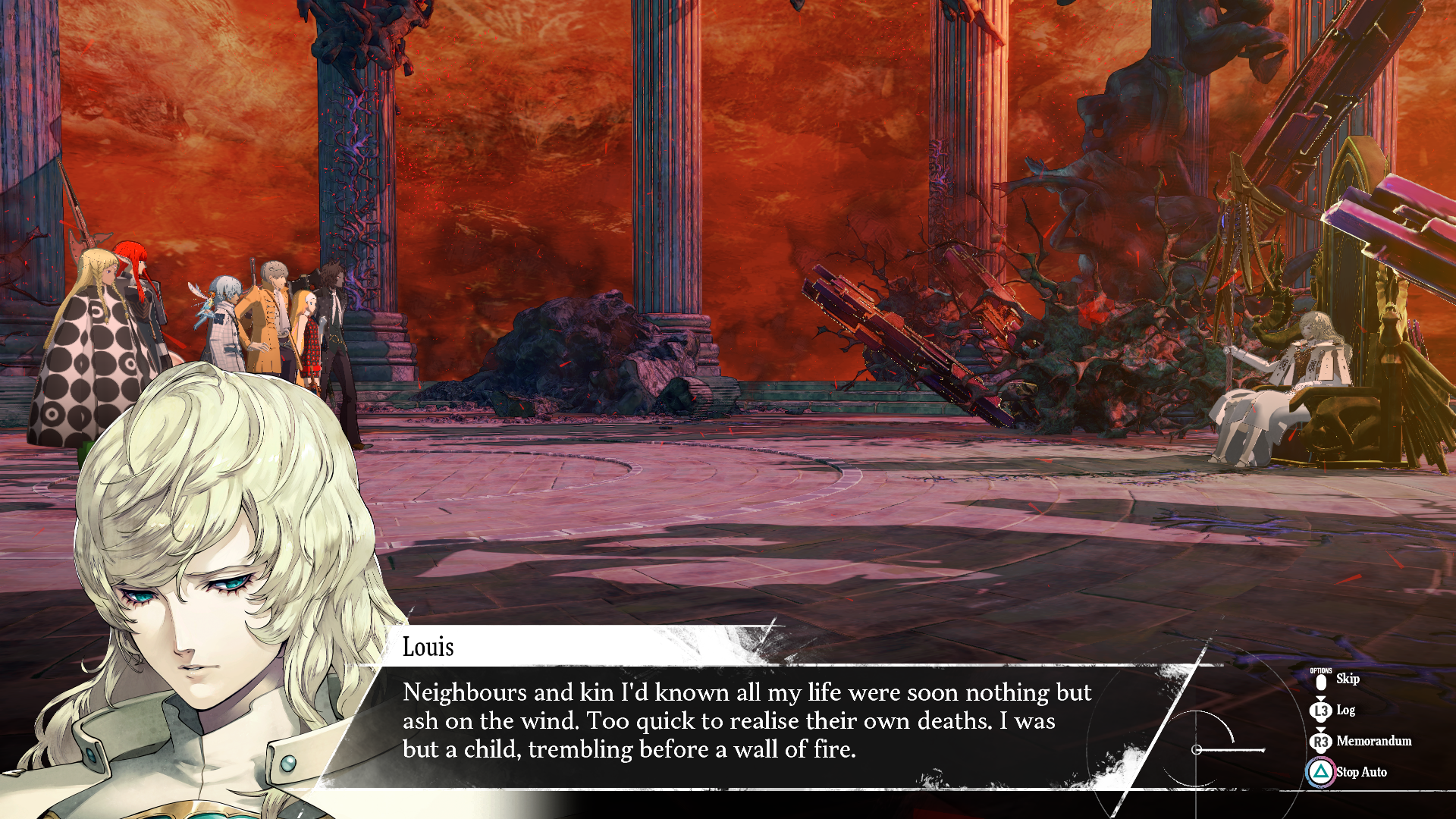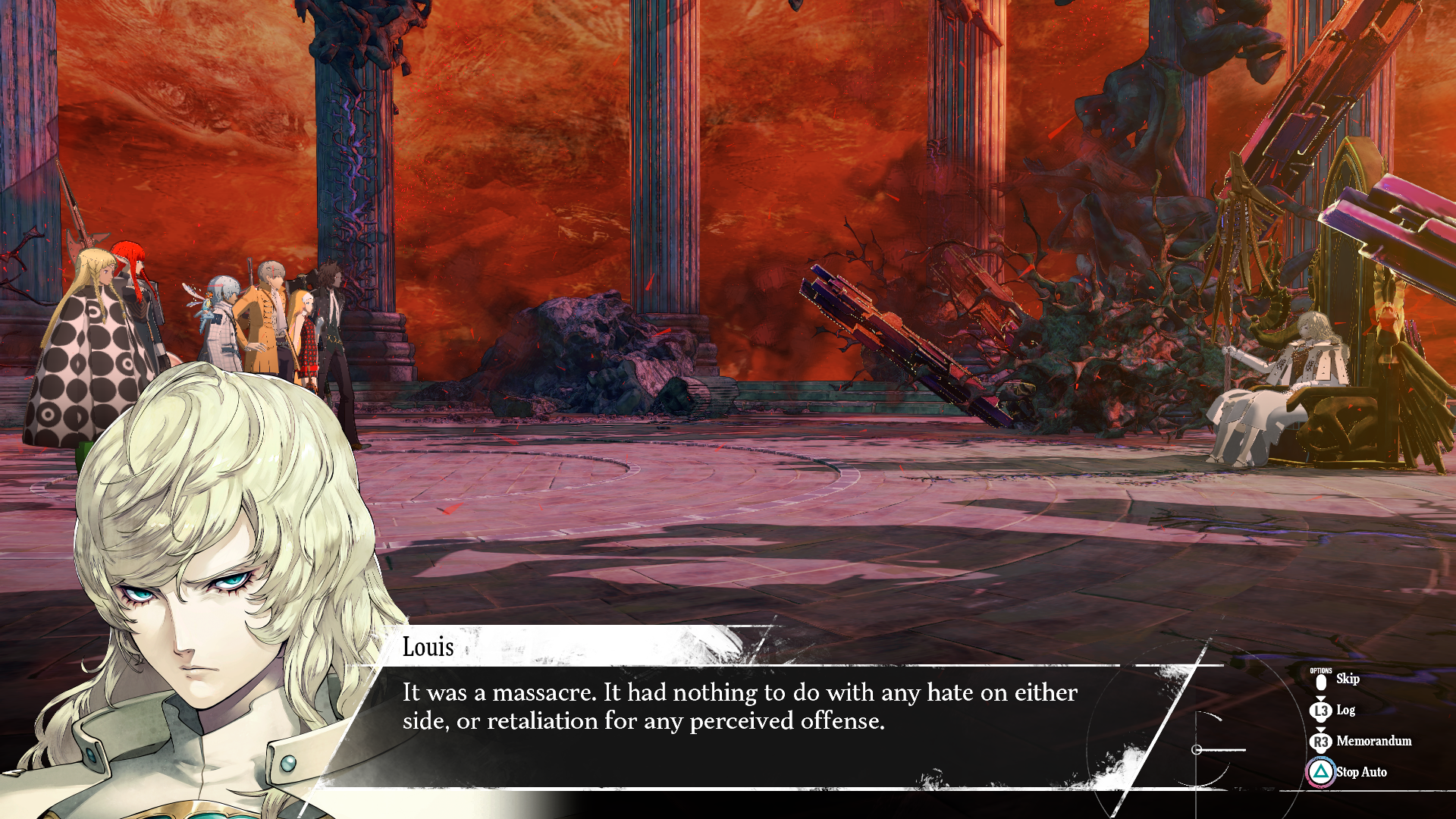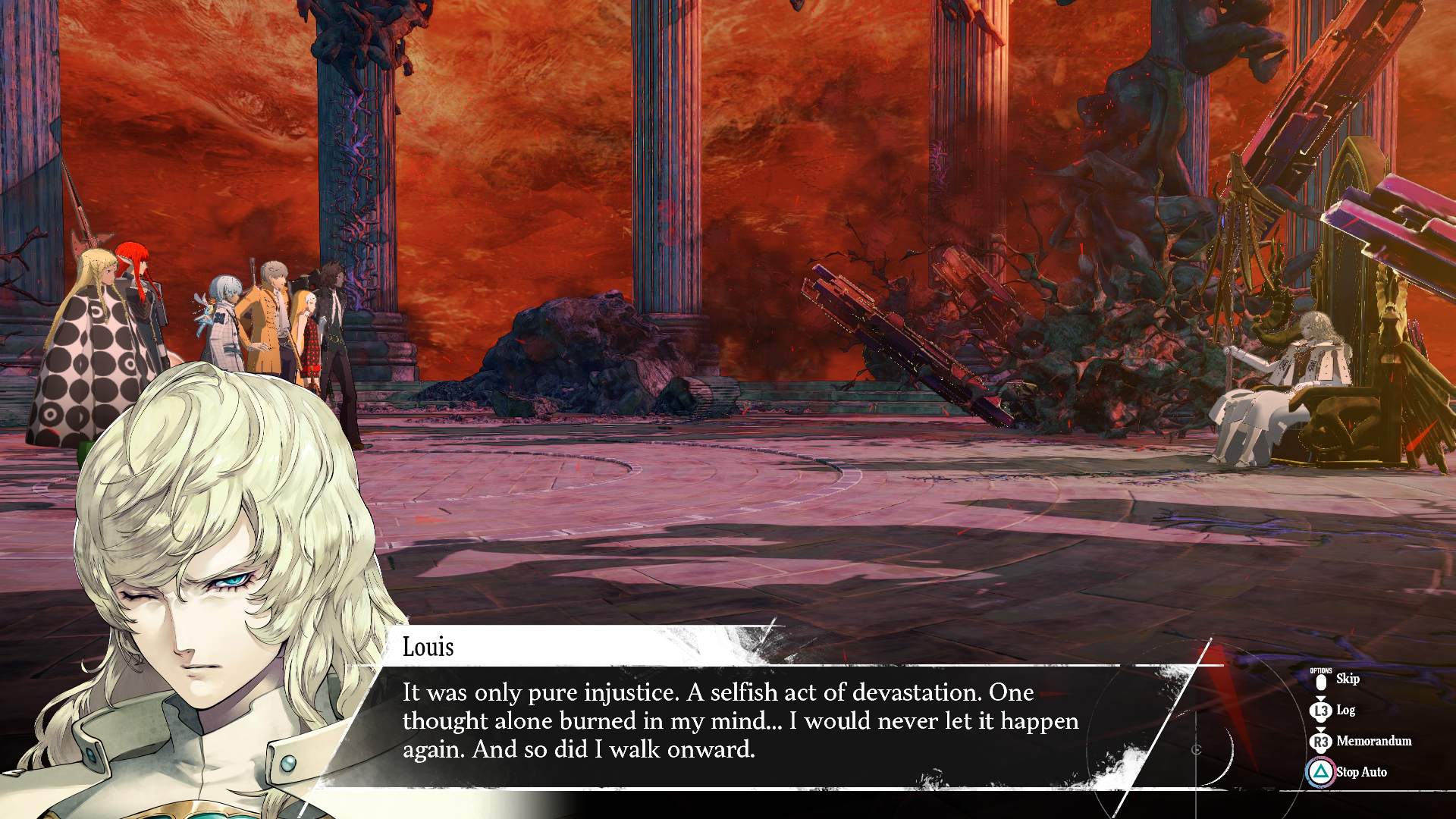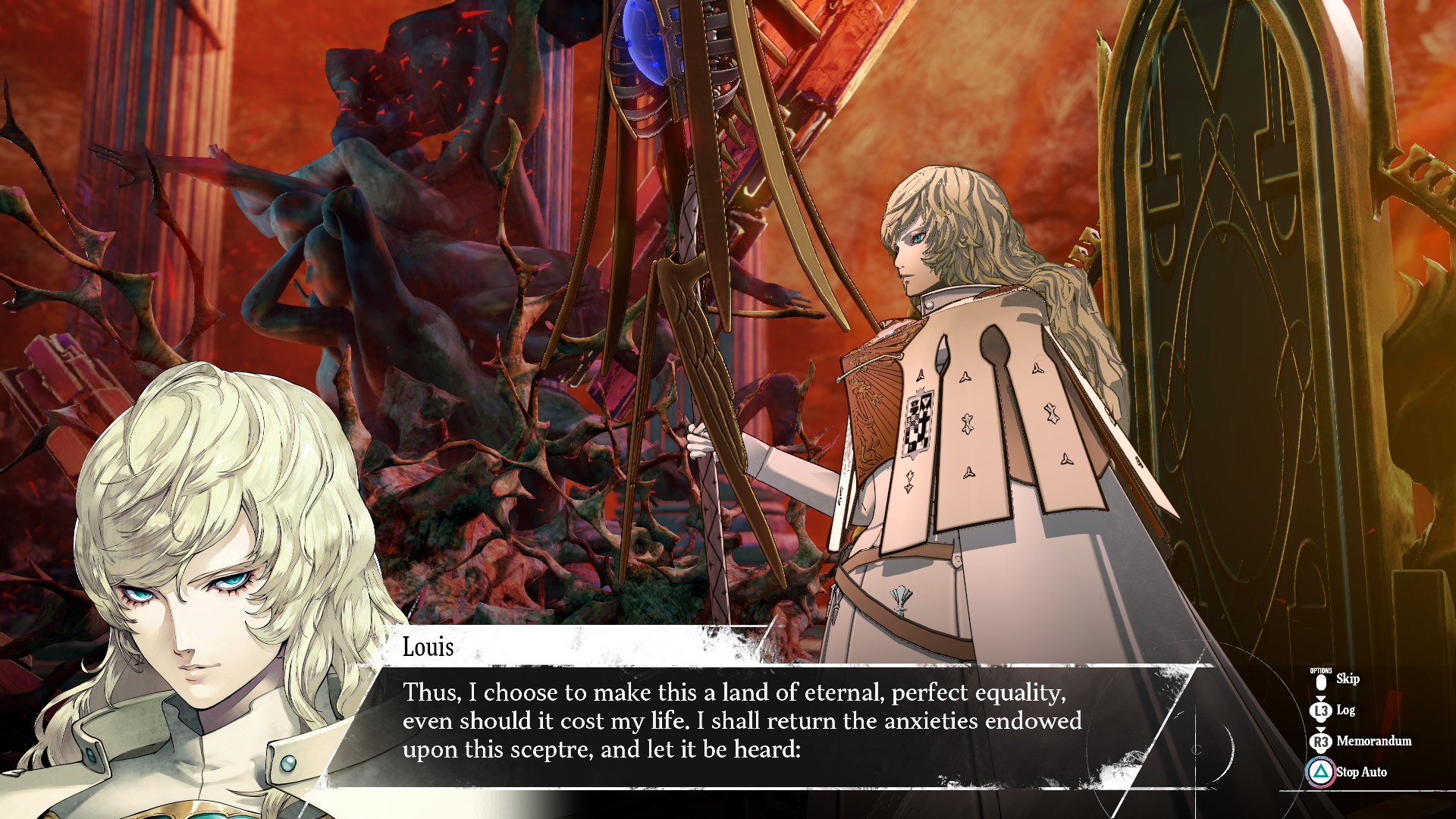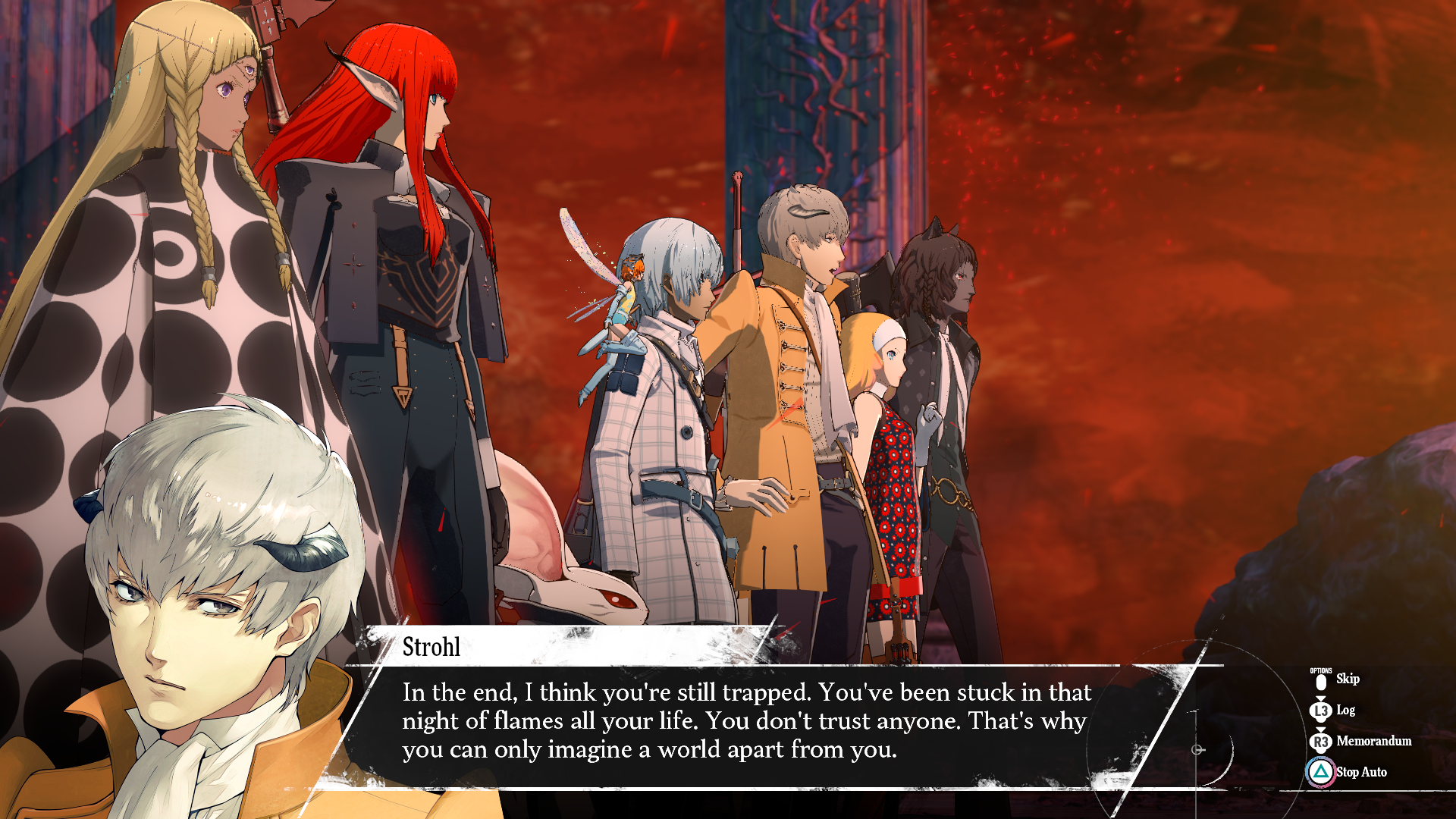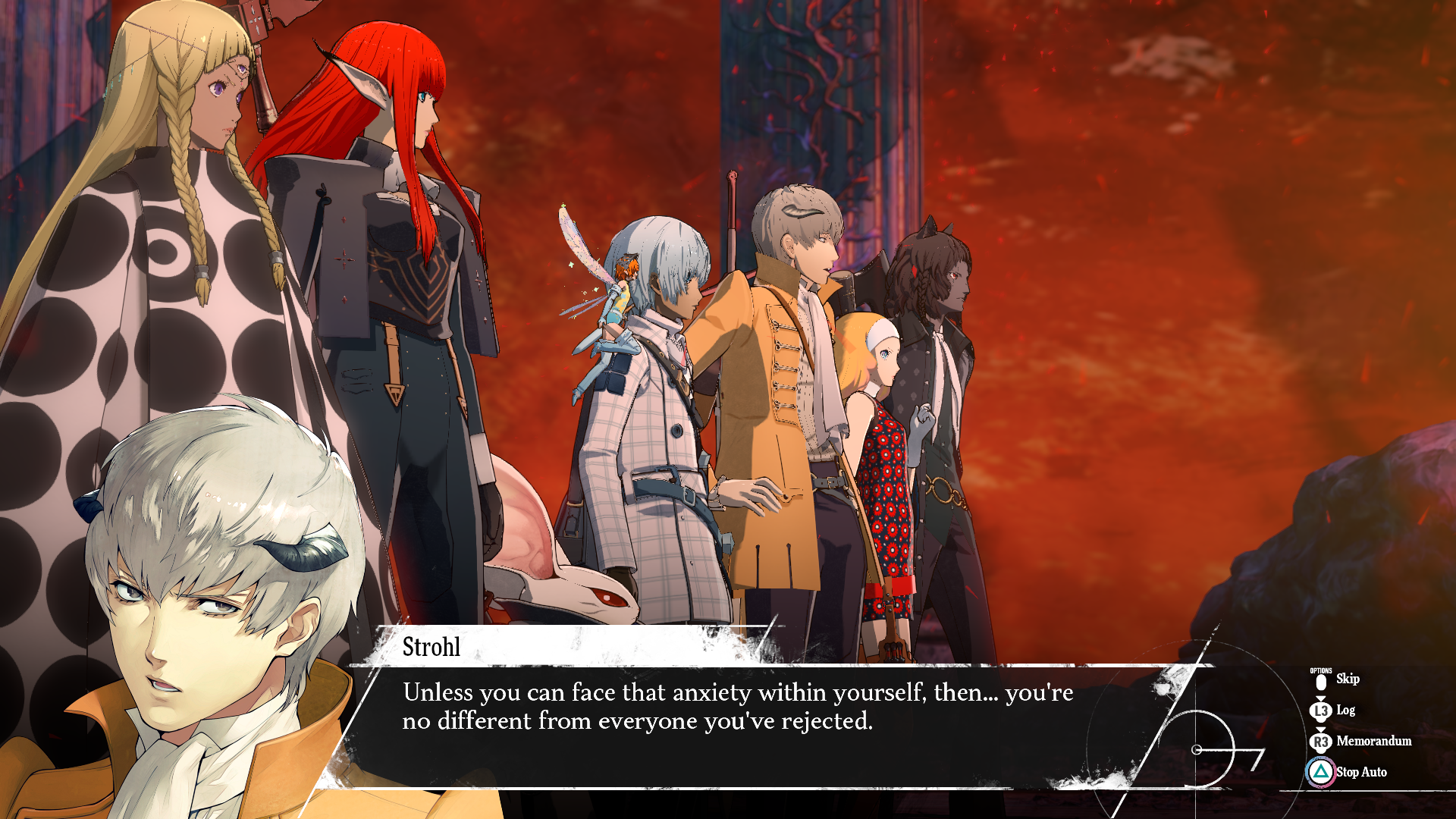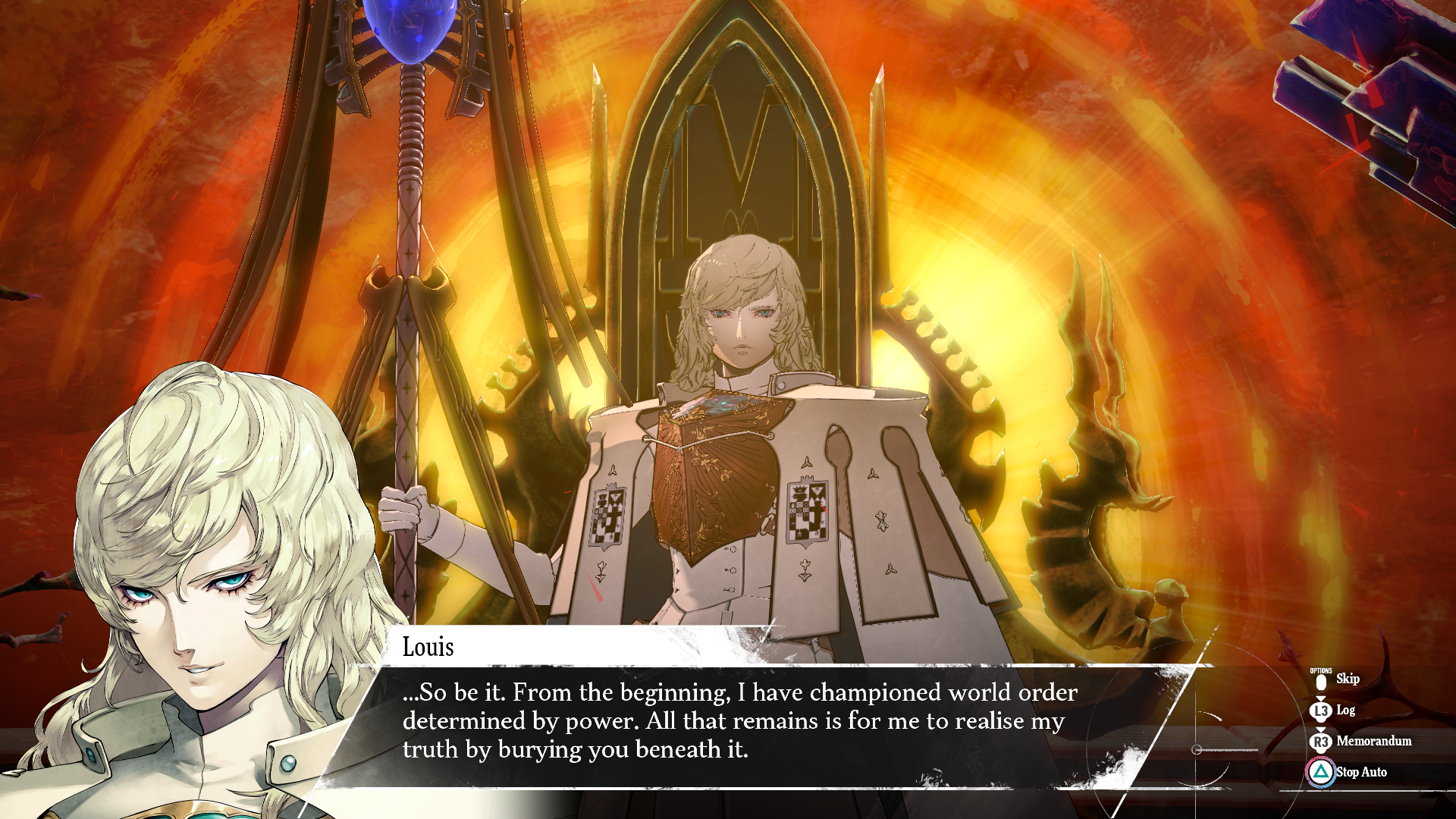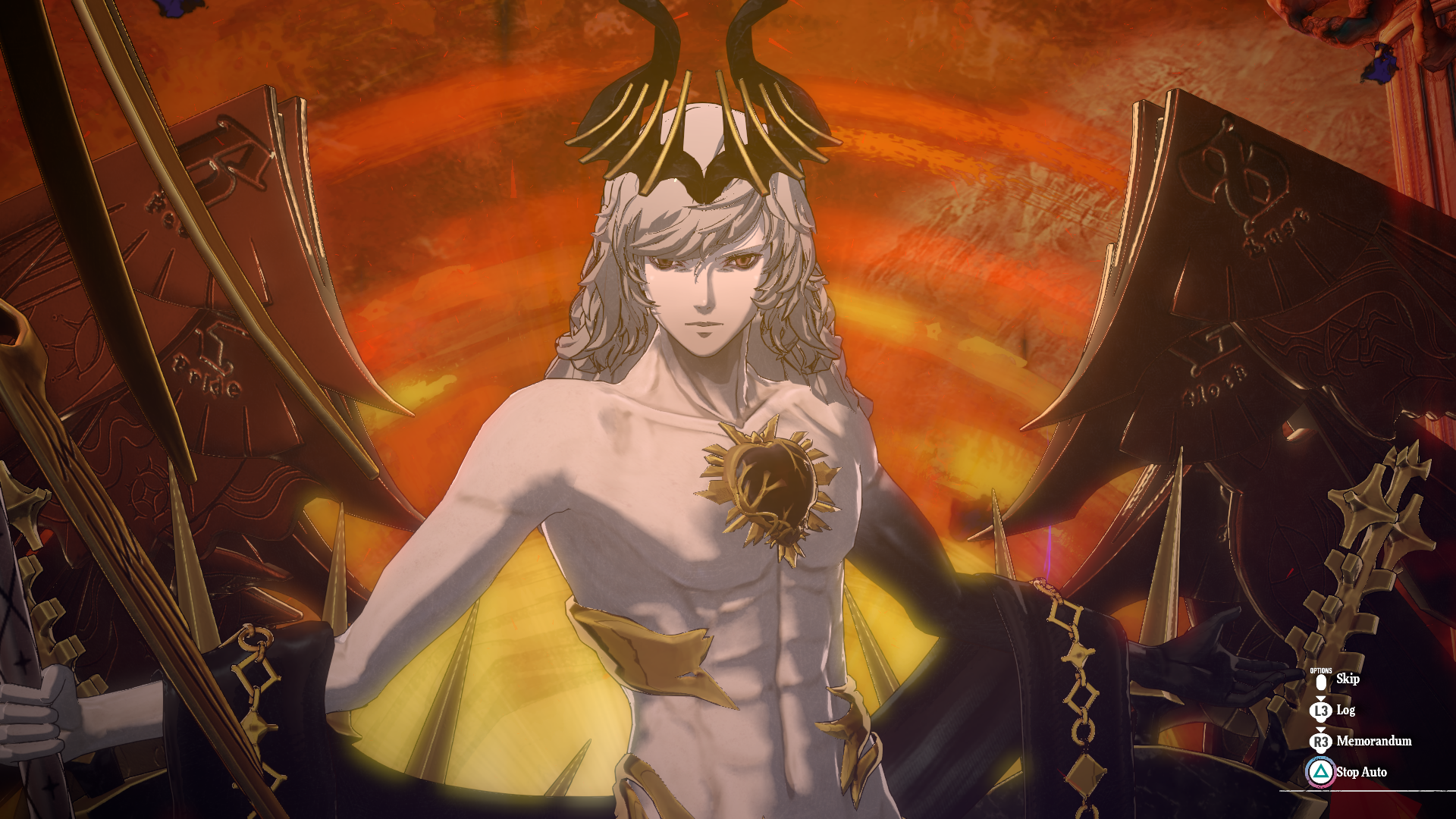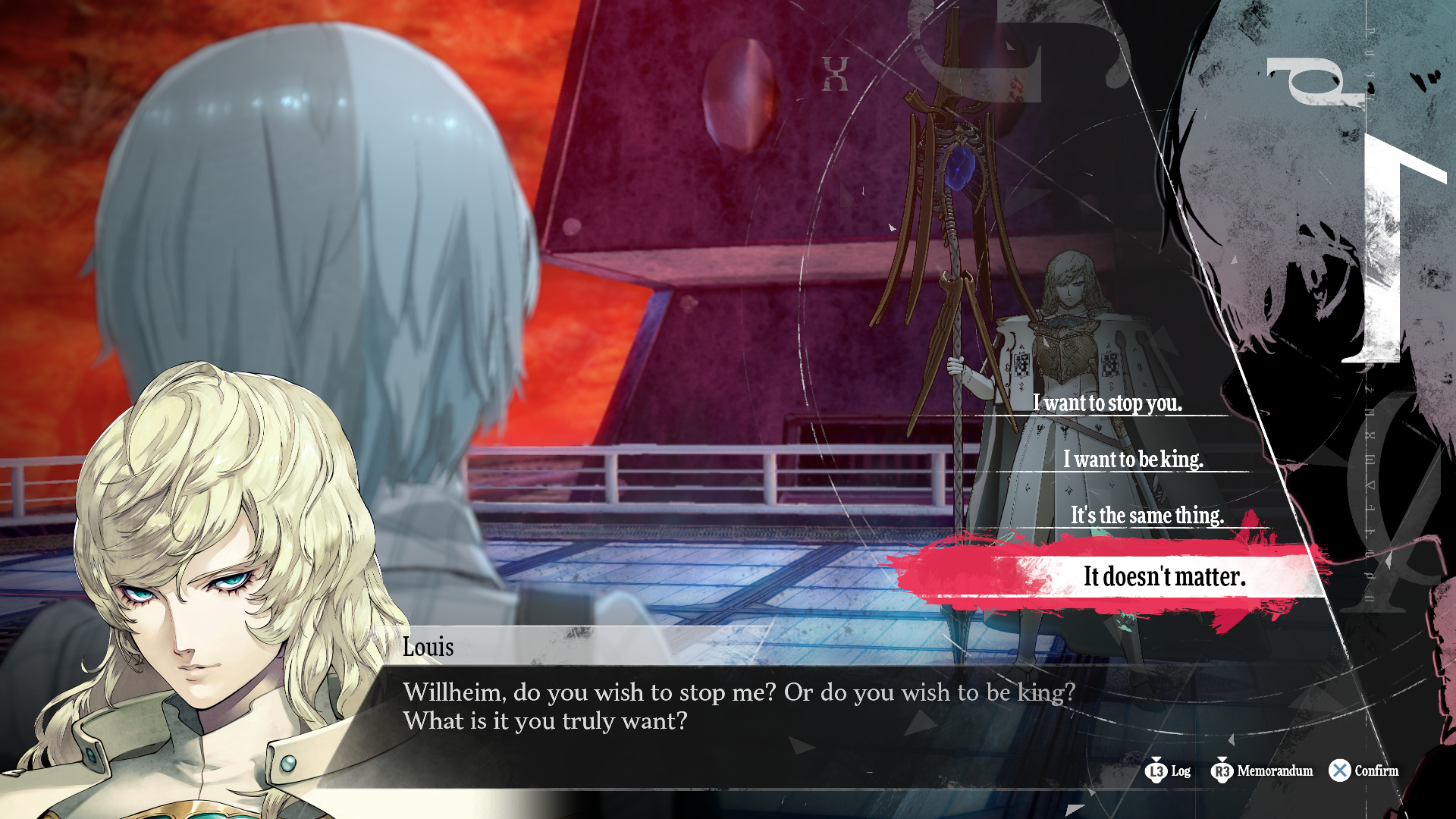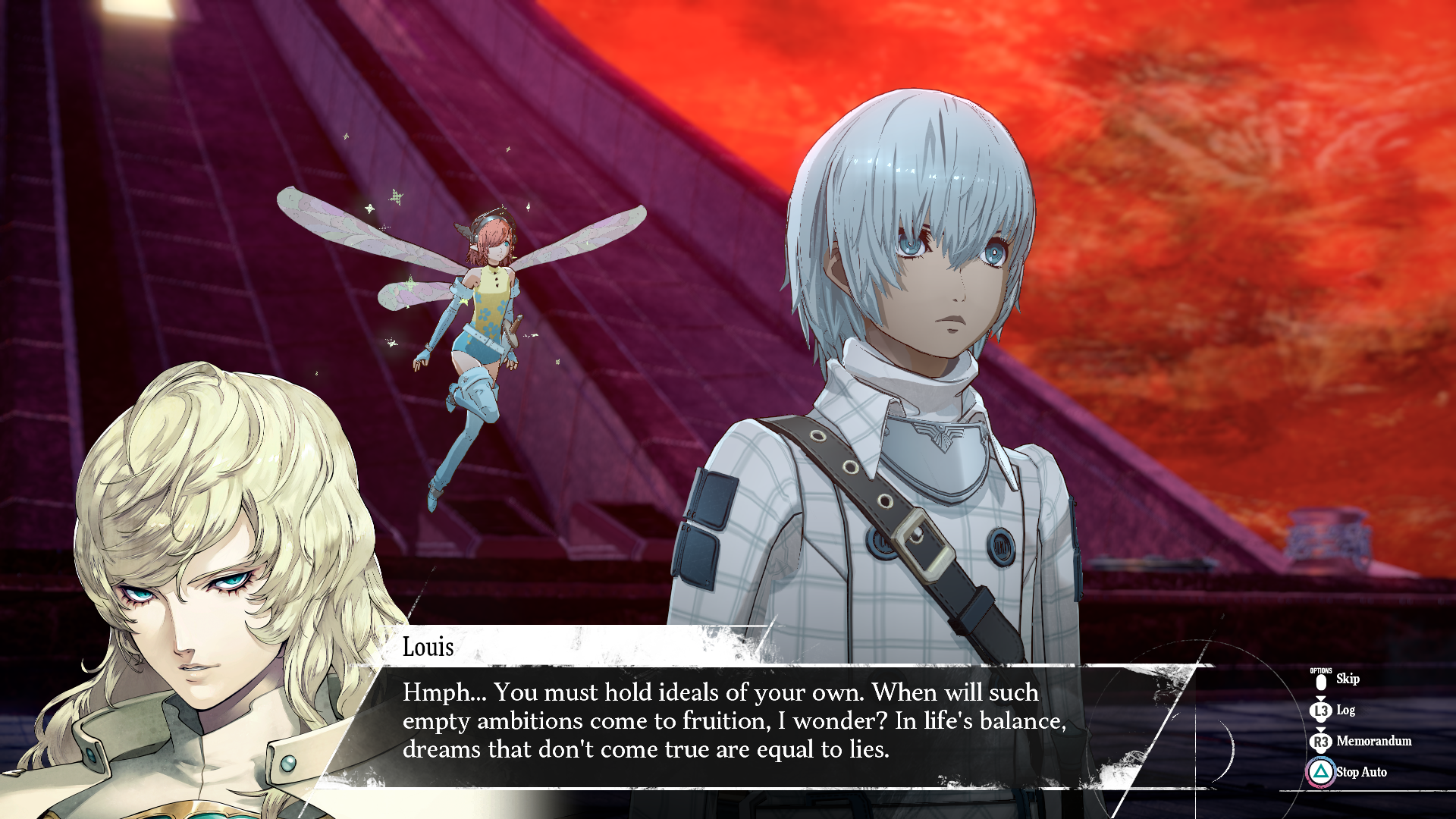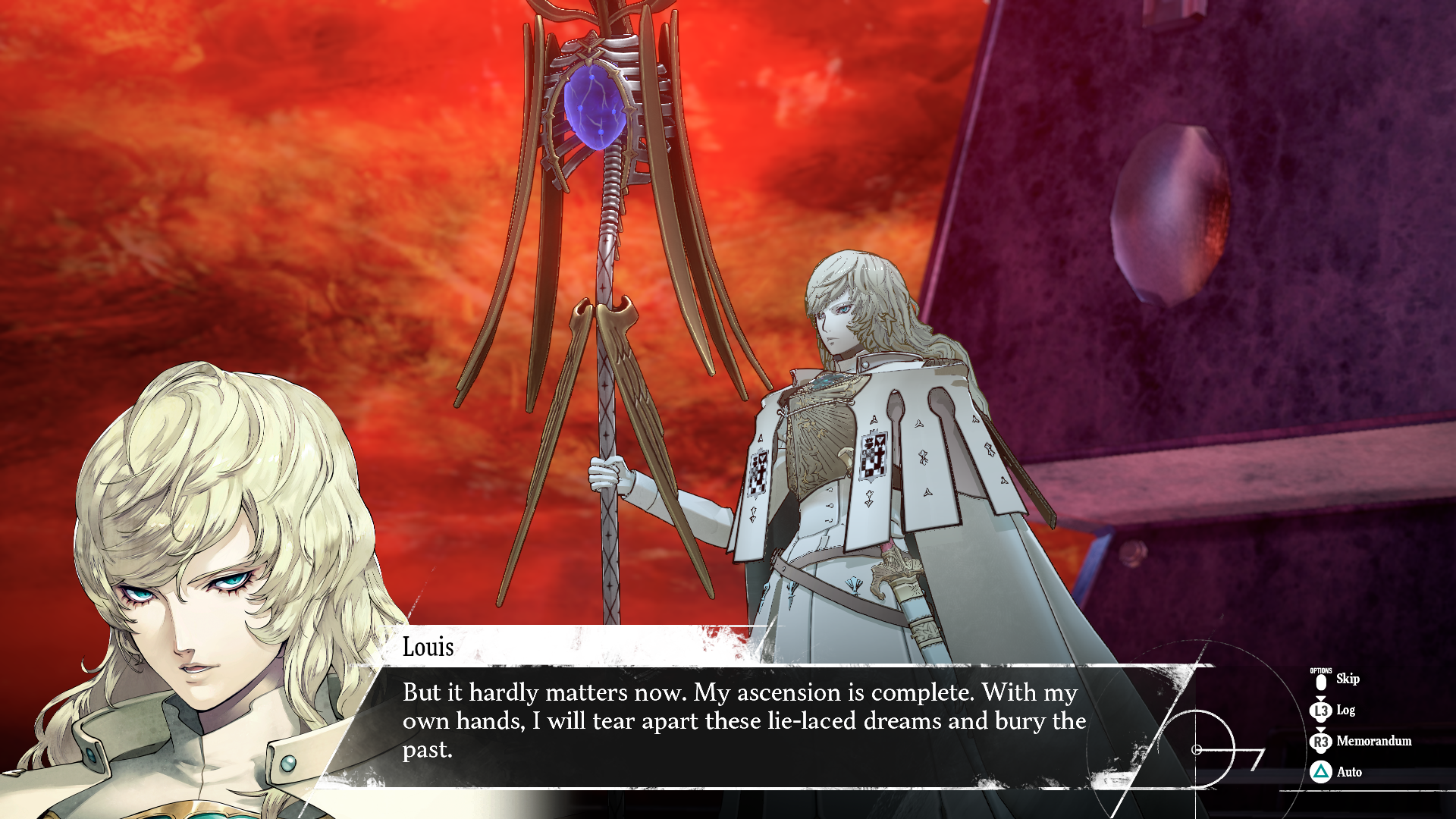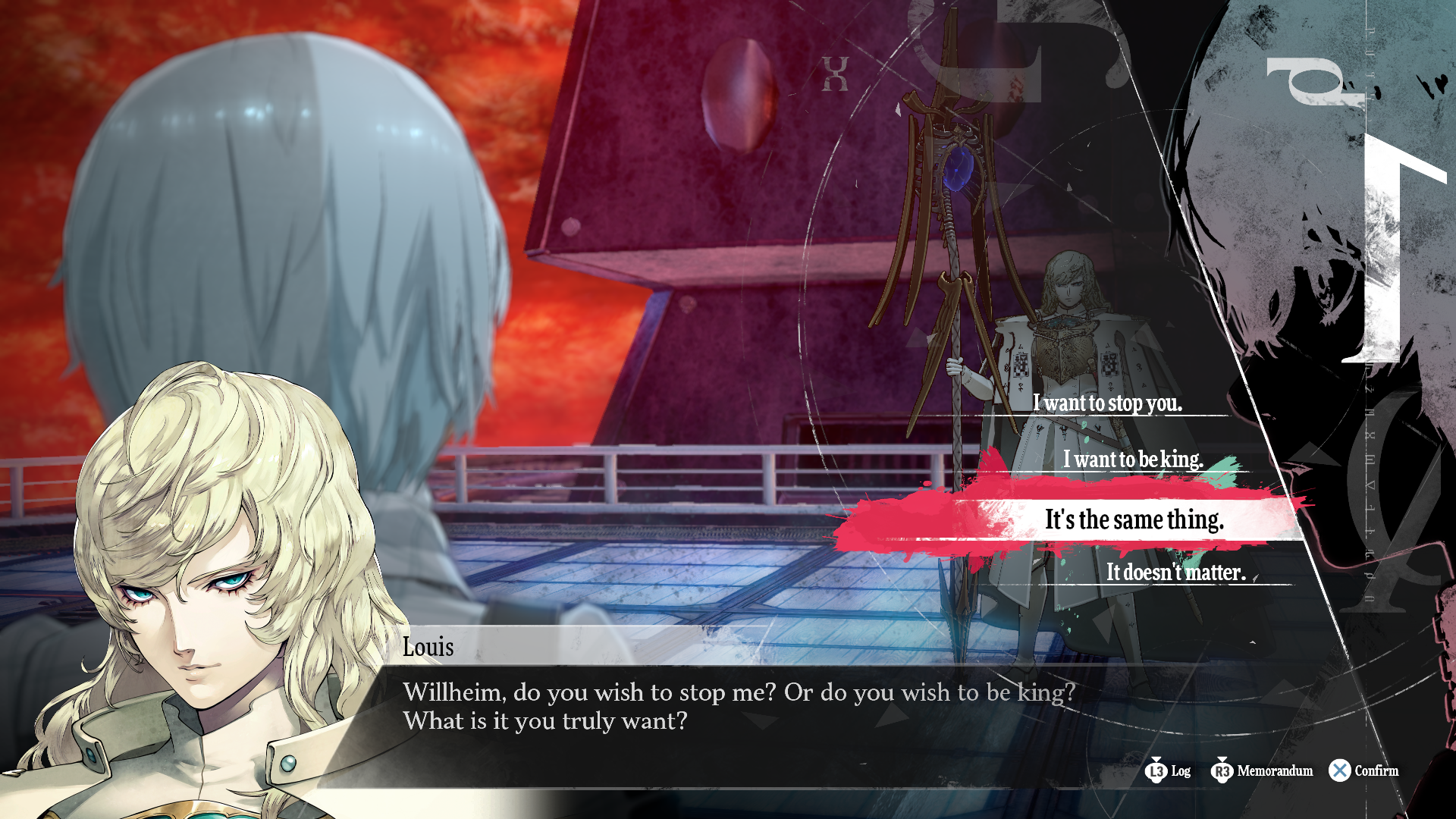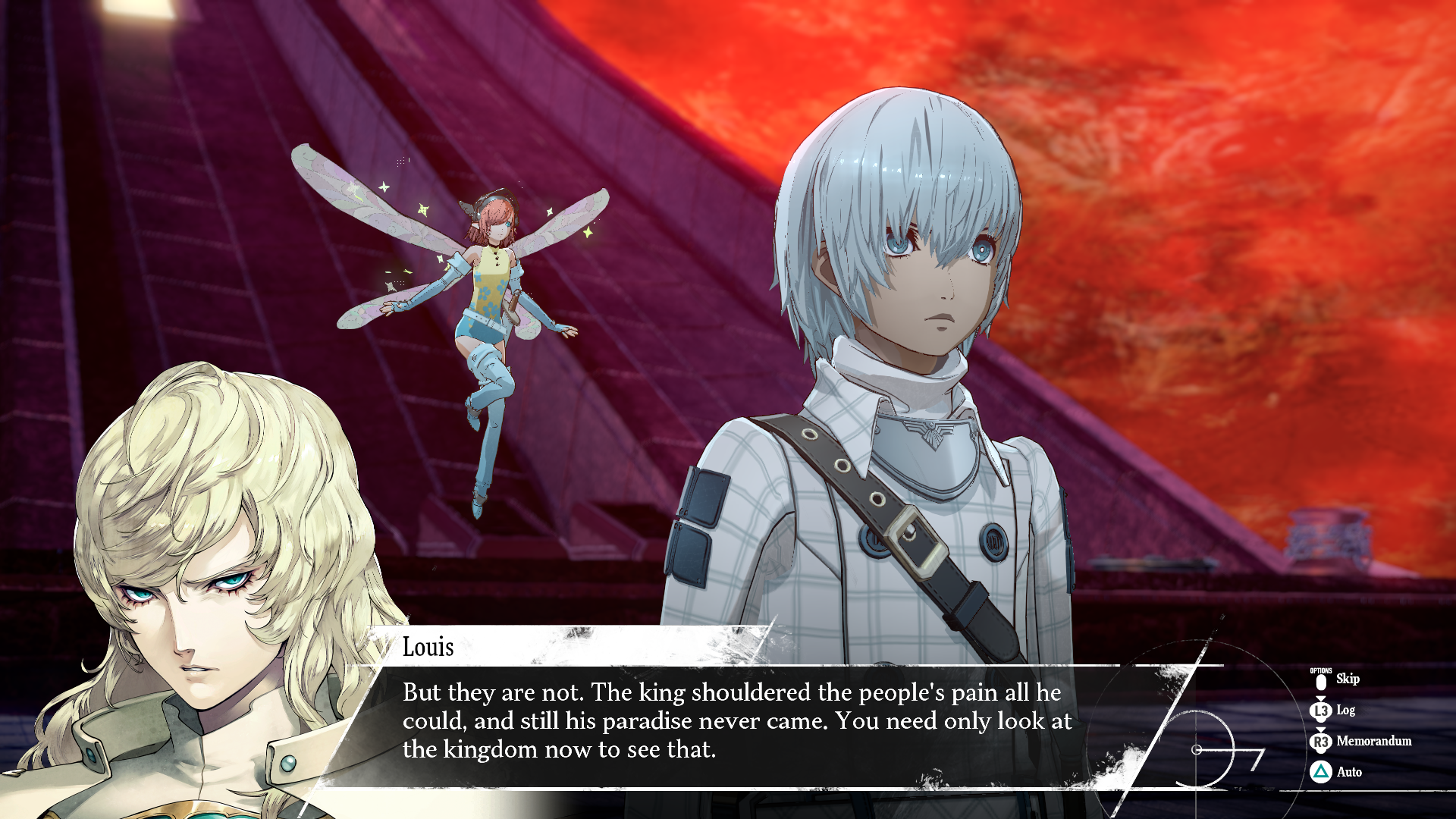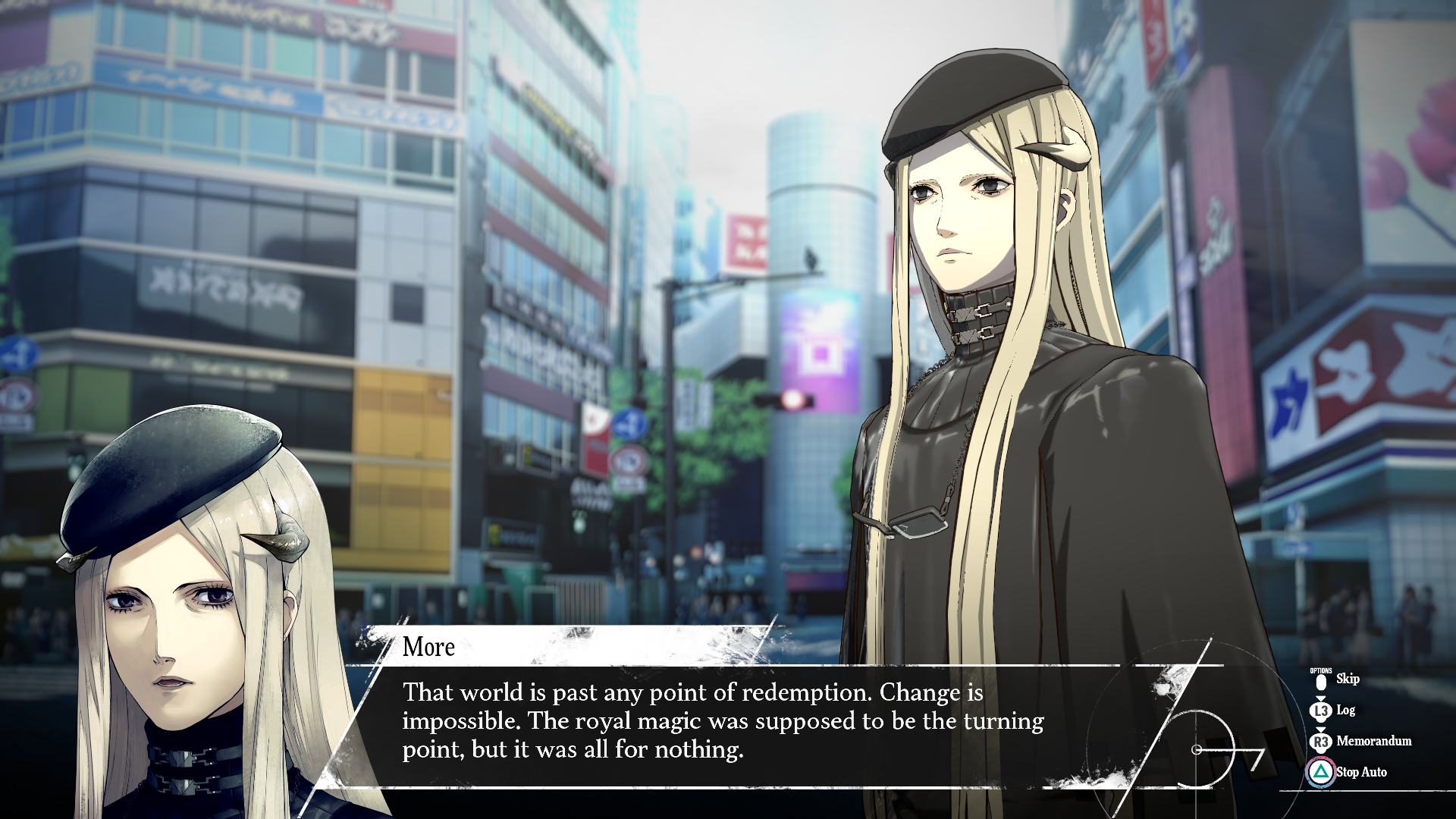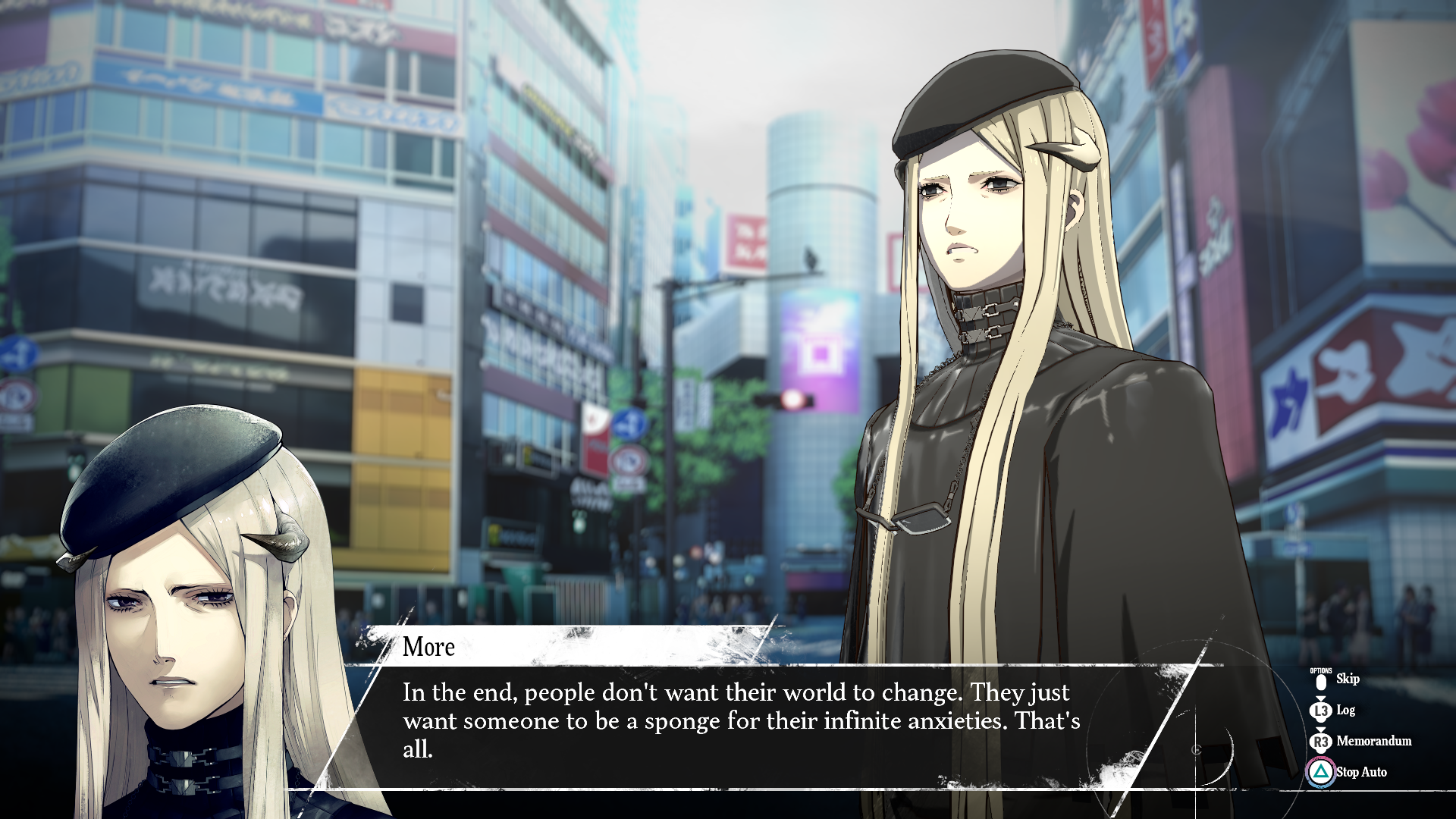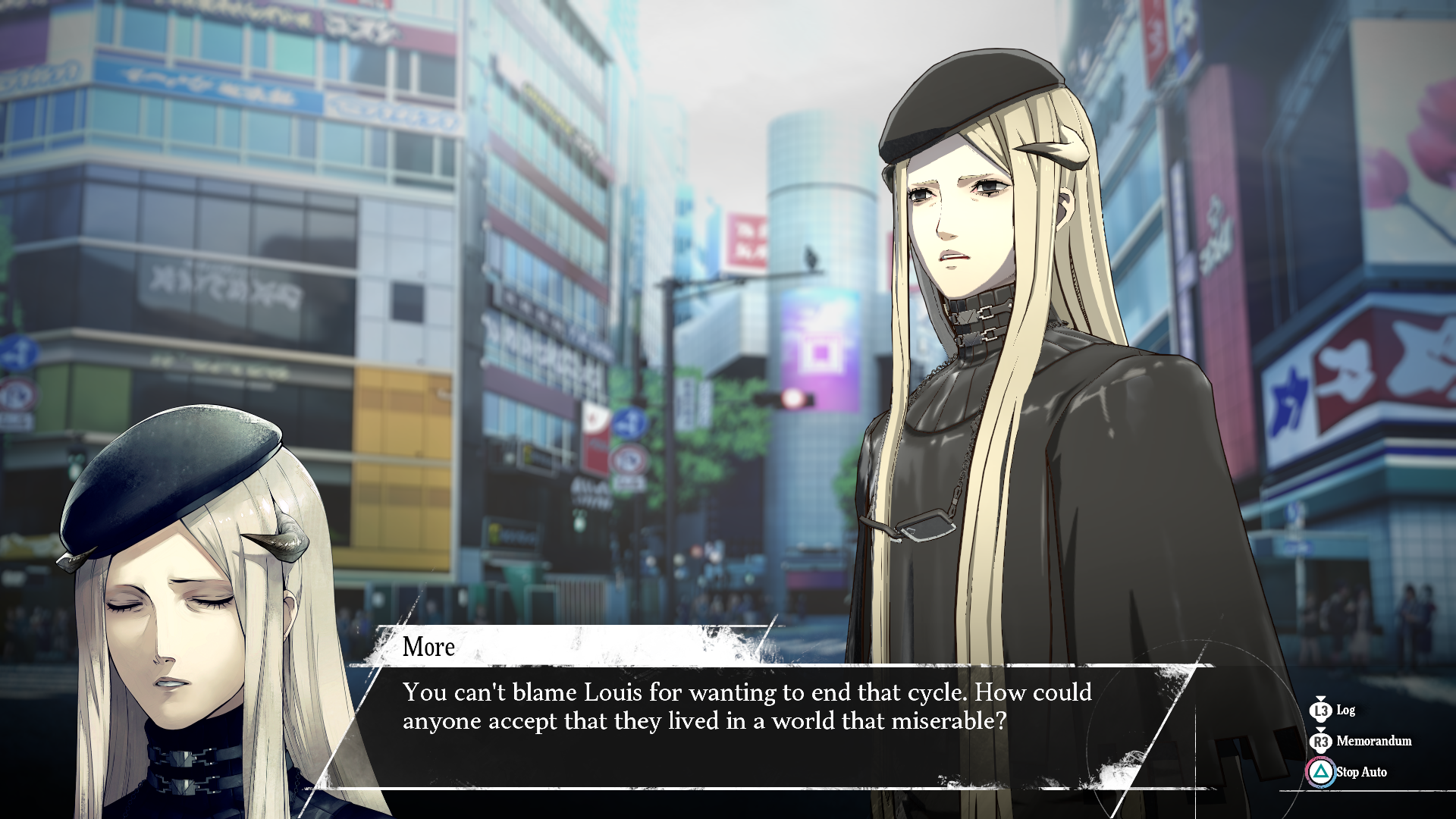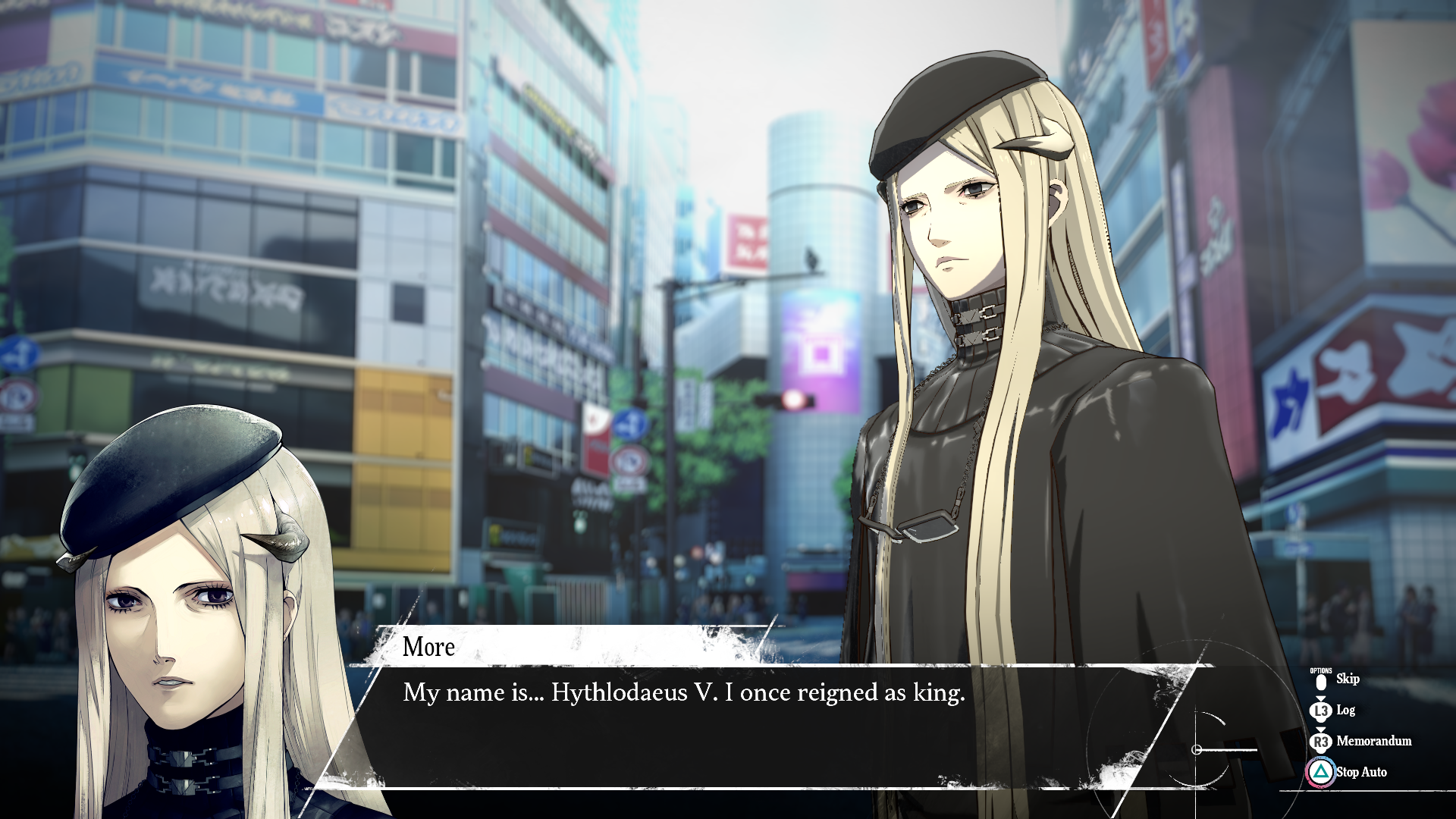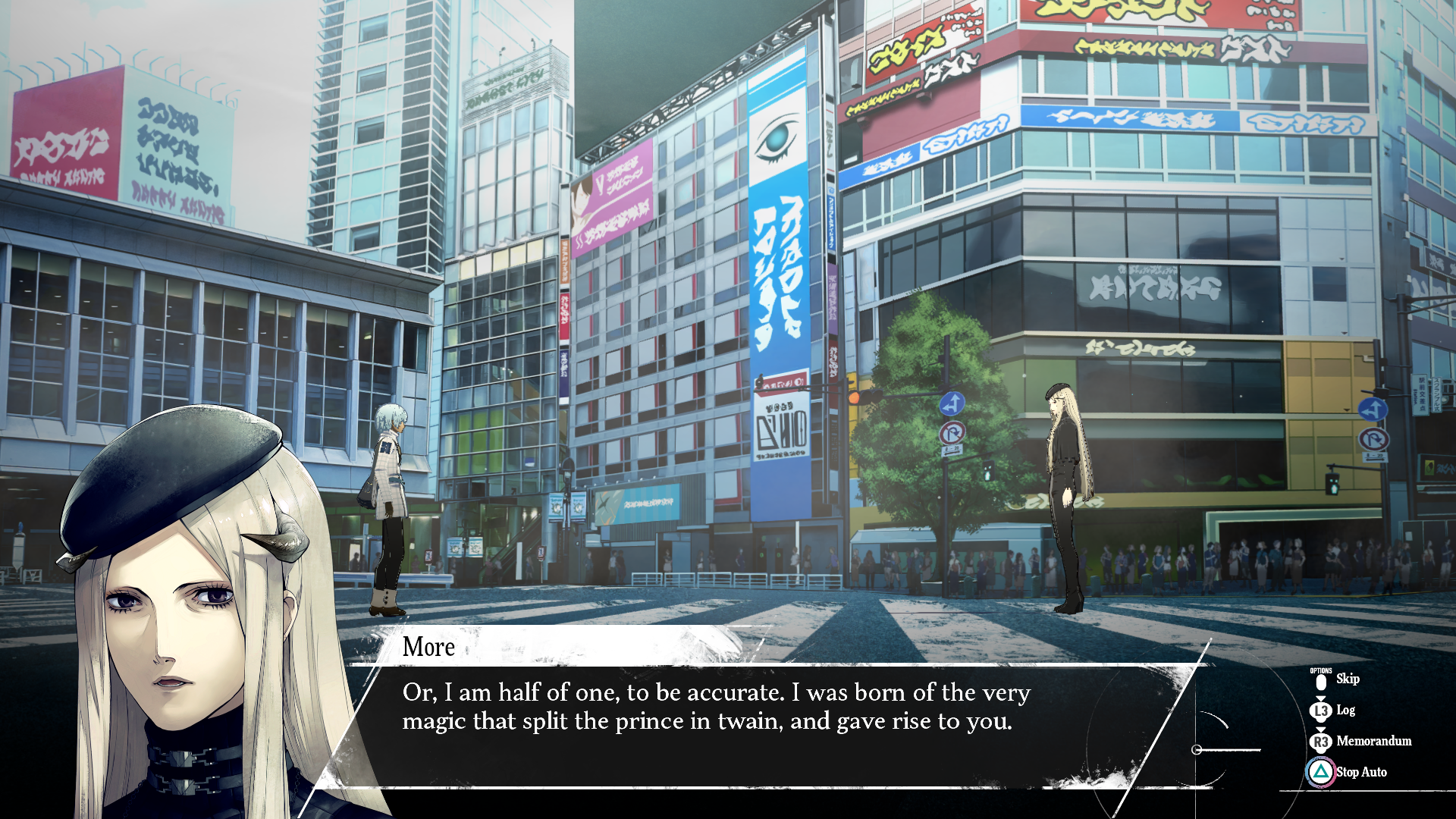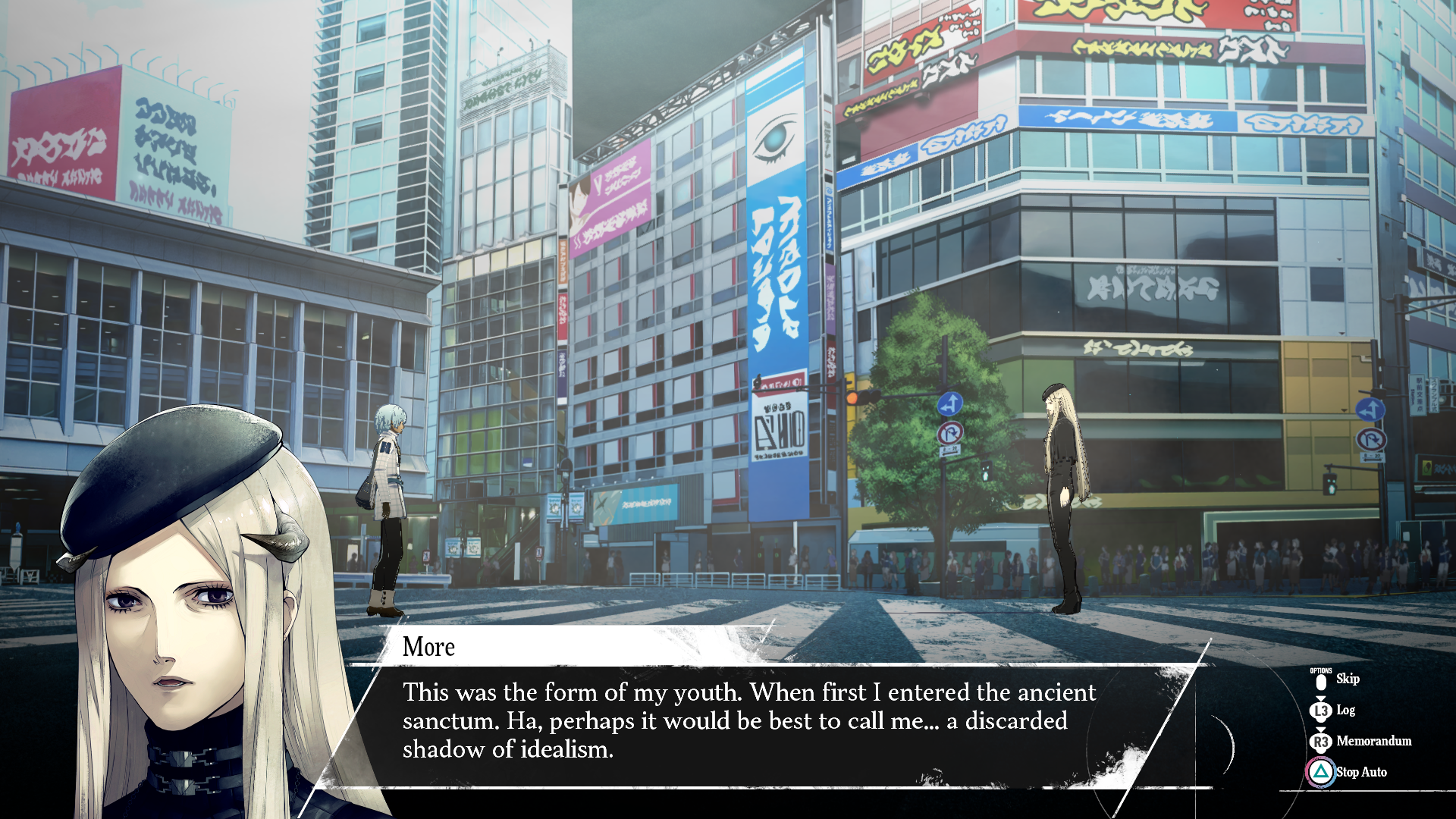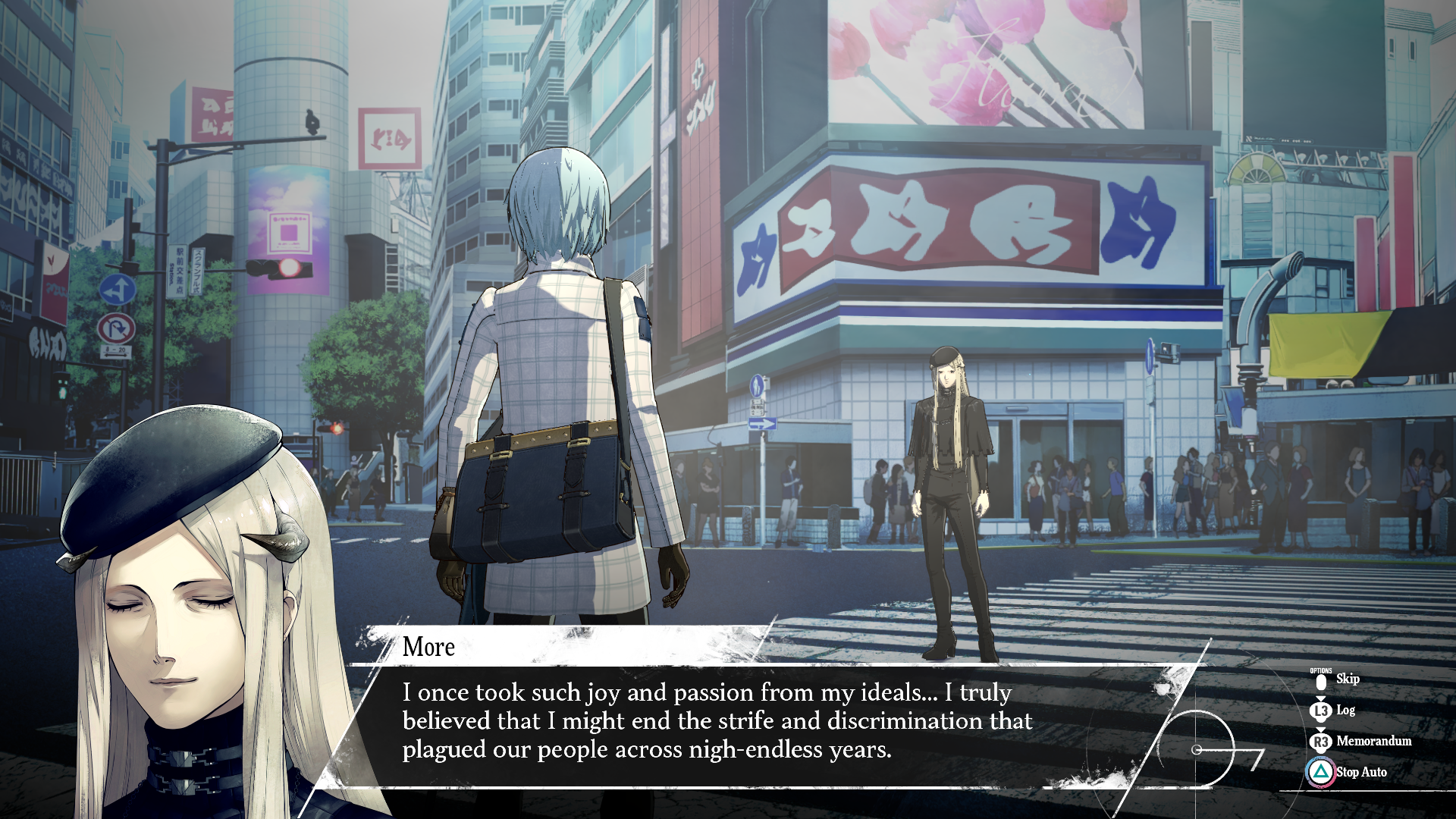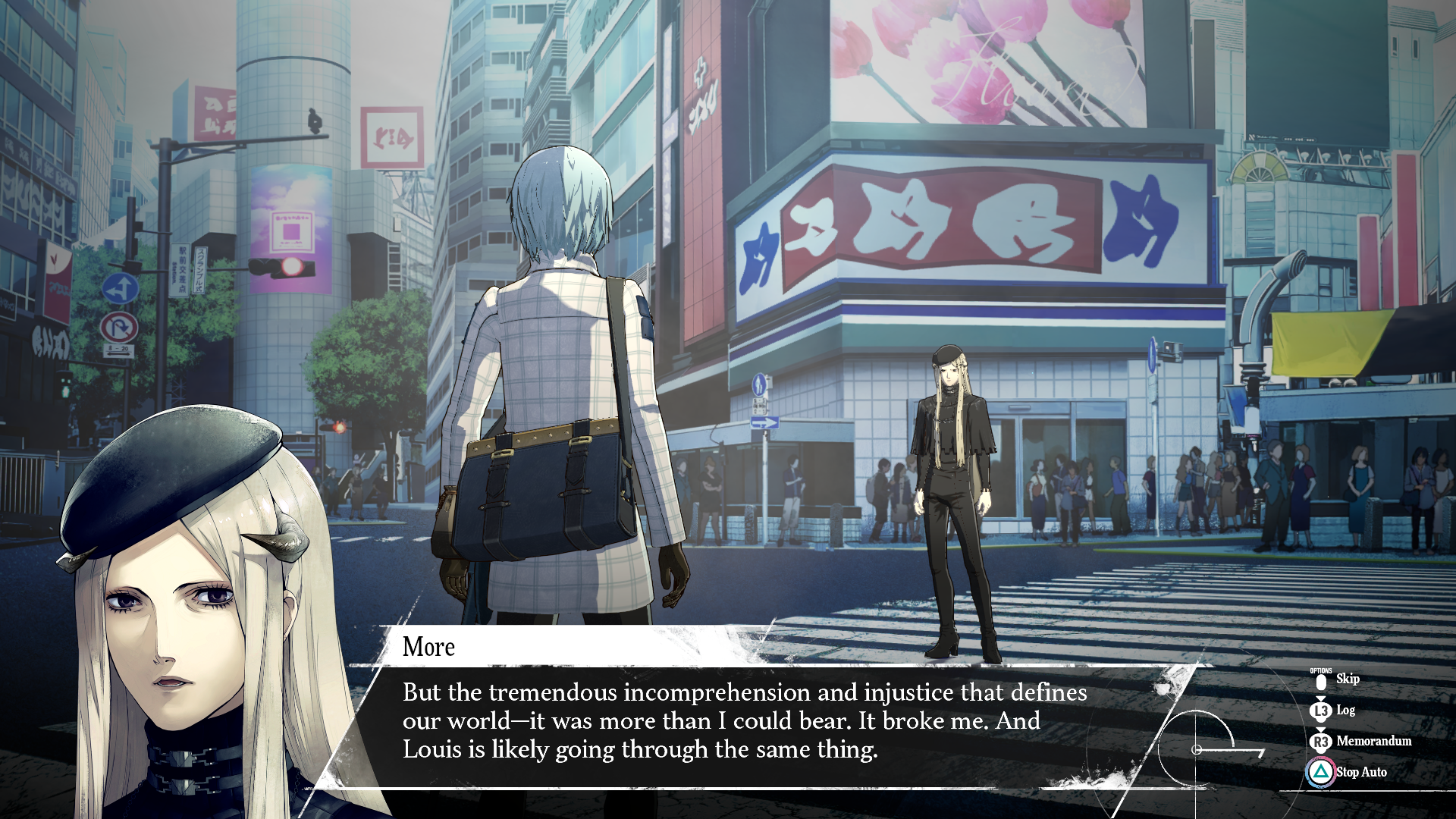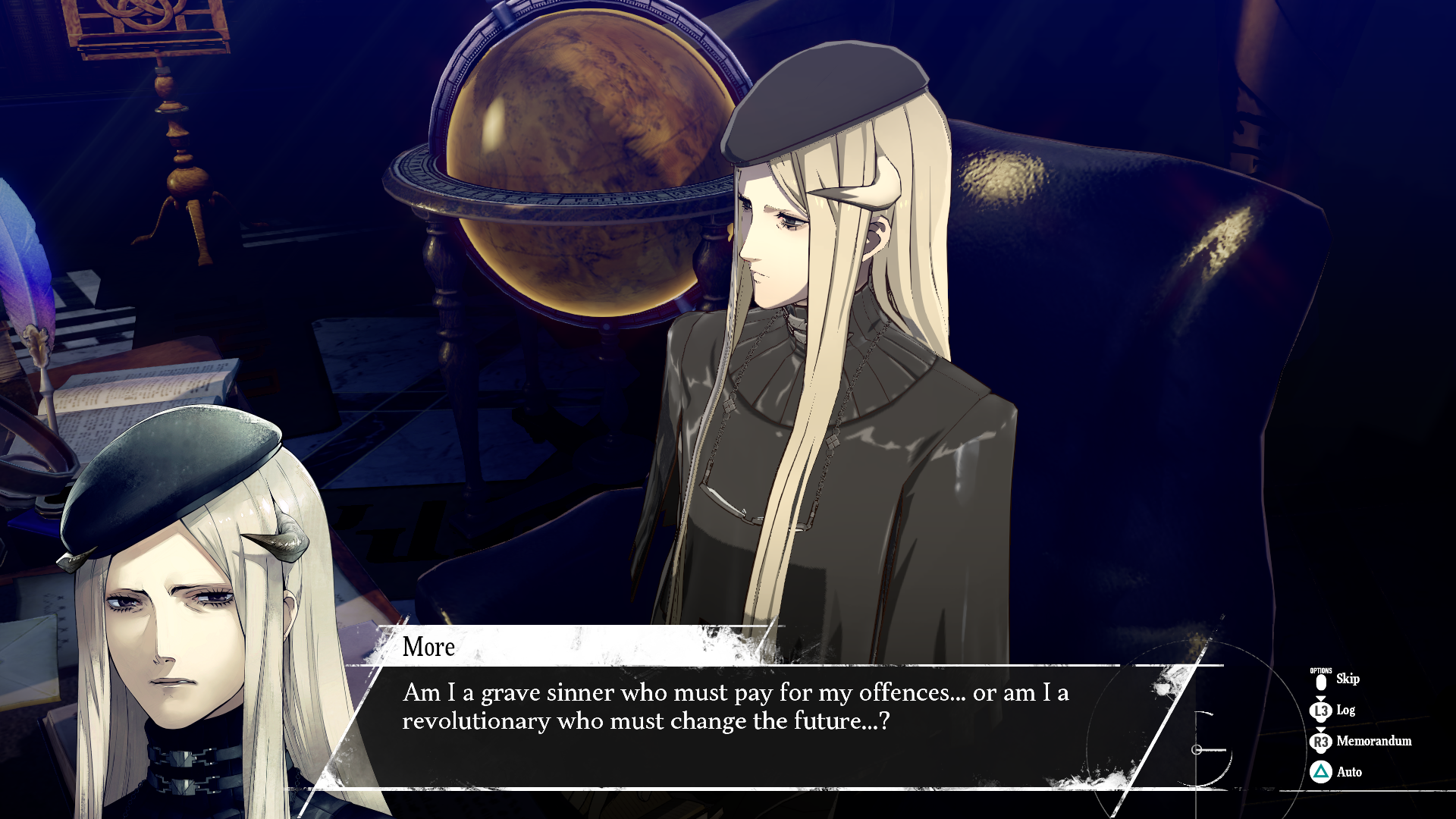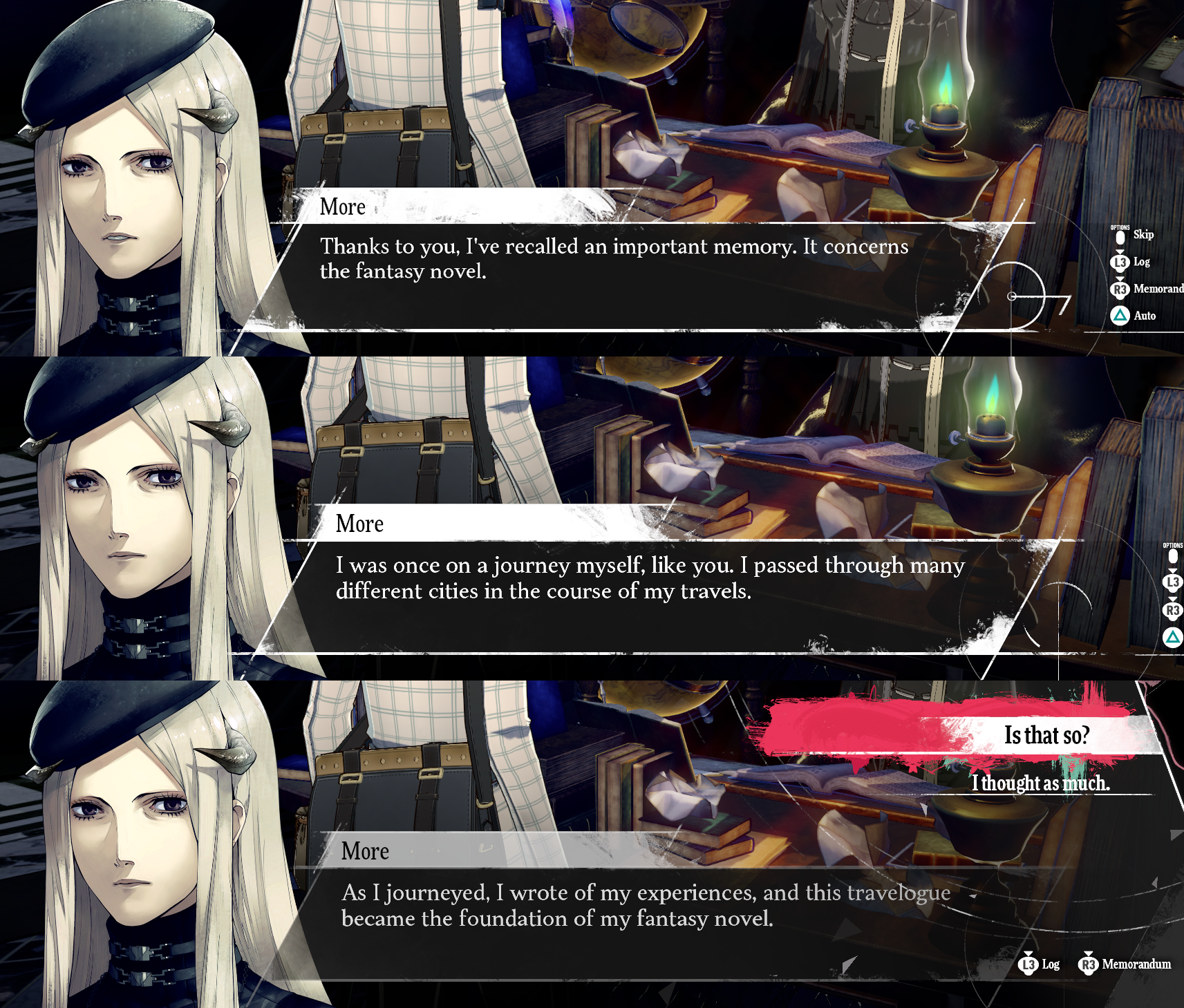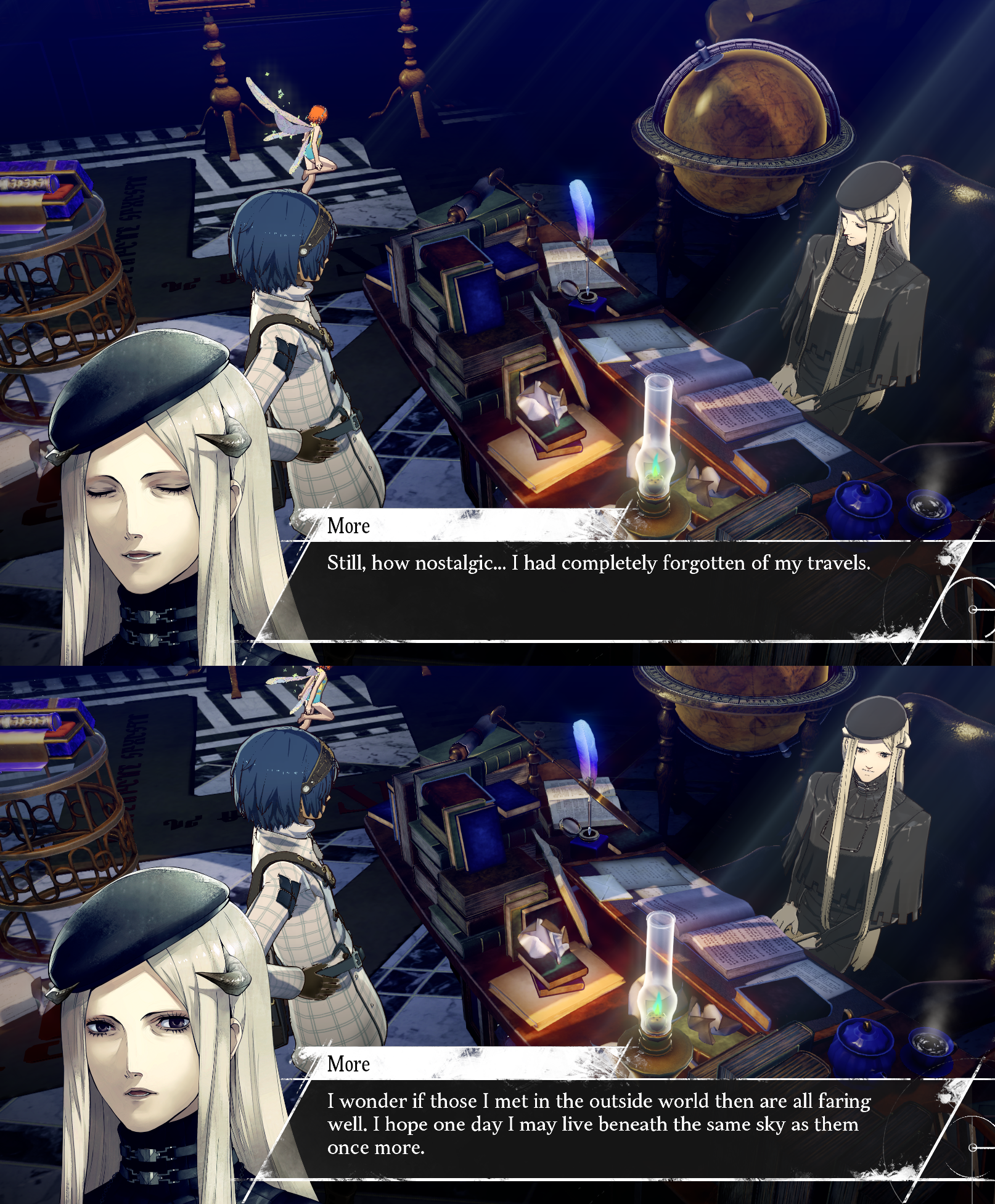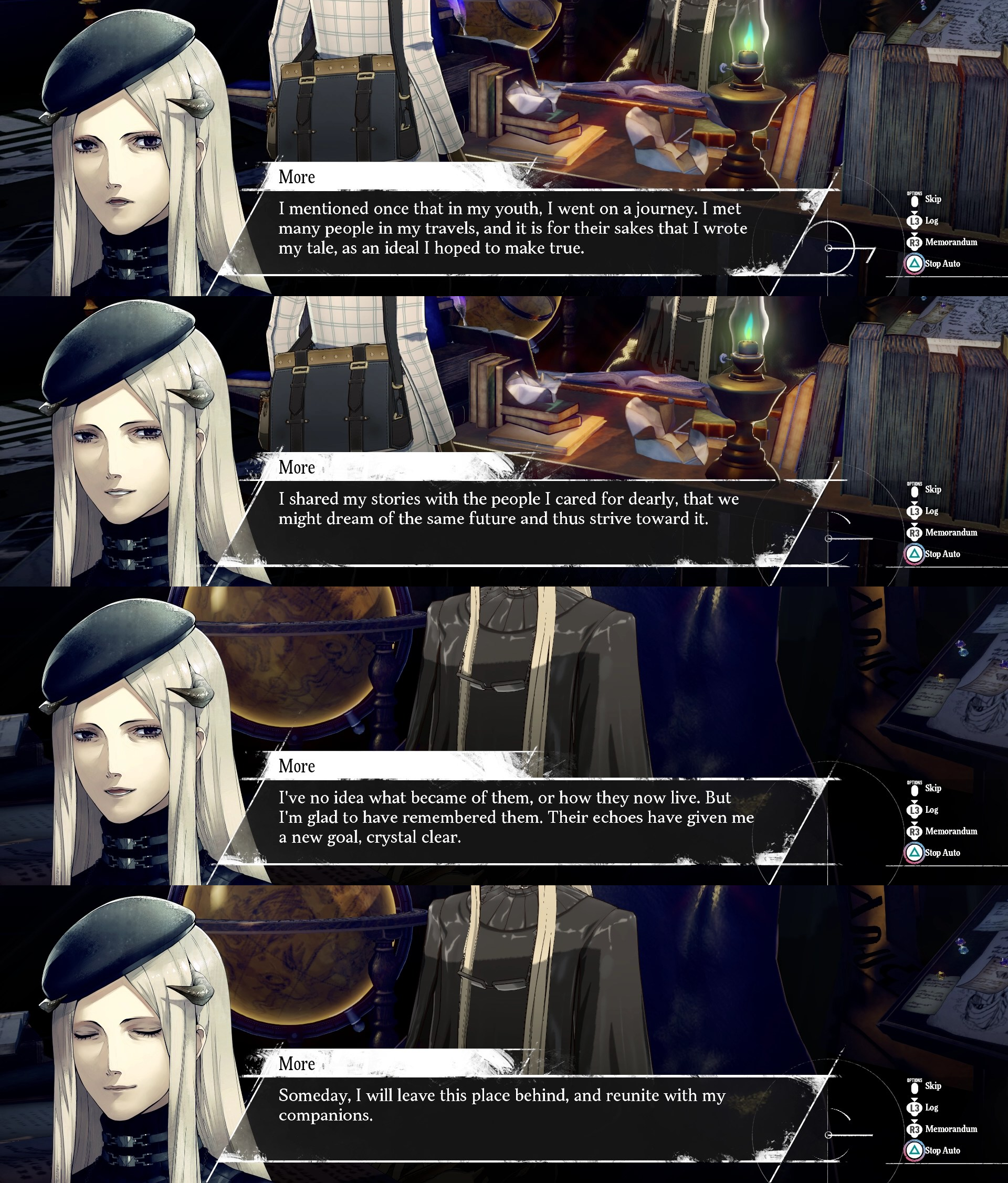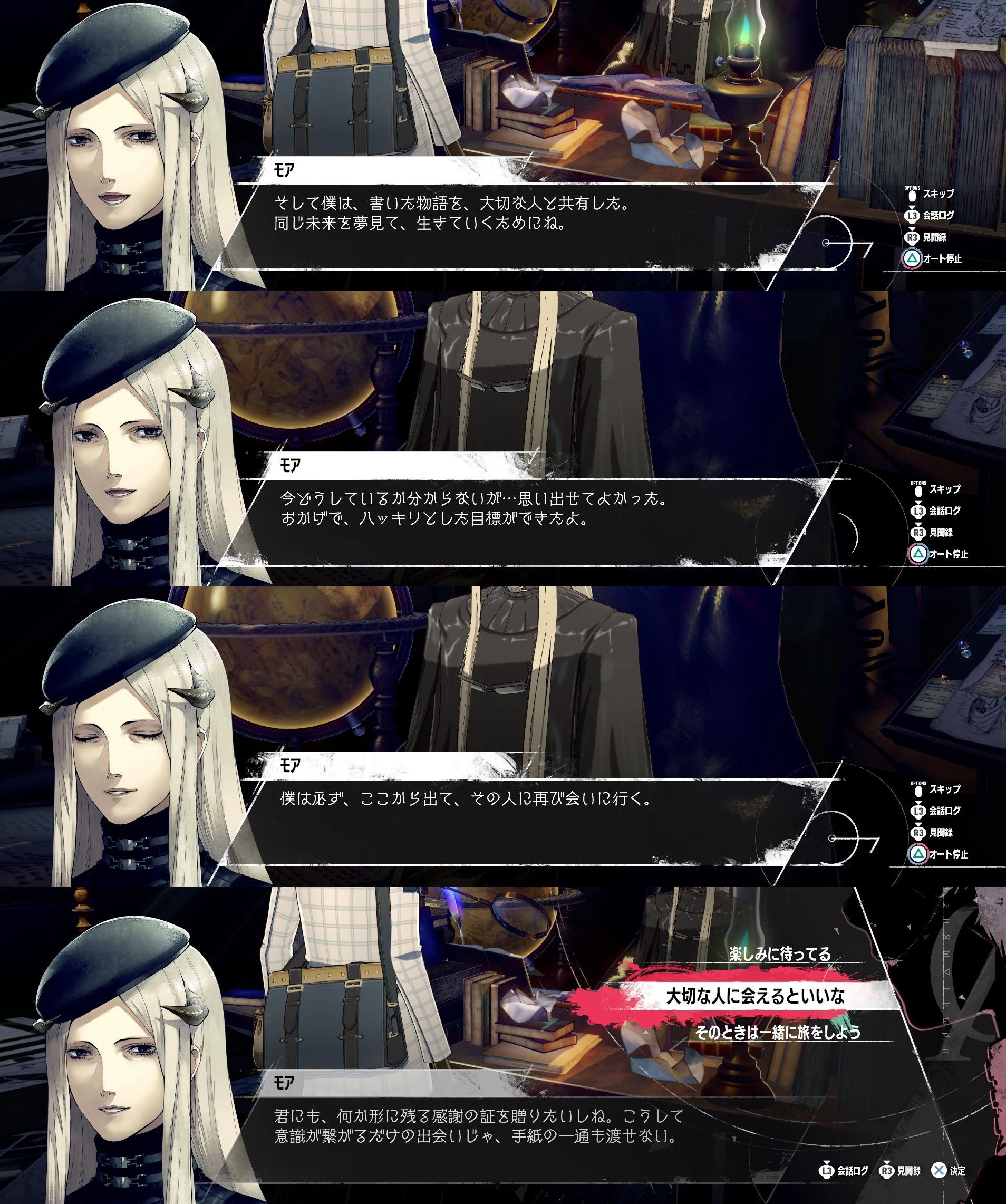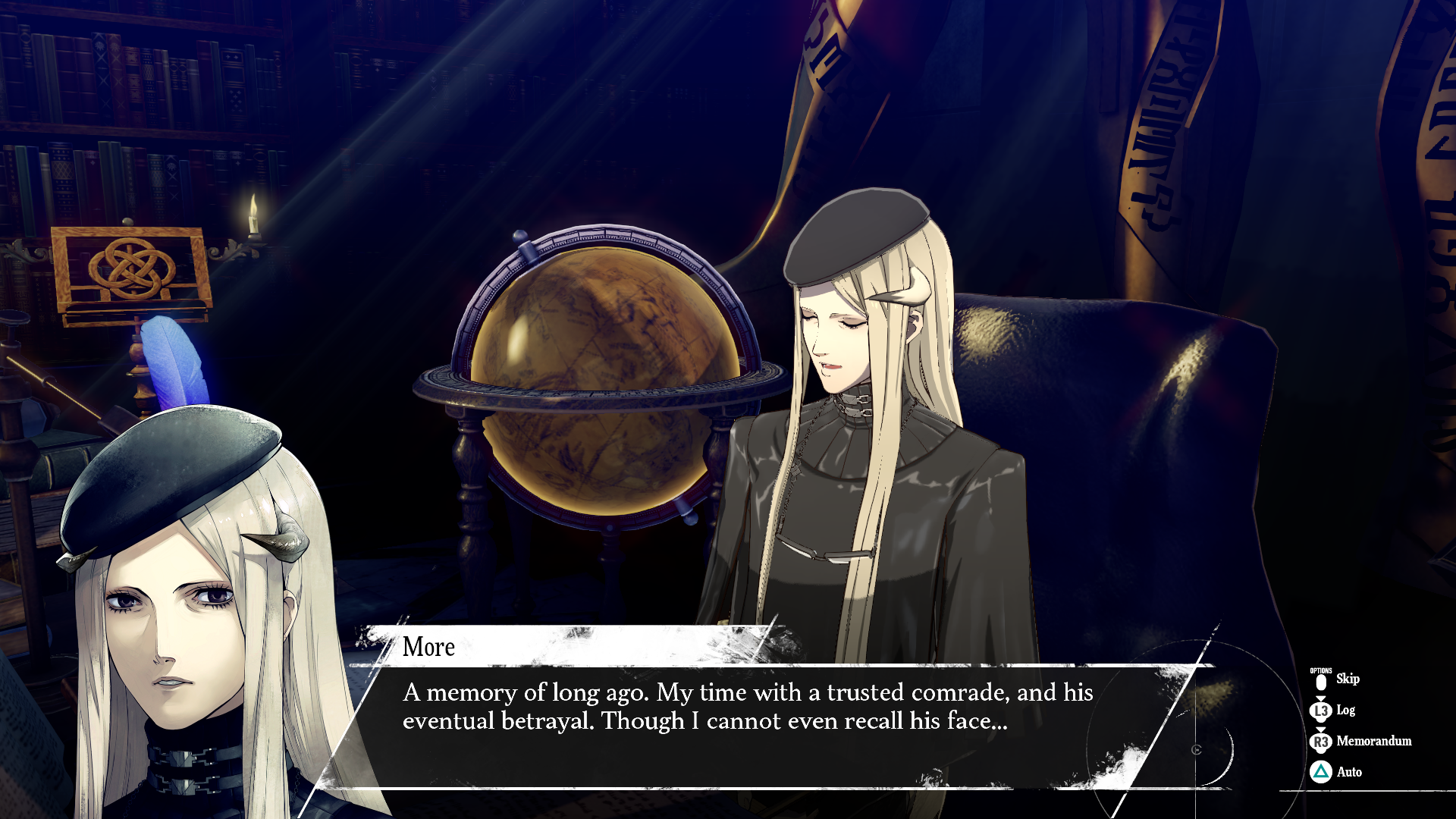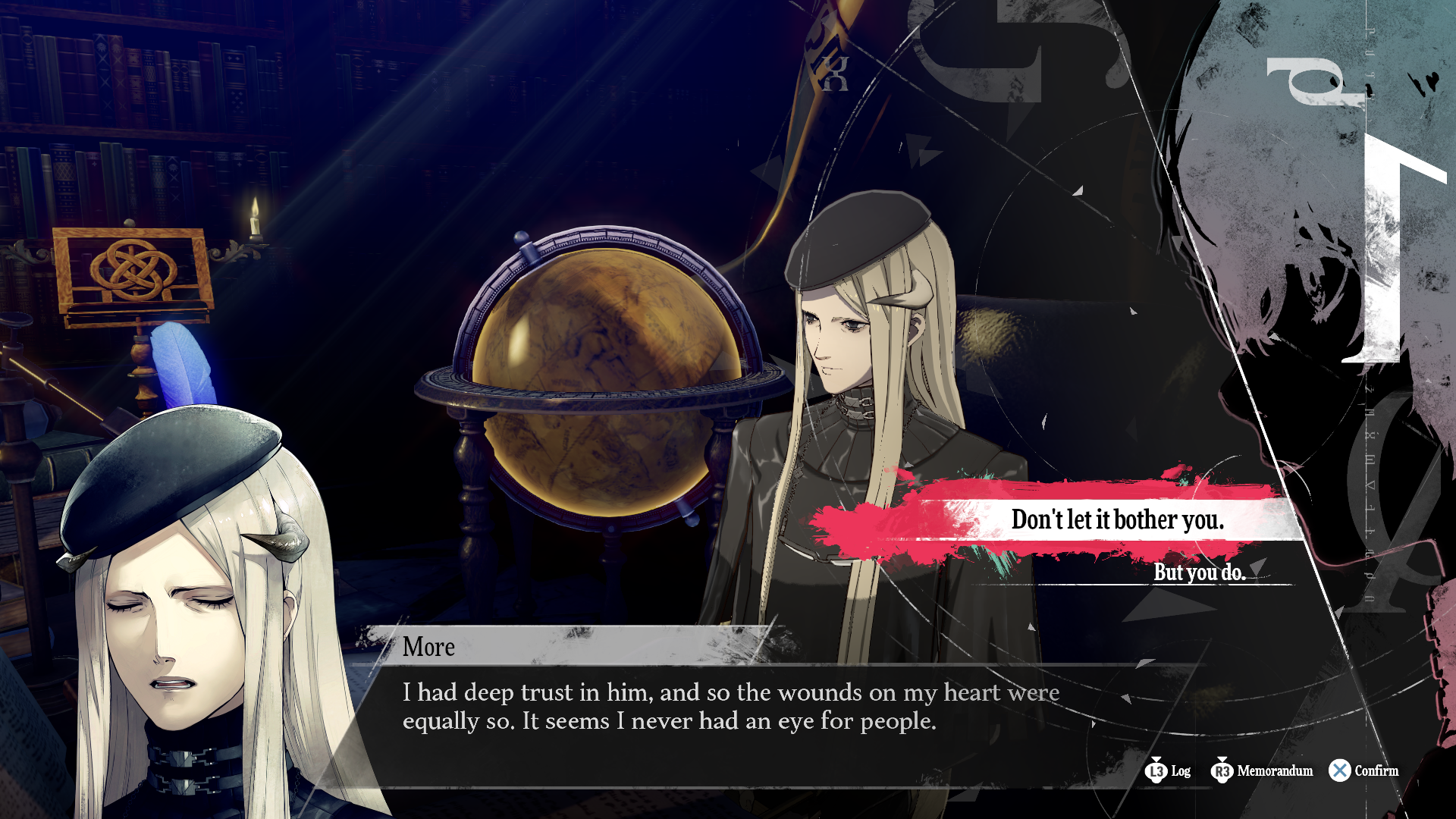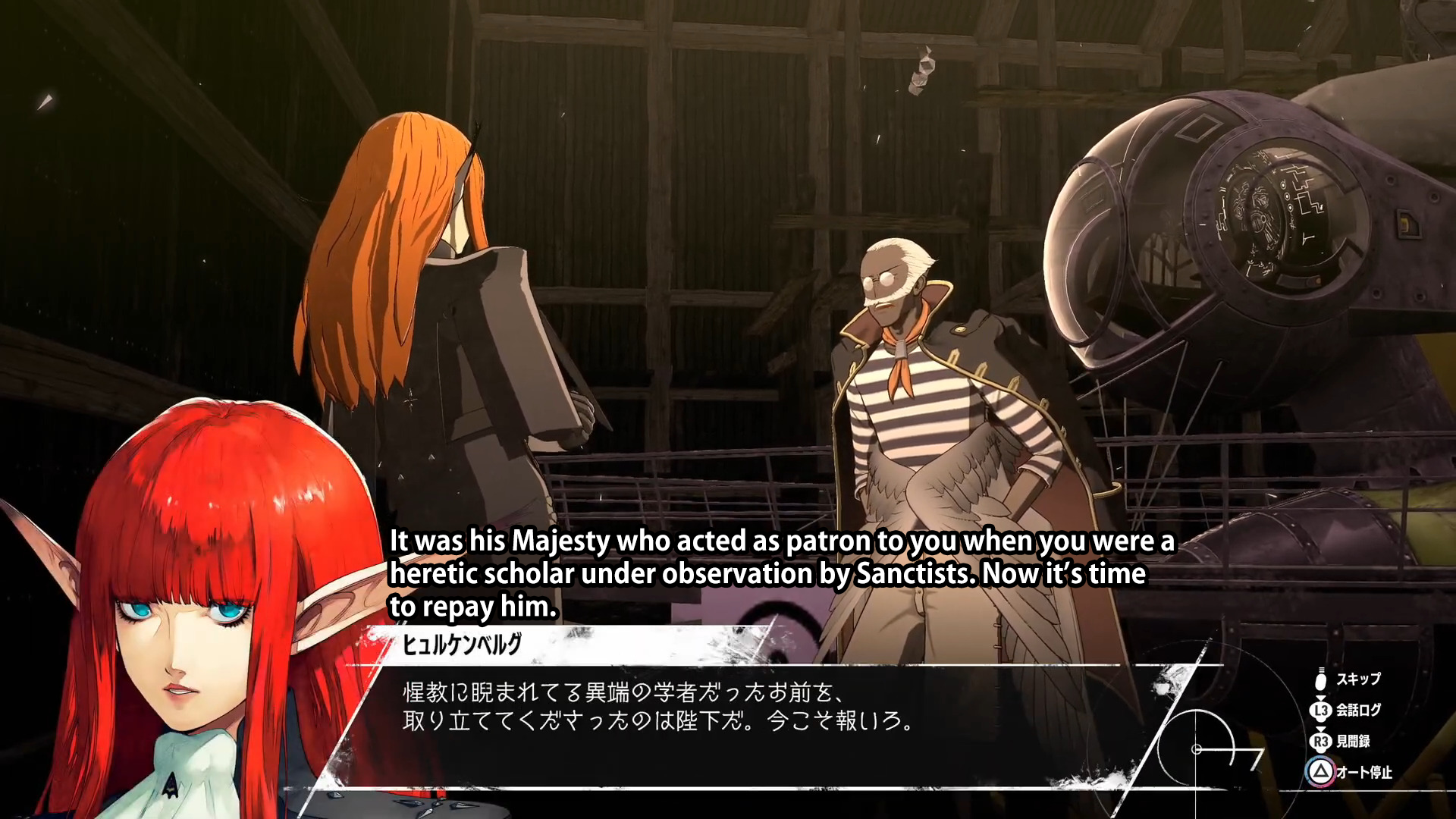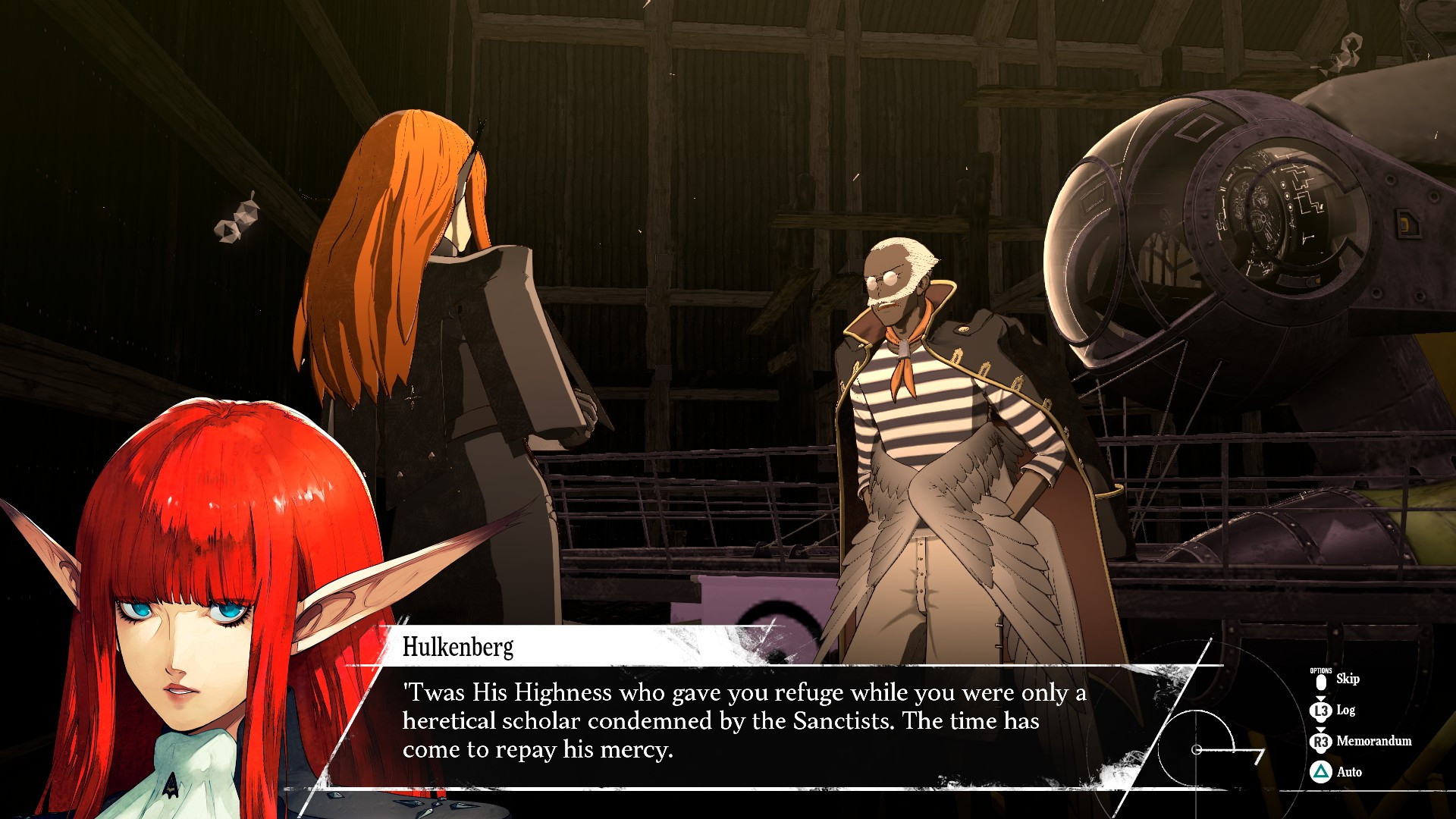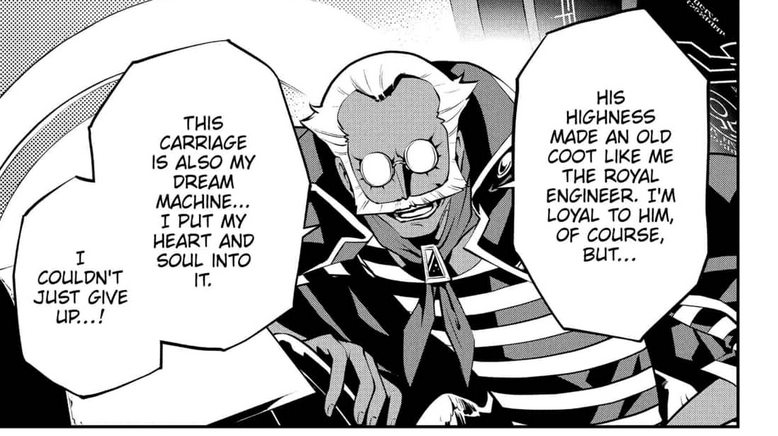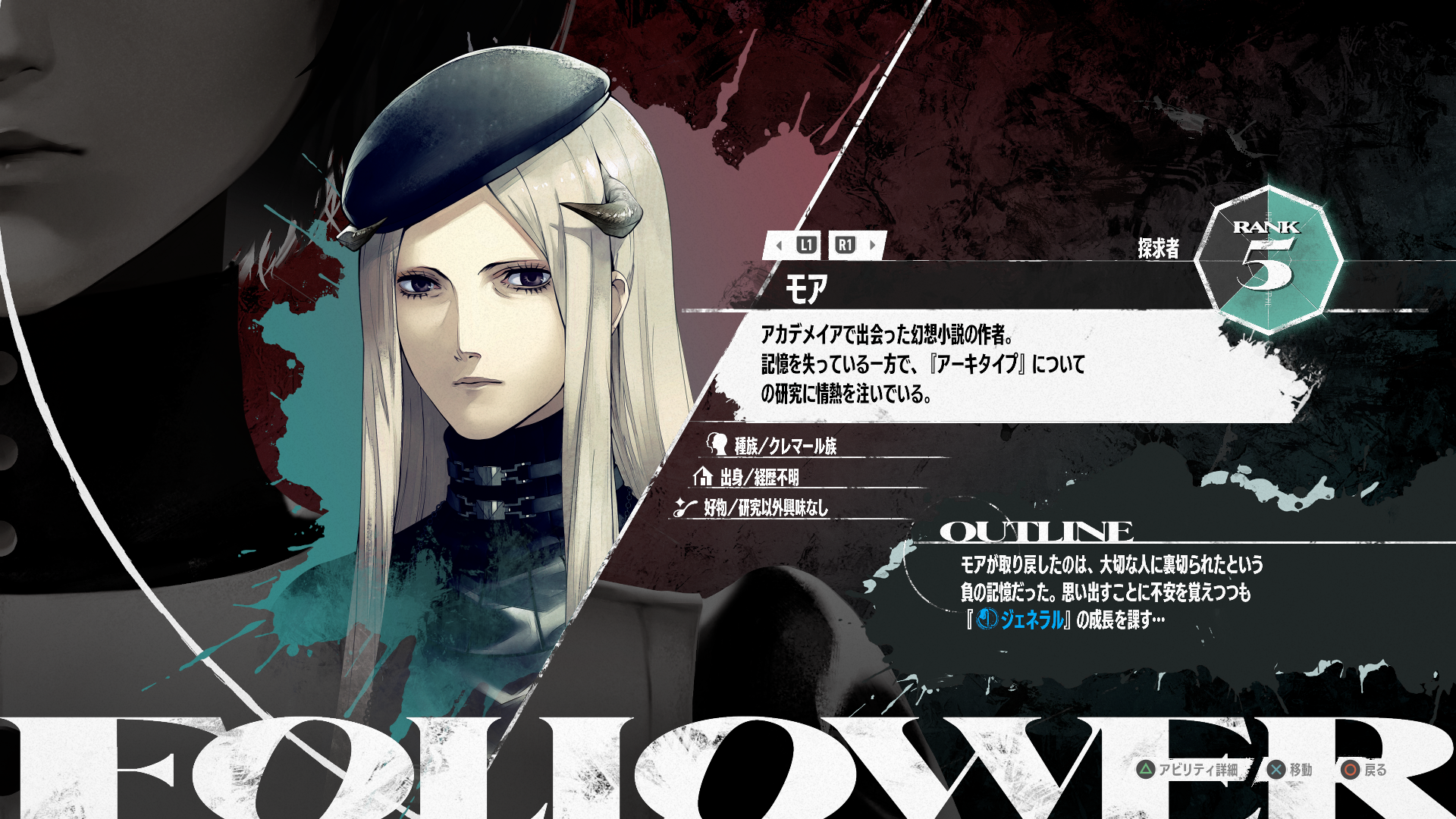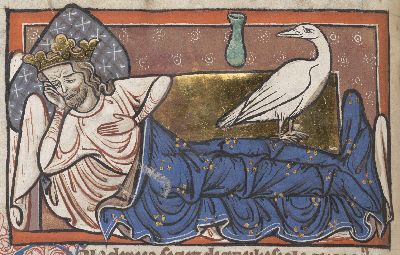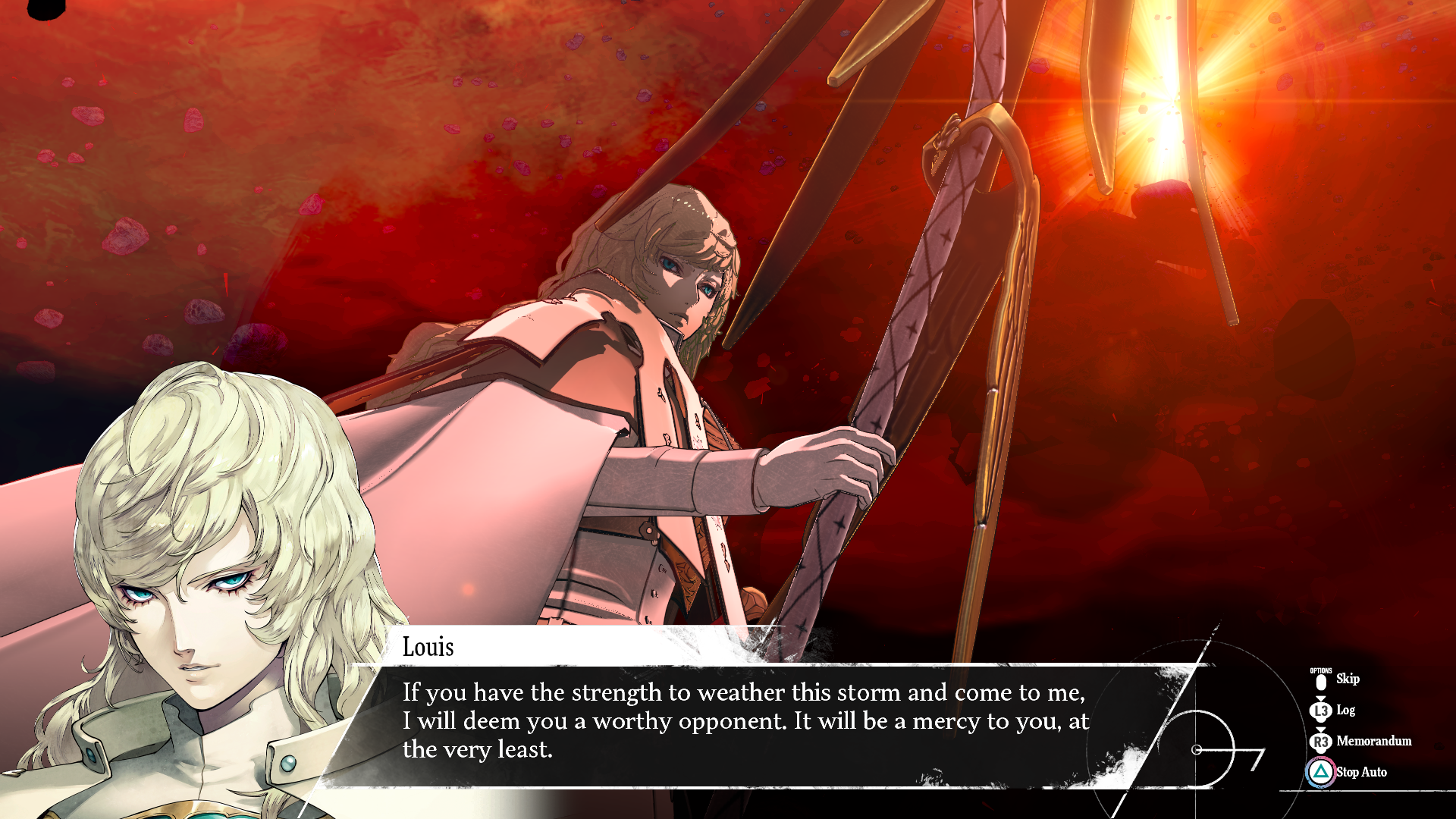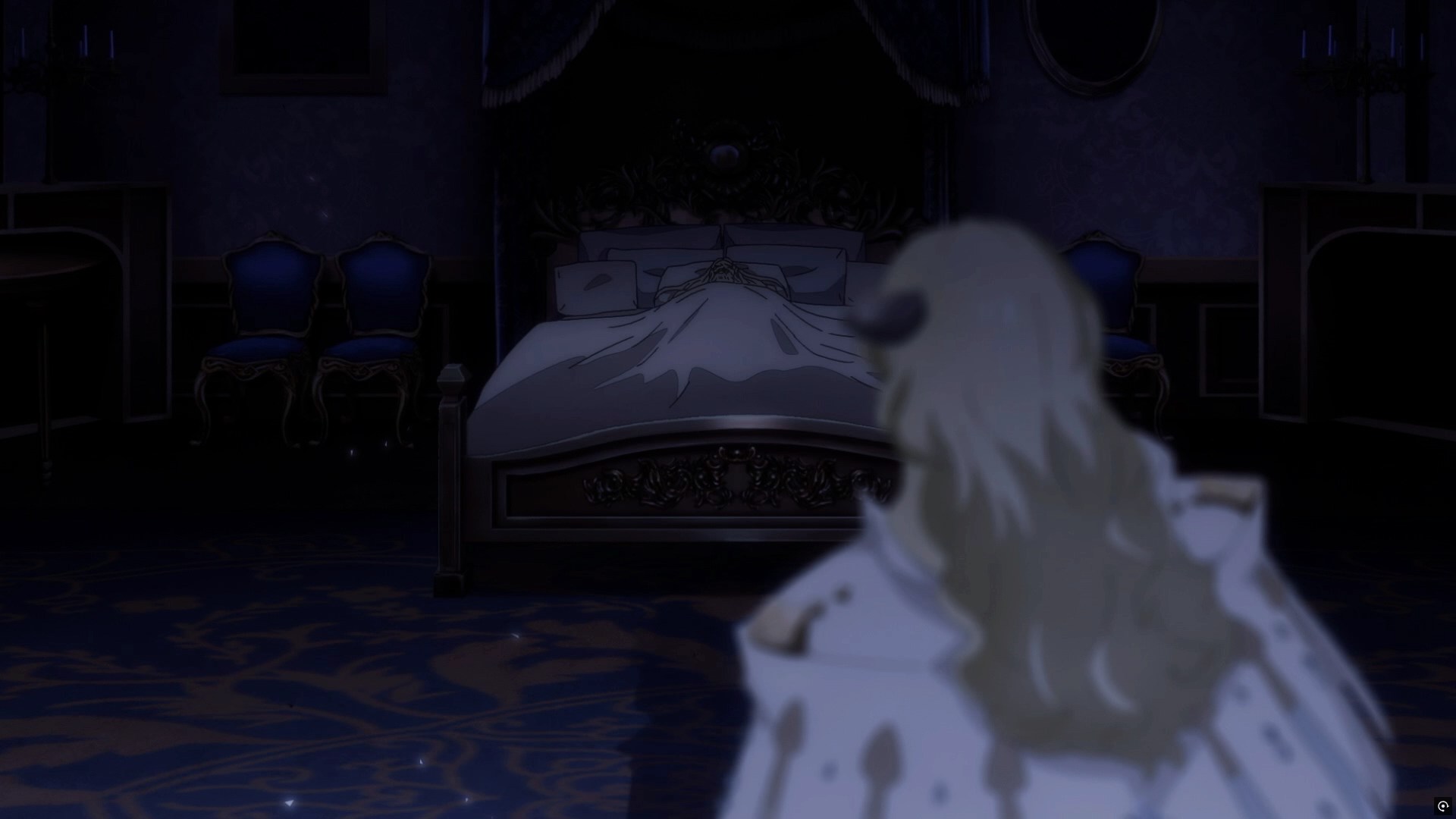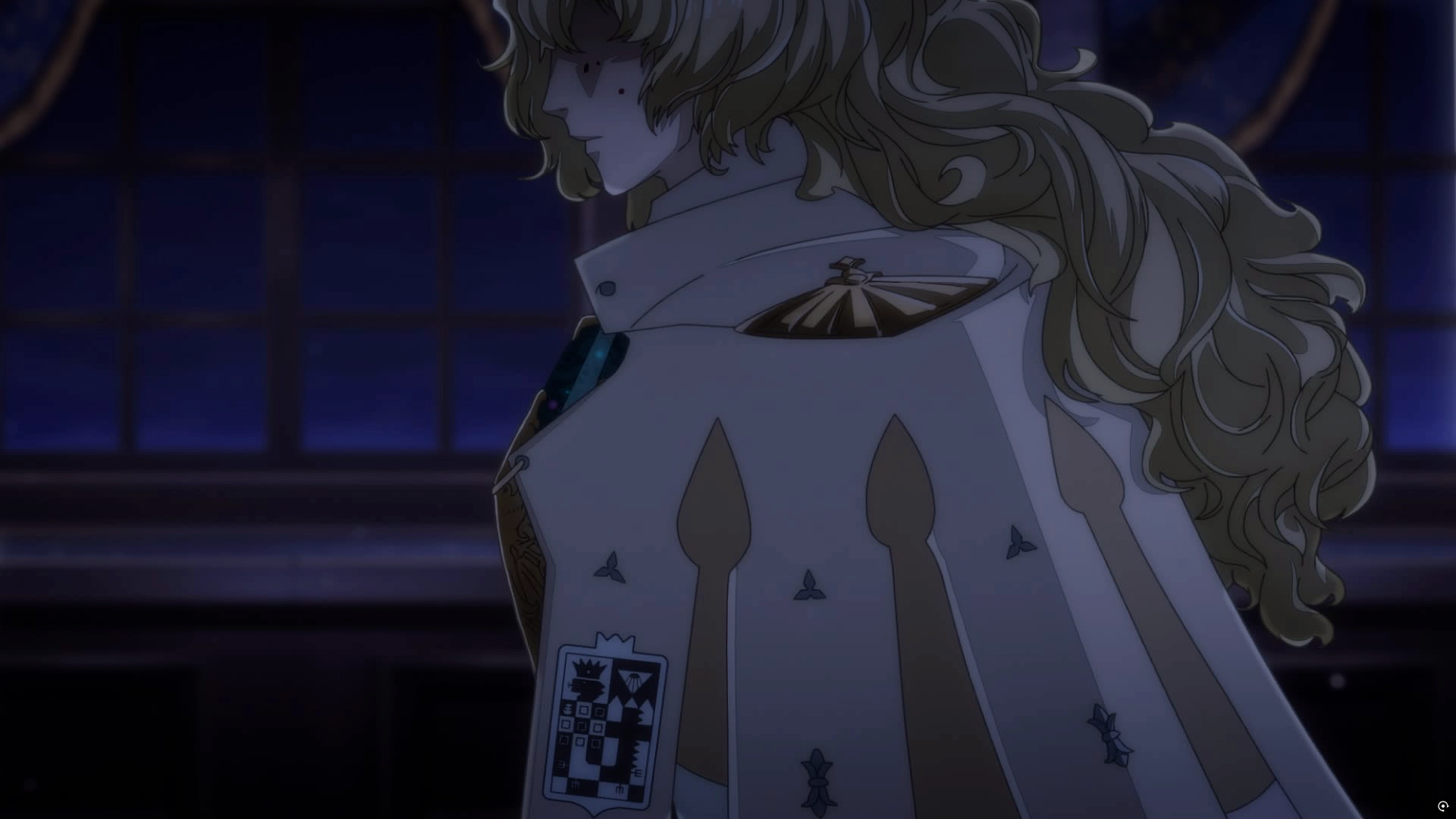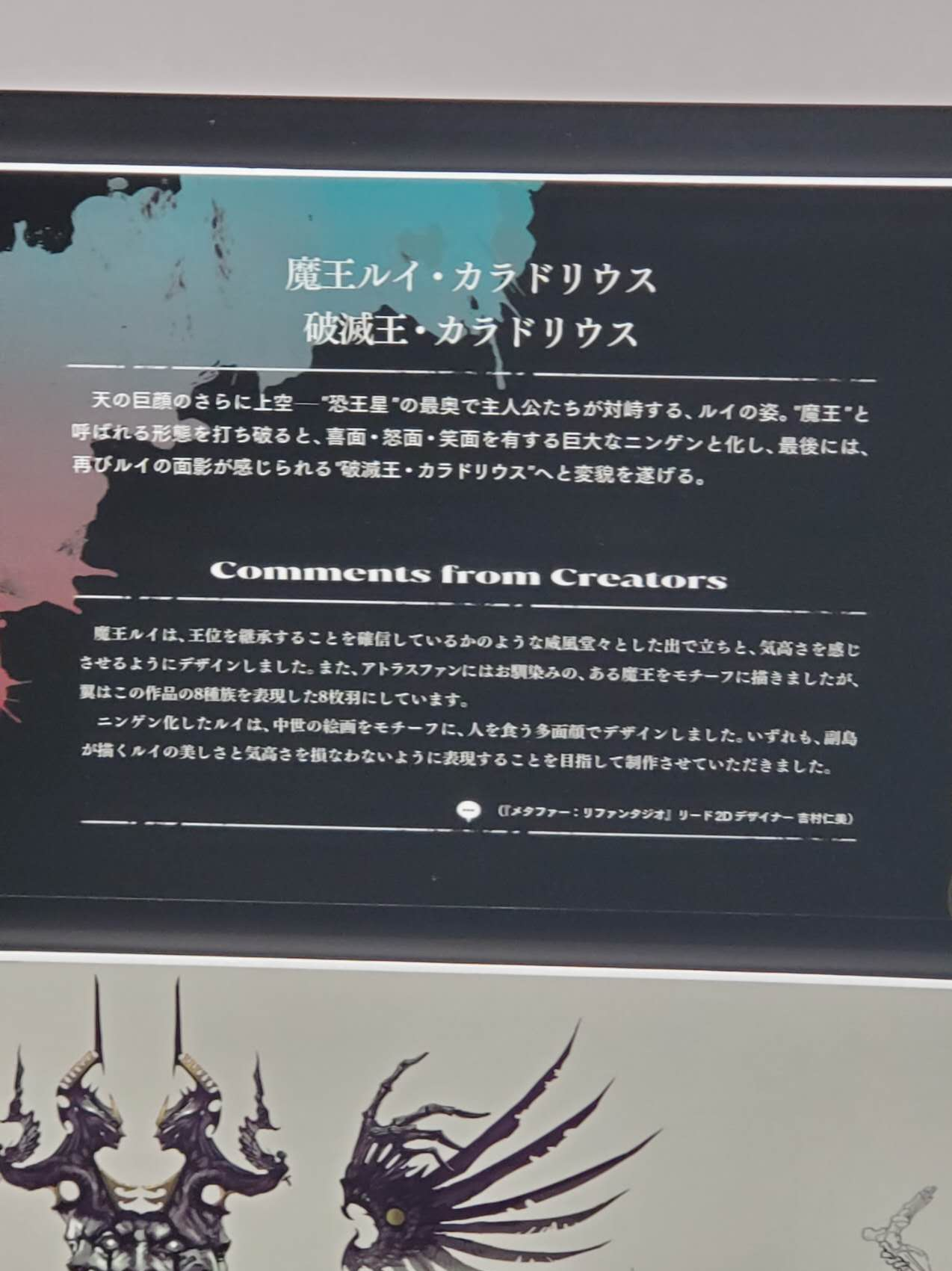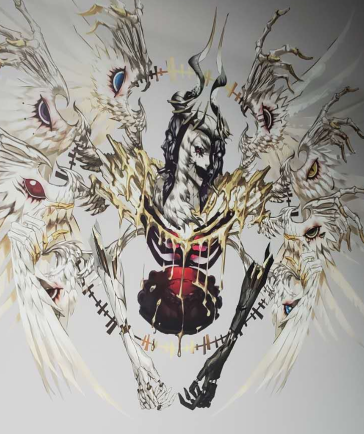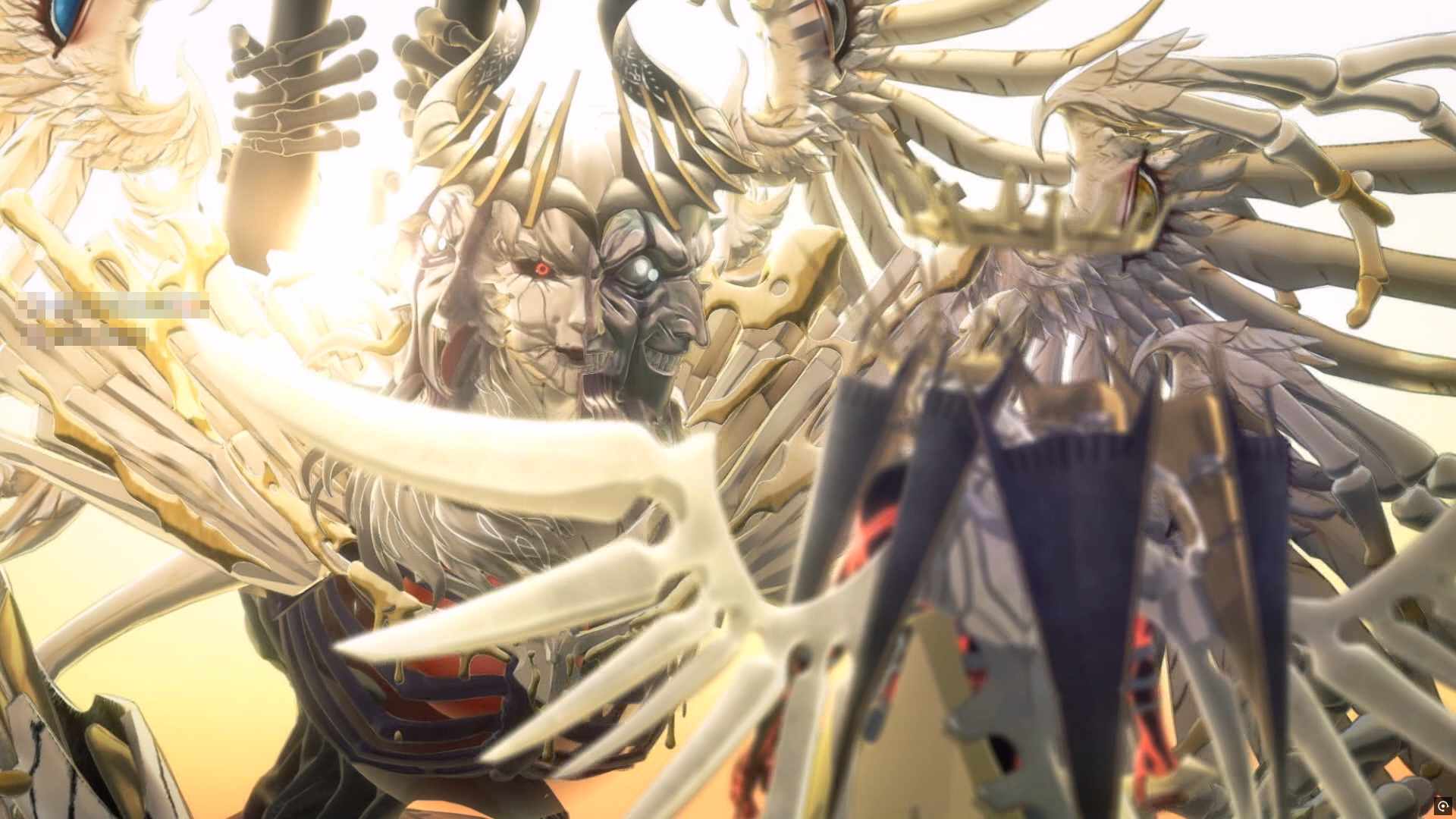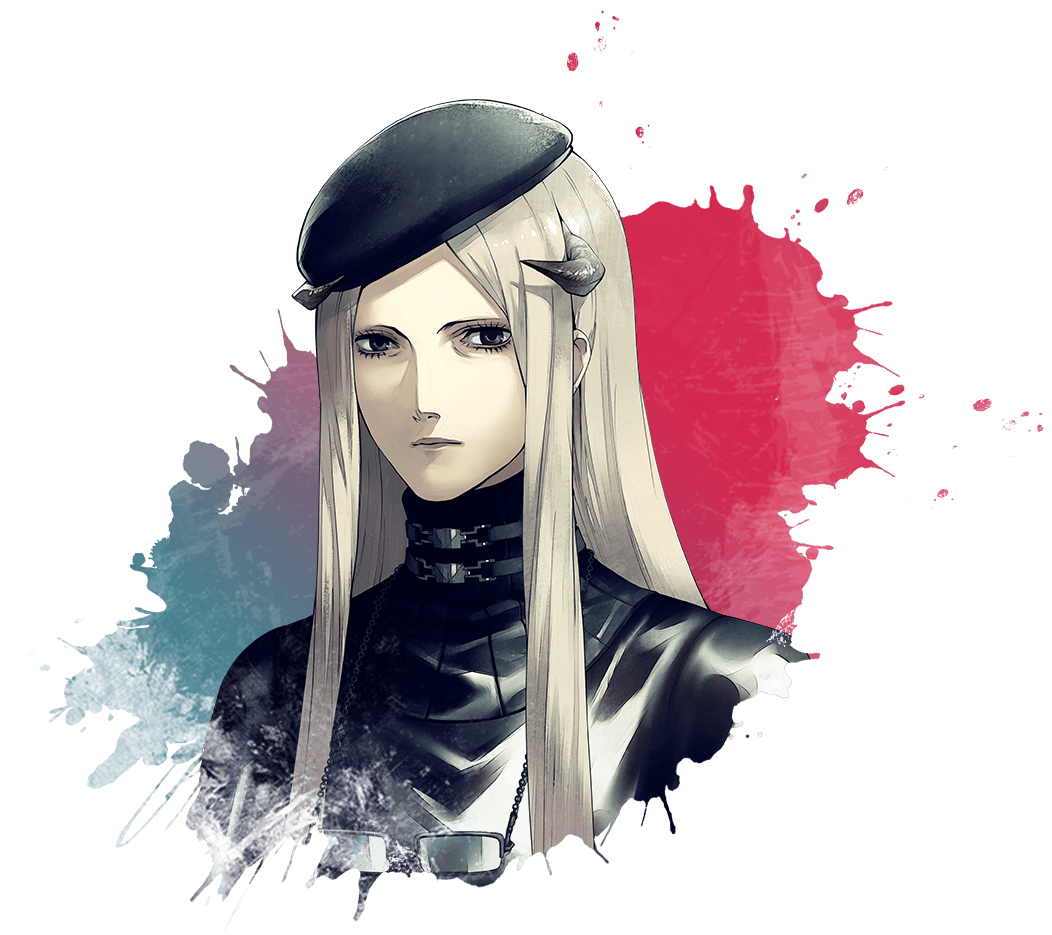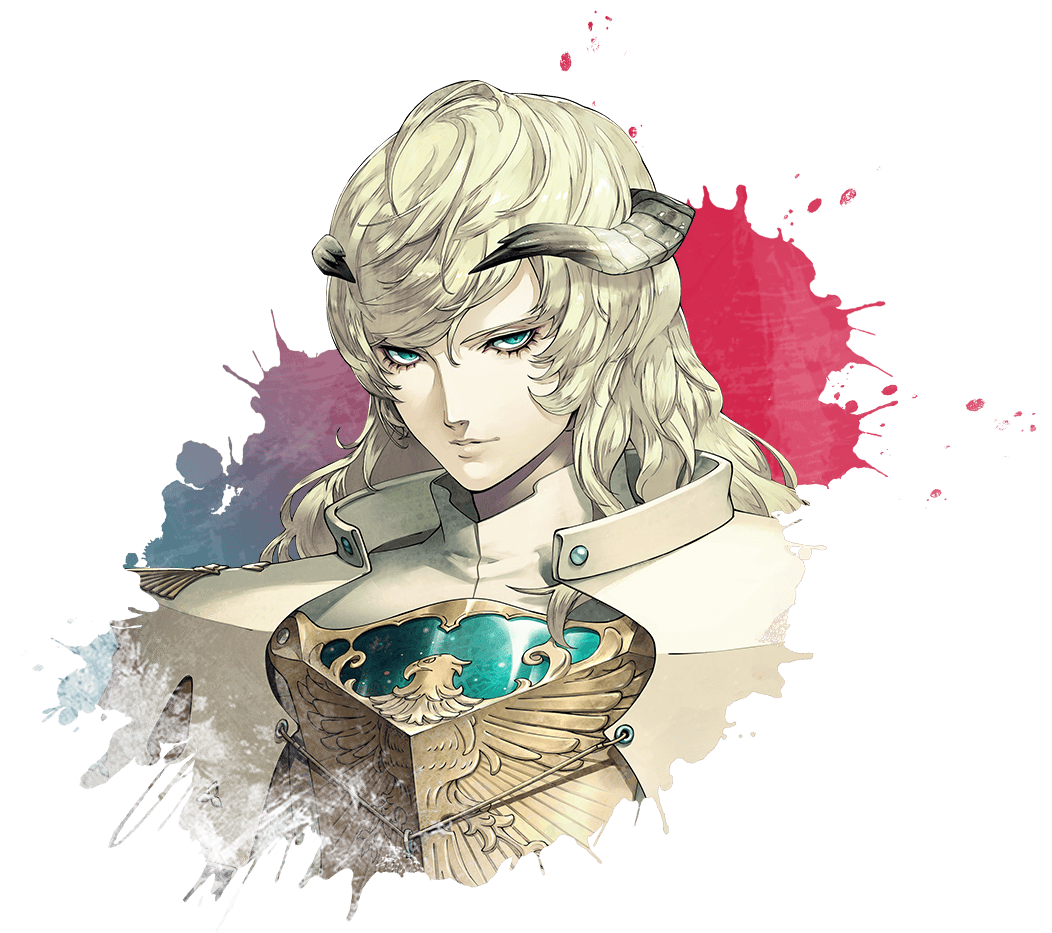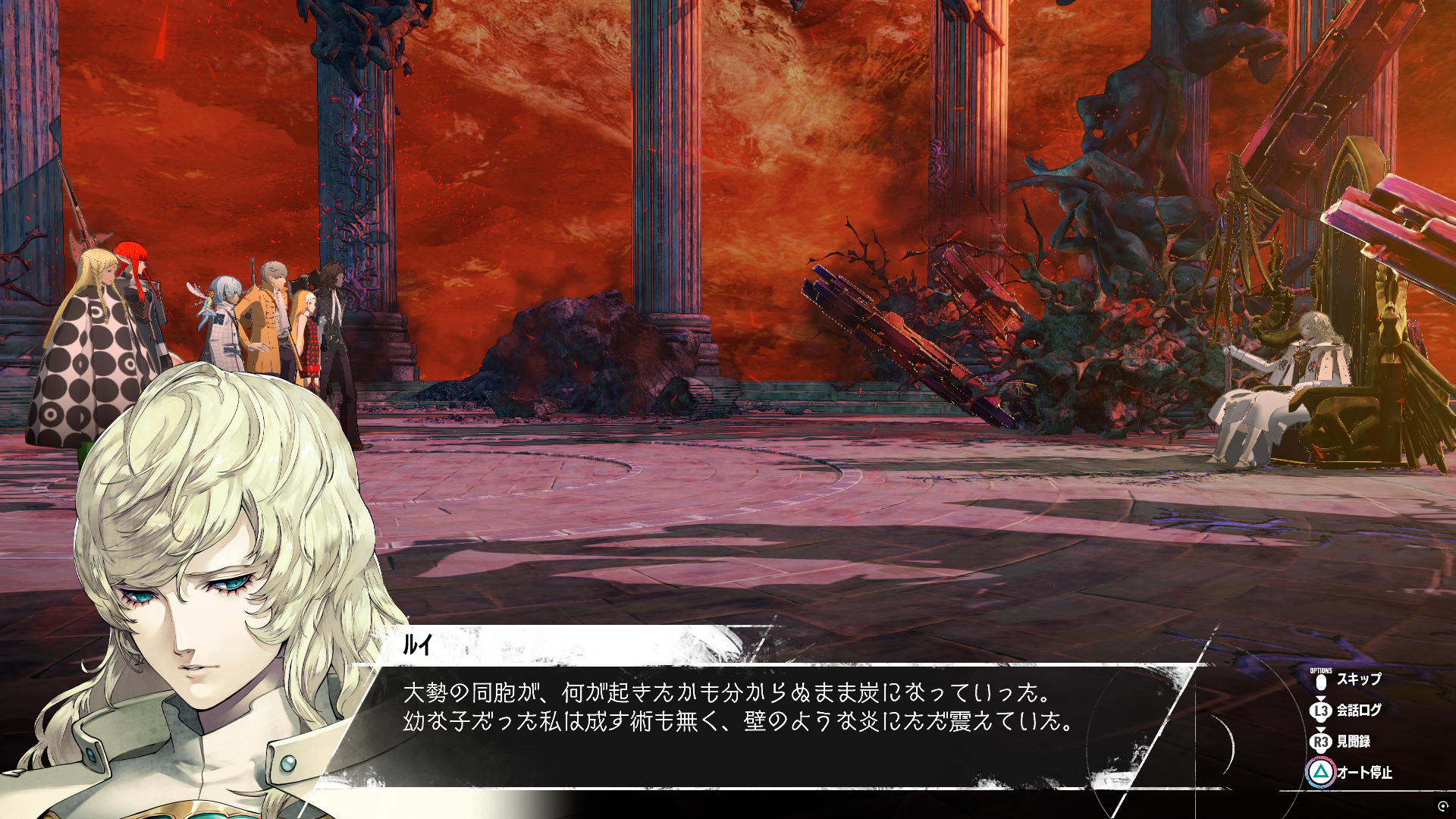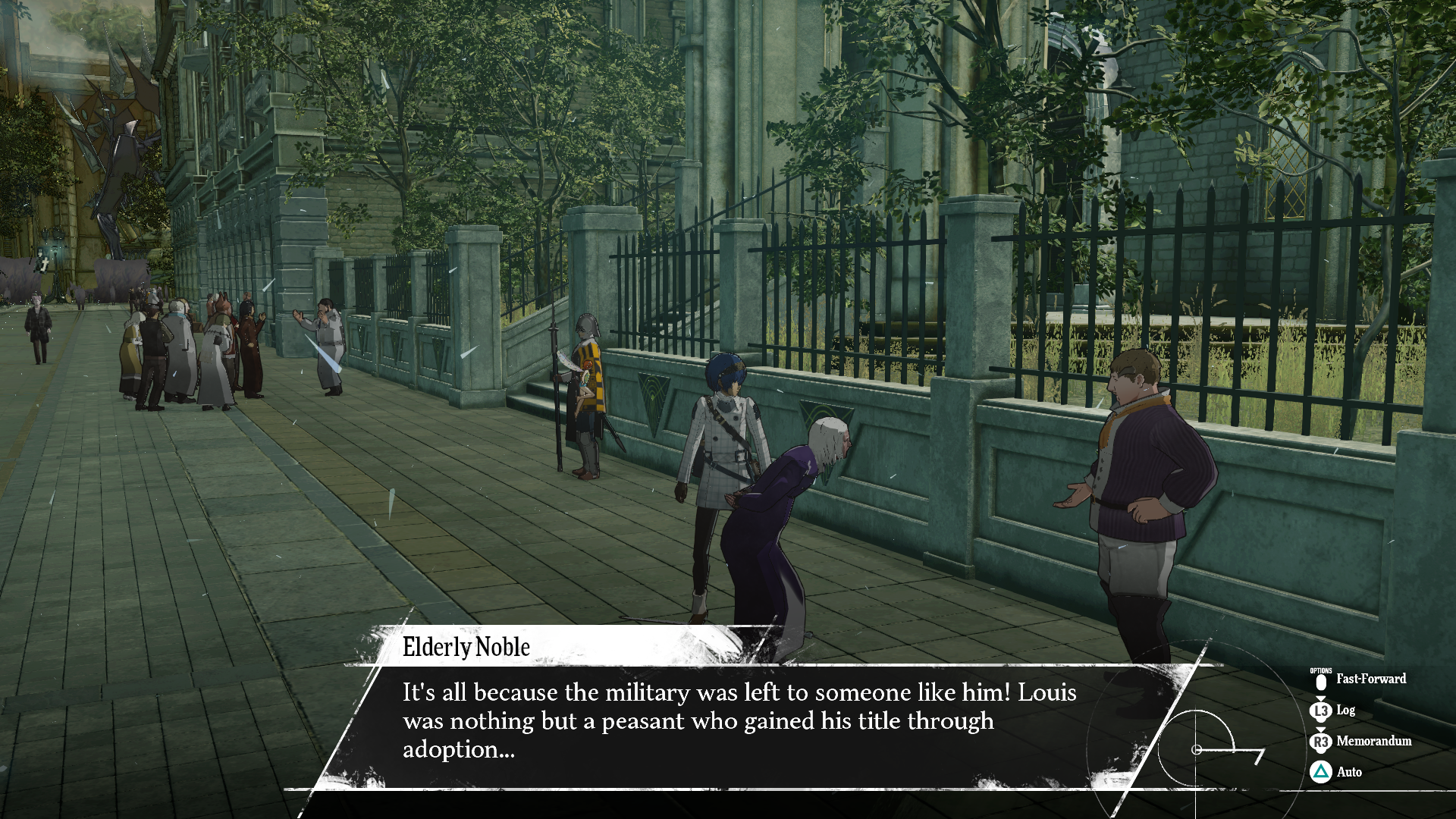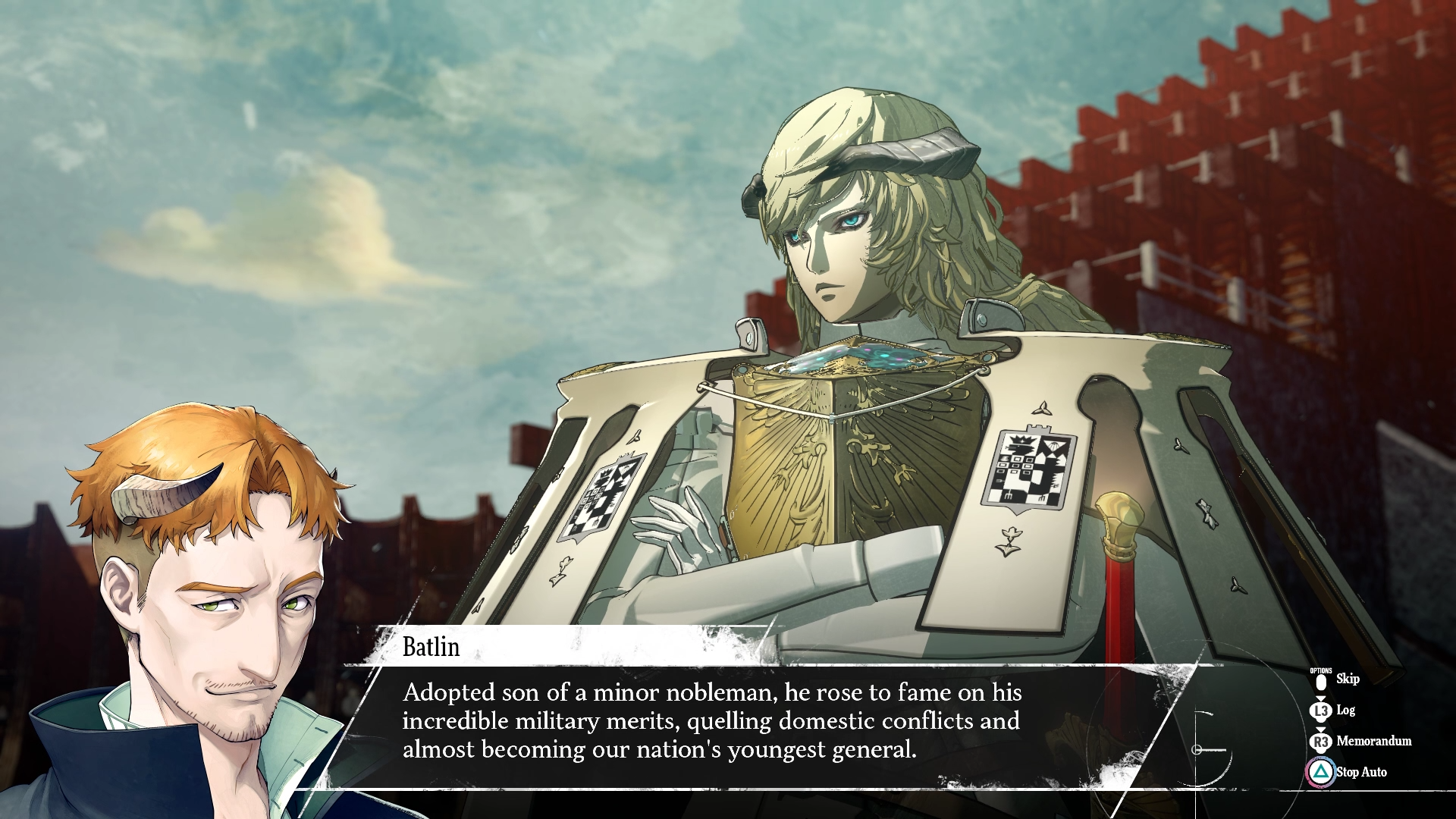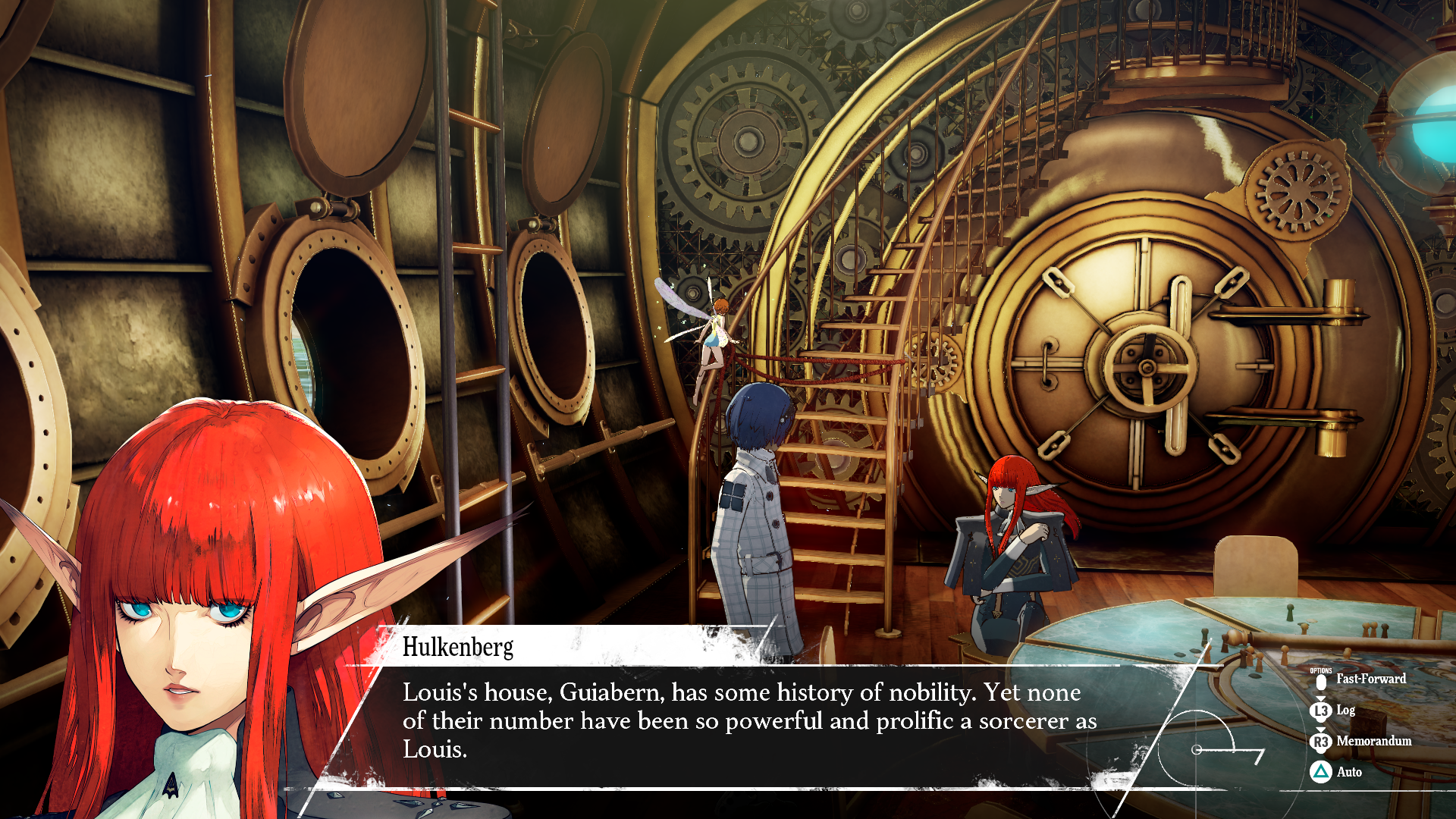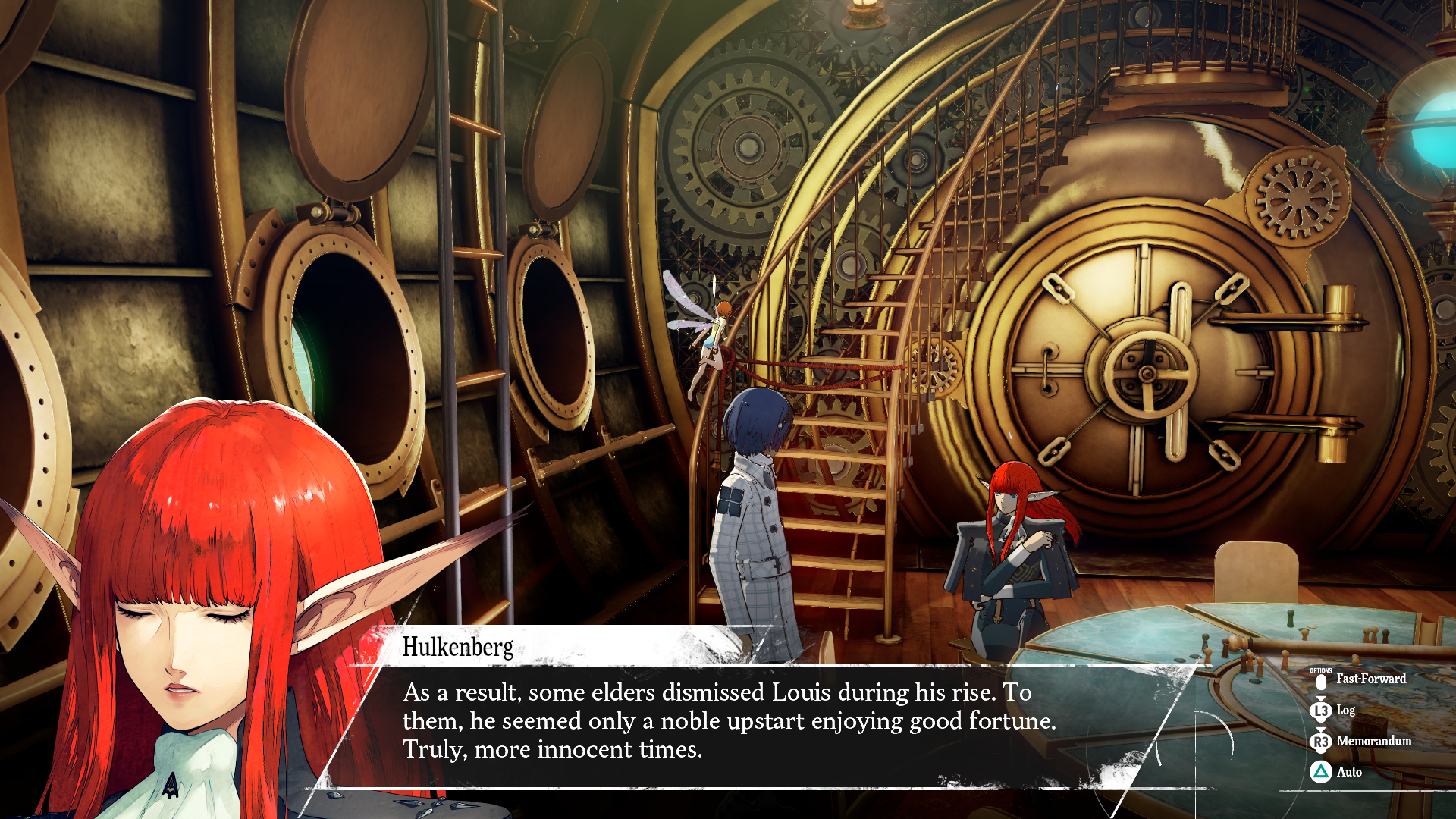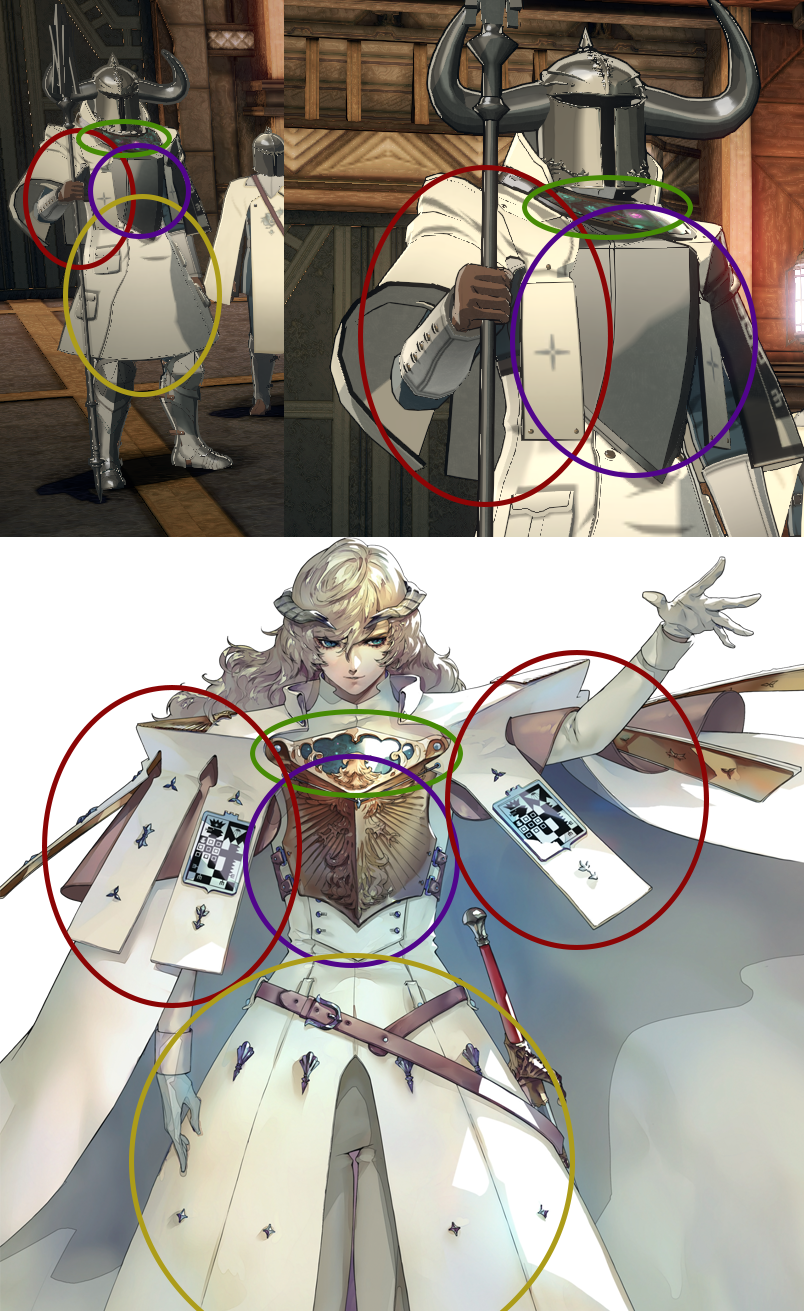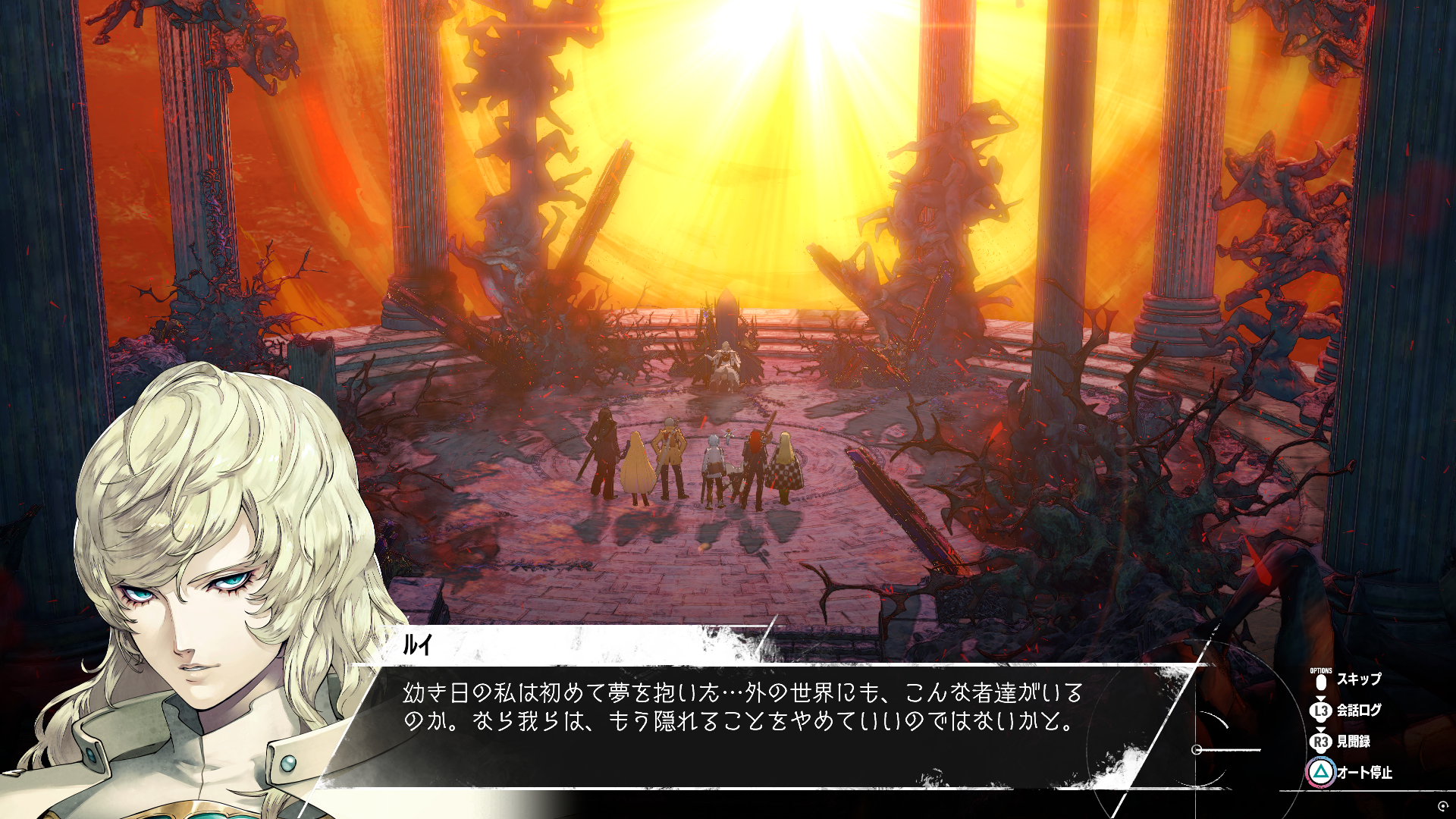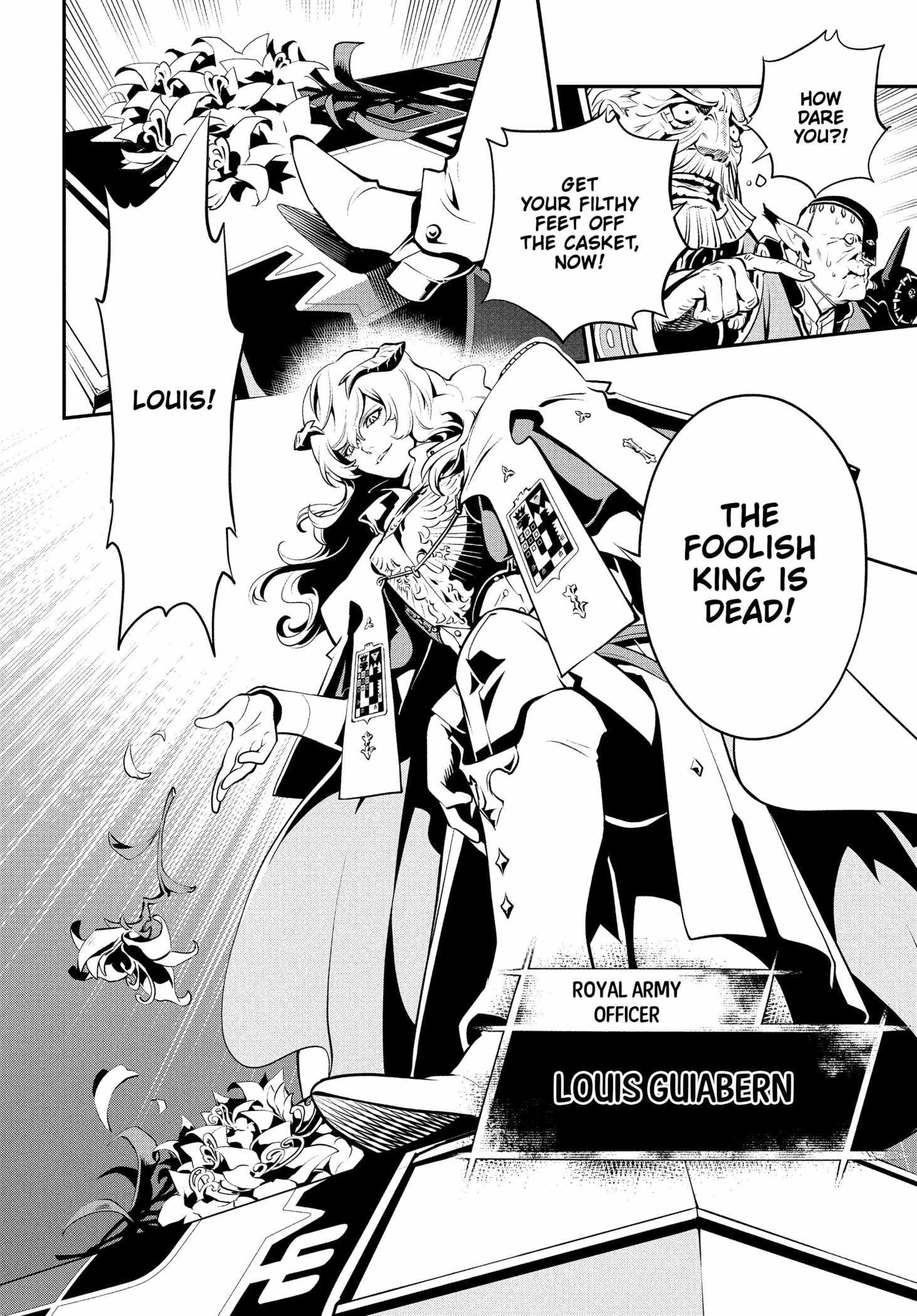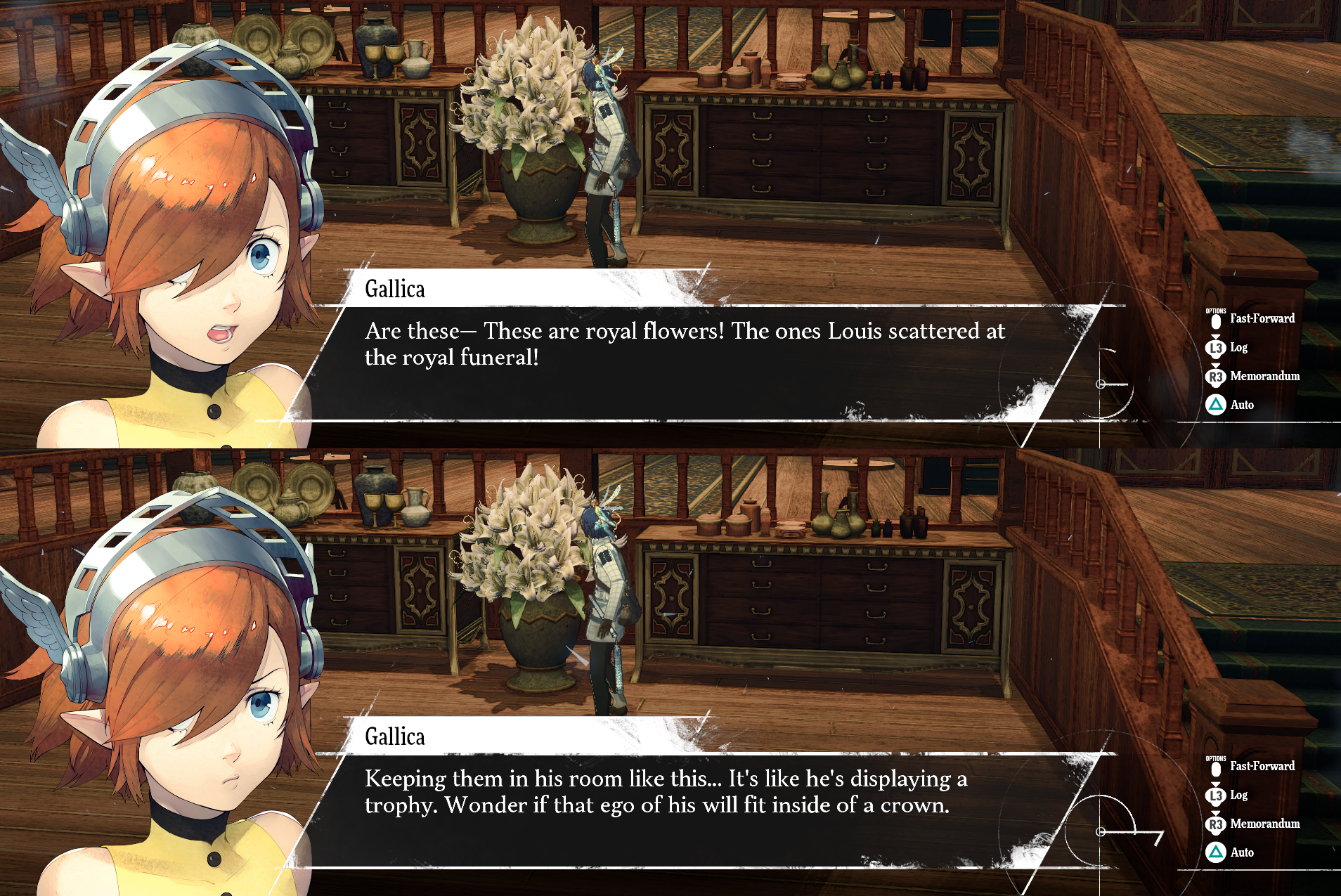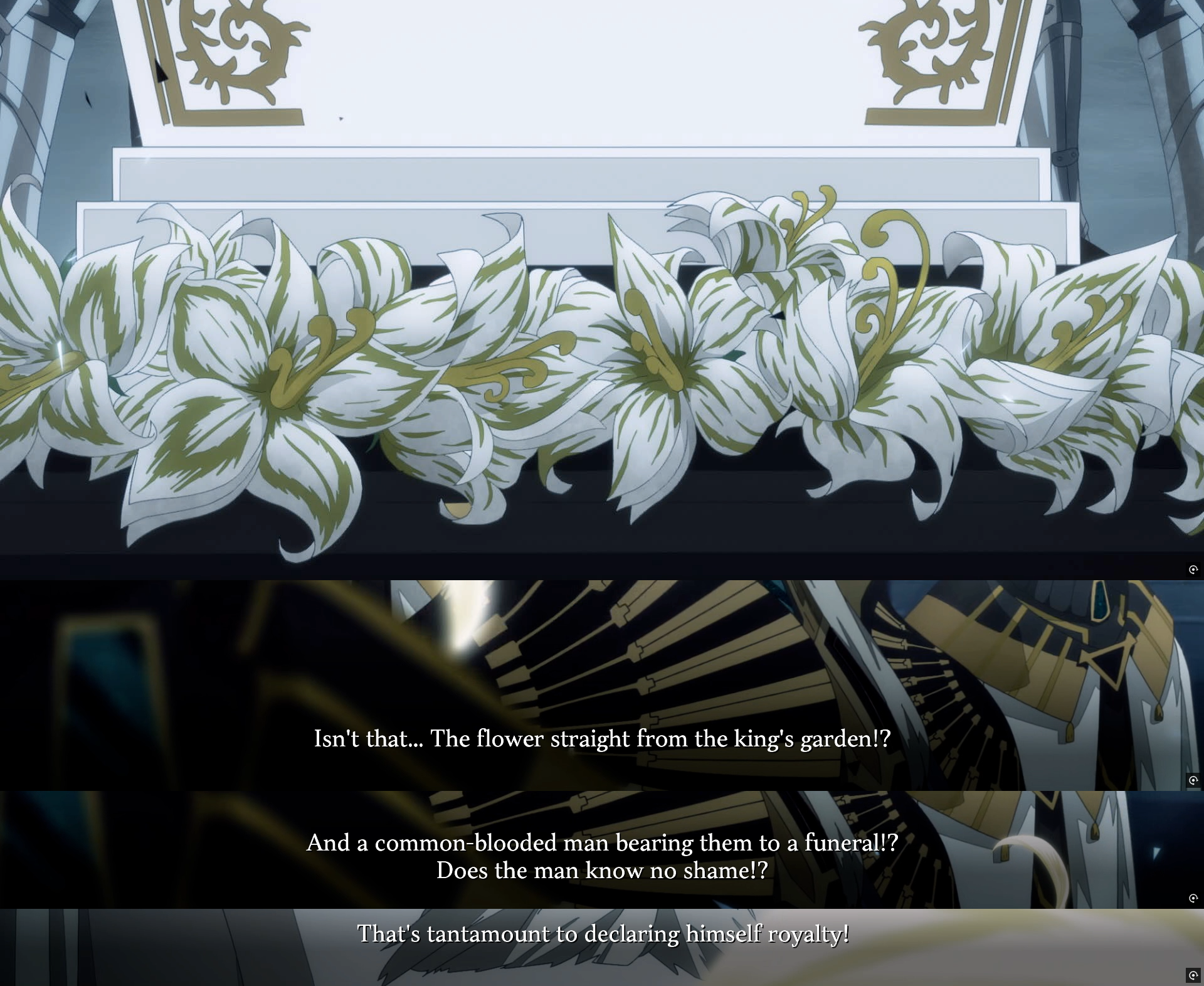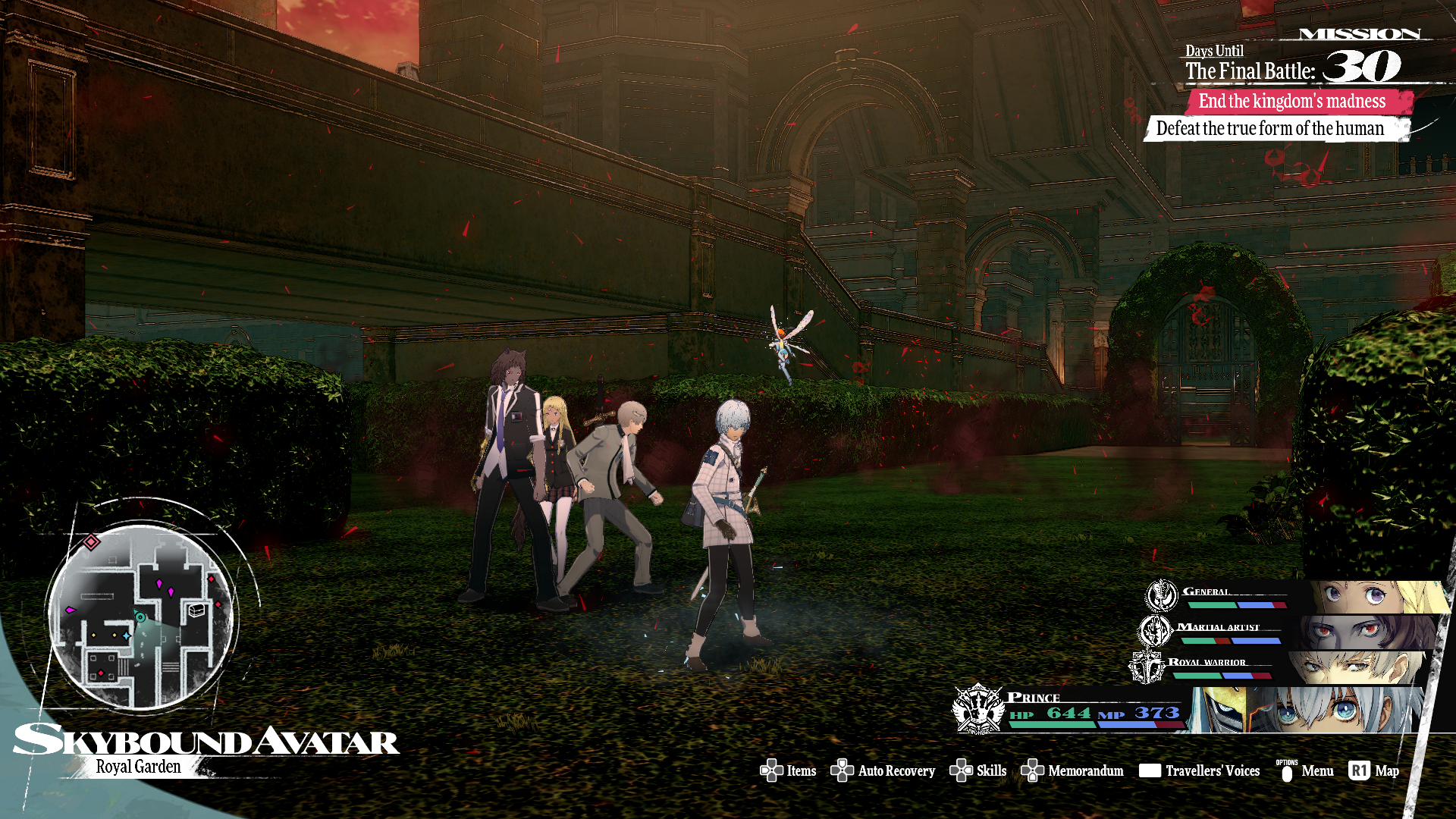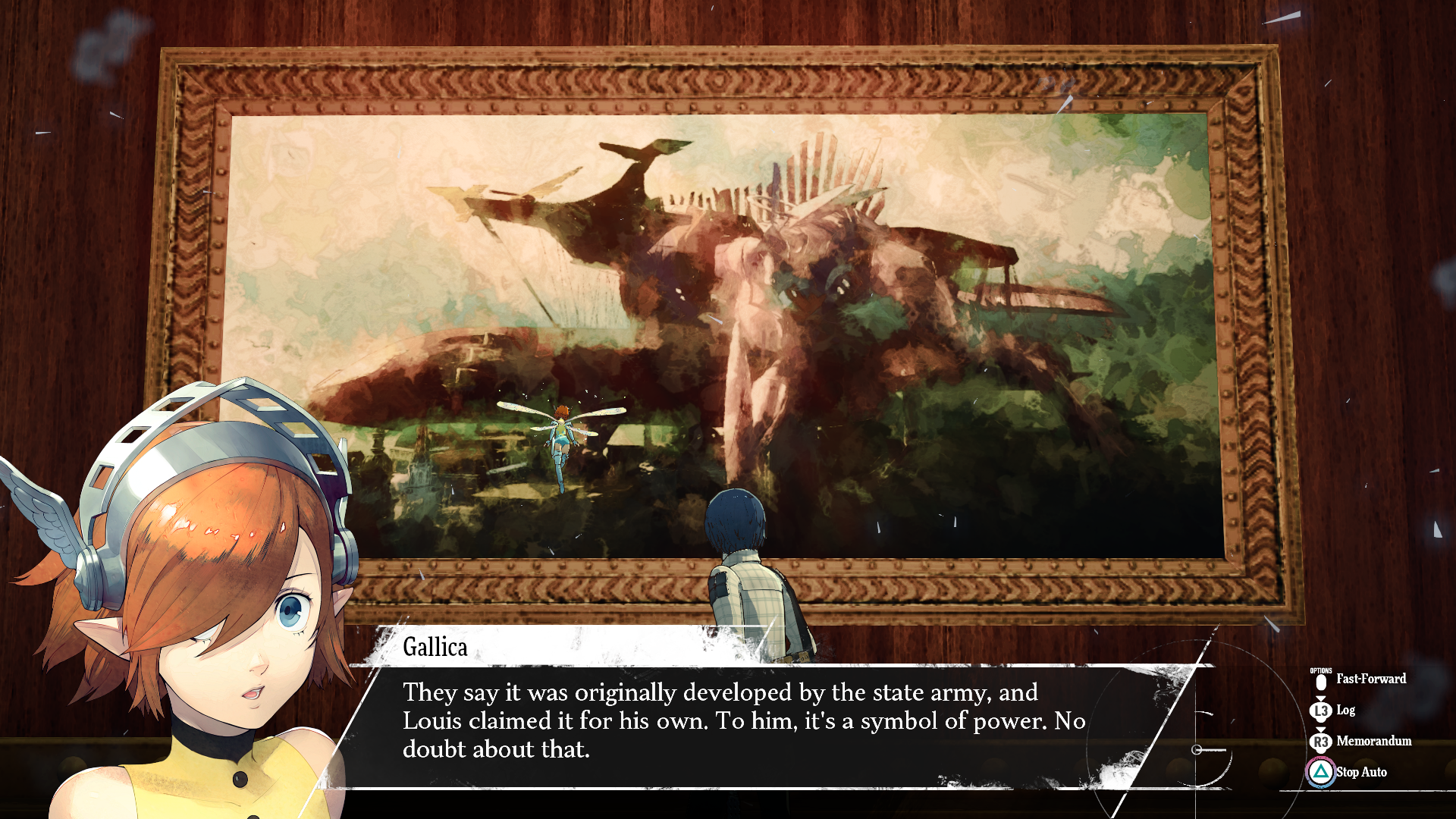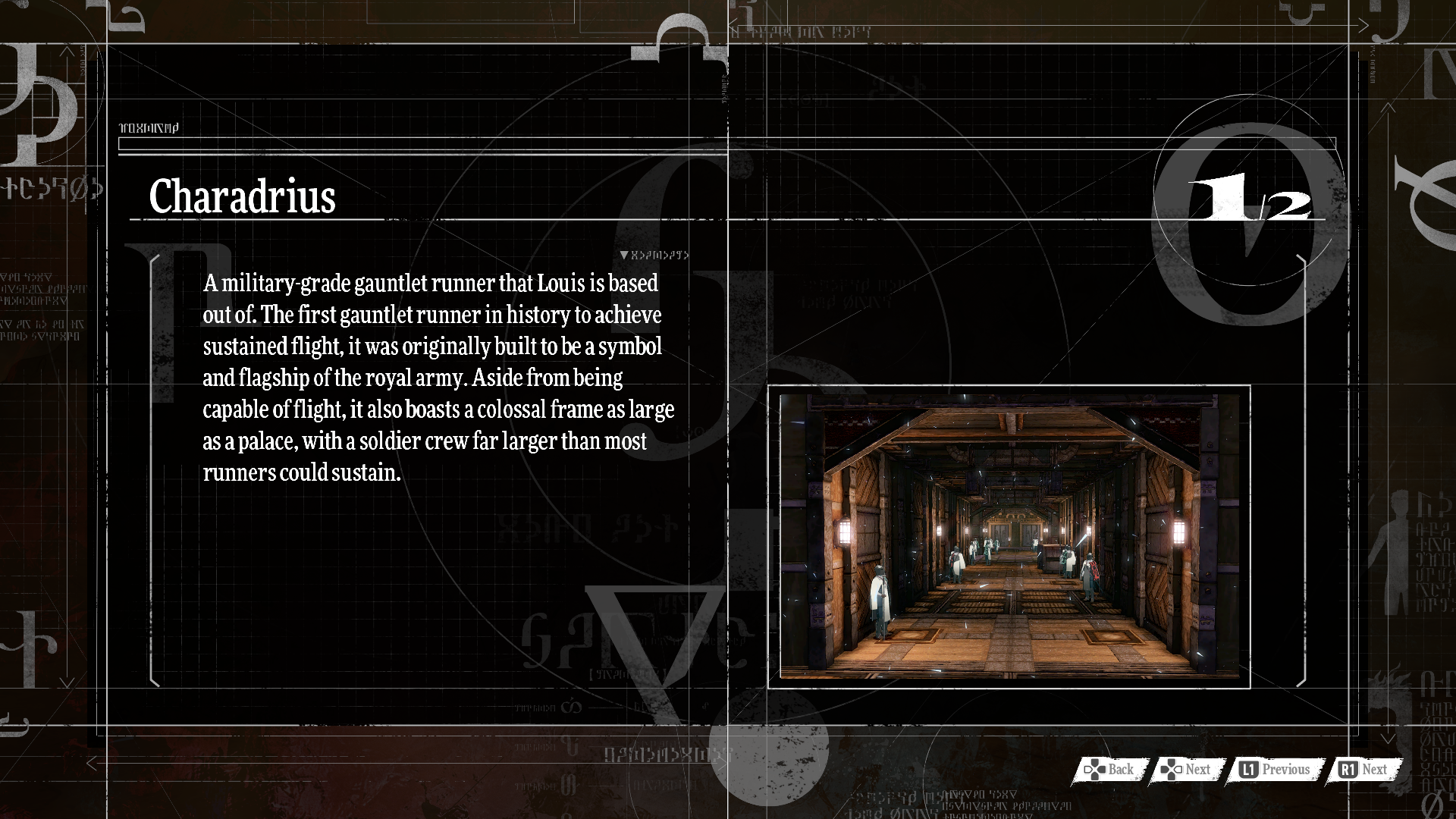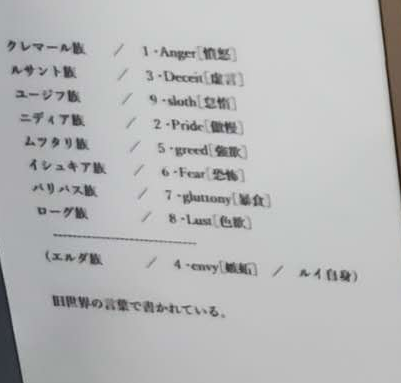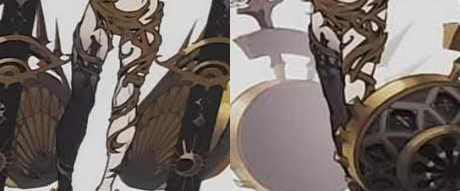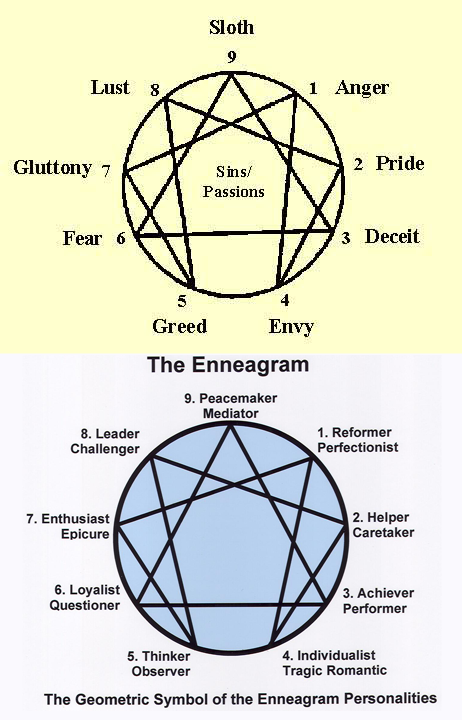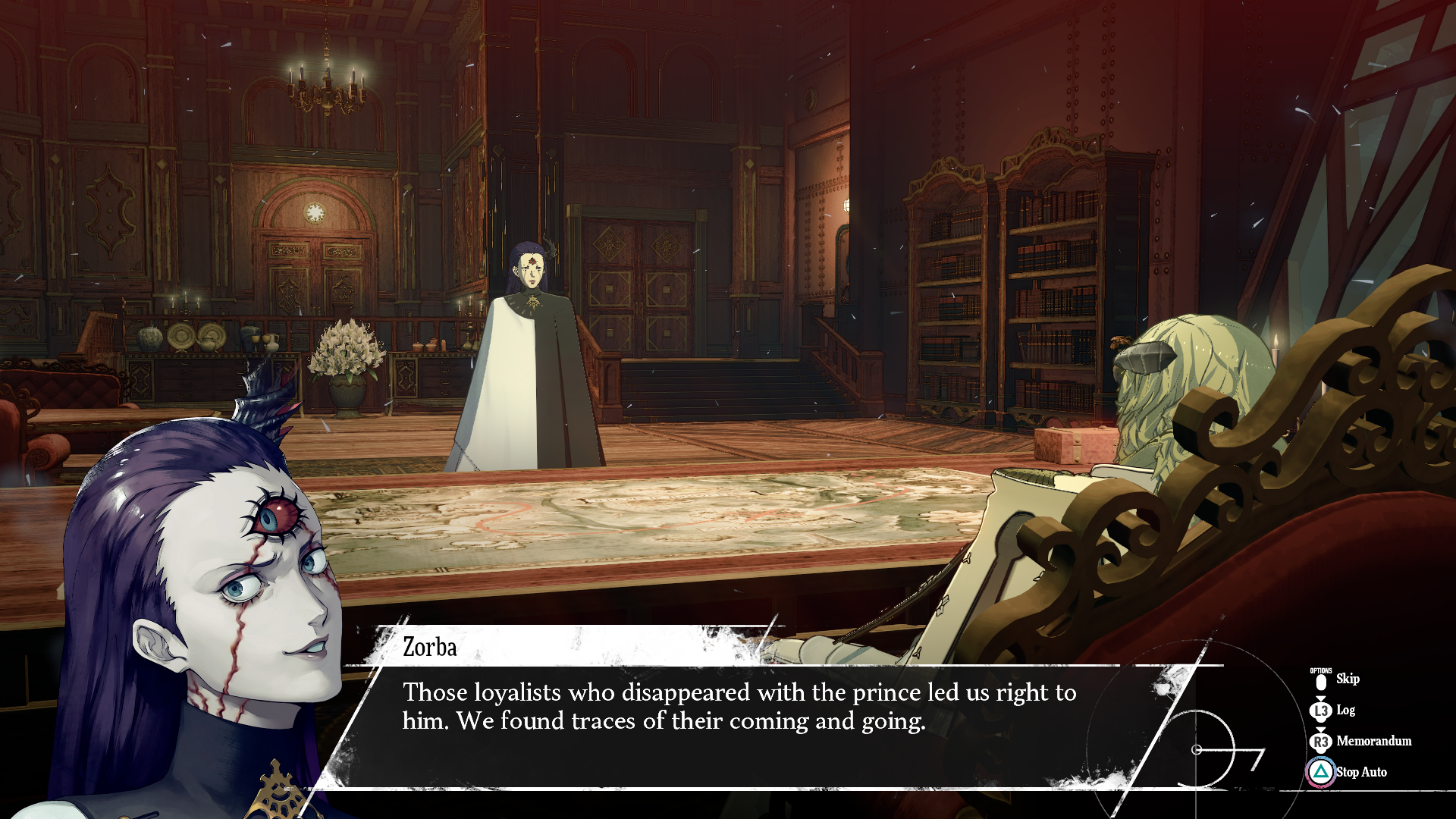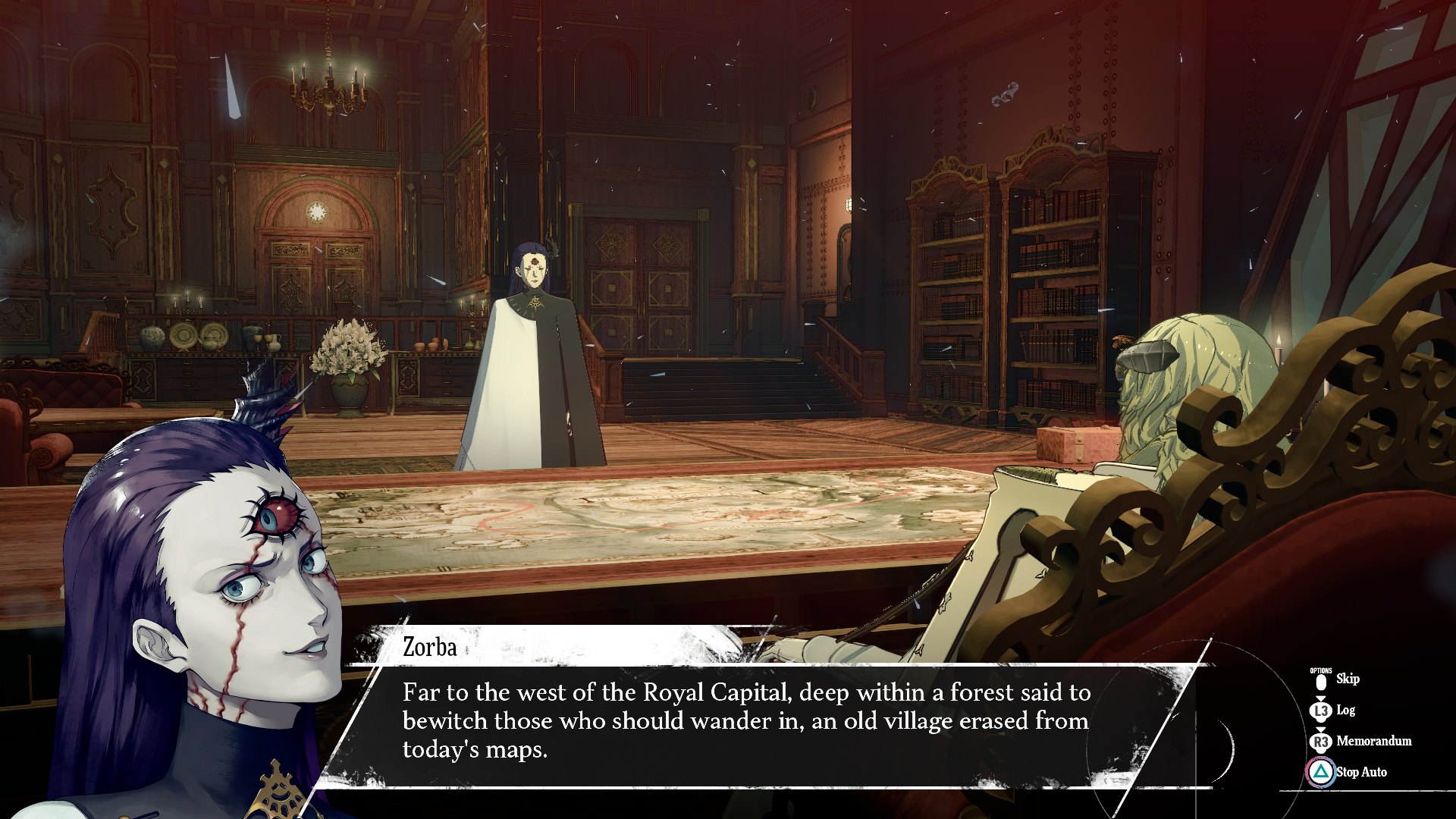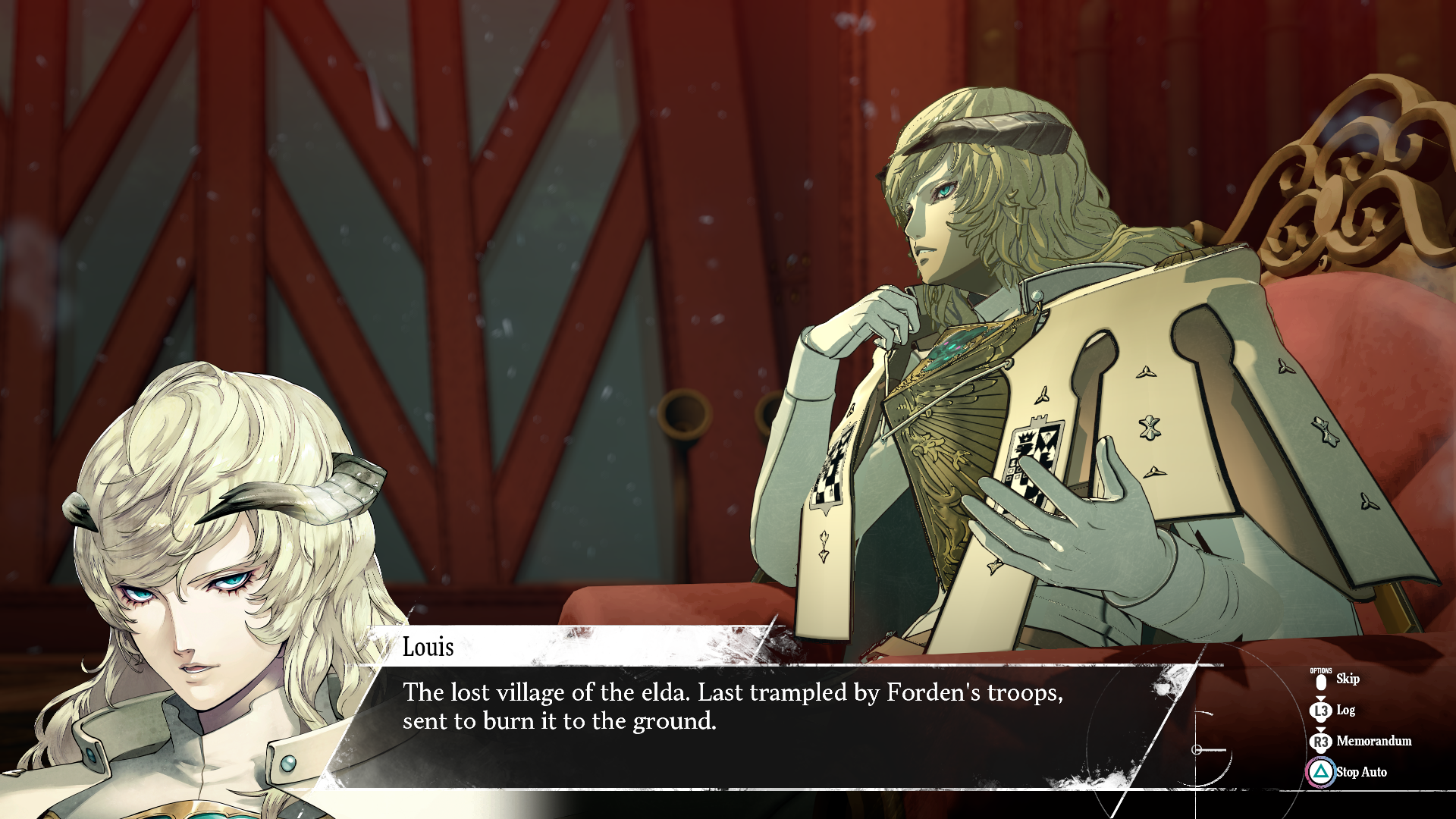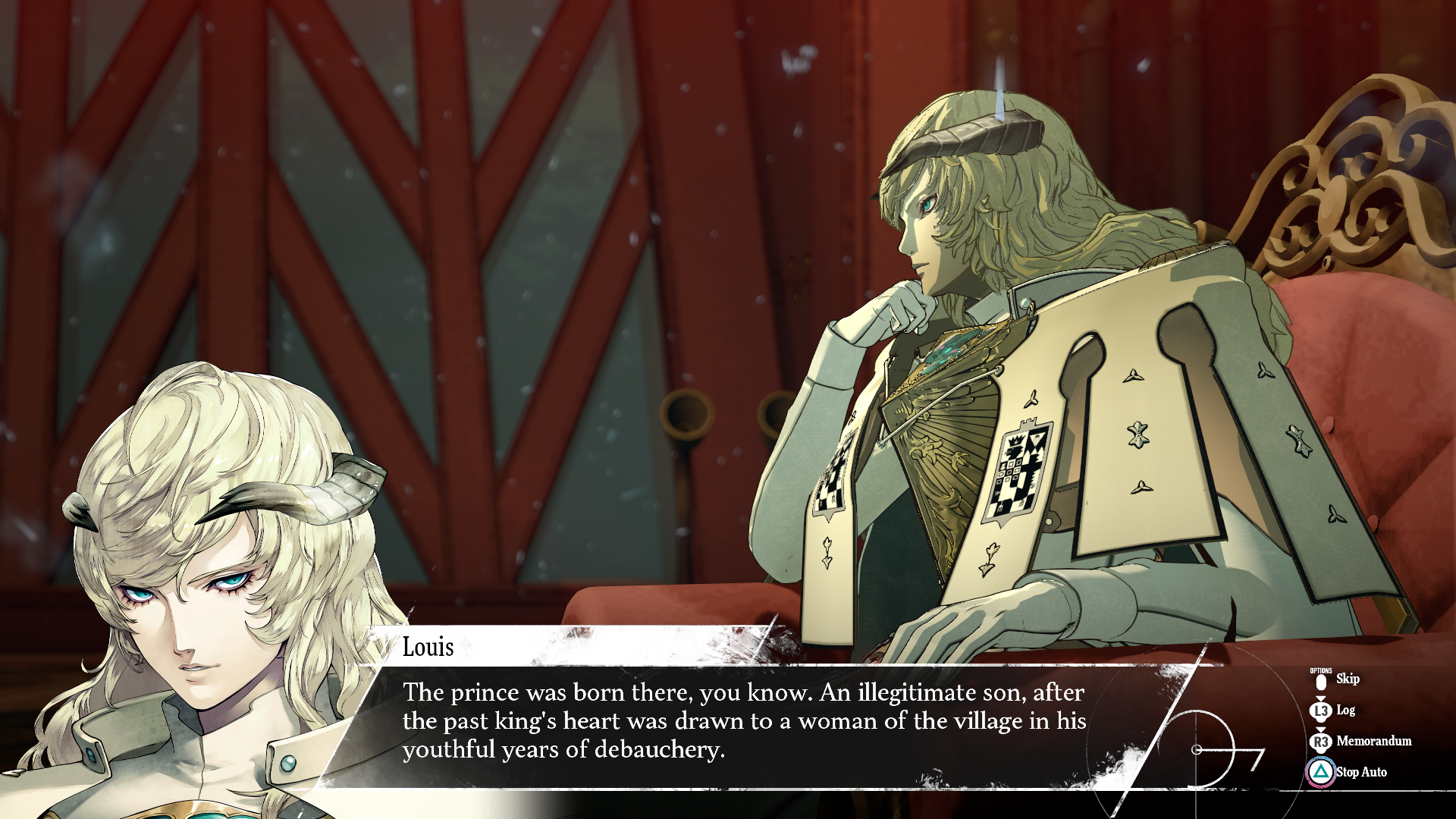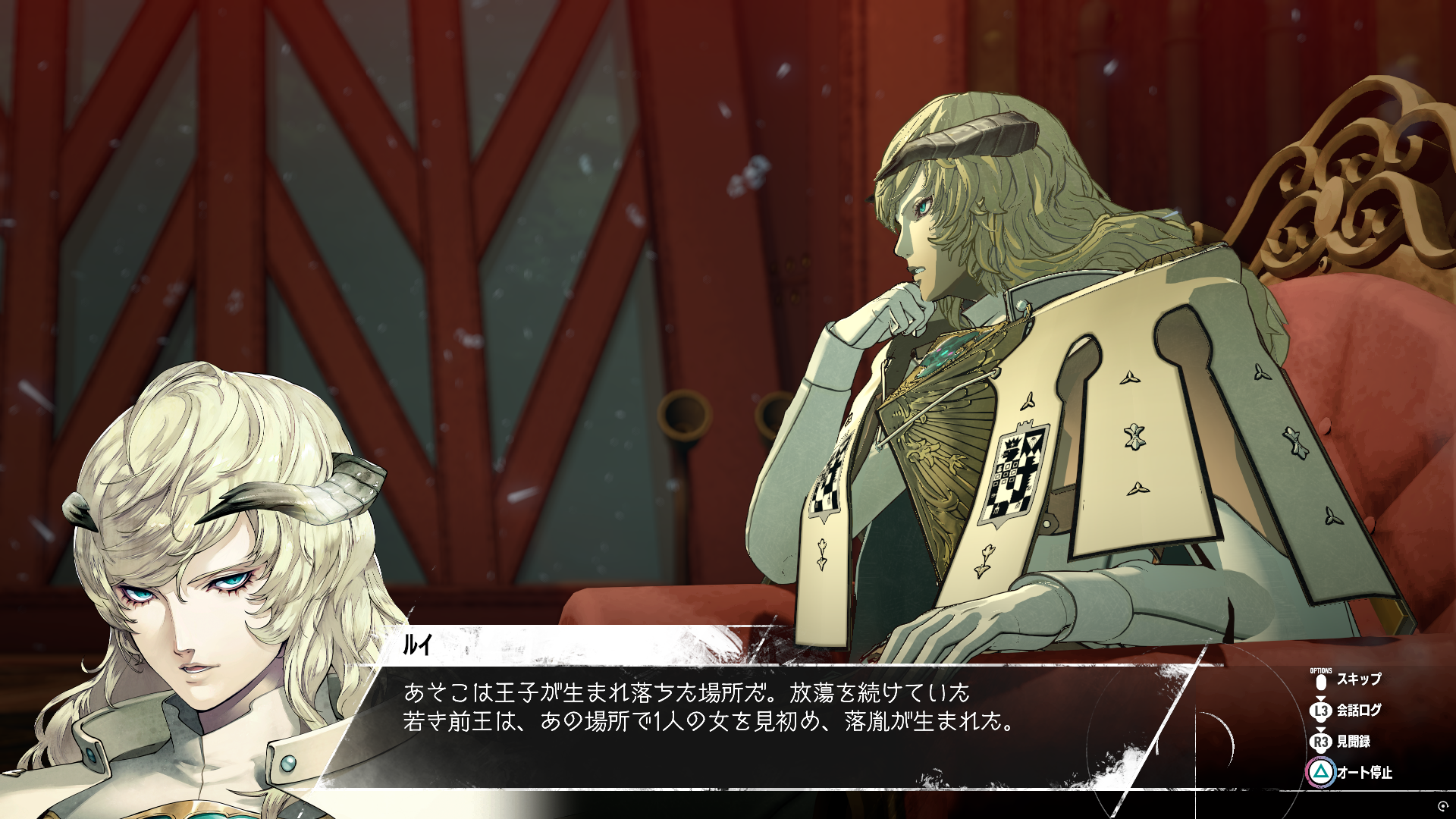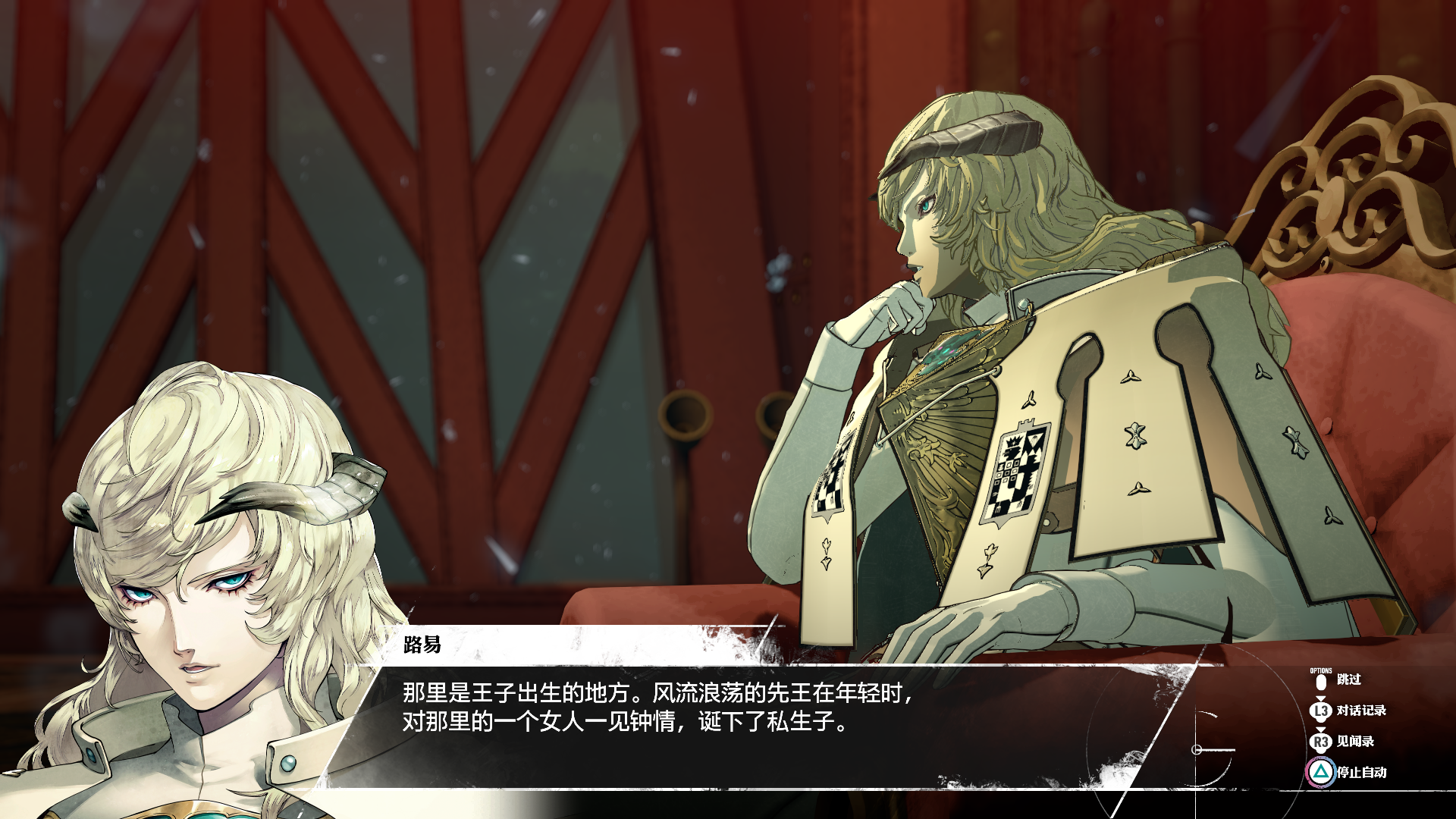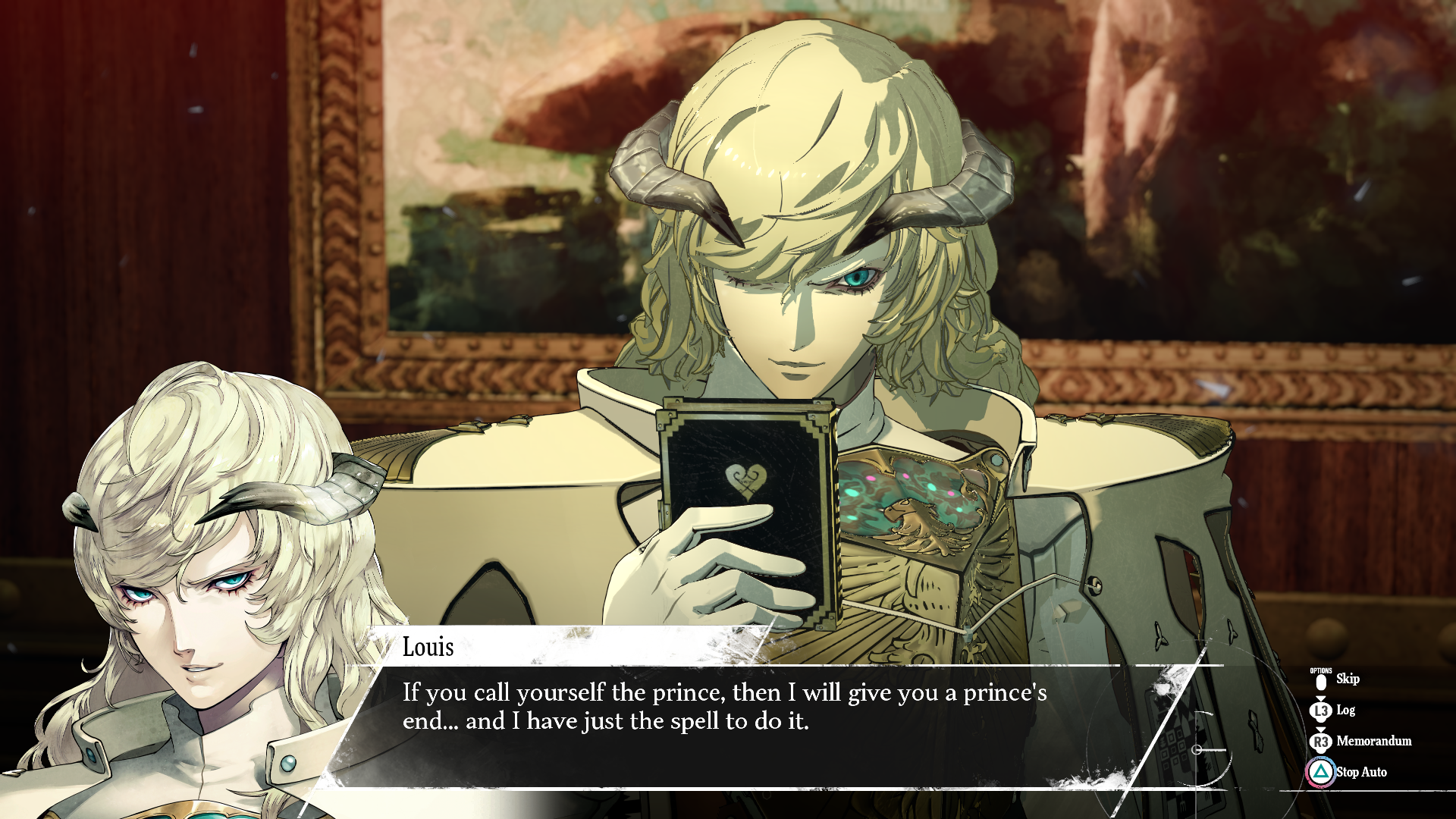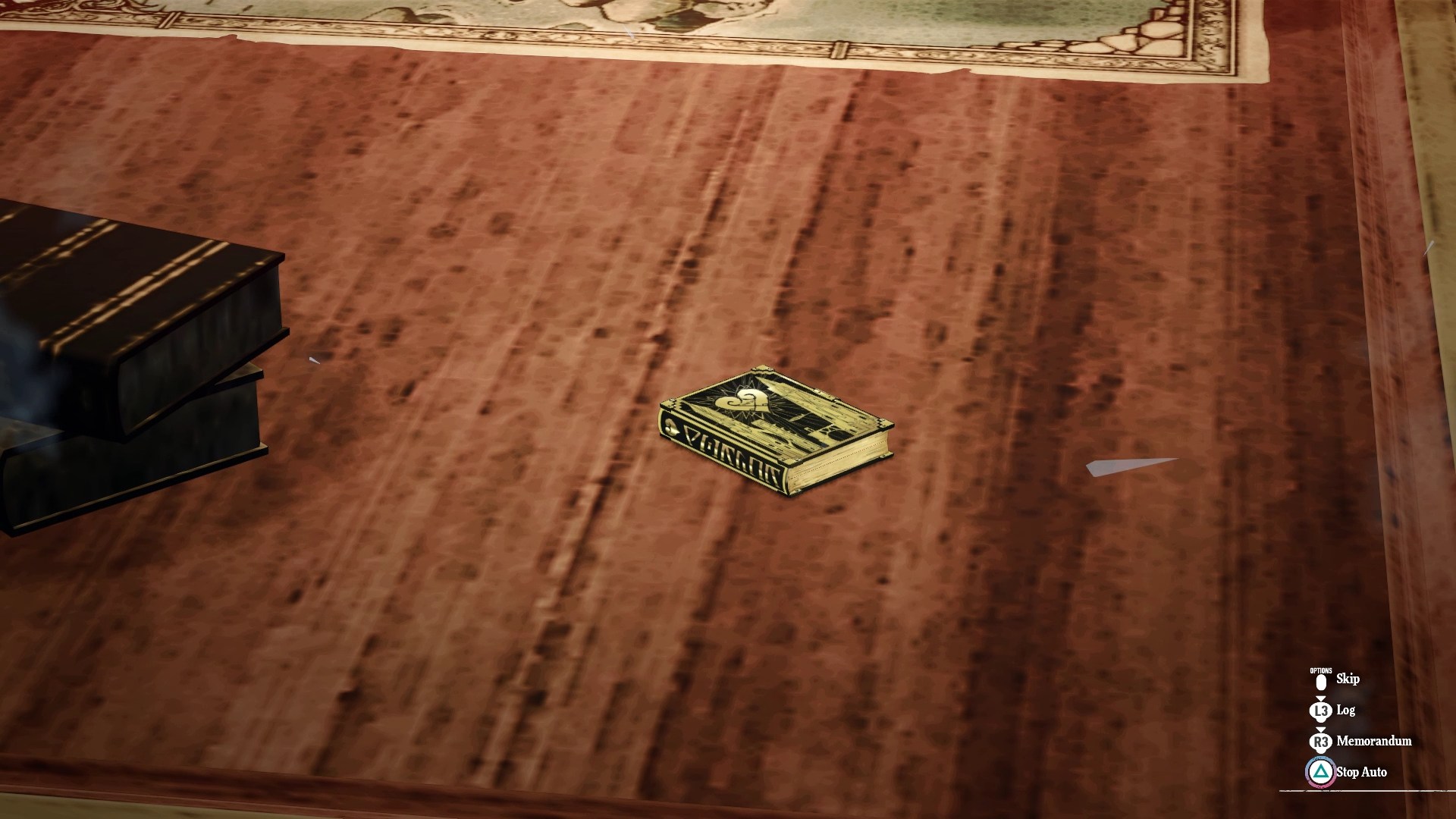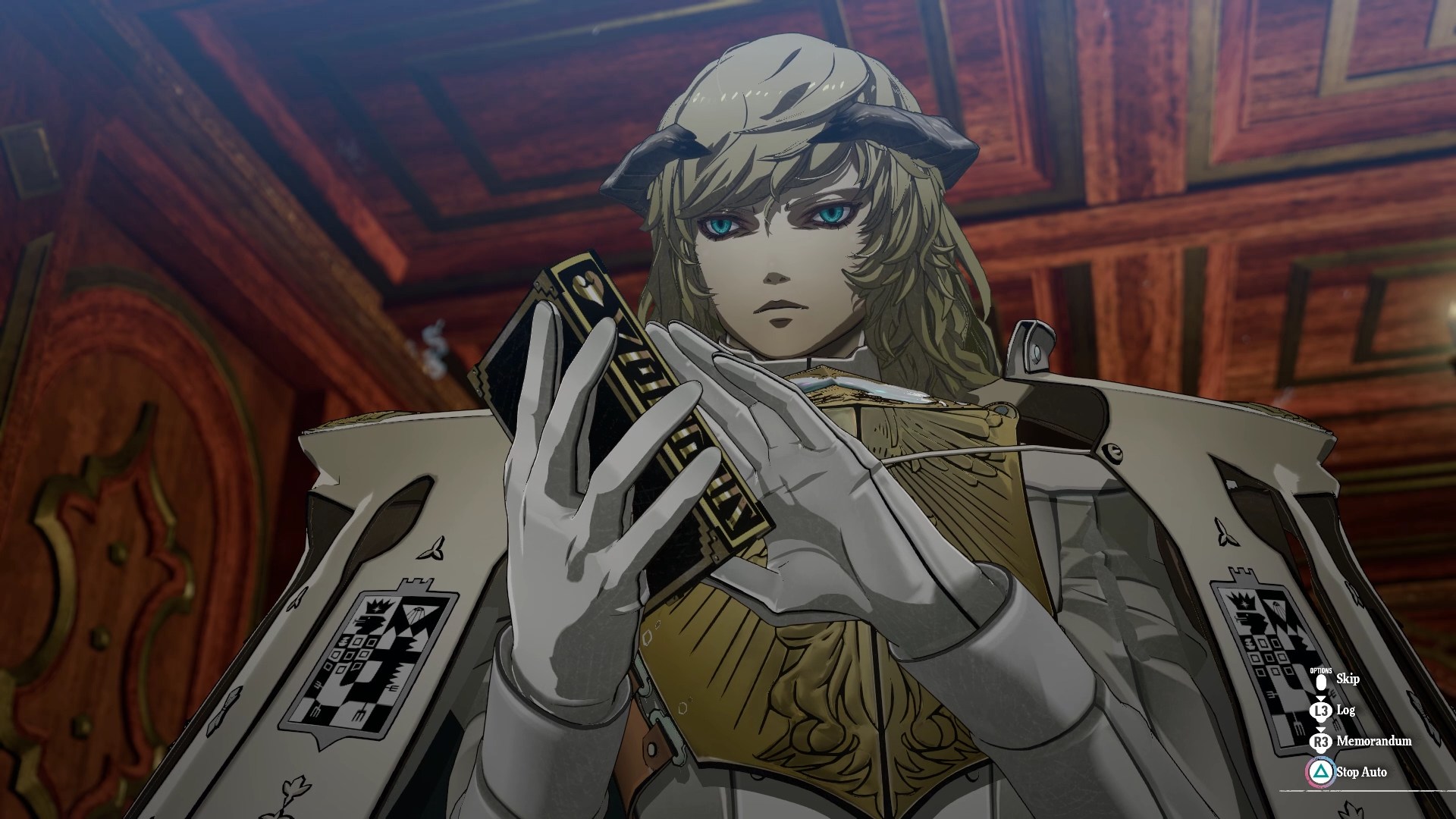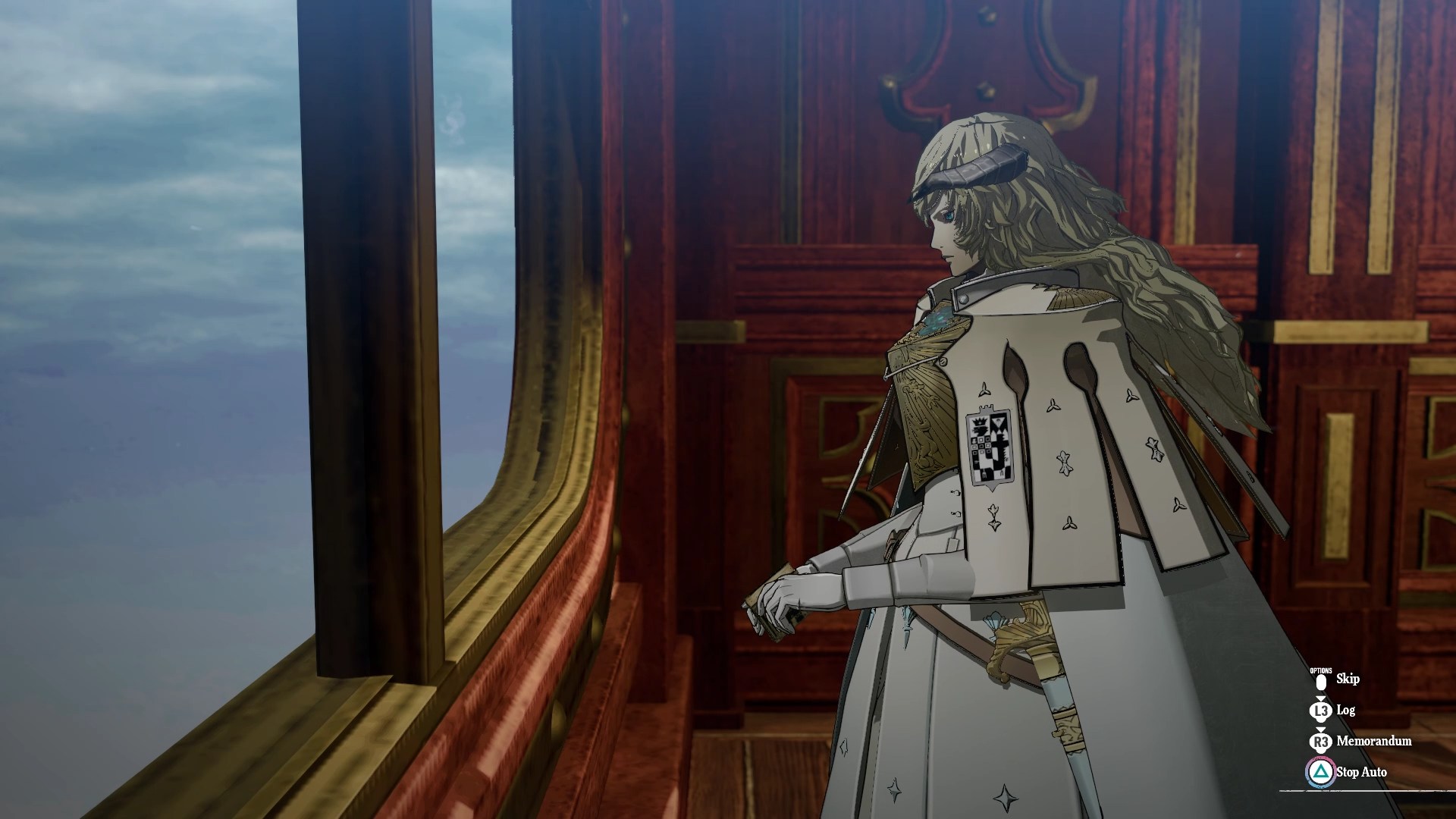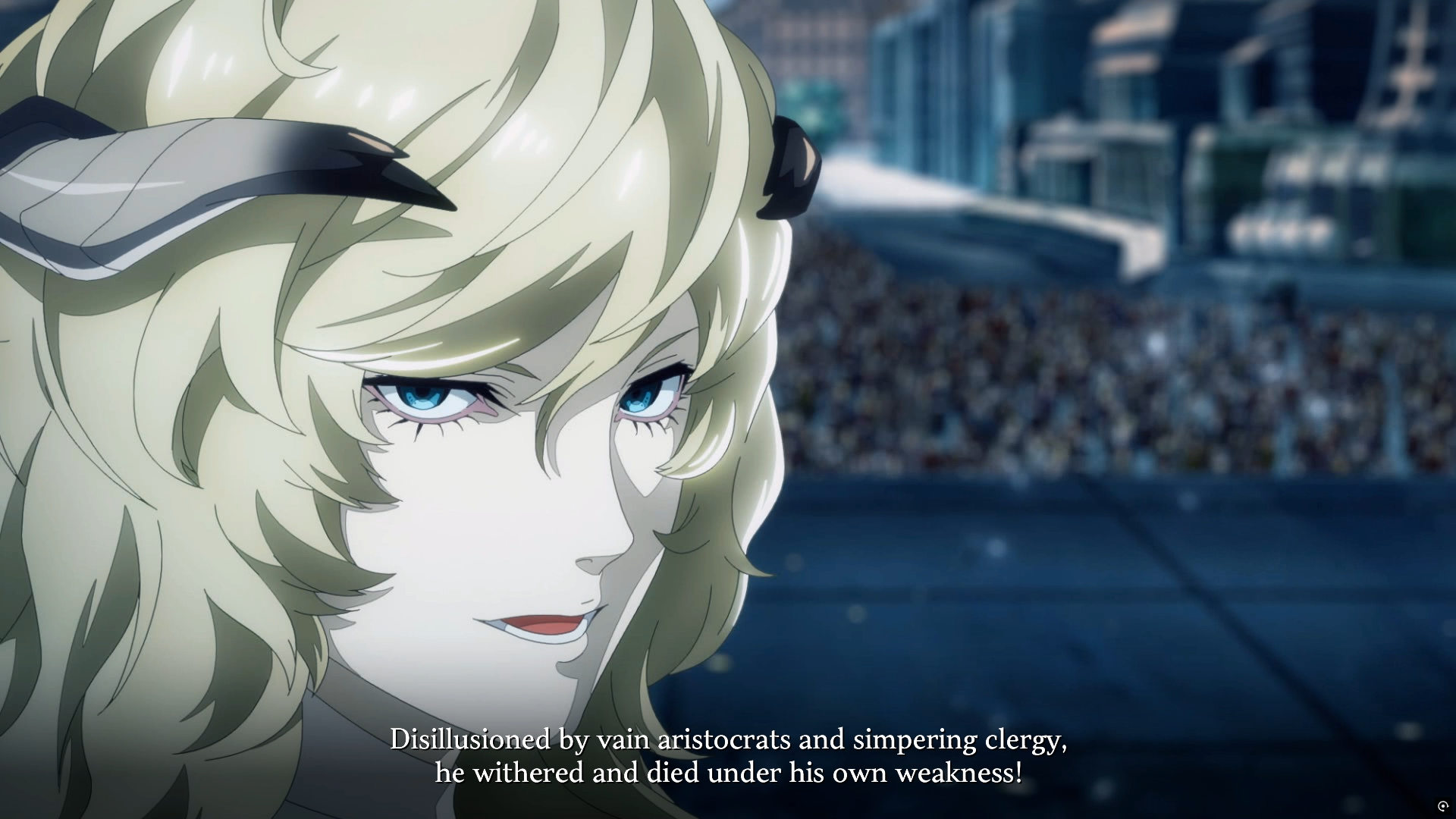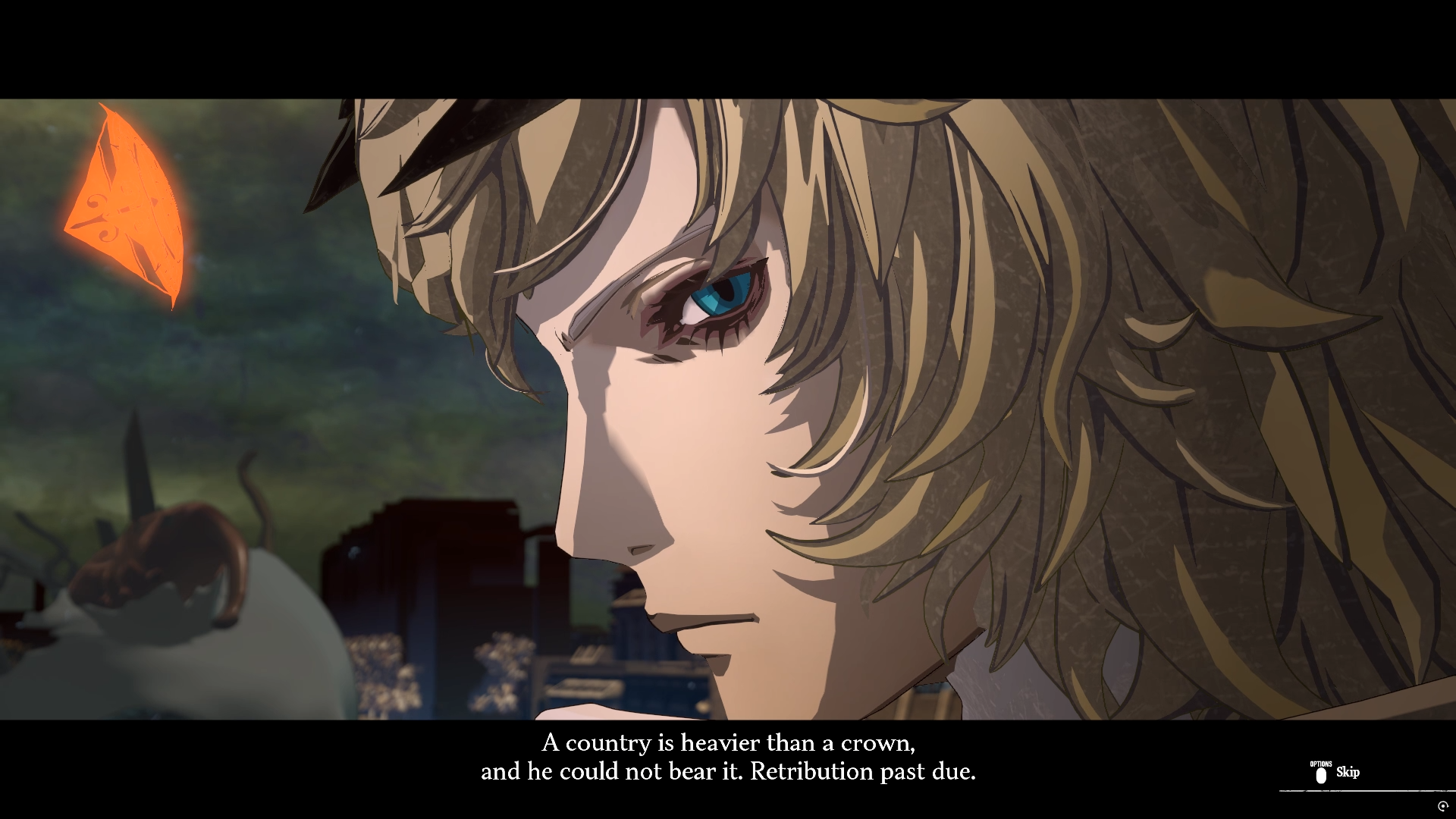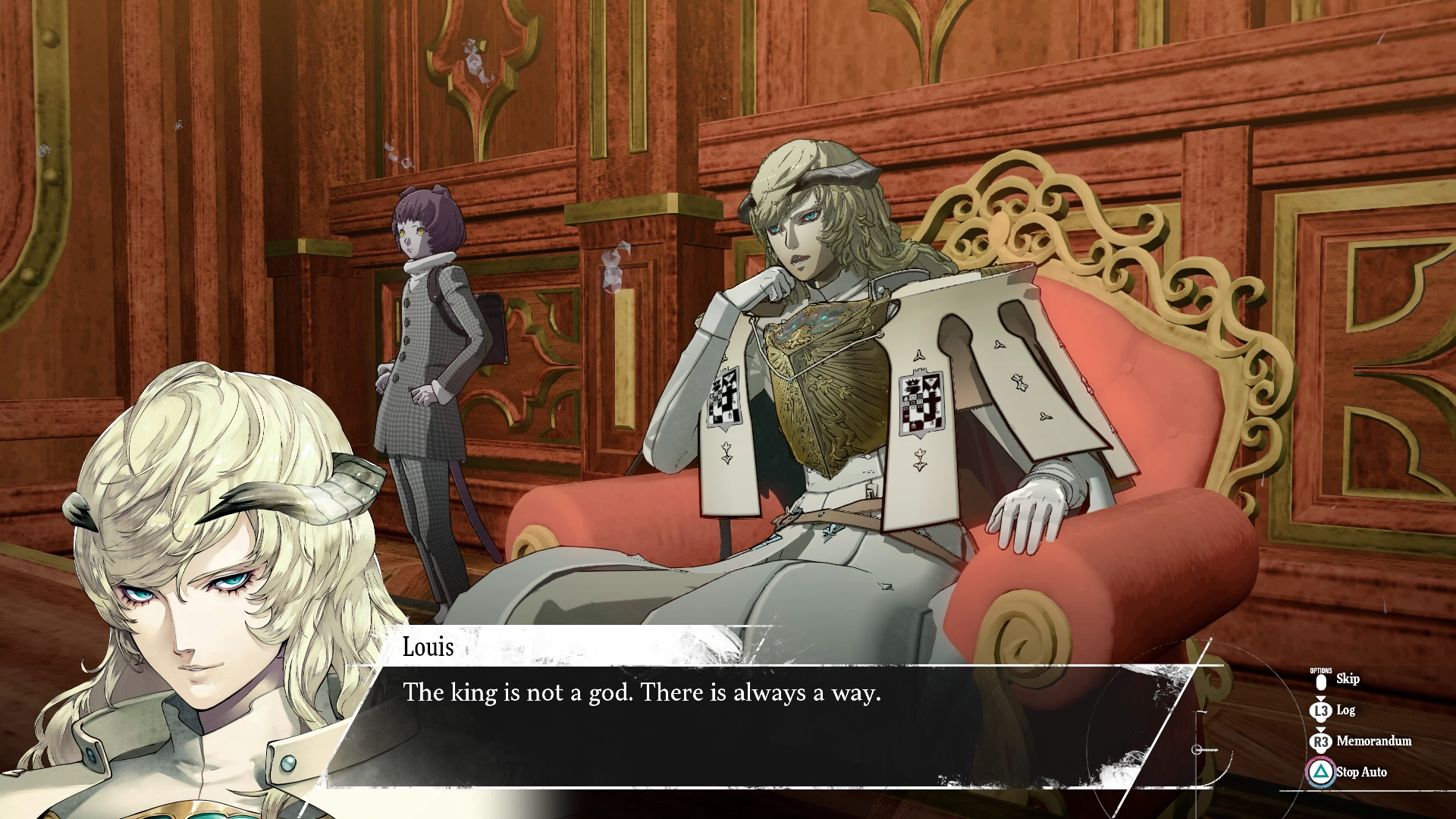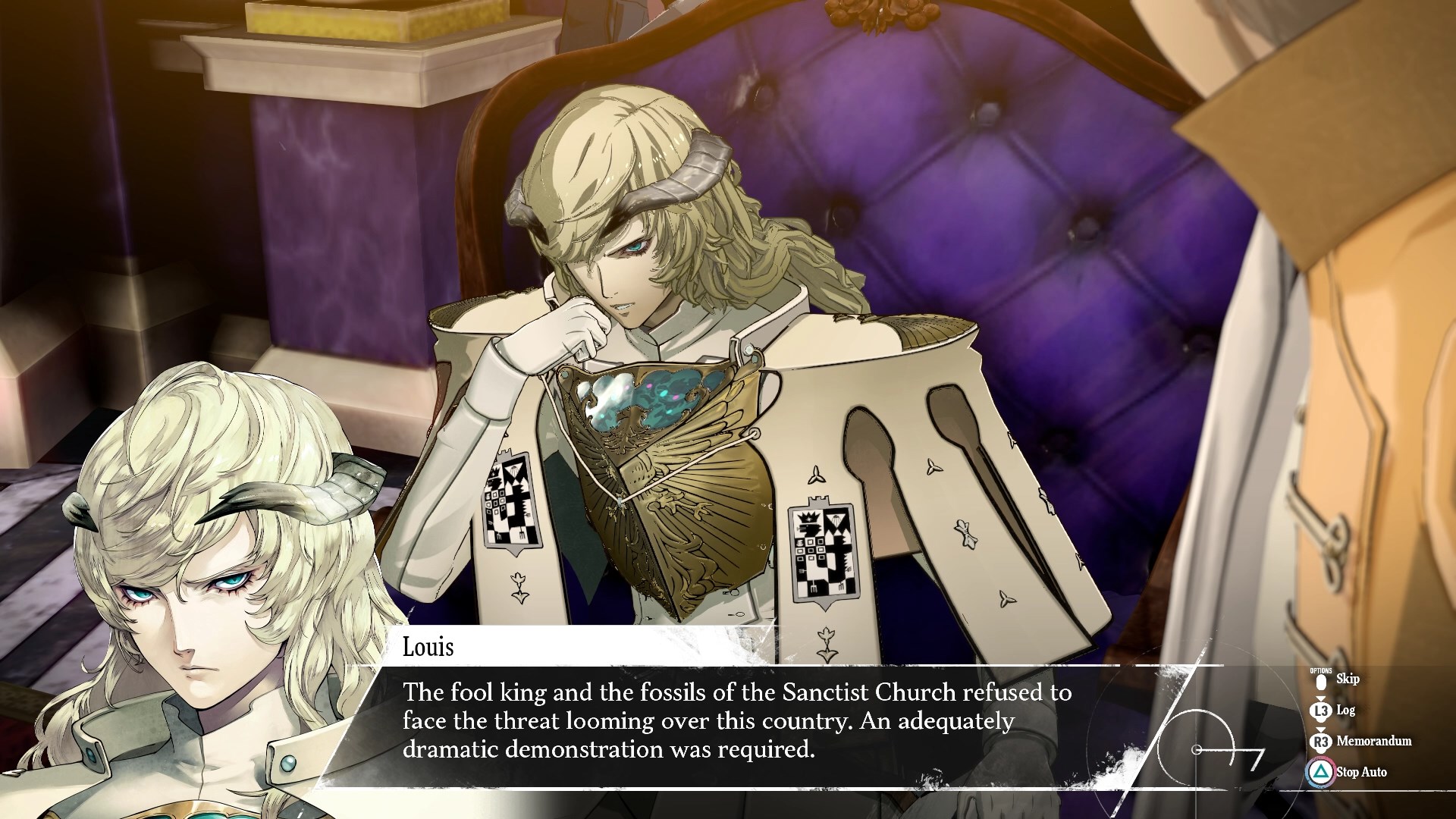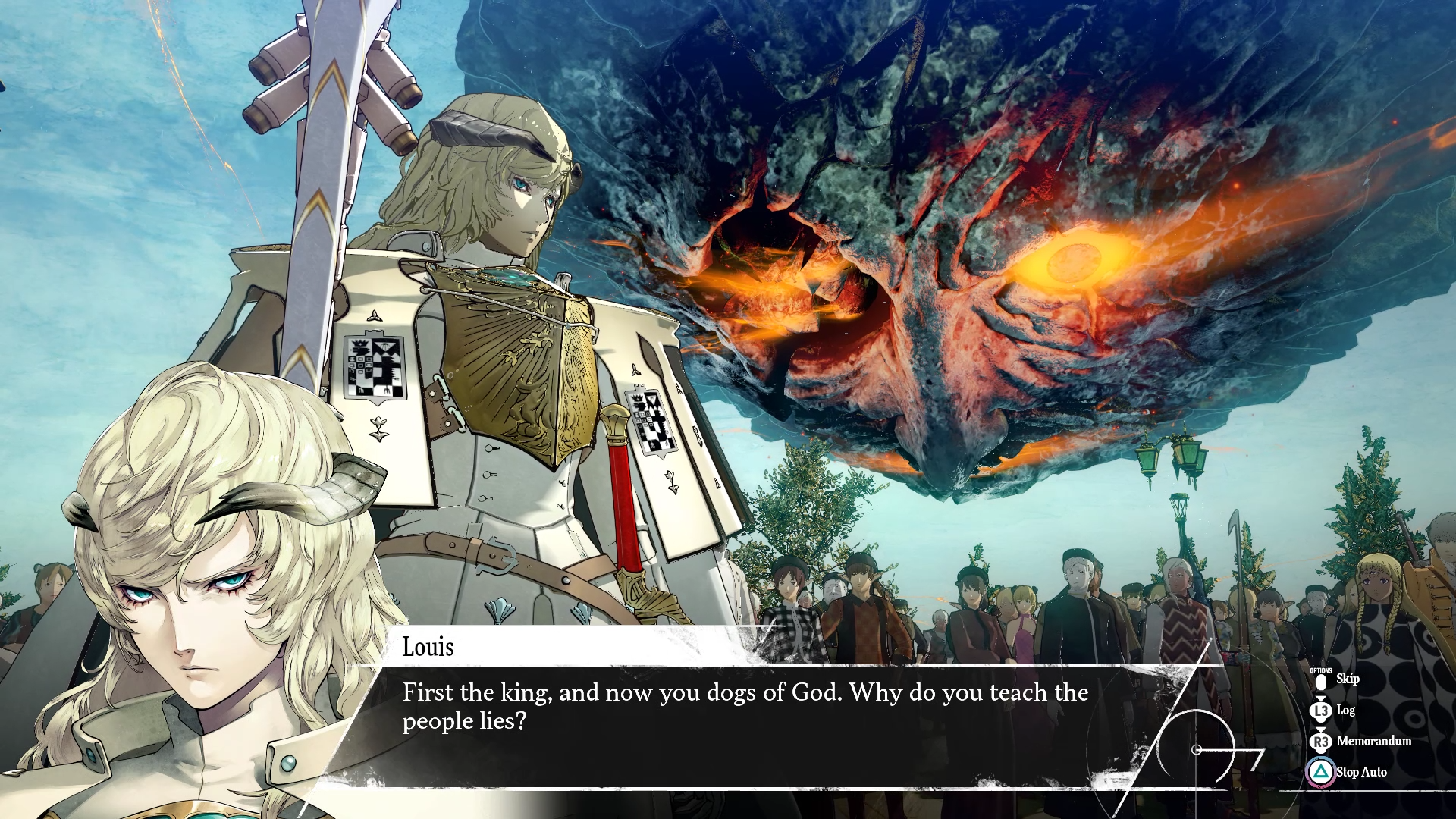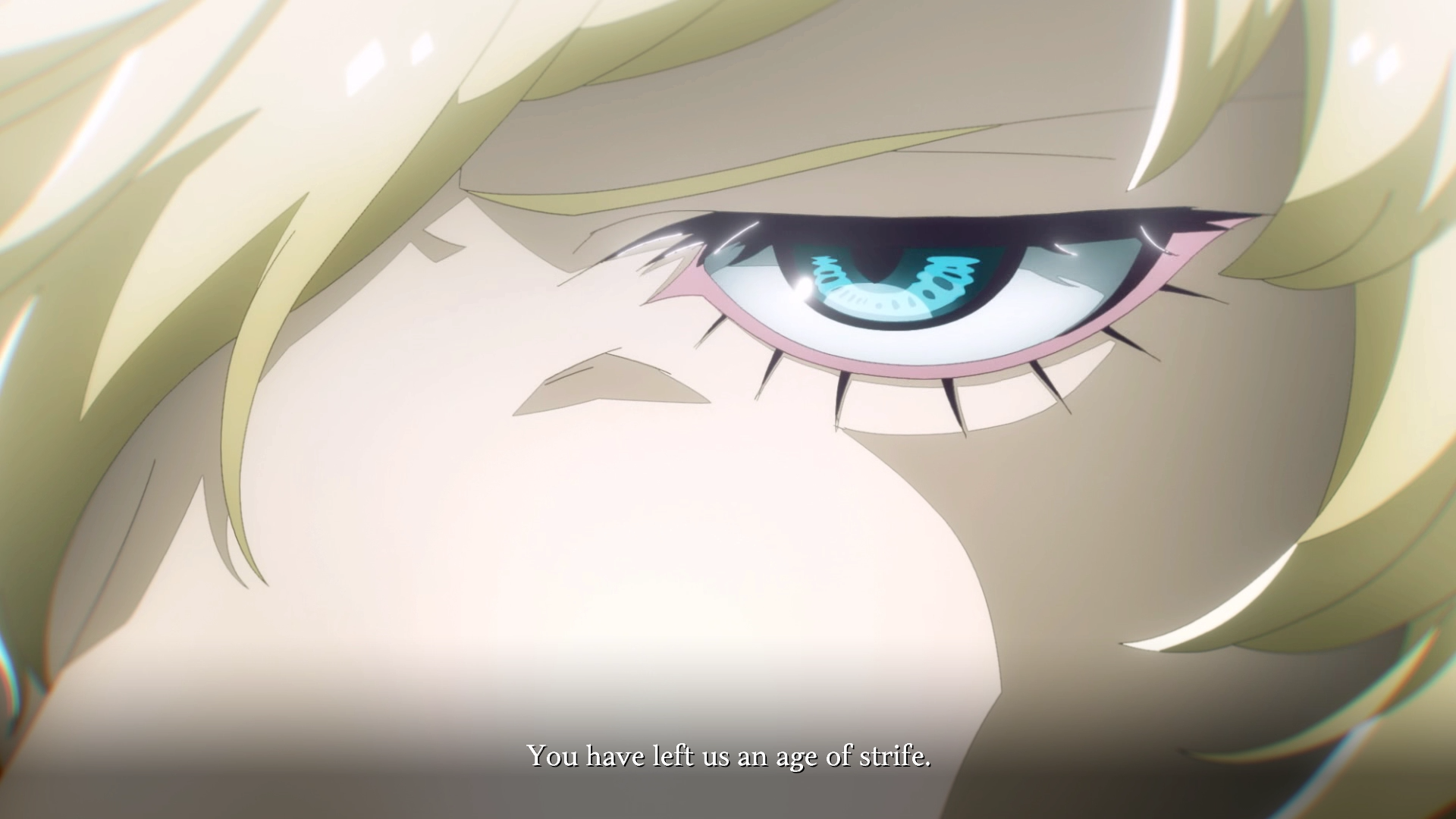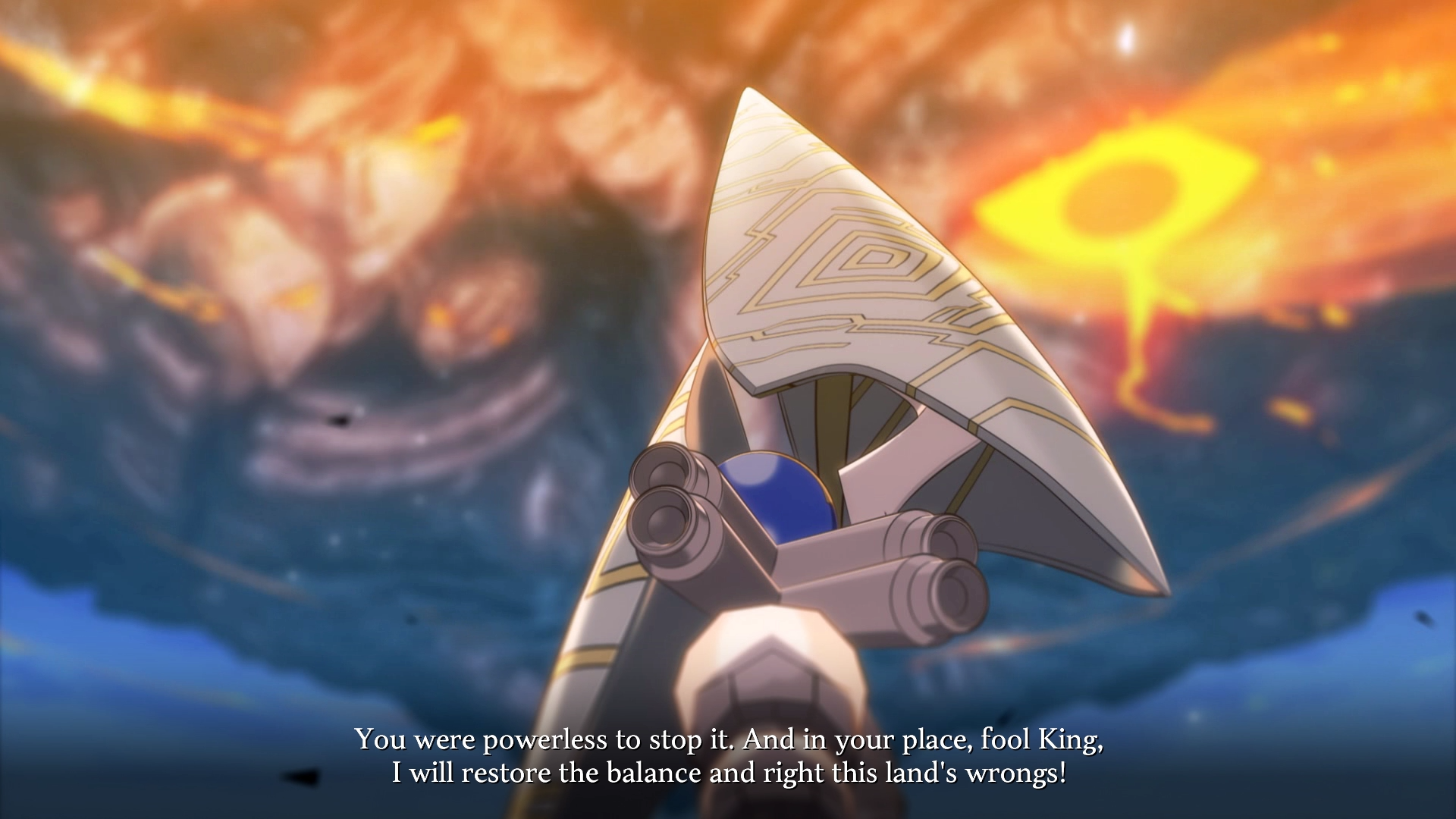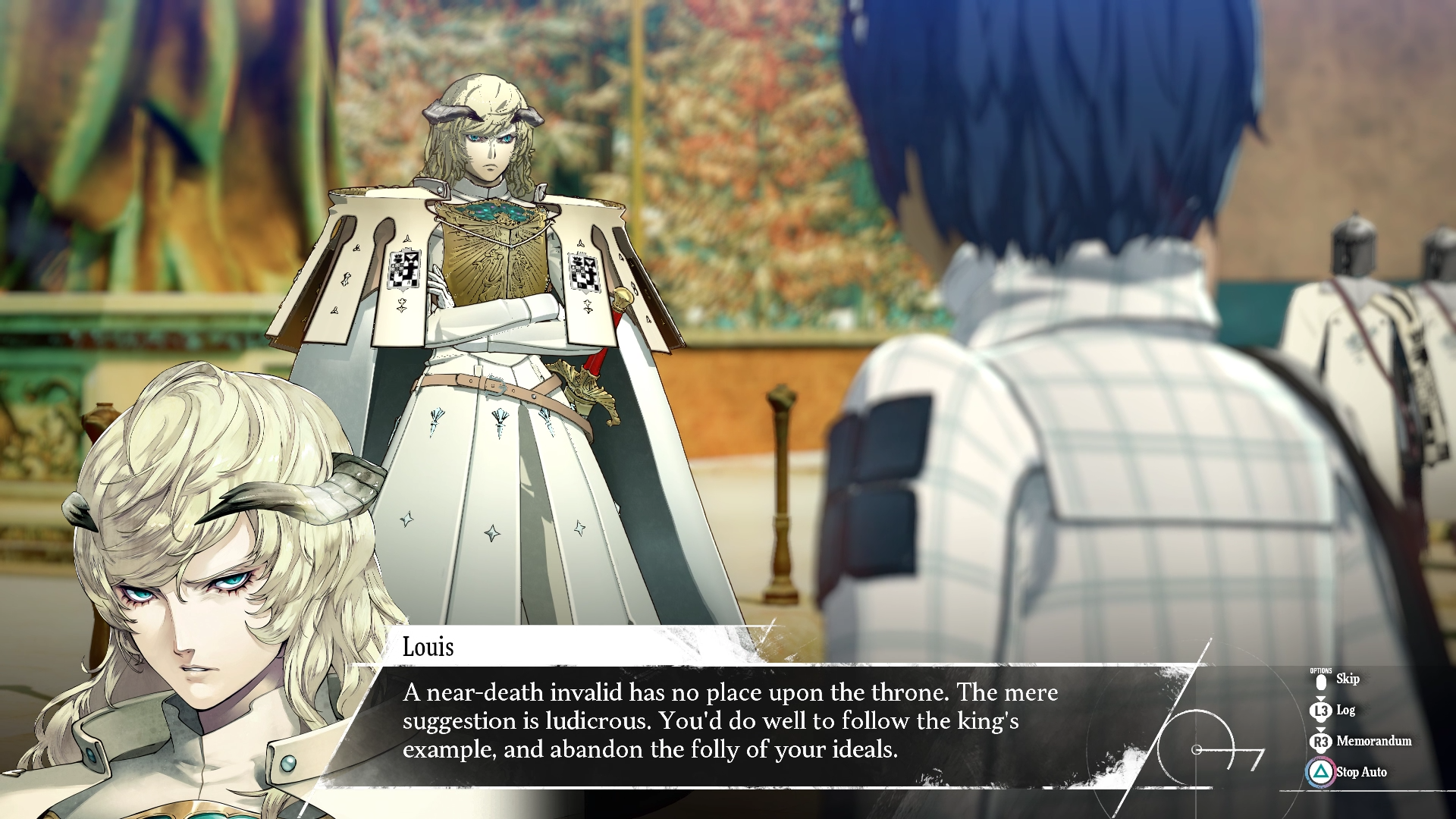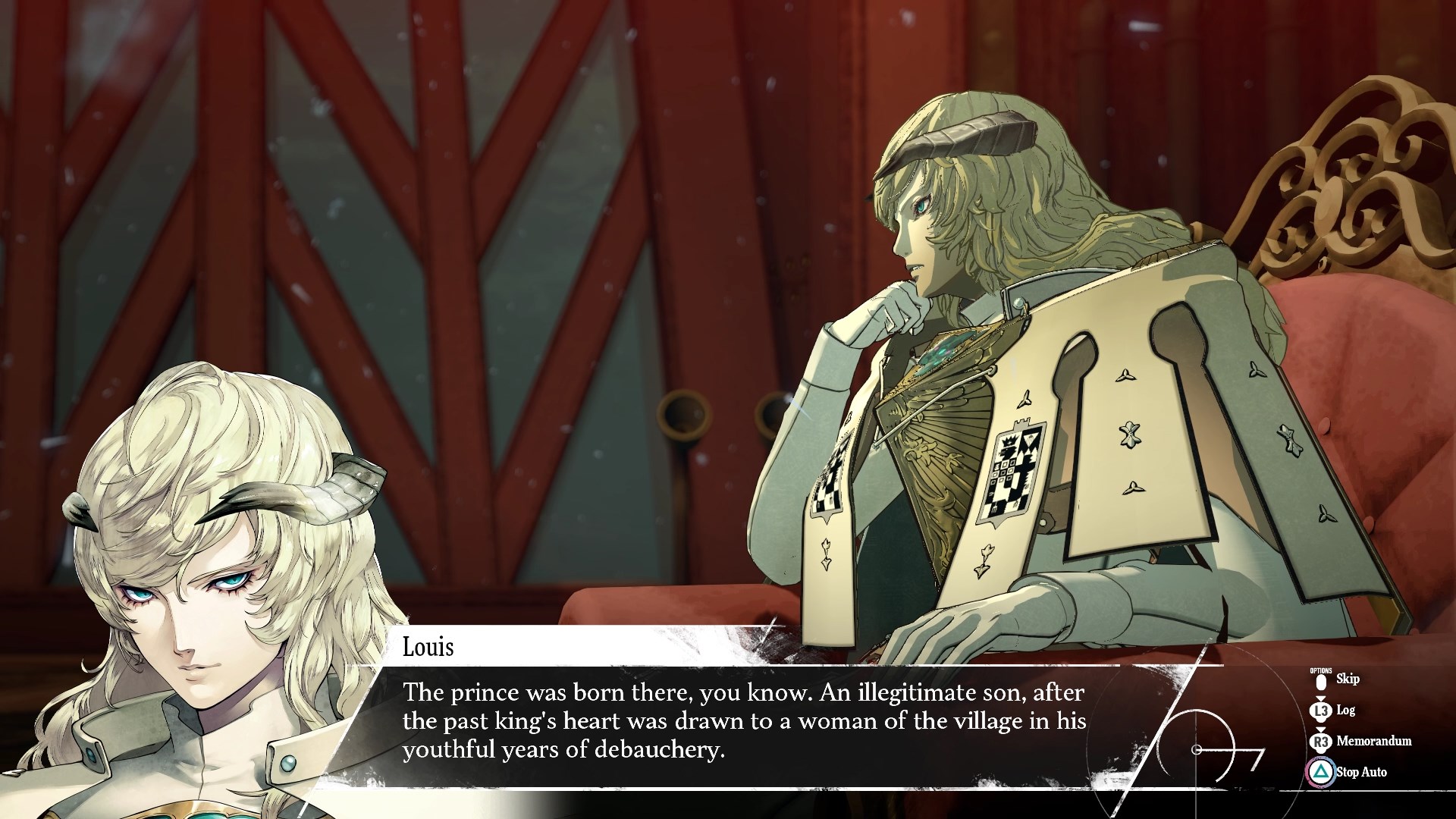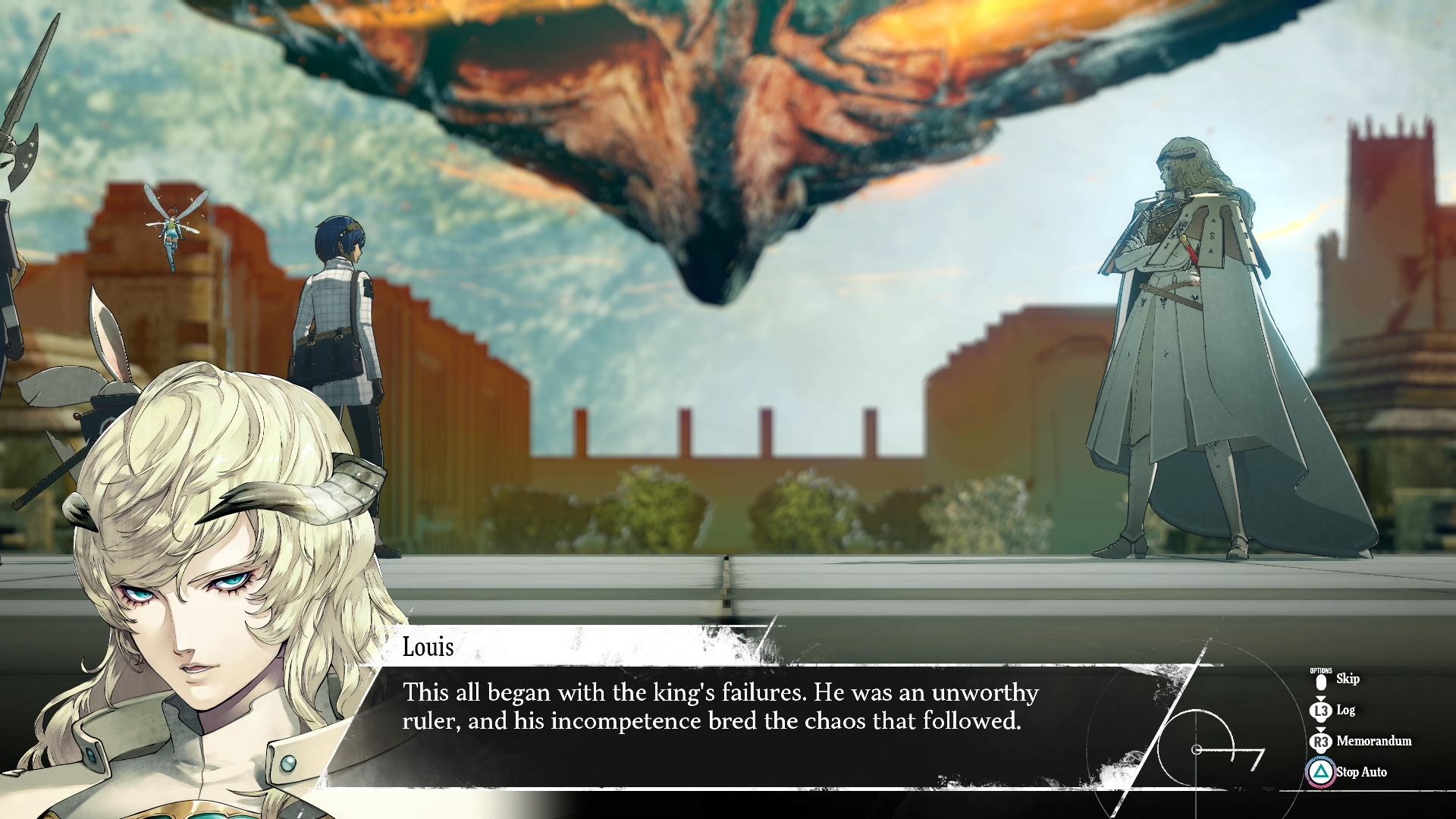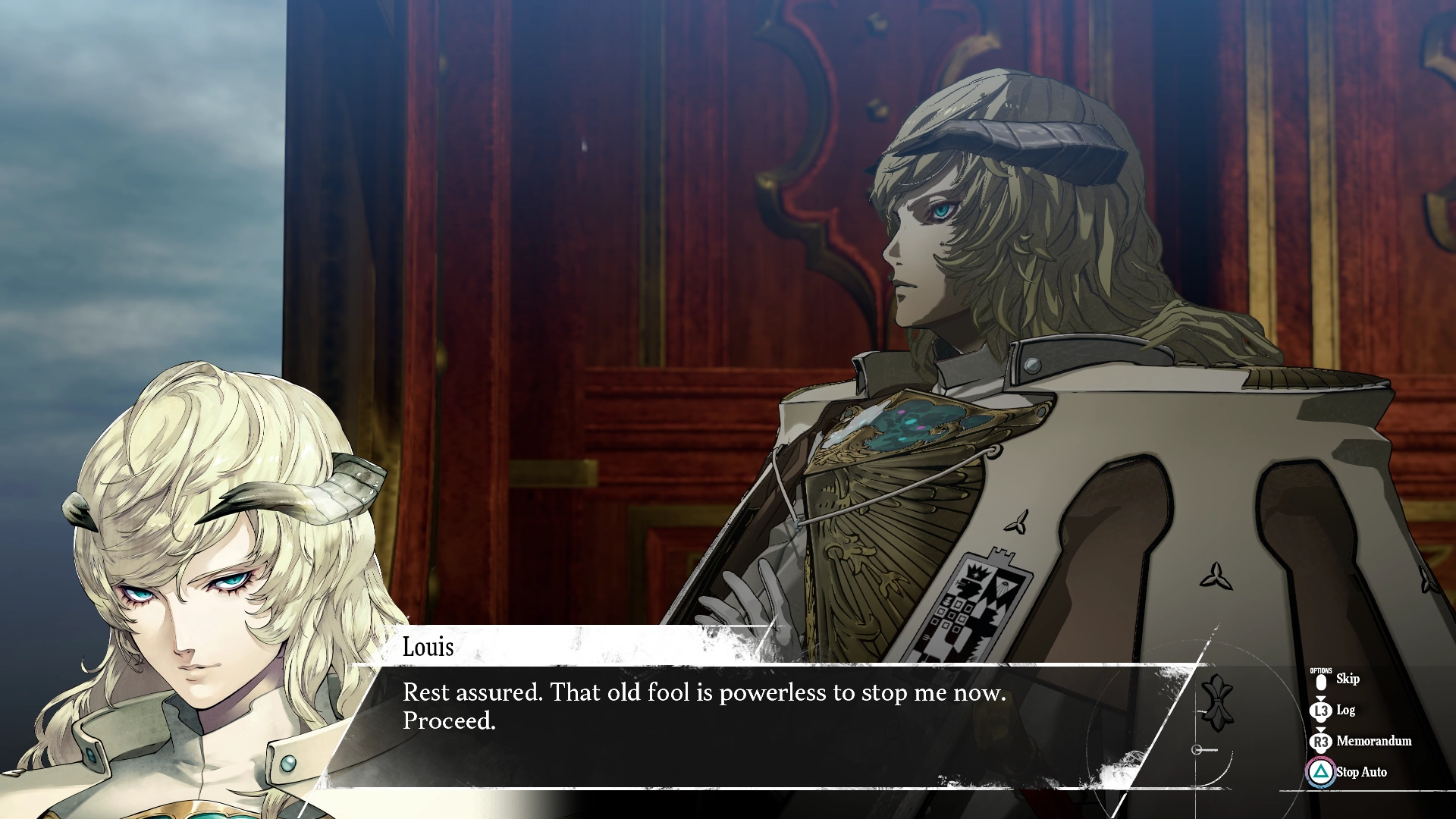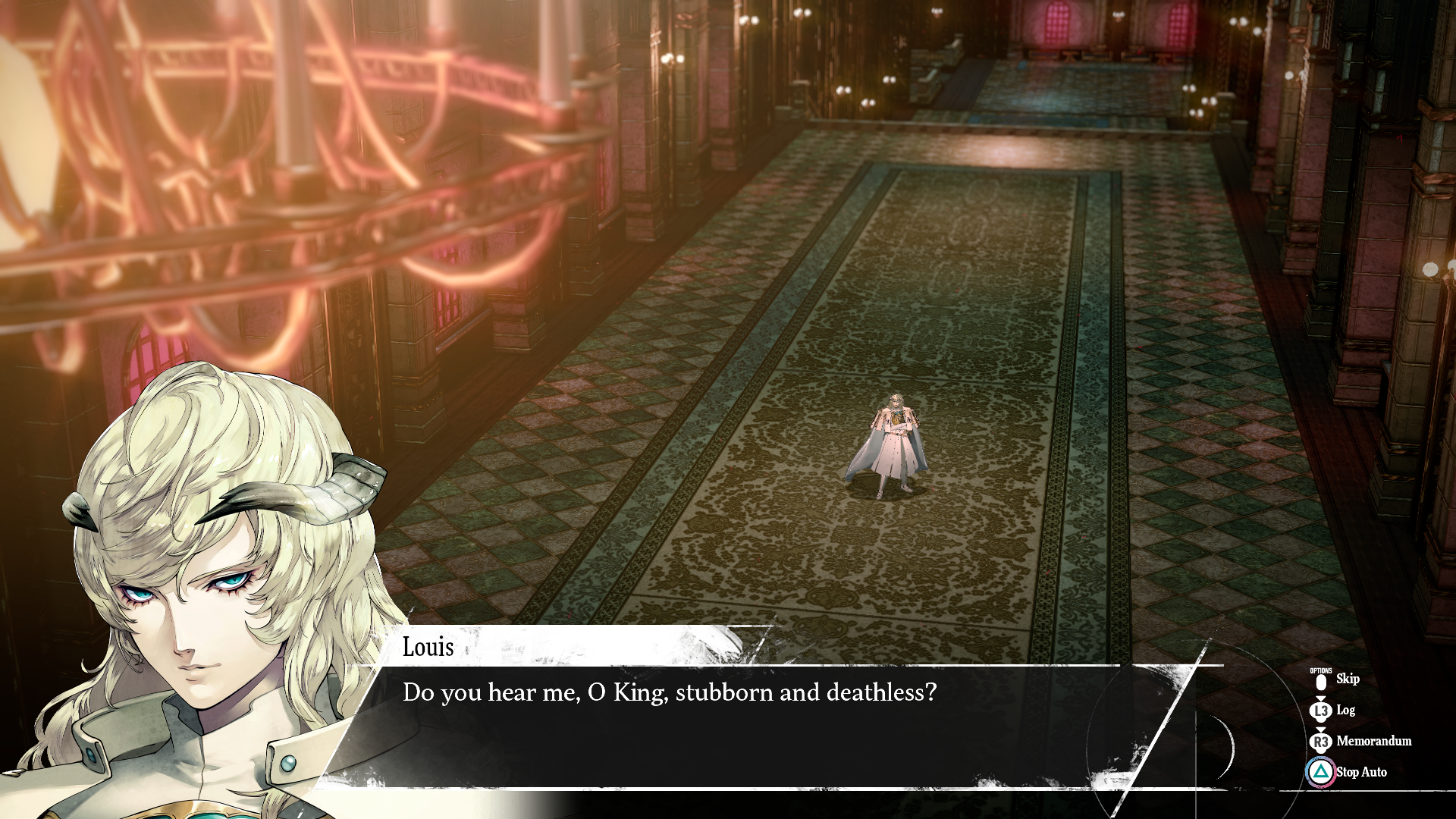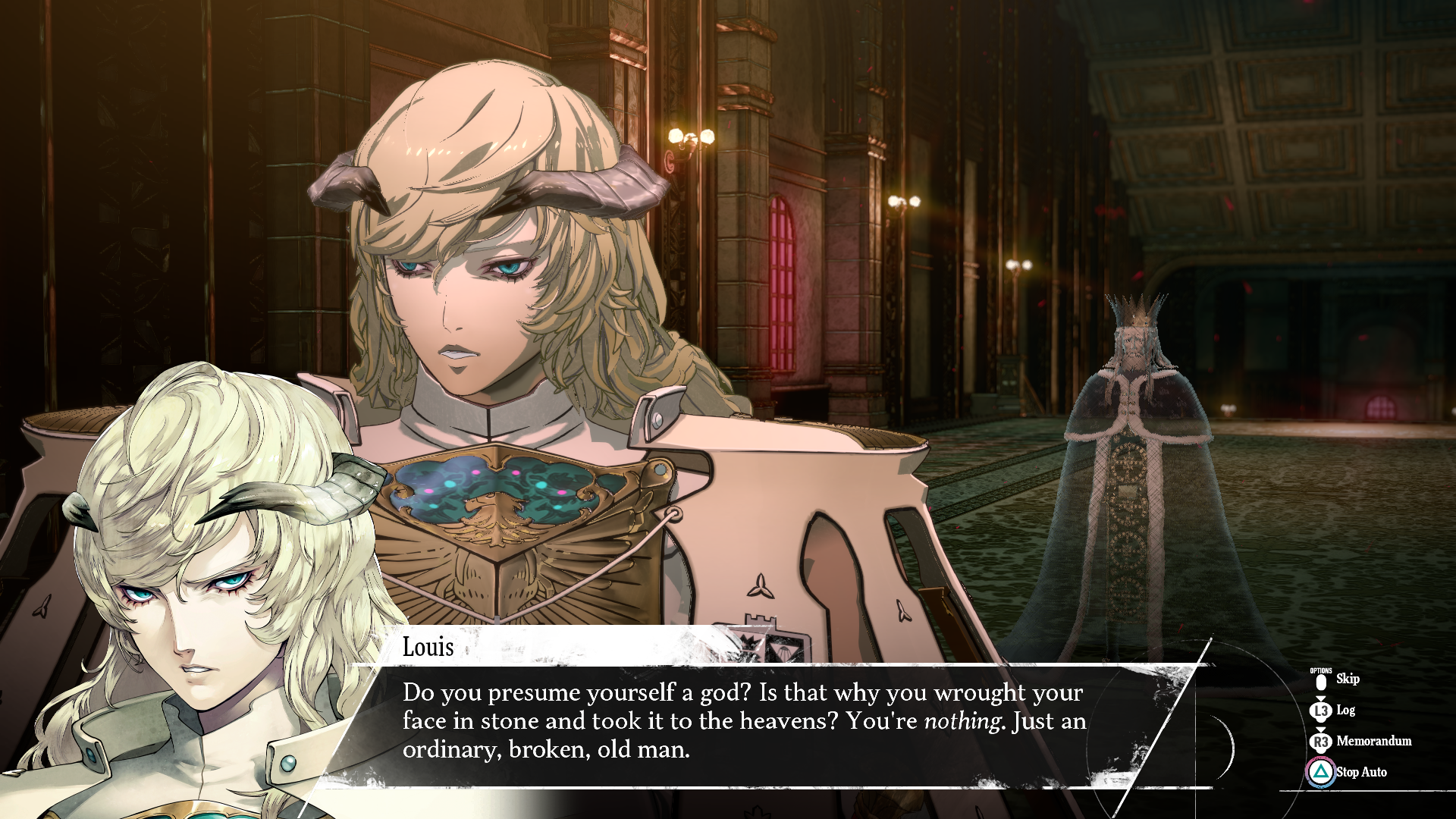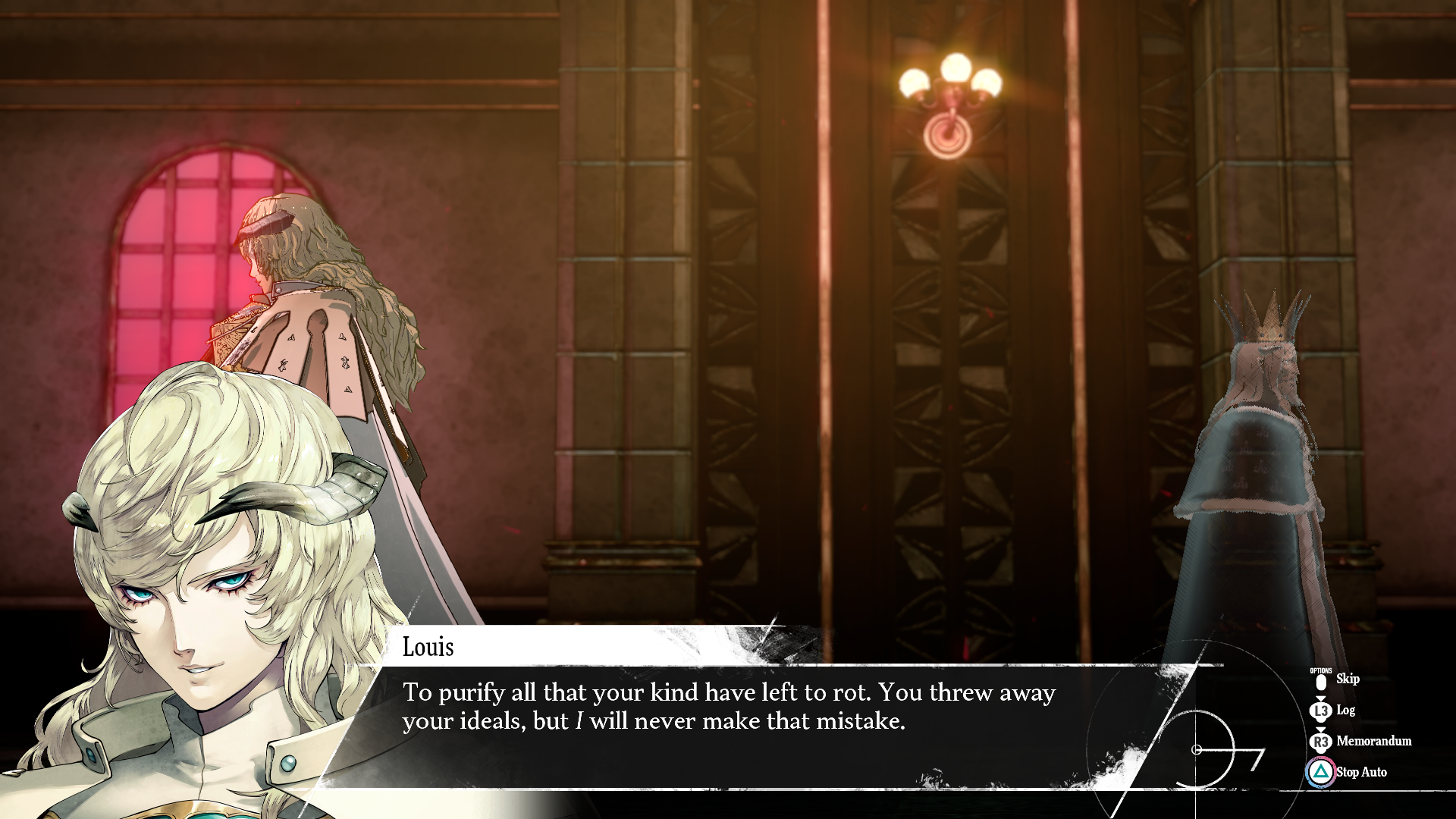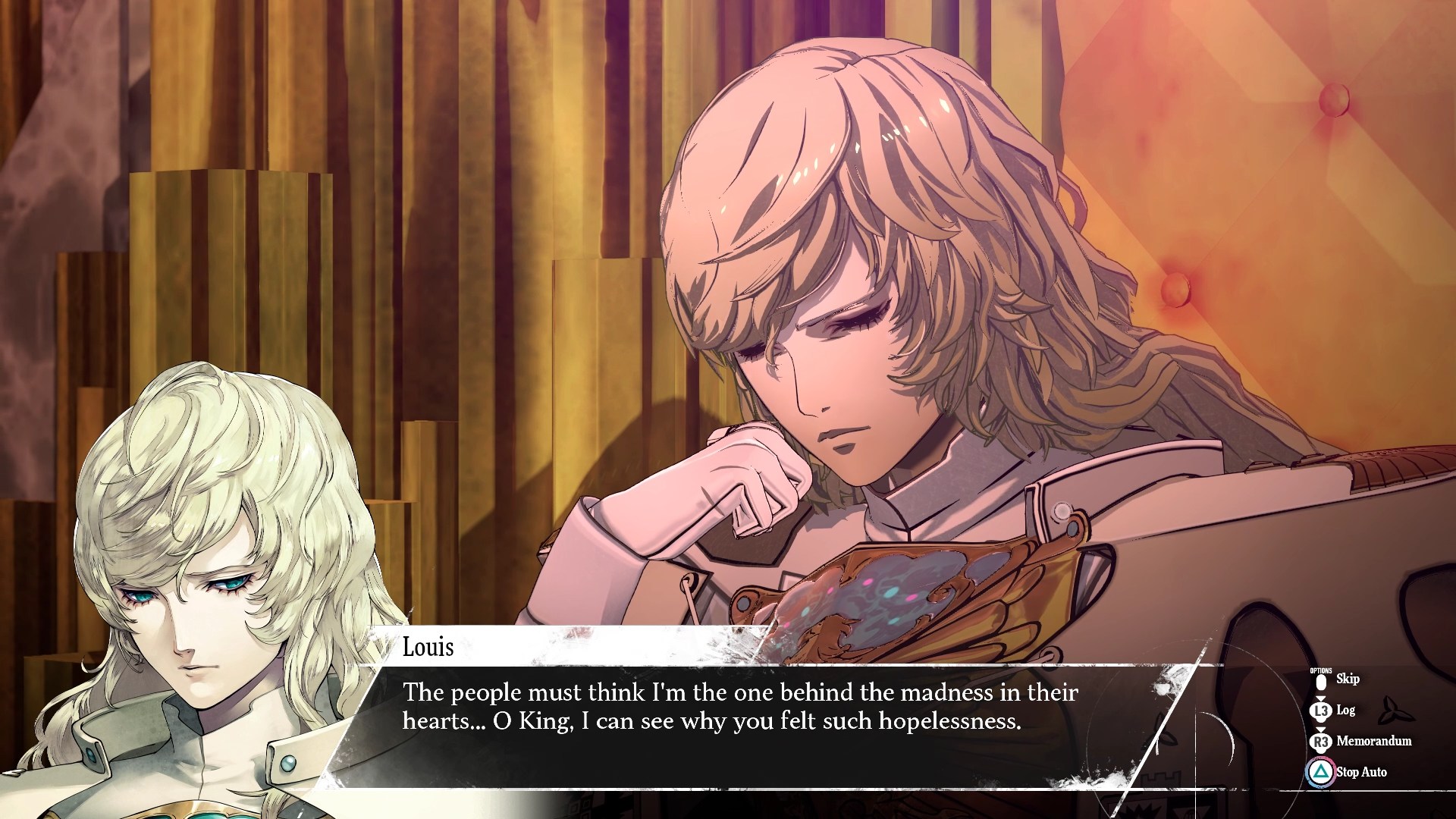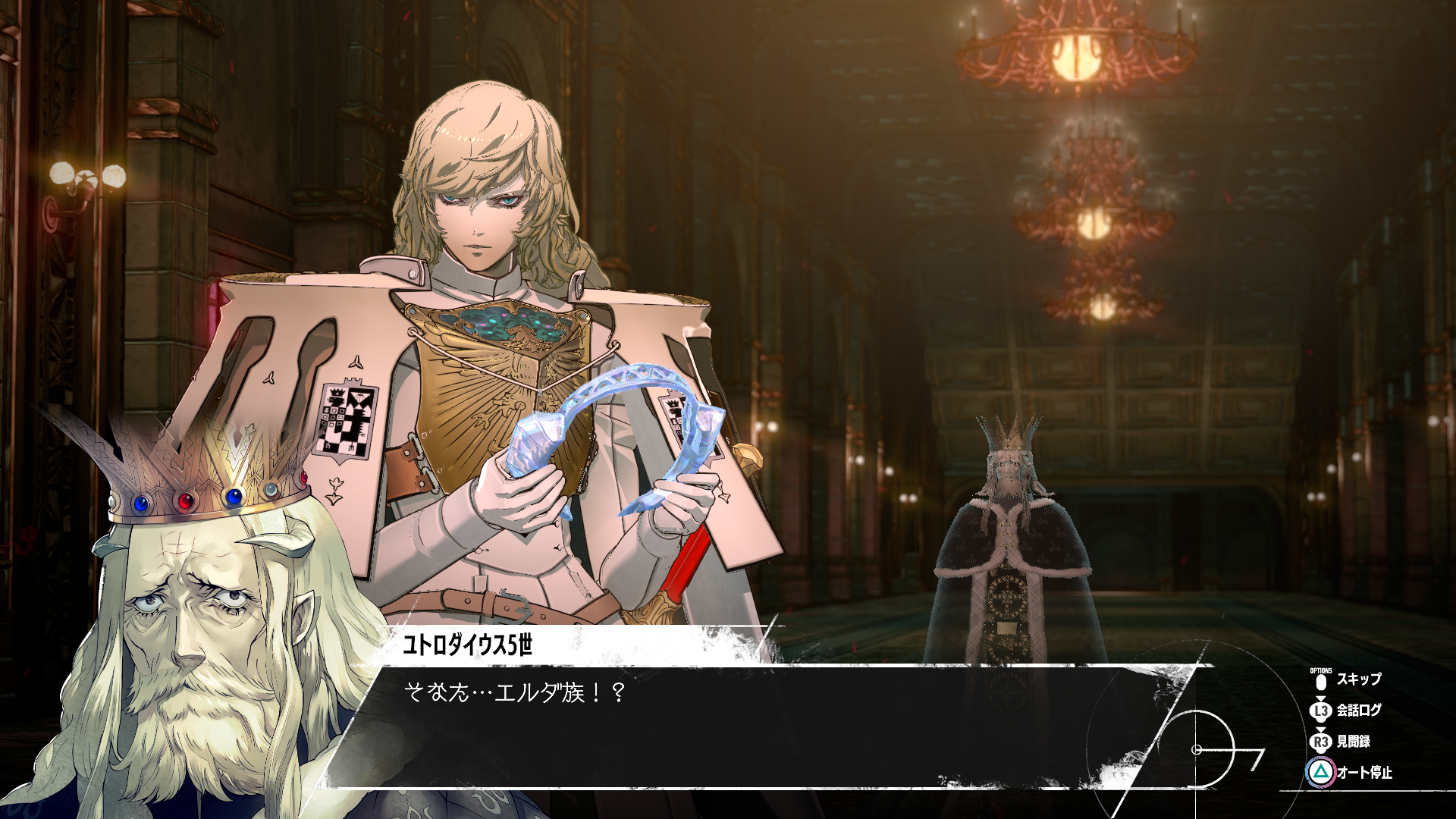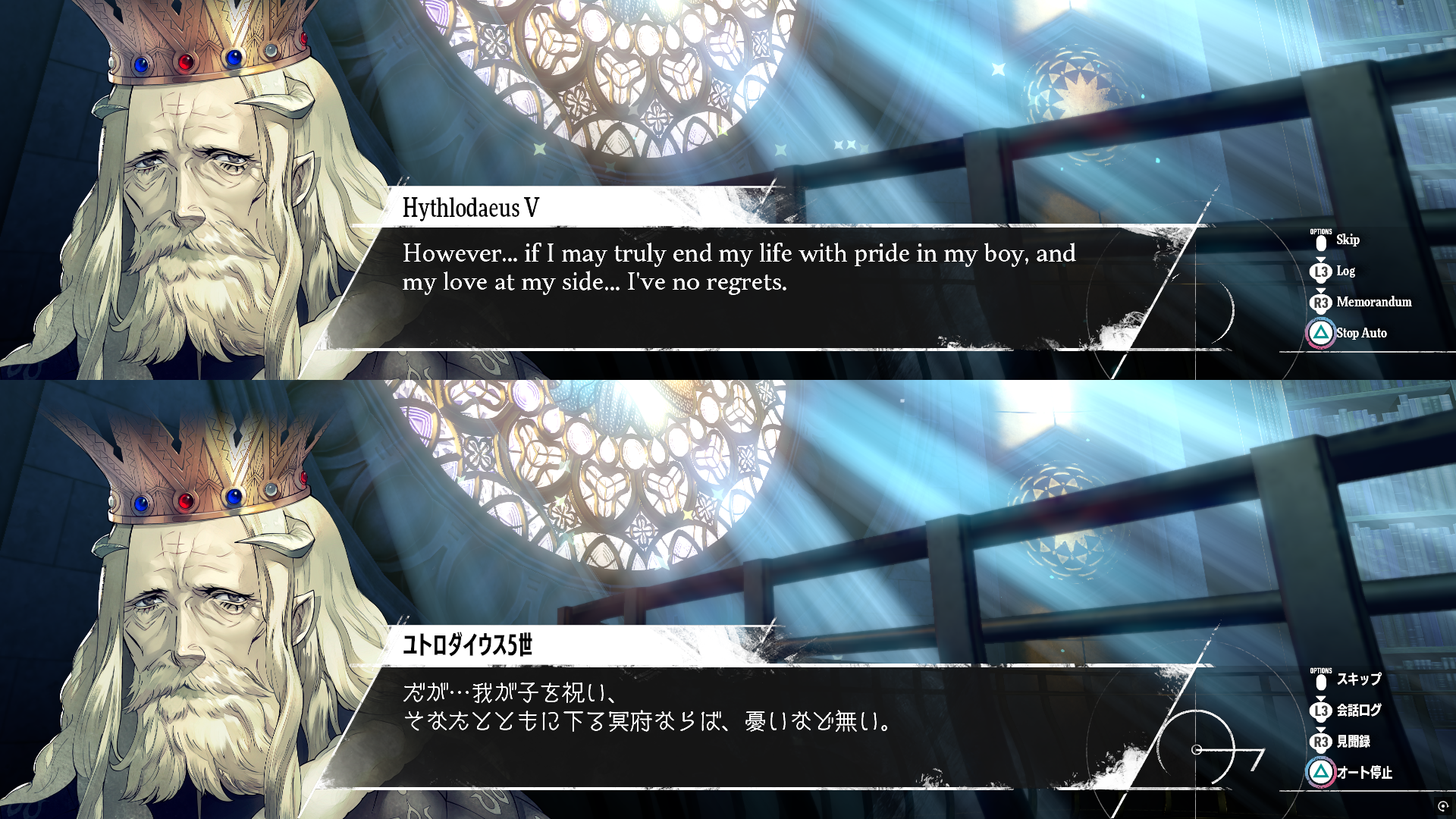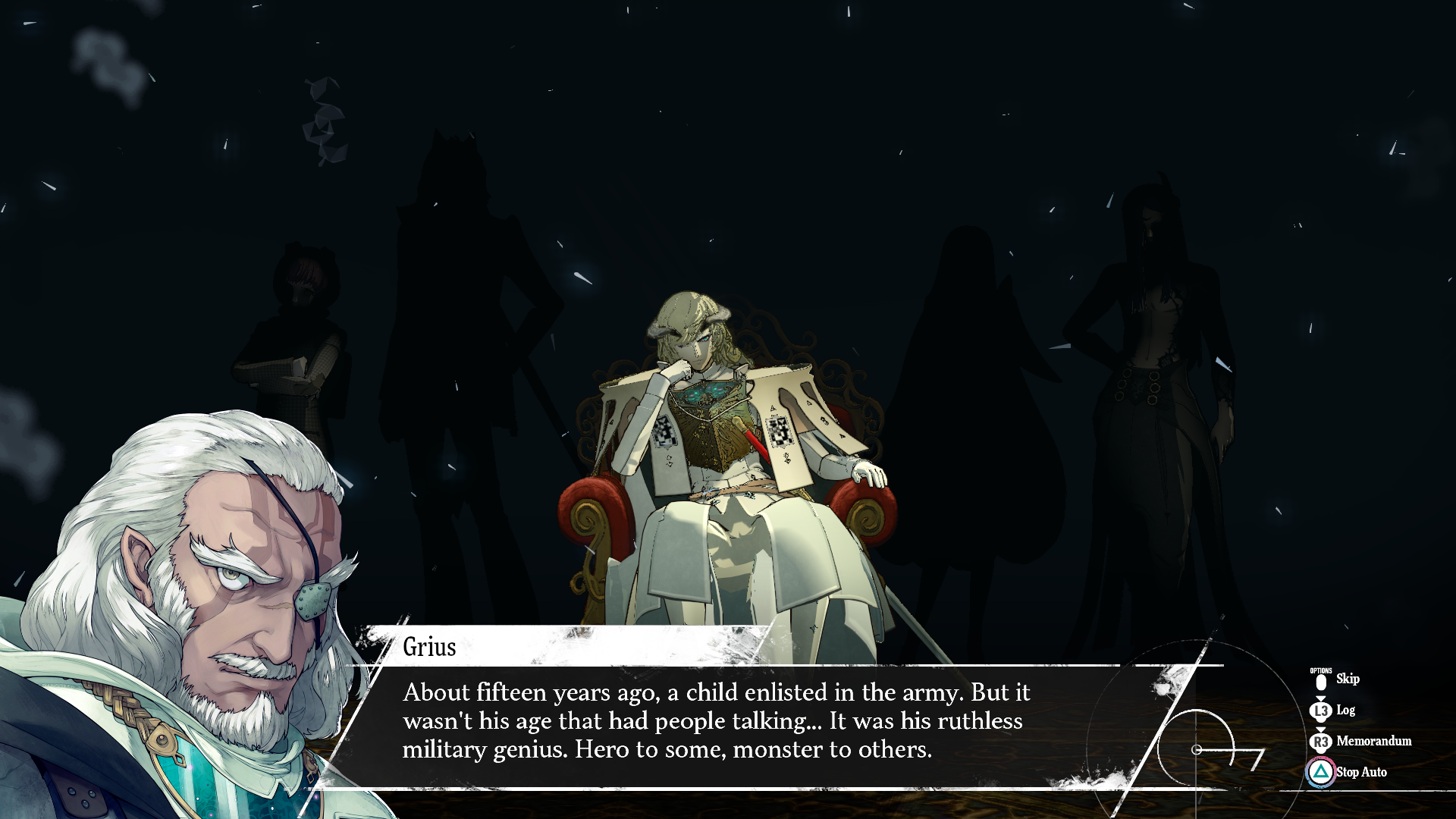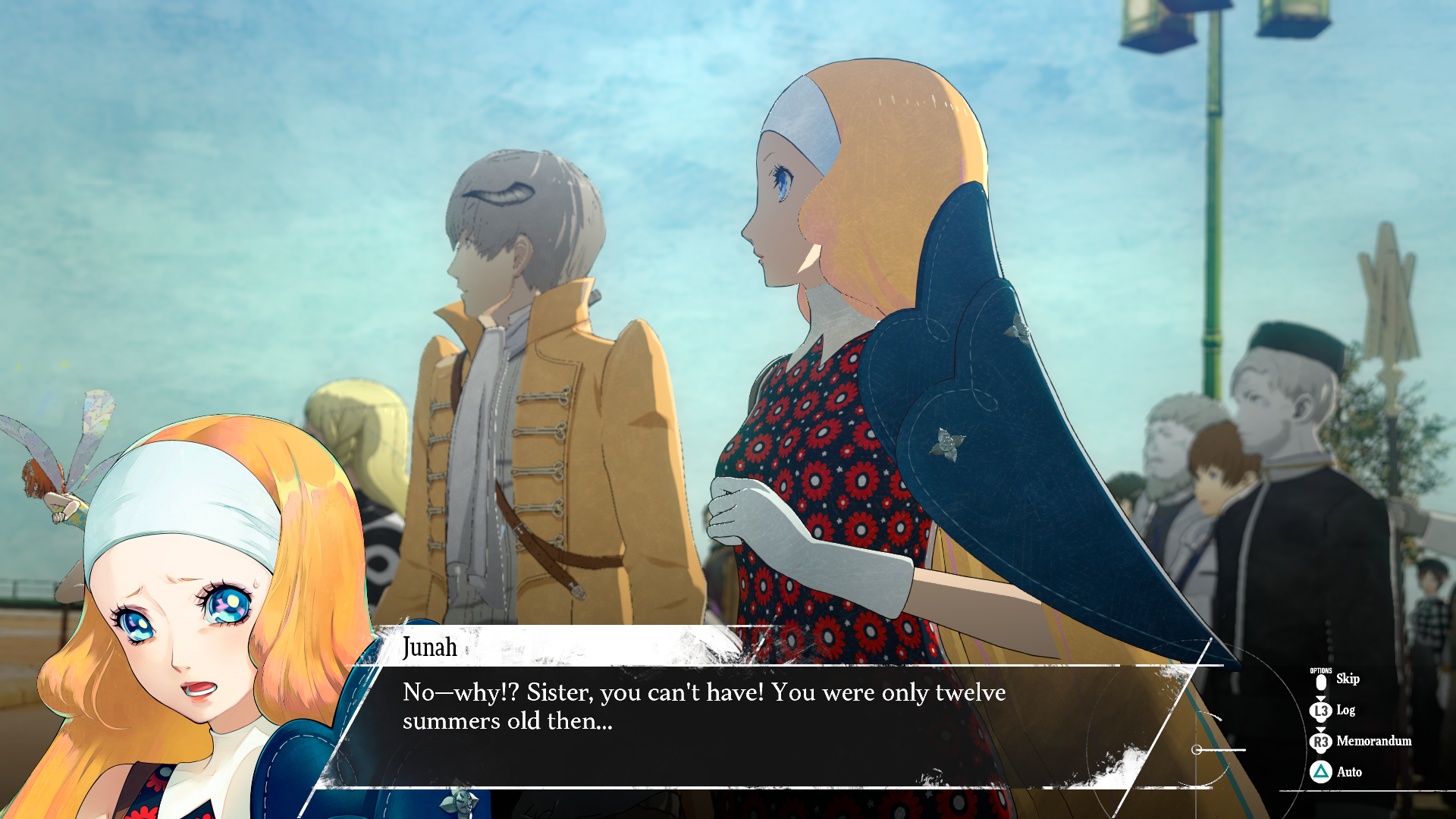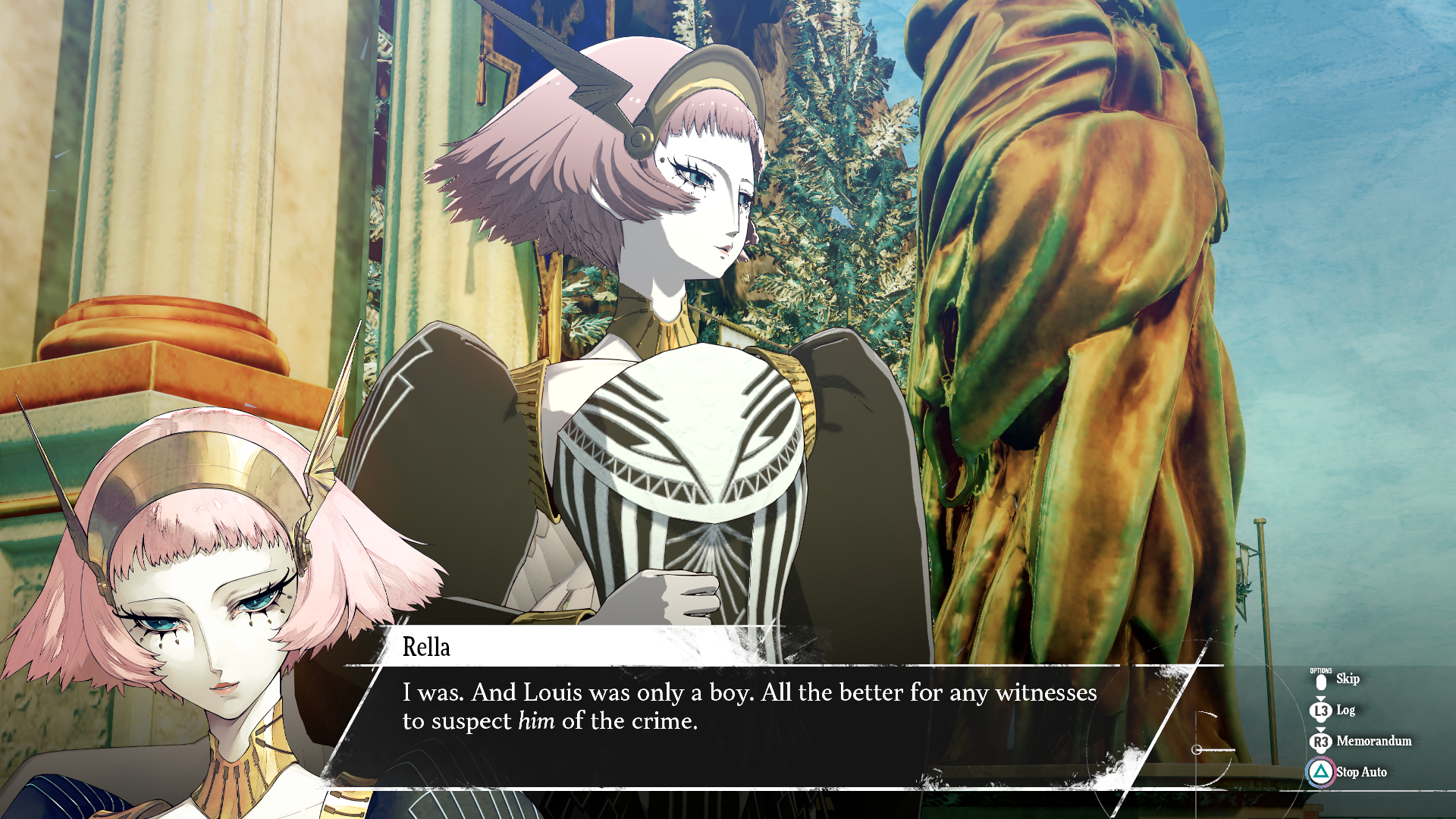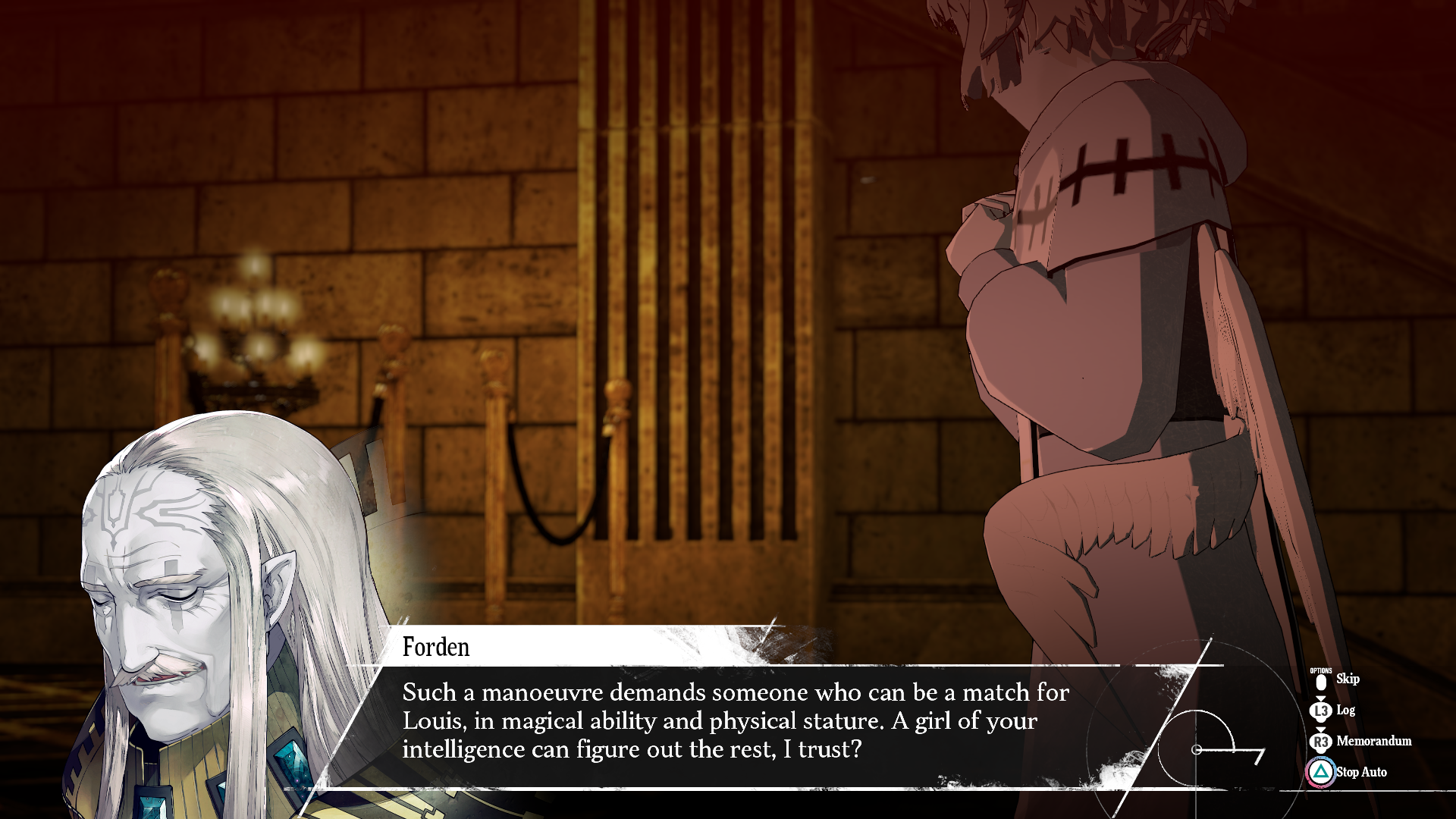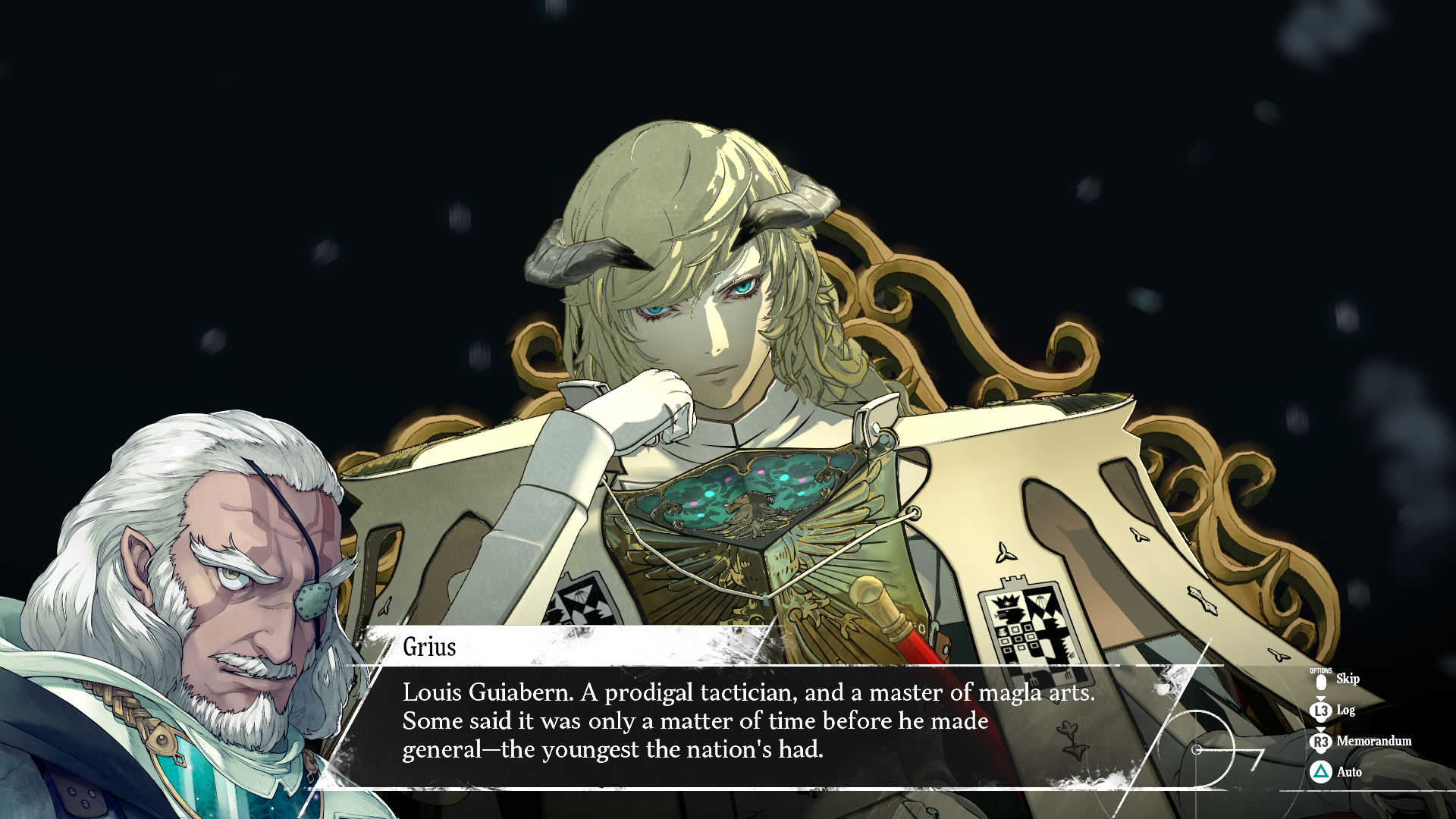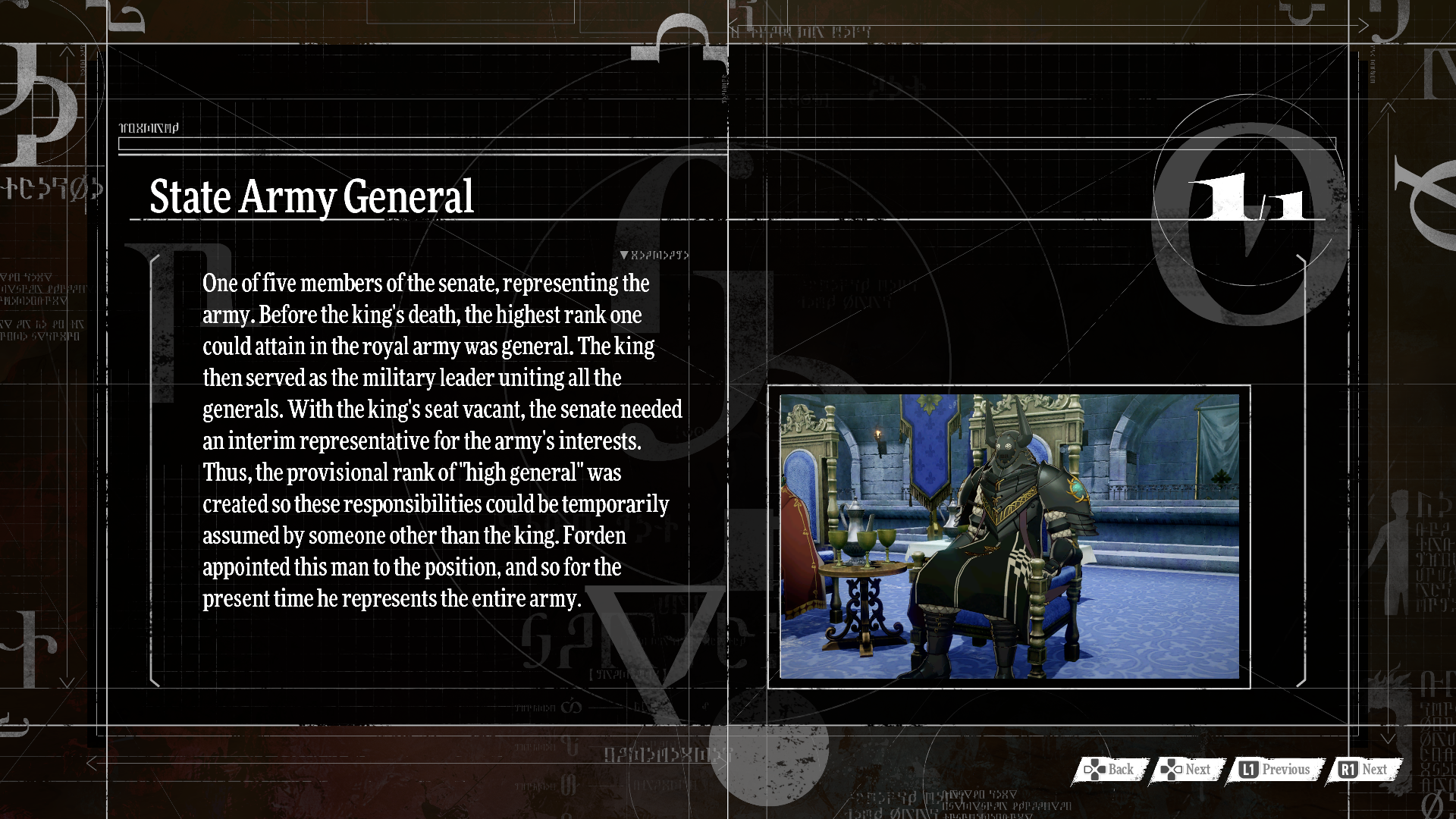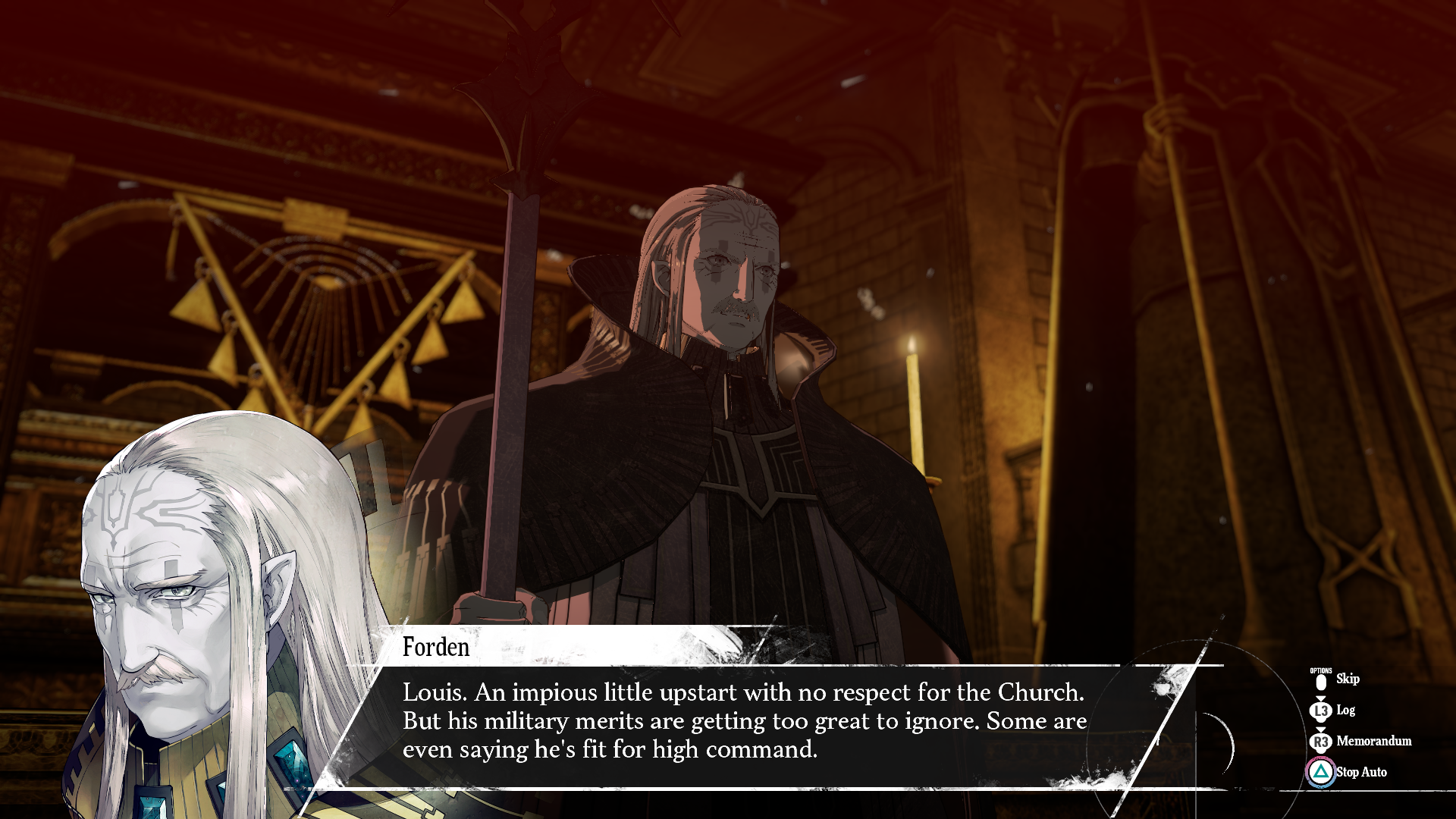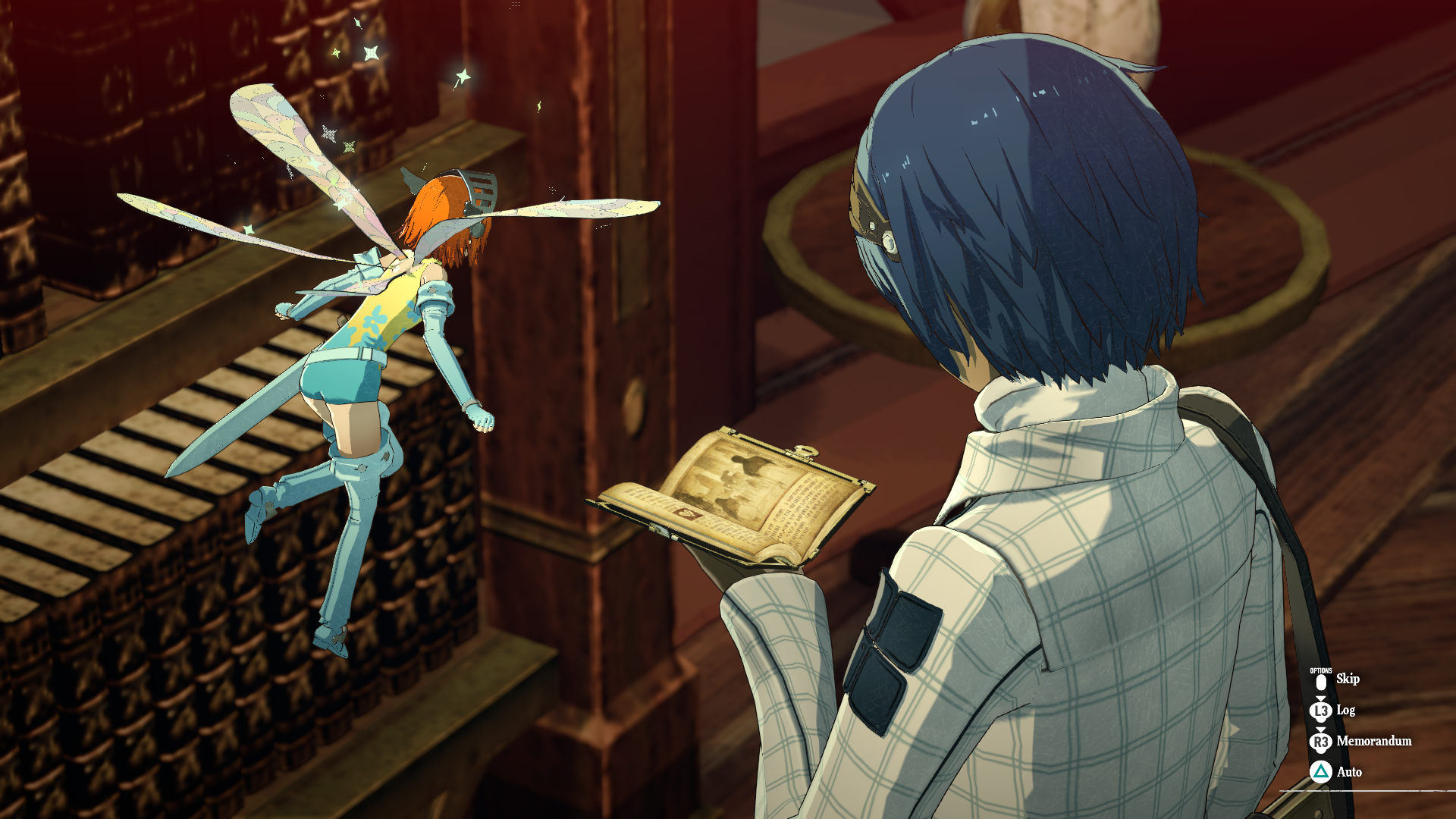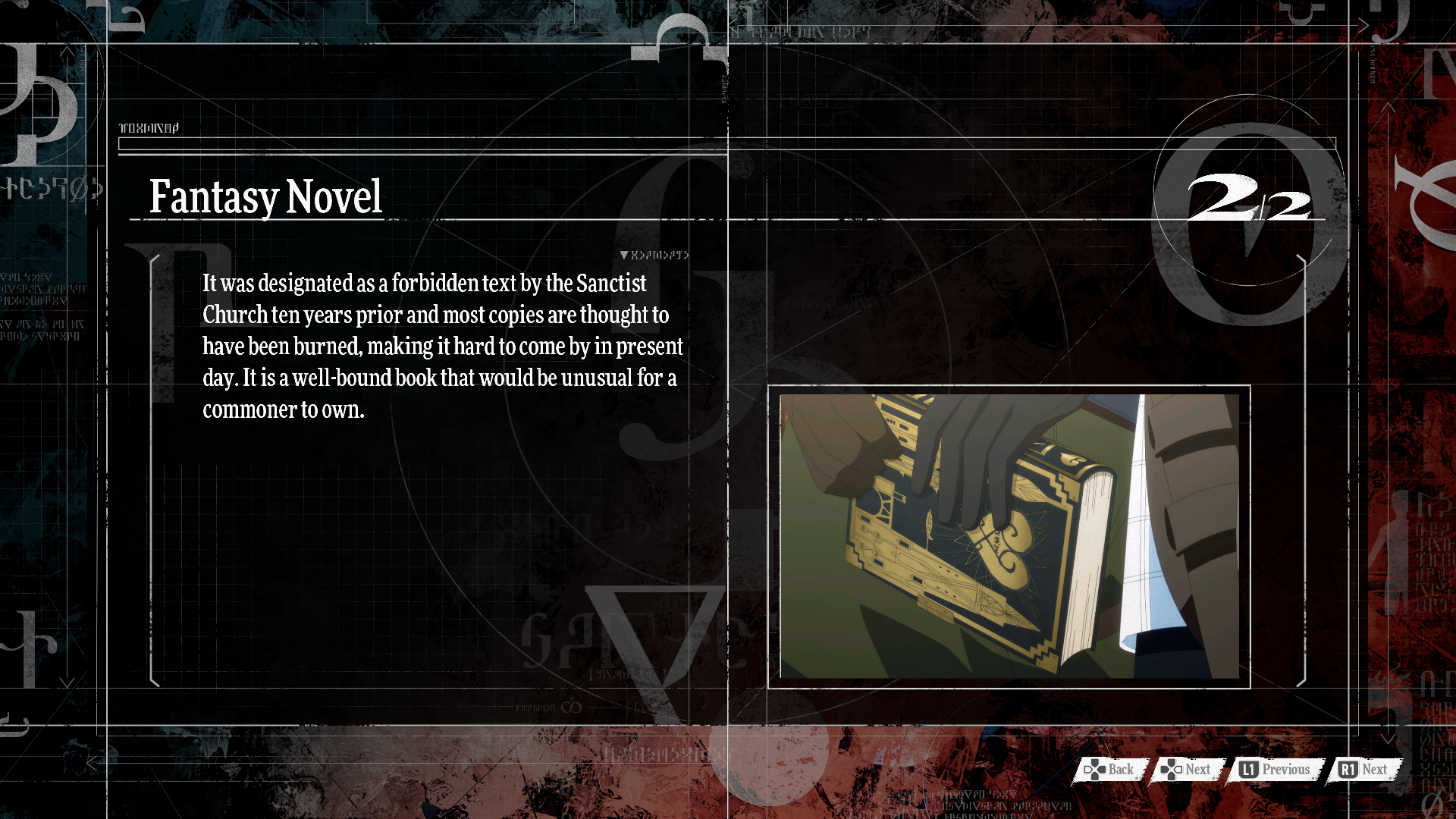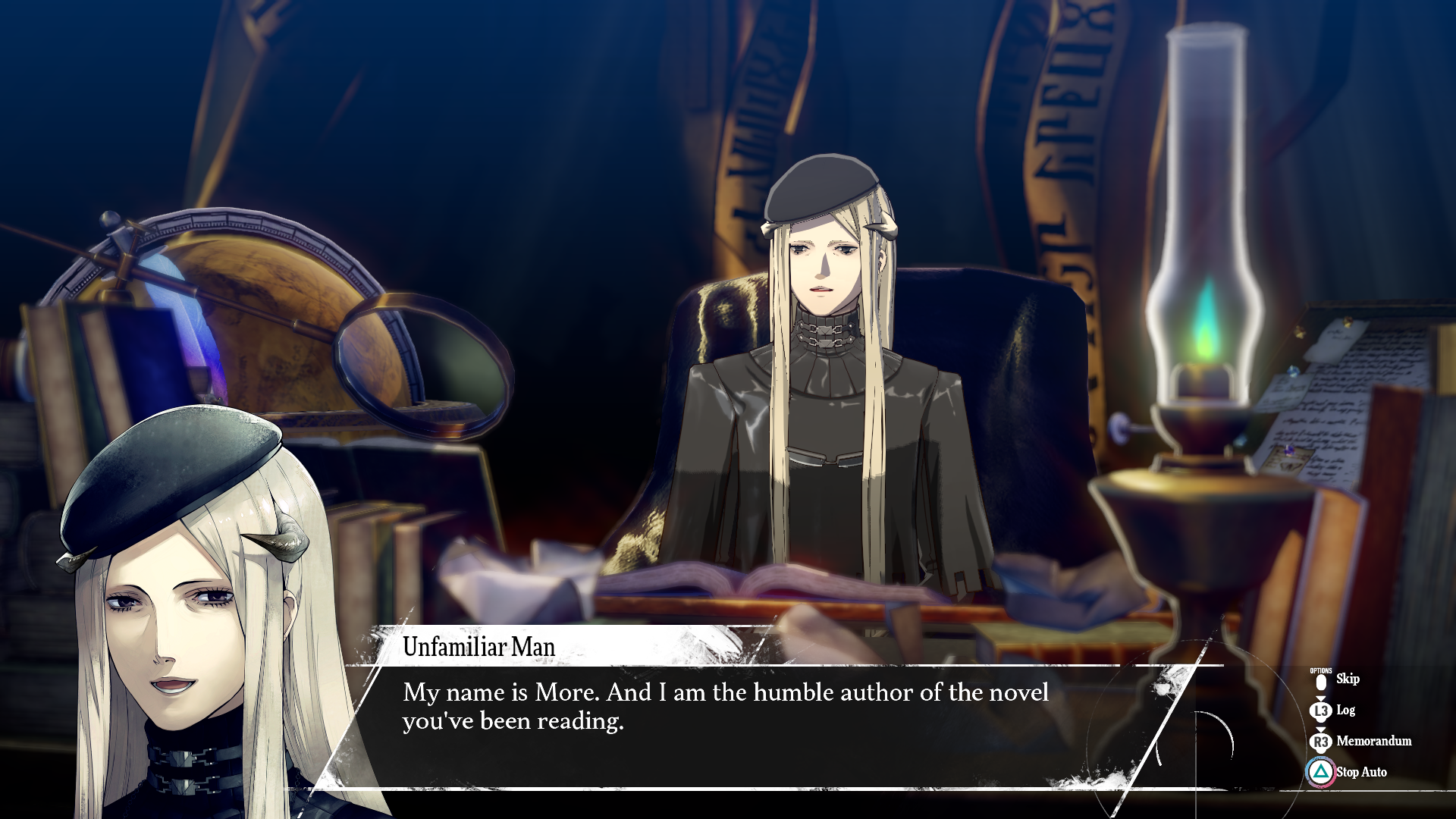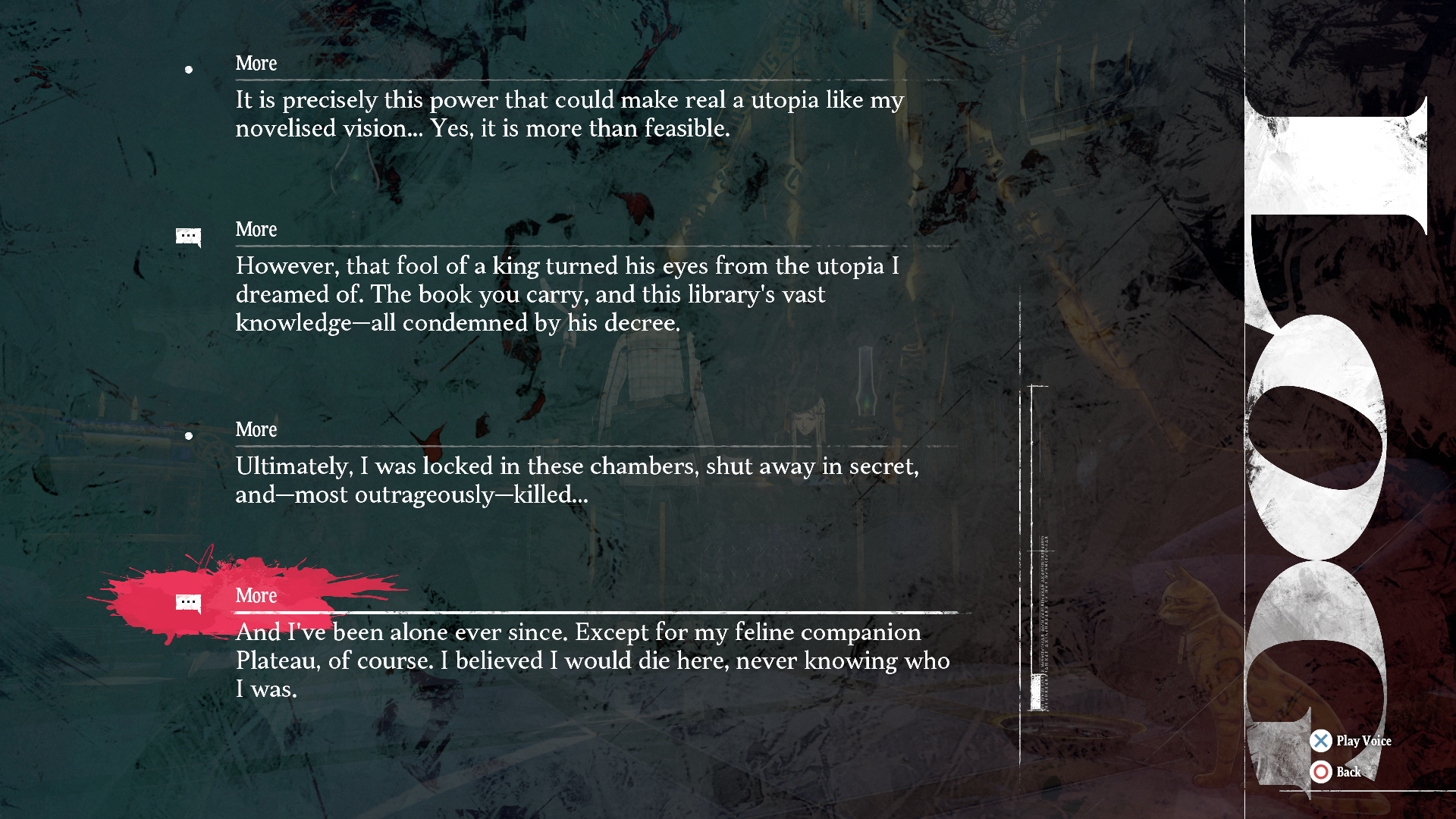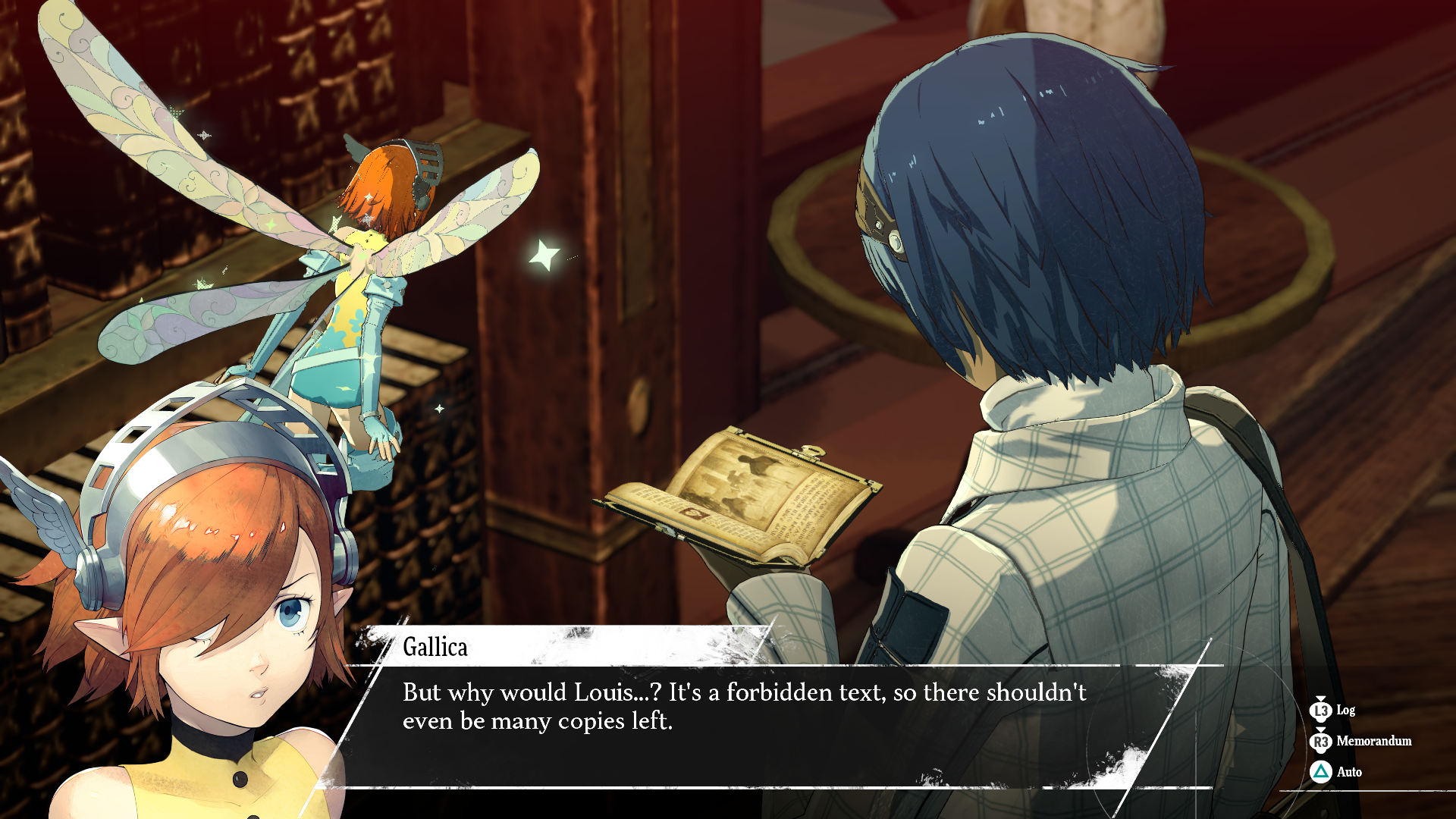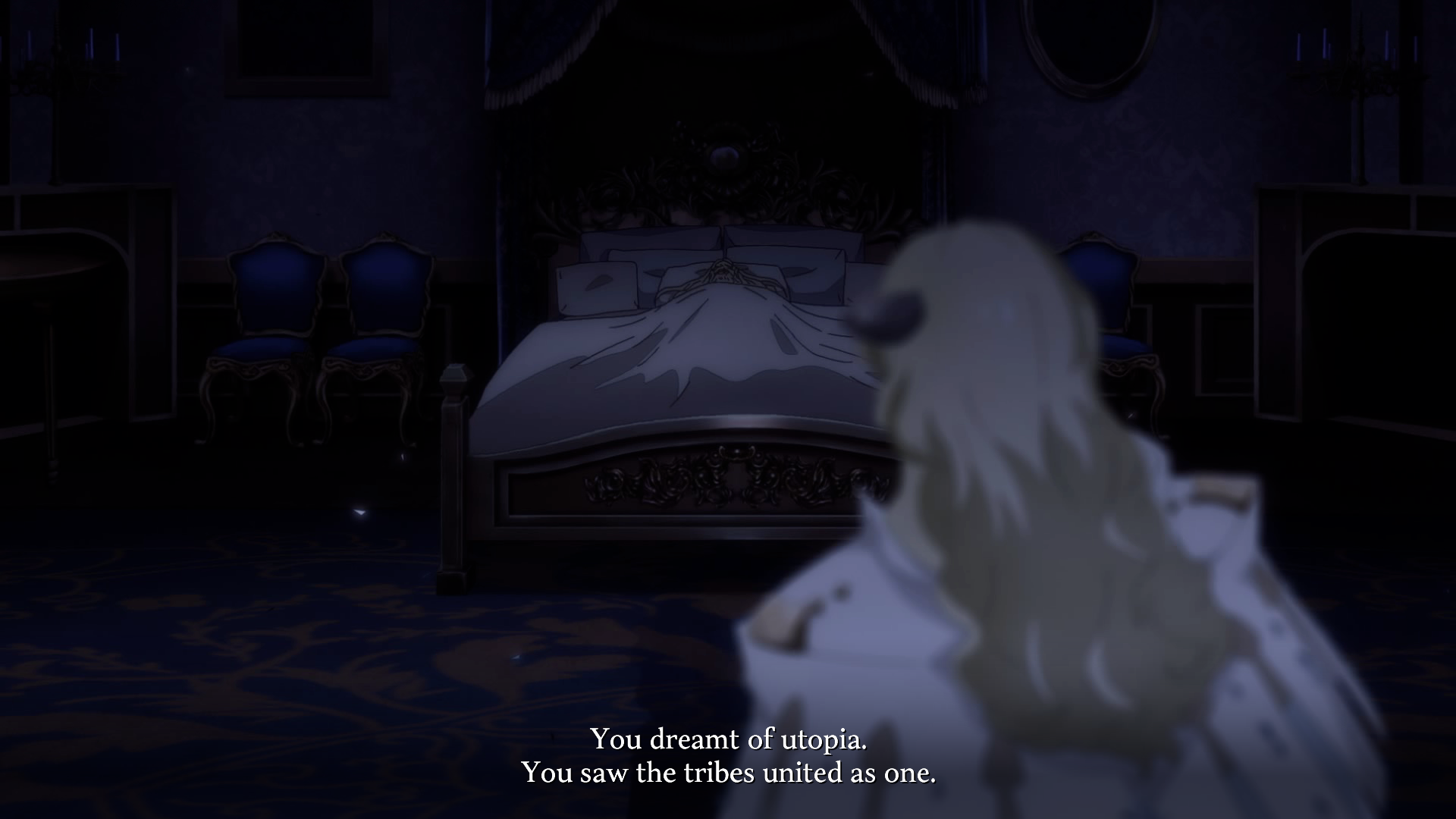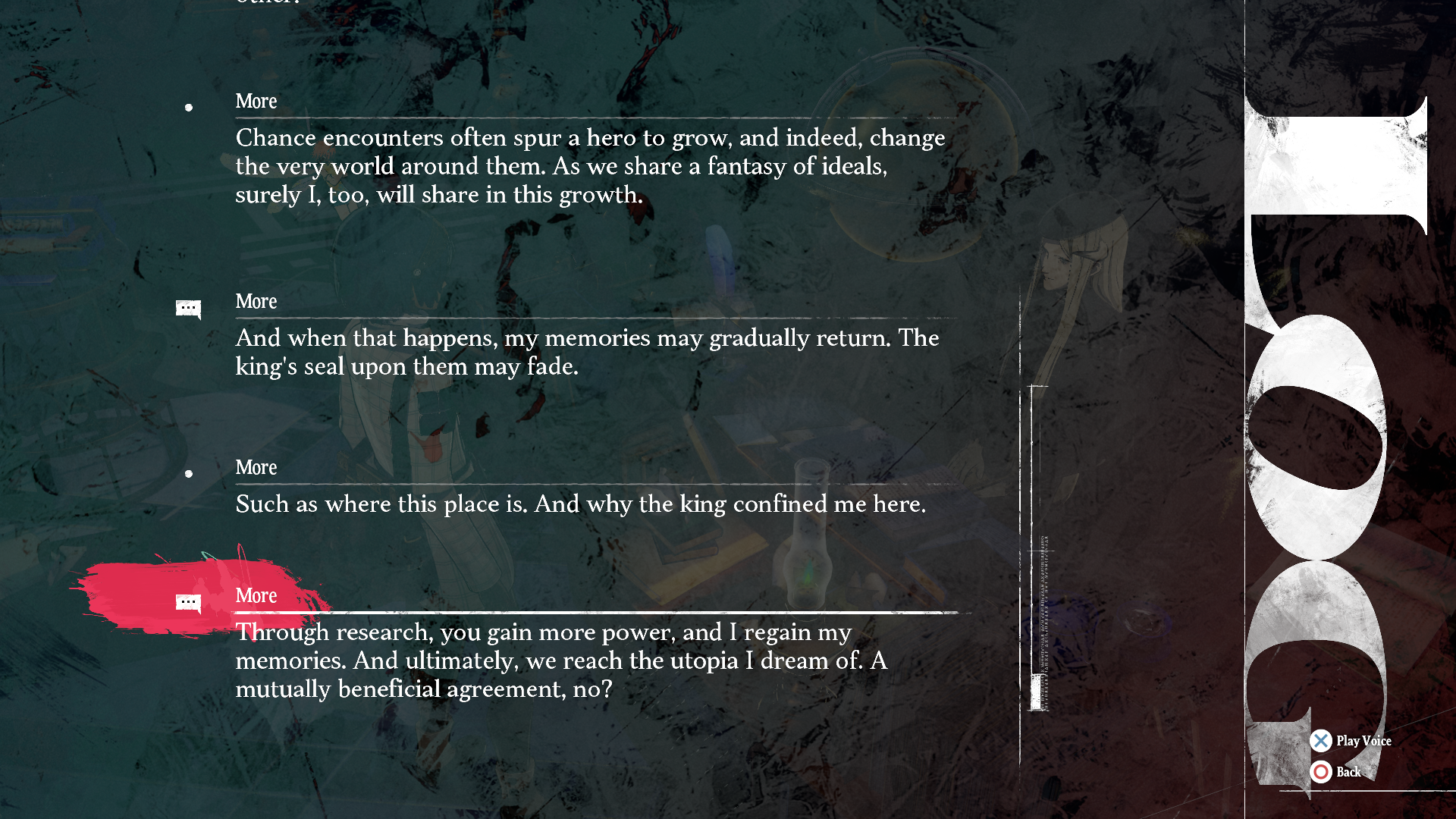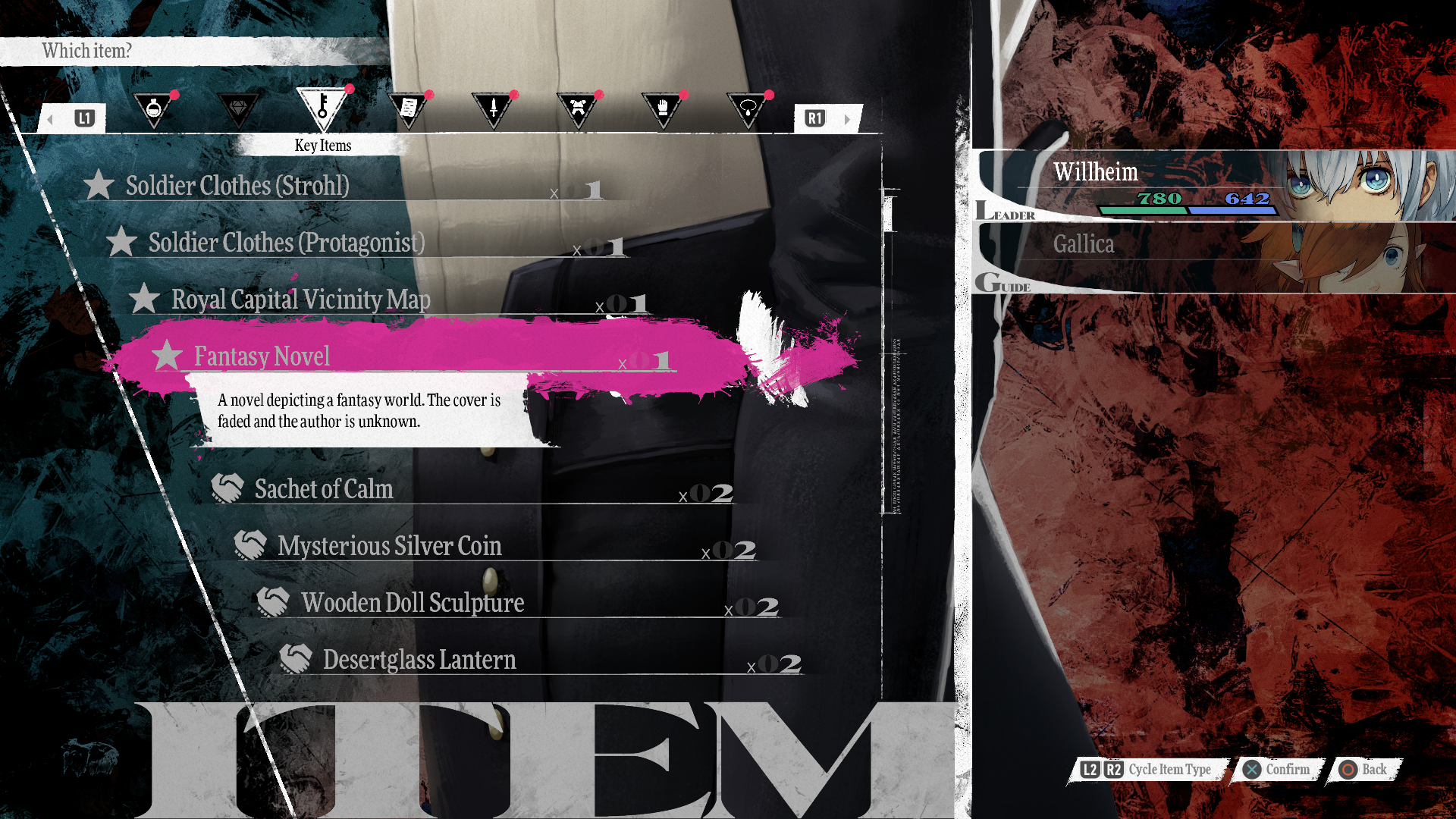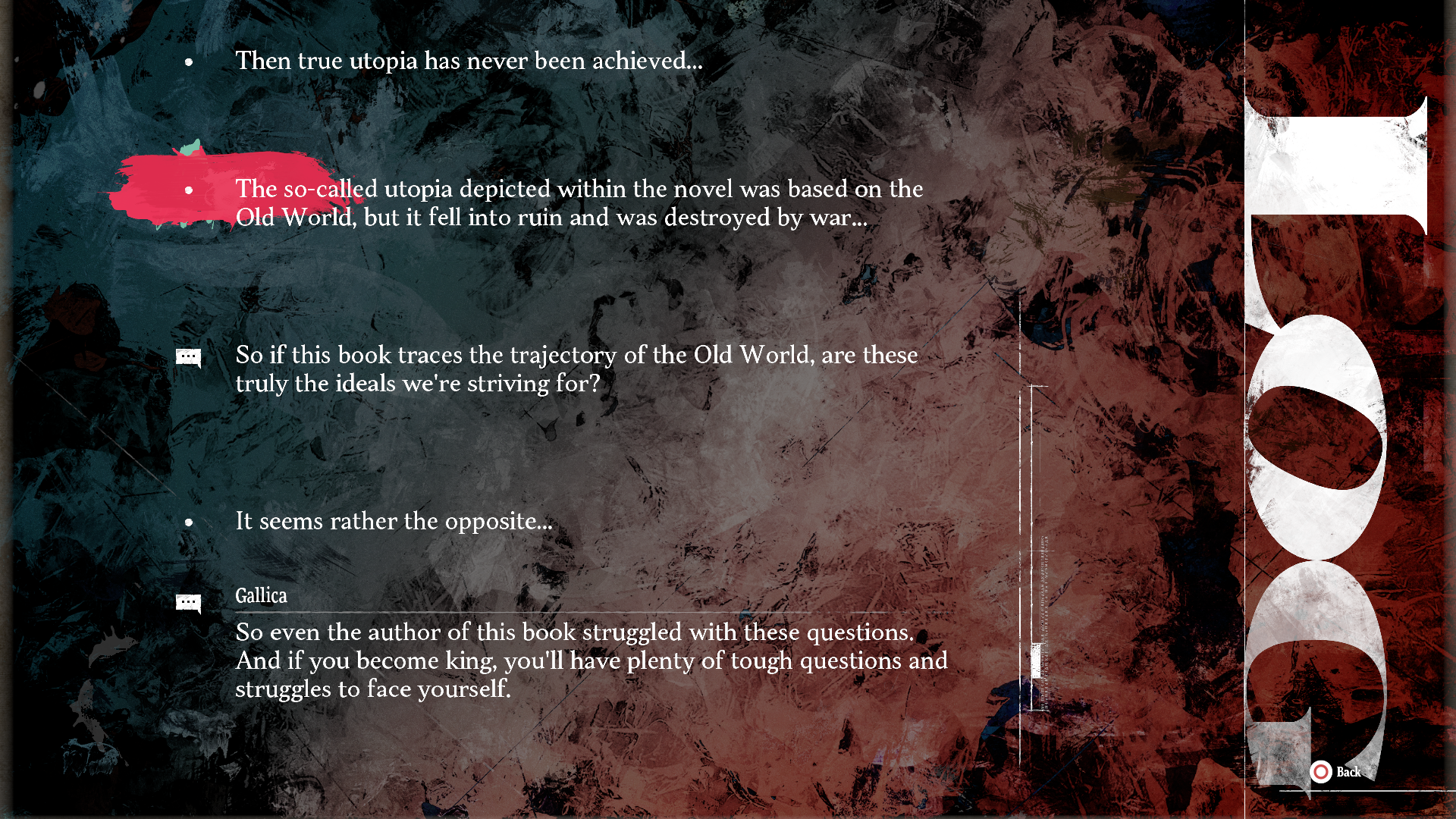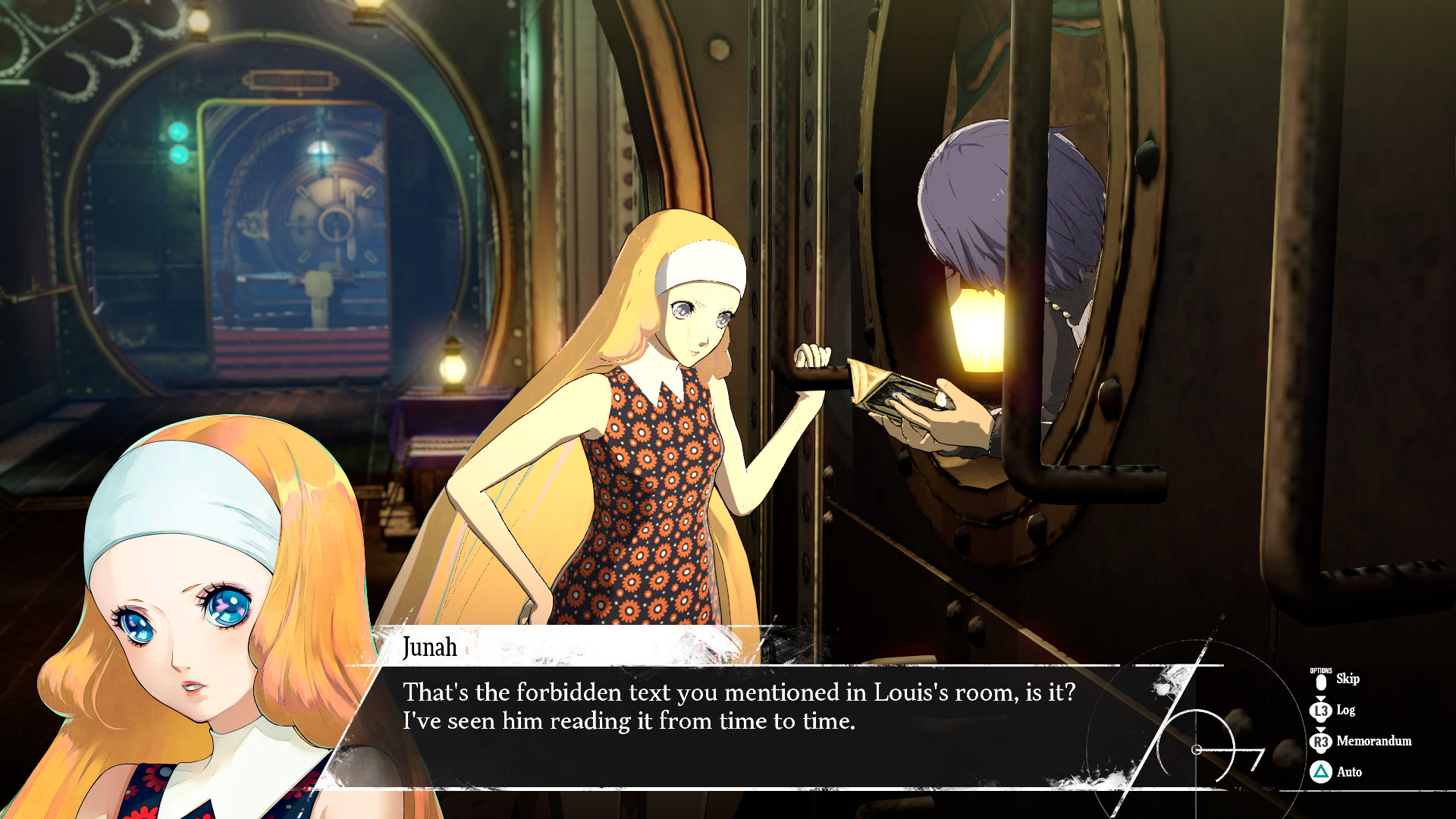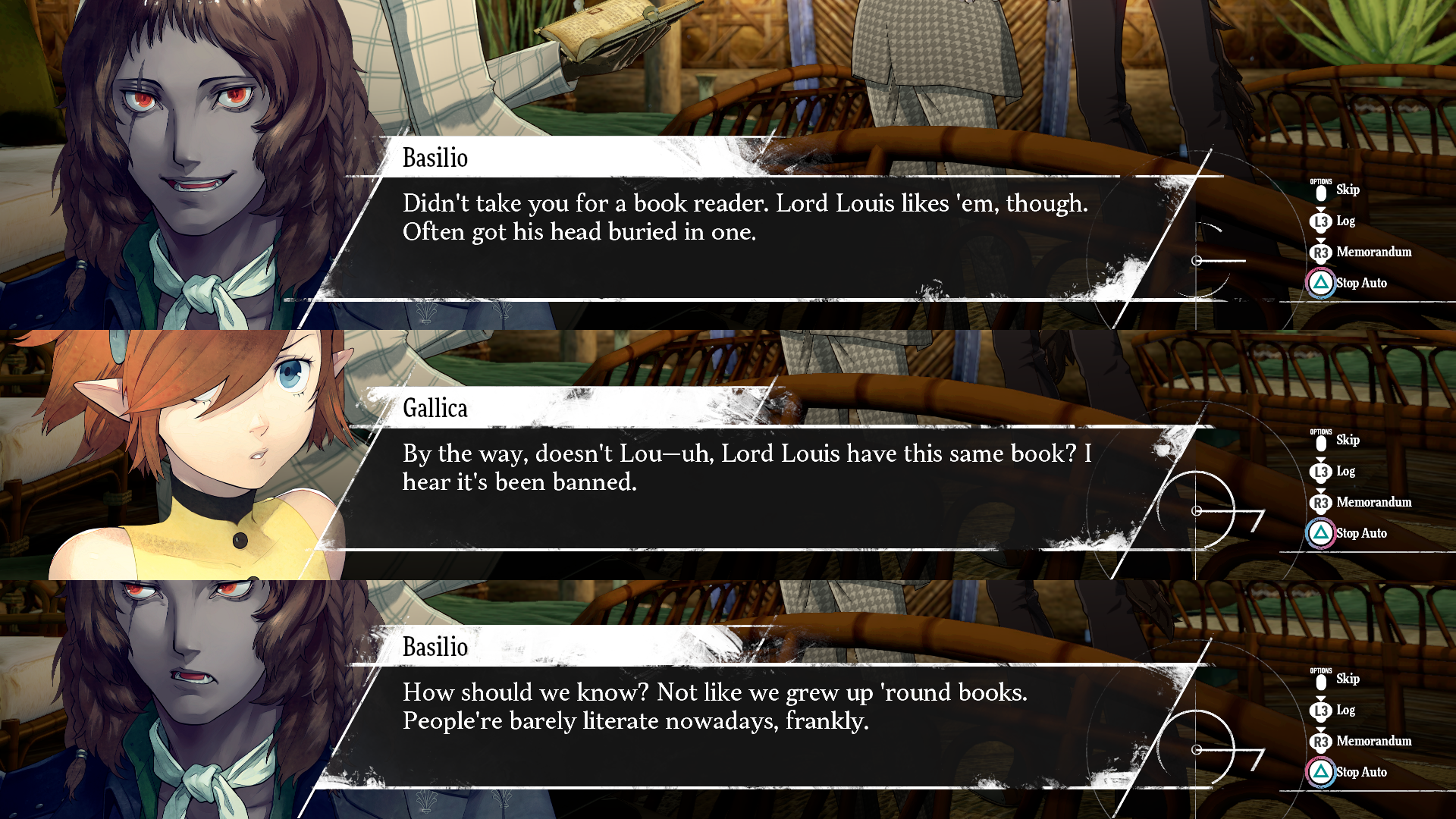This section is written in a way that tries to cover the game’s events as straightforwardly as possible, emulating trying to narrate it from the perspective of a player discovering it for the first time, and how some details may be overlooked on a first playthrough.
In general, I go through these events objectively, sticking to how they’re presented in canon, but you’ll also find my own thoughts sprinkled throughout the text.
The essence of Ruimoa begins to reveal itself through Metaphor's story starting from 9/24. This section is full of spoilers for obvious reasons, so I assume that if you've clicked on it, it's because you've fully finished Metaphor:Re Fantazio. The information that connects Louis and More is revealed near the end of the game.
As these are my thoughts, there are likely to be errors in wording, grammar, or cohesion. Please forgive me if some things don't sound quite right.
There is commentary hidden in the screenshot boxes as well, so make sure to click them from time to time or hover over them.
THERE ARE A LOT OF IMAGES ON THIS PAGE, AT LEAST 100+ BE CAREFUL WHEN VIEWING ON MOBILE OR WITH BAD INTERNET
Below is a table of contents to jump to different sections if needed, to make reading easier.
Table of Contents
Ancient Eldan Sanctum
During 9/24 in the game's events, the truths about the Elda tribe and the nature of the Protagonist are revealed. Along with these, other relevant details emerge regarding Louis. Most importantly, at this point in the story, it is implied that Louis himself is an Elda, having lived in the Eldan Sanctum a long time ago. The way his origin within the Sanctum is revealed is vague: Gruidae thinks Louis must be from there based on the party's accounts of his magic and his knowledge of humans, and vaguely suspects he was the child of the "Charadrius" family who lived there, a pair of doctors who were devoted to studying similar magic.
Although the player is not explicitly told whether Louis is an Elda or not, it's pretty obvious to get the idea that he is one.
This will be relevant to an scene that happens a couple cutscenes afterwards.
A detail that can be easily overlooked (specially on a first playthrough) is that the Player is capable of exploring special rooms (namely 'Prayer Room' and 'Altar of Secret History') before being forced to move on to the scene where the identity of the 'Prince' is revealed, being forced to enter the Altar of Secret History only to have Gruidae give more exposition. Once Zorba's presence is discovered, no detours are allowed.
In any case, what the player may find in these particular rooms is:
After the fight with Zorba and other plentiful of cutscenes, when the Protagonist has a moment of rest, he's told by Gallica that Griudae had said the book was given to him by his parents. The story of the Old World is depicted in the novel rather than being a full fantastical work, and this is knowledge that was kept within the Sanctum.
Shortly after reading the novel for the last time, More summons the Protagonist to Akademeia. After a couple of exchanges about his newfound archetype, the mysterious voice speaks to them both, vaguely alluding to her existence, and More still cannot remember who it might be. When he's about to remember, the Protagonist is quickly forced out of Akademeia. Once this is over, the Protagonist muses that he now remebers that More is the author of the fantasy novel, and wonders if he has ever visited the Sanctum
(By this point, I think it should be obvious to the player that More is the King himself, but why that is, given that the King had died, is not yet explained)
The next set of cutscenes that follow after that are tied to the plot, but it isn't until Louis formally arrives at the royal palace that another relevant scene involving him takes place, and probably the most important one concerning him and Hythlodaeus.
Skybound Avatar
Mockingly announcing his arrival, Louis demands that the King hand over the royal scepter. It is then, that a ghost of the King appears to speak directly to Louis.
When the King asks Louis what he will use the scepter for, Louis replies that he will essentially purify the country, emphasising how Hythlodaeus abandoned his ideals, but that he would not do the same. This shows that Louis is indeed unwavering in his ideals.
Louis explains to the King that this knowledge of the royal magic and the scepter isn't exclusive to just the royal family, and as tells him what he knows, the King asks him how does he know of everything.
It is then that Louis removes the fake horns he's been using, with the King only now realizing that he's an Elda.
Louis says that Hythlodaeus hadn't always been this way, that when he came to the Sanctum, he understood the way he believed in his ideals. As the way the English text puts it, "Saw and knew the passion in his heart"
Right after that, Louis shouts about the injustice of what occured at the Elda Sanctum and throws the horns at Hythlodaeus. This is the last time they talk face to face, and Hythlodaeus has nothing else to say afterwards.
The only scenes featuring Louis that follow appear when the player first enters the Skybound Avatar's dungeon. This is probably the easiest scene to miss in terms of “remembering” due to its brevity, but it's the most significant in terms of Louis' character.
Louis, completely alone in the throne room, begins talking to himself as he waits for the scepter to awaken. Here, his tone changes completely, as he (believes) he is still talking to the King, or at least addressing him, and tells him that he “understands why he felt such hopelessness” Louis indicates that the rise in anxiety among the people was not the King's fault, but the fault of the people themselves.
And then, most importantly, it's this dialogue which is: "I shall claim the ideals you abandoned, and finish it in your stead" (but with his own twist, which, as we know from the game, is to return anxiety to the people)
There are additional scenes that provide more information about Hythlodaeus as the Player traverses the Skybound Avatar dungeon, most notably:
These are flashbacks that are only shown to the protagonist, but he never speaks to him directly in the same way he does with Louis.
As the group progresses, defeats Zorba, and makes it to the throne room, they are caught up in another scene with Louis.
The most important piece of information revealed here is that Louis explains that the royal scepter absorbs the anxiety of the people at large, and therefore the king ends up taking the toll of bearing the people's anxieties by himself.
When the protagonist is forced to choose whether or not to accept Louis's deal regarding his ideal world, rejecting the proposal causes Basilio to call Louis out on his hypocrisy, which in turn makes Louis to lose his temper and retaliate by saying, "I once had my own aspirations... Yes, I had dreams", indicating that his current ideals were not what he originally had believed in and that they had changed upon facing the cruelties of the world.
Upon being rejected, Louis ends up seizing the scepter and floats away. The party must then wait within the game's time limit to follow after him
Shortly thereafter, Hythlodaeus addresses the party and tells them that Louis has taken the scepter for his own ends. Strohl complains that Hythlodaeus does not seem bothered, considering that Louis has killed him. He simply answers that “he had always wanted to die,” even before Louis ended up killing him.
He acknowledges his own failures and disappointments, and justifies his death.
Right after that, Hythlodaeus simply confirms to the protagonist that he must stop Louis, which he does without even showing himself.
From that moment on, the significant development of concerning the two comes to a halt as gameplay sections take up for most of the endgame all the way until the 30-day period is over and the Tyrant's Star dungeon opens as the final dungeon in the game. At the very least, it's up until this point that now it might be time to think about what has been presented so far and what can be analyzed from it.
Interlude
It is clear from the corridor scene alone that Louis and the King have some kind of history together and, strangely, Louis knows him, but the King does not.
His words about the king once understanding the corruption that reigned in the kingdom are undoubtedly sincere and, despite the anger in his tone, he still acknowledges that he saw something in the him of back then.
He would not throw away his ideals like the King did, but what exactly Louis's ideas are is something that isn't entirely clear until he says so himself.
The ideals that Louis actually has believed in all a long have always been the King's. His attachment to ideals are because he believes himself to be the one worthy of following through those abandoned ideals.
It has never been his own revolutionary dream, but rather the desire to keep Hythlodaeus' fickle dream alive, no matter how much he has twisted it. That scene in the throne room, which is triggered when the Player first enters the Skybound Avatar, is one of the few moments in the game, if not the only one, where Louis speaks to himself. With no need to keep up appearances or deceive anyone, he speaks with complete sincerity, saying that he has never blamed the king for his mistakes and that he will continue to pursue his ideals where the King failed...
This reveals a lot about his inner thoughts and his true feelings towards Hythlodaeus, which are not pure hatred as most people imagine. If Louis himself says so, what arguments are there against it? These are his most honest feelings, expressed only to himself. The Royal Magic that seeks guidance for the throne allows anyone to wield the scepter as long as they are chosen by the people. Louis was chosen during this period of the game, and Hythlodaeus can do nothing to prevent it because that is the will of the people.
His death was something Hythlodaeus always had in mind since the Prince's curse and his subsequent disappearance, which was later classified and “pronounced” as his definitive death. Hythlodaeus feels no remorse for his suicidal plan, nor does he condemn Louis for killing him. He even defends him for it. Whether this elaborate suicide plan was something Louis already knew about, or whether it was all a silent agreement, who knows. Louis doesn't seem to enjoy the act of killing him, as he appears completely unfazed when he does so.
It's an important thing to note that, during the opening cutscene, it is stated that Hythlodaeus could easily block entry to those attempting to enter his chambers, and that very few can make their way inside to begin with...
Louis can do so easily, staying in his room, and is perfectly capable of killing him, as Hythlodaeus offers no resistance whatsoever. Why can Louis go unnoticed while remaining in the King's room? It's never explained or mentioned, but it's an interesting thought to speculate on.
In any case, the scenes related to Ruimoa don't end just yet in the aforementioned segments
Tyrant's Star
Once the party has fully traversed through the Tyrant's Star dungeon in full, are they able to face Louis for good (at least, only up until this point, because the battles with Louis don't end...)
This is when the party (or rather, Strohl) asks Louis what his motives are for taking things this far. If all this is revenge for what happened in Elda Village having witnessed the fire. Strohl tries to relate his own situation to Louis', trying to think that he is as vengeful as he had been, which Louis is not. As Louis says, revenge would be pointless if he simply eradicated those responsible for the fire, since ignorance is much more deeply rooted in the people and is this is the main reason why injustice keeps propagating. If the people do not change at their core, injustice will continue to exist regardless of whether he gets rid of the few people initially responsible.
Since this isn't about revenge, Hulkenberg continues to ask why must he lead the nation into his destructive scheme.
And now, this is where Louis answers the most about himself, revealing the most important aspects of his character.
Louis, although born in the Eldan Sanctum, does not feel any particular fondness for it. Having lived in isolation due to the rules of the Sanctum, Louis wanted to change such way of living. As vague as it may sound, it can be inferred that there is more to the life of an Elda that the player does not know. It's unclear to know exactly what Louis experienced and how deep his complicated feelings toward the Sanctum are.
Right after explaining this, Louis says that everything changed when an outlander arrived at the Sanctum. That being, the protagonist's father, King Hythlodaeus V.
According to Louis, Hythlodaeus V had once dreamed that the tribes could truly be equal, and the truth about the Elda did not bother him, as he had learned it as a common man who was unaware of the real truths of Euchronia.
And it was thanks to Hythlodaeus' visit that Louis himself gained a dream. Believing in his words, he wondered if there were more people in the outside world like him and if he could finally stop living in hiding. Louis' dream as a child was as simple and innocent as leaving the Sanctum and being free in the outside world, believing in unity, but also... his own personal freedom. Like a bird flapping its wings for the first time at long last after being locked in a cage for so long.
But it wasn't until the fire that Louis became radicalized. Feeling powerless, unable to stop anything, and overcome by fear, he decided that he never wanted any of that to happen again. And with that, his belief in an egalitarian world through power was born in place of his original dream, wishing to return anxiety, cowardice, and fear to people, as these are the feelings that cause injustice.
At least, that's what Louis says. Strohl responds by saying that Louis has always been trapped in that hellish day and has never been able to accept the anxiety within himself. His ideal world is a world far away from himself, a world in which he may not exist.
Louis neither agrees nor disagrees, he simply changes the subject and preparess to engage in battle by using the Royal Scepter to grant himself an 'archetype', appearing in his boss form, “Archdemon Louis Charadrius.”
After the battle, Louis is defeated, but he still wants to continue his fight, not giving up. Even staking his life, as long as he can fulfill his vision. From there, dramatic scenes unfold in which the party tries to stop Louis once again, with several degrees of 'danger' approaching them. And in the end, while everyone fights against Humans and appears to sacrifice themselves, the protagonist is left alone with Louis for the last time. However, Louis no longer has time to bargain with the Protagonist.
He wants to “erase these lie-laced dreams and bury the past.” Although this phrase may seem simply dramatic, it has a profound meaning in terms of what Louis considers “lies.” The dream that Hythlodaeus had given him, what he once believed in, was a “lie.” When Hythlodaeus abandoned his ideals, his words became empty promises in Louis' eyes. That's why “lying” is such a serious offense to Louis that he can't imagine himself ever doing it (although he does, albeit indirectly. The act of withholding information and letting people make their own assumptions makes him free from lies, as he has never said anything to confirm or deny what is expected of him).
Proceeding this, the Protagonist is left in peril as Louis transforms again, attacks him with magla, and this leads to the Protagonist ripping his heart out to prevent another melancholization, leaving him to die.
Well, that is until More saves the protagonist from his death, dragging him to Akademeia.
Akademeia
“More” at this point in the story, in this specific cutscene, acts completely differently than usual. This “More” has a totally different outlook on the world, more nihilistic and negative. It's impossible to change the world, and people just want “a sponge for their anxieties”
And even though he vaguely considers Louis an “enemy,” he is capable of saying that Louis cannot be blamed for wanting to end this cycle that the people have created.
In the end, when More presents the protagonist with a choice—to protect him from the cruelties of the world—if the protagonist rejects it, this leads More to break down and finally regain his memories.
A man who had lost everything, who wished for death, who had lost hope for meaningful change. It all culminates in a simple sentence, which reveals without a doubt, More's true identity
If the player hadn't somehow already guessed from all the clues given beforehand, it would be impossible not to understand now that More is the King referred to throughout the story.
More was born from the same magic that split the Prince, not from the Royal Magic. Therefore, More is a creation similar to Will, created by the Queen. More explains that his current form, as seen, is how he was when he first entered the Eldan Sanctum, “a discarded shadow of idealism.”
More had truly believed in his ideals and wanted to end the discrimination that plagued the kingdom, but the cruelty of the world broke him. He says so himself, adding, “Louis is probably going through the same thing,” being able to feel sympathy for him despite still considering him an enemy.
These sections all conclude the relevant details pertaining Ruimoa and how Ruimoa can be perceived when playing Metaphor ReFantazio the first time, as some details may be overlooked at first glance.
I emphasize the final segments of the game, because that is where it's explained that Louis knew Hythlodaeus/More since all the way in his childhood. Knowing this particular detail retroactively changes many of his behaviors and actions at the beginning of the story and even in those final segments when replaying the game.
One final interesting detail is that Louis's second boss phase in human form, 'Destroyer Charadrius' has the leitmotif of the Akademeia theme in his own theme. What does this mean? Who knows. But it's something that subliminally links them, however subtle it may be.
🎵 "Ode to Heroes" leitmotif in "King of Destruction" at the 2:15 mark
🎵 In "Ode to Heroes", the section that can be heard in "King of Destruction" starts at 1:07
🎵 Another leitmotif that "King of Destruction" has is "Call of Magic", which on itself is already based on Ode to Heroes. The flute at the start of "King of Destruction" is a fast-paced version of "Call of Magic".
But this is all on Louis's side, what does More exactly have that links him to Louis, with his own feelings? Well, let's get to my
More
As for More himself, not as Hythlodaeus, but as we see him in the game, as an amnesiac man, there isn't really much we can know about him as a person. On one hand, all his interactions depend on the Protagonist's input, and his follower bond follows more of a gameplay structure rather than a way to learn about the character's life. The end of his bond is somewhat inconclusive, and many of the things More tells the Player/Protagonist don't have a clear answer, even outside of his bond. His character leaves more questions than answers.
As for his importance in Ruimoa, it all starts from his Bond Rank 4 onwards.
In More's follower bond rank 4, he explains that he once used to go on travels, and as such his experiences would later become part of the fantasy novel he'd wound up writing. The player, to a certain extent, knows that only the Protagonist has the Fantasy Novel. But later on in the story, it's revealed that Louis also owns that novel. The specifics of Louis's ownership of the novel will be talked about later however.
More later through his bond says that he 'hopes that the people he's met in the outside world are faring well, and to one day meet them once more under the same sky'. As it stands, before many details of the story are revealed, this statement is quite vague. It speaks of More's own hopes and, once again, his desire for companionship and his longing for others, but the Player may wonder who exactly “those” people he met are. There's no explanation for this. However, there is also no explanation for the following, which is one of the most important events in his bond within the idea of Ruimoa.
In More's follower bond rank 5, he starts off quite shaken, as he recalls an “unpleasant” memory. Later, he explains to the Protagonist that he remembered "his time with a trusted comrade, and his eventual betrayal" and, most importantly, that he “can't remember his face.” He trusted this person deeply, and after their betrayal, he was left with pain in his heart. The rest of the dialogue simply continues on with the Protagonist telling More not to worry about it, and More ends up reflecting on himself again before finally assigning a new task to the Protagonist.
This is one of the few instances when More, whether in his bond or in any other context, reveals aspects of himself as a person that are otherwise difficult to perceive, as he tends to talk about Archetype research most of the time.
One may wonder, with the knowledge More's true identity or without, who was this person? Who was this “comrade”?
Most people tend to think of two options—Forden or Louis.
But now, this isn't a fansite about Forden and Hythlodaeus, is it? There are many reasons why Forden couldn't be this “friend” More is alludes to, because:
On screen, Hythlodaeus is shown talking directly to Forden about the closure of the Mage Academy, simply accepting the situation without putting up much resistance and simply conceding that there is nothing more he can do. This is not betrayal.
Hythlodaeus died without really knowing who exactly set fire to the Eldan Sanctum. This is more of an assumption than a direct confirmation. It is also possible that Hythlodaeus may have known about the Church's misdeeds (especially the ban on knowledge), as he was the one who protected Neuras from persecution by the Church
One thing is certain, and that is that he had no idea that Forden was the one who had orchestrated the prince's curse (this is only revealed in a later twist in the game). Despite the events in Altabury, More shows no reaction to this revelation, nor does the Face Stone (Hythlodaeus).
It's very difficult to know if Hythlodaeus knew about the fire and, therefore, if it was “betrayal” but it's never alluded to or mentioned, so everything points to the “betrayal” being on Louis's part rather than anyone else's.
大切な人 is not something that is used lightly whenever it appears in japanese texts, as it often means “someone special; a special person; someone dear; a partner” depending on the context. But what always remains is that it is someone special above all others.
The rest of More's bond, even for aspects that don't belong entirely to Ruimoa, remain quite vague. Many of the allusions he makes about himself, even with the spoiler's recontextualization that he's talking about his experiences as Hythlodaeus, are not entirely clear.
In any case, why would the mysterious person More describes as someone who affected him so deeply, enough to make him feel such profound betrayal in his heart, have to be Louis?
Throughout the game, it is said on numerous occasions that although the death of his wife deeply affected Hythlodaeus, he continued to reign for a considerable while for the sake of his son, the Prince. Once the curse was cast on the Prince, Hythlodaeus lost all hope and aspirations he had left. The curse was attributed to Louis, who had not cast it, but Hythlodaeus believed the accusations made against him.
Considering what can be speculated about the possible relationship Louis and the King had before everything happened, it's possible to consider that the belief that Louis cursed the Prince can be considered a “betrayal” on Hythlodaeus' part. A betrayal of the trust he once placed in Louis (and continued to place in him, considering that Louis was to be appointed State Army General before the assassination/curse took place)
Louis, for his part, seems to have tried at some point to find a way to clear his name (as indicated by the hidden formulas in the Charadrius, which he still somehow retains), but ultimately gave up. However, he doesn't waste time saying “I never did anything” once he kills Forden and the truth come to light. Although, by that point, most of the populace cares more about the death of their Santifex than any revelations about what they thought of a long-dead Prince.
Miscellaneous
Beyond the details connected to the main story, there are other things that I imagine unite them. The first thing to mention is the importance of acknowledging the symbolism of the Charadrius/Caladrius bird and how this also relates to Louis and Hythlodaeus.
Charadrius / Caladrius Myth
The Caladrius is a bird with little mythology behind it compared to other mythological birds, but one of its most defining characteristics is that:
Most importantly, if not one of the first things mentioned about the Caladrius compared to other types of mythological birds, is:
They often perched on the beds of kings and were depicted as such in illustrations. Or, simply, it was said that they resided in the court of kings. Their connection to royalty, especially to a king, is their most defining trait.
It's all too blatant to not believe this connection to be intentional, especially given the way Louis kills the King and the imagery the Tyrant's Star evokes.
Louis, who decides to kill the King, looks him straight in the eye even as he condemns him. But despite this supposed “hatred,” he actually wants to fulfill his ideals (and thus, in this way, the King will live on, perhaps not in flesh and blood, but in the ideals he abandoned, and Louis will make sure of it). The “disease” in question is anxiety, and the royal scepter holds the disease of the entire kingdom. Louis takes this disease and flies toward the sun (or at least, something that looks like a sun), where he will destroy it and be cleansed (which is, at the very least, twisted, since Louis's idea of “purifying the disease” is simply to return it to the people). However, this isn't for the good of the people, but to “cure” Hythlodaeus in his own twisted way.
The Caladrius is often likened to Christian sacrifice, if not intended as an allegory for it. And although Louis is meant to evoke the image of Satan/Lucifer in various ways, his name is linked to a “Christ-like” figure, while also featuring other minor details, such as “The Sacred Heart” in his Archdemon form.
From Top to Bottom:
...But that latter part is just a bit of fluff. The important thing is, that Louis is meant to be linked to the King, Hythlodaeus, much more than simply “hating and killing him,” but rather that his devotion to him is so deep that it's more an act of mercy than a deliberate act of spite. It's already been said beforehand that Hythlodaeus never held a grudge against him for this and that he justifies his death because it was what he had always wanted, etc.
Contrasting Design
A brief surface-level explanation had already been posted on the “About” page, so I will repeat some similar points here.
At first glance, Louis and More's character designs are not only visually appealing, but also contrast and complement each other.
Louis's dominant colors are high contrast white and ivory, with a large gold breastplate and some silver details (plus the black and white Euchronian flag on his cape), his clothing giving off a voluminous, billowing look overall. More, on the other hand, is sleek, with a straight, angular shape completely covered in black with small silver details scattered throughout.
Their hair color is also very similar, with only slight differences in tone. Louis and More's horns are also the most similar to each other (gray at the base, fading to a dark tip), compared to those of other Clemars (Strohl's are gray, Batlin and Morris's are completely different in shape, and Clinger's are white). Interestingly, Hythlodaeus' horns are completely white, even though he and More are the same person. And although Louis' horns are fake, they are more similar in shape to More's, but much more exaggerated.
Their character design, so contrasting and yet so similar, led people to believe, pre-release and post-release even to those unspoiled, that they could be related or even the same person. And now? They're not so far off the mark, despite that's not being the case. Louis' hatred for the king seems strangely personal, almost as if he is trying to claim his place as a rightful heir (which he does, in fact, hint at at times).
If we analyze more deeply why they are so “similar yet so different,” this can also be reflected in their ideologies. After all, they are both escapists who don't see themselves as part of the world they live in, and while More is more depressive and nihilistic (“This world is beyond saving, why should I care?”), Louis is more destructive, unwilling to give up, but in a way that is self-destructive even to himself (“If this world is beyond saving, I'll rebuild it anew”).
At their core, they are two sides of the same coin, with the same desire to change the world, yet disillusioned by the world around them, but choosing different paths to follow when faced with this disillusionment.
Sins of the Father
I will add this section under contrasting design as a small note, as it's more of a personal conjecture (headcanon) rather than objectivity.
Louis and More are not related by blood in the game in any way, but the way Louis makes such a dramatic entrance and places so much importance on being “the rightful heir”, condemning the prince's existence to the point of calling him his archenemy, together with Louis' insults toward the king, even to his face (despite the fondness that he still holds towards him), almost seem like the behavior of a son rebelling against his father (to me).
If you're familiar with fantasy literature, patricide is a fairly common trope, so are disputes between siblings, regardless of whether a king has several children, including illegitimate ones. Atlus admitted that they consulted fantasy works for inspiration when writing Metaphor, particularly Lord of the Rings.
Similar characteristics of Louis and More can be found in characters from different works of medieval fantasy, especially in Tolkien's, such as The Silmarillion.
However, regardless of literary comparisons, what exists in the game is different. They are not related, but they almost seem to be. And to understand why there is this subliminal feeling of father and son between them, we need to understand a little about where Louis is coming from.
We know nothing about the relationship Louis may have had with his supposed family (since he never seems to mourn the loss of any relatives or mention anything about them; the closest he comes is “同胞” which sounds more like “my tribe” or “my people,” but never “家族” the actual word for family). All we know is that Louis remembers his encounter with More the most, even after all these years.
Shortly after that encounter, the Eldan Sanctum burns down and Louis is left with no one. Although Louis is adopted by the “Guiabern” family, a family of great magicians, Louis never mentions them and the Guiabern family also says nothing despite Louis's growing crimes.
So, from a psychoanalytical point of view, who is a child who has lost his only family and doesn't care about his adoptive family going to care for?
The only adult Louis could “trust” in his childhood had been the man he had met at the Sanctum so many years ago, the king of Euchronia, Hythlodaeus V.
And, of course, Louis admired him in some way, as he would a father figure, since at that time he should be between 6~12 years old (his years in the Sanctum, the fire, adoption, his life as a soldier).
An important thing that people seem to overlook about Louis is the fact that, first and foremost, he is a child soldier, and much of his life after the fire has been marked by war and by never having had a normal life any longer. Louis considers himself without a family and without friends, yet the only person who could fit into either of those categories at that such point in time was Hythlodaeus.
It's hard to call them like father and son, but there aren't many words to describe the kind of dynamic they have. It can evoke a sense of teacher-student, mentor-apprentice, even if that wasn't More's deliberate intention.
Regardless of whether people interpret them as a couple or not, it's undeniable that More is, directly and indirectly, responsible for Louis' behavior.If Louis had never met More, he never would have believed in leaving the Sanctum or believed in an ideal.
And even though Louis said that his original “dream” died the day the Sanctum burned down, he continued to strive towards Hythlodaeus' utopian ideal.
On top of that, Hythlodaeus is also responsible for Louis' fall of grace, being the key player in believing Forden's lies about the Prince's curse the most. Many others may have fully believed the accusations, and that wouldn't have mattered as long as the King still believed in Louis. However, that wasn't the case, and that ended up affecting Louis as well. So there are at least two instances where Hythlodaeus unintentionally affected Louis's life, for the better and worse.
He's not his father and never will be because of the game's narrative, but once again, their dynamic is somewhat similar to that, whether intentional or not.
The Flowers
As mentioned earlier, the Royal Flowers originally came from the Eldan Sanctum. It's said that these flowers were once more prevalent in the area surrounding Grand Trad, but few natural colonies remain today. They have not been given a name, nor is their significance clear, but given how they have been used in the game (on the coffins of deceased Elda, at the king's funeral), one can speculate or assume that the flowers have a funerary meaning.
When Louis descends from the Charadrius, petals from the Royal Flowers are scattered on the King's funeral (in the manga version, a single flower falls on the King's casket, delivered by Louis) to the ire of those present, who say that “tanamount to considering himself royalty".
This sentiment is later echoed by Gallica when she sees the flowers in Louis's room and considers them a mockery towards the king.
But my headcanon reasoning is: Is that really the case? Why does Louis keep Royal Flowers in his room? What significance do they have for him? As previously noted, the flowers cannot be obtained through normal means, as the population considers them to be the property of the royal family. The possibility that Louis broke into the royal garden to pick the flowers gets brought up, but that is merely an assumption made by royal guards.
Knowing that the flowers grow in the Eldan Sanctum, did he get them there? Did he order someone to get them for him? Are they recent flowers or have they always been there? Do Elda flowers ever wither?
In any case, what I personally believe is that the flowers are a way of mourning his “family” or that it is his obsession with the king that makes him mourn for him.
An interesting fact about the flowers is that, according to the memorandum, Euchronians consider it disrespectful to use them at funerals and weddings. If one of the meanings of the royal flowers that the Euchronians are unaware of is indeed mourning, then what does this make of Louis having them? It's a mystery...
But it's fun to think that it could be that Louis selfishly wants to stay connected to the king, as if he were forcefully binding him to himself.
As a note, the Charadrius is NOT originally owned by Louis, nor was it created by him or made for him. The game suggests that the development of the “Charadrius” vessel was a Gaunlet Runner property of the Euchronian State/Army and could have been assigned to Louis if he had become a general in proper, as it was speculated that he'd rise to that position.
The Charadrius is, in theory, property of Euchronia and, as such, belonged to the king. Whether the flowers inside the Charadrius were already there when it was owned by the state (in which case they would have been the King's idea) or whether they were placed there after Louis acquired it, officially naming the Gauntlet Runner “Charadrius”, is unknown.
Envy
This is a detail that doesn't have a tangible proof yet, but there's enough testimonies from the Metaphor Expo held in Japan from March 8 to 23 to confirm it. As is known from Louis's archdemon form, his wings feature the tribes along with a corresponding deadly sin.
In numerical order
Notably, Number 4 is completely missing from his wings. People could easily assume that perhaps this “4” referred to Louis, and that the remaining sin that is not mentioned could be ‘Envy’. This was confirmed at the Expo, to the point that it was said that the “4” was going to be drawn on Louis' thigh, but it was ultimately discarded.
As is also obvious, there's 9 (8) sins listed here, not 7. But there are usually 7 deadly sins, right? Thing is, that this isn't based on the 7 deadly sins, but on the Enneagram of Sin.
In Hashino's book, "How to Make an RPG"(RPGのつくりかた), it's said that while creating the tribes for Metaphor, the development team realized that they all seemed to fit into the Enneagram types. Although this was not the initial intention, they simply went along with it. So, the tribes are not only meant to match the Enneagram types, but also have a corresponding Enneagram sin.
If Louis is Envy, what does that mean? Well, first let's differentiate between Envy and Jealousy. Envy is the desire for something or someone that the person does not have. Jealousy is the fear of losing what somebody has, that desire is already there or has been fulfilled, so there is an extreme need to keep it.
So, if Louis is Envious, not Jealous, that means he is lacking something. But what? The meanings can be varied, there's no commentary on what exactly Louis “envies”.
In a general sense, in a somewhat objective way, it could be envy towards the other tribes, as they have the freedom to live in the outside world, while the Elda cannot. Wanting what they cannot have, freedom.
Of course, that's the most “standard” interpretation. But could there be something more behind this envy?
Since this is a meta-analysis of a ship, there's something I can point to, which seems a bit out of pocket, but is still quite significant.
Let's go back to the scene leading up to the Prince's eventual assasination, long before entering the Eldan Sanctum.
Shortly before the Protagonist has his battle with Louis, Zorba in the Charadrius informs Louis that they have finally found the Prince's location after further investigation. They followed the trail of the resistance that had been shielding the Prince, which led them to the Eldan Sanctum, believed to be abandoned since it was considered “destroyed.” Louis later continues with the following.
He explains to Zorba that the Prince was born in the Eldan Sanctum, stating that it happened “After the past king's heart was drawn to a woman of the village in his youthful years of debauchery”. Zorba realizes that, with this information, he now knows that the prince truly has Elda blood. Louis only adds that the Sanctum was not burned down in defiance of Santism, but simply because Forden had to eliminate an inconvenient heir “before his birth was known”.
Upon learning that the Prince is alive, he tells Zorba to get rid of him for good. Once Zorba leaves, Louis is left alone to muse to himself and prepare for battle with the Protagonist as planned in the royal capital.
But not before taking another look at his novel and cursing the Protagonist's folly in posing as the Prince, alluding to the spell that will later alter his magla afterwards.
He leaves the novel on his desk and leaves the room. (Which, ought to be mentioned again, that he only carries it on his person when he leaves towards the Skybound Avatar)
So, what's so special about this scene? Louis, despite having lived in the Eldan Sanctum for quite some time, long enough to remember many things, refers to the Prince's mother simply as “a woman” and not as what she really was, the Elda Queen. Louis has no reason to hide this detail from Zorba, nor does he seem to be deliberately hiding anything, as he explains in detail what he needs to know.
So why doesn't he simply tell him that the Prince's birth is the product of the relationship between the Elda Queen and the former King of Euchronia?
Louis seems to have no respect for the Elda Queen, nor does she feel any sympathy for Louis either.
Given that it's the Elda Queen's manipulateion of Will's memories to make him believe that people like Rusell and Griudae agreed to the mission of killing Louis, it seems clear that even she doesn't recognize or know that Louis was once a boy from the village.
And what about Louis's remarks about the king?
The "Youthful Years of Debauchery" remark, which in Japanese is “放蕩を続けていた若き前王”, can be translated as “the young king who led a dissolute life,” where ‘dissolute’ means a person with “a lack of morals,” “excesses/indulgences” “promiscuity,” etc. The same meaning applies to “debauched,” which also holds similar meanings, synonymous with degenerate, libertine, profligate, etc. ‘Debauched’ can mean “not fulfilling one's obligations as one morally should” but it also has connotations of excessive sexual freedom.
放蕩 is a kanji specifically used to refer to debauchery, but it also appears in the expression “放蕩息子” (“Prodigal/Prolifigate Son”), which implies that the son has abandoned his family to do something said family disapproves of. Once again, refering to a lack of morality.
In the Chinese translation, the word “浪荡” is used, which means the same thing, “dissolute.” 浪荡 can be used in the word 浪荡子, which means “man of pleasure.” In other translations, it has a similar, if not identical, meaning. Wild youth, libertine, etc.In the end, it all boils down, in a nutshell, to Louis.....basically calling him a slut
This section is already unhinged might as well add every instance of Louis insulting/referring to/talking about the king in any way whatsoever (including repeated screenshots, even though I avoid repeating screenshots)
It's not uncommon for Louis to insult the king or berate him. Usually, these are insults about his incompetence as a King and his failures. And while this may seem like another one of his typical insults, there's something slightly personal about it.
It's pettiness.
Louis' words are simply spiteful, petty, with no real reason to deem the 'youthful king' a degenerate, unless it's something he personally dislikes about him.
It's completely unnecessary to mention that the King was a debauched youth, as Zorba wasn't even paying attention to such matter, and it's merely Louis throwing a jab at the king in his frustration.
So how does this relate to ENVY? If jealousy is the fear of losing what someone else has, and envy is wanting what others have, then perhaps what Louis wanted was the King's attention, perhaps even his love, but that's simply another headcanon to the pile.
He resents the Queen for having something he does not, he's not necessarily jealous of her because it's not like he had More in the first place. And if this envy extends not only to the Queen, but also to the Prince, whom he considers his “nemesis whom he has been pursuing”? What would he want from him? The recognition that Hythlodaeus gave him? It couldn't be his freedom, because the Prince had never been free. Nor would it be a newly acquired envy simply from having met the Protagonist.
As far as I know, the sin of envy is Louis' sin; It's not meant to be the sin of the Elda tribe (at least until the proper context is revealed). But if it were that the sin of the Elda is envy, what other examples would there be?
Well, though not much, Griudae's distaste of the King is very noticeable. She favors the Queen and even praises her much more than normal, all while blaming Hythlodaeus for her death. As Griudae was close to the Queen, it's possible she held some feelings for the Queen.
However, this section is mostly headcanon, and until there is more information about Louis's “envy” from an official artbook or other medium, it should be taken with a grain of salt.
Special Person
This section doesn't have as much as it was already discussed a bit more during the 'More' section of the page. But regardless, as discussed prior, during his Bond Rank 5, More alludes to having had a friend who betrayed him. This “friend” is never mentioned before or after in the story, and we never get an answer in regards to who this person was.
In the bond menu in the Japanese version, the bond description reads “He was betrayed by a person dear to him” which is a strange wording to use, since More never refers to the person as such in either language, other than “a trusted friend”
Another detail worth noting is the way Louis refers to people. Louis generally uses “omae”(お前)to refer to anyone, with the exception of Forden and the King, whom he addresses with “kisama”(貴様). The Protagonist is also referred to with ‘kisama’ by Louis momentarily when he reveals his supposed identity as “the Prince”. Hythlodaeus also addresses Louis by “kisama,” at least when speaking directly to him, but once Louis reveals himself as an Elda, he begins to use “sonata”(そなた)
‘Sonata’(其方) is an archaic and old-fashioned way of referring to someone, simply just an alternative “you”. The only other person he refers to in this way is the Elda Queen when he speaks to her for one last time, referring to her with “sonata” which the English translation, for some reason, decided to translate as “my love”
If Louis is considered a “special person”(大切な人) by More/Hythlodaeus, it could make sense that seeing Louis as an Elda could have rekindled some memories in Hythlodaeus to perhaps remember Louis... but that's a huge stretch in any case.
My personal conjecture is that Louis was the so-called trusted friend and that they had formed some kind of bond / connection during Louis' time as a soldier and him possibly roaming the palace for at least 3 years.
Given that Louis was on soldier duty, and quickly growing in rankings despite being merely around 10~12(14 at most) years old at the time, I imagine that Hythlodaeus must have felt some guilt about keeping him in the army. Both because he should've been aware that a child like him shouldn't be in the army and technically should've let him go but never did (and likely Louis didn't want to) and also because he was certainly useful as a soldier. Everyone, even those who resent Louis, praised his merits in the army 15 years ago (when Louis was a child).
I say that Louis should've been 10~12 because Rella was 12 years old at the time of the curse (making her 24), and Forden needed someone who matched Louis both in 'magical ability' and 'physical stature'. If a 12 year old girl like Rella was enough to make people confuse her for Louis, then Louis must've been somewhere around that age as well to be that small. cute.
The King still had a part to play with the Euchronian army, according to the memorandum (same in japanese), the King would unite all the generals. If Louis was set to become 'the youngest general' in Euchronia, the King had to have an approval of Louis directly if he were to allow this to happen. Forden may not have thought of the long-lasting consequences this would have on Louis specifically to place the blame of the assasination attempt on him, but he did far much more than simply not allowing him to become general.
Either way, why do I think this, or why should I think this? Louis was a kid trying to act much more mature than he was and Hythlodaeus despite being a King, was still clinging to childish dreams and being completely immature. This contrast in personality would make sense if, somehow, Hythlodaeus's only friend during his reign only happened to be a 12 year old boy that was a soldier under his army for his own irresponsible reasons.
When put into perspective—More truly had nobody else. His wife was dead, his son was essentially comatose, the people didn't respect him, and his closest 'colleague' was always using him. Louis had been the one person to always believe in More, despite everything, and he ruined that.
Personally, even though Rella says that Louis held this vision of world destruction since he was a child / and Louis says that he's thought of this since the Sanctum burned, I don't believe that it's his 'sole' motivator. I'm sure that the King 'betraying him' (and Hythlodaeus himself also believeing that Louis betrayed him) was the final nail in the coffin to make Louis completely lose it and no longer care about anything else but burn everything to the ground.
Besides, I think that Louis's most solid 'relationship' with More/Hythlodaeus had to have been during his army days rather than having momentarily known More when he was in the Sanctum. It's knowing Hythlodaeus more as a person than the idealized version of simply being a traveler that gave him a dream (and sadly, while knowing him closely, he grows disappointed in him)
I always think that both Louis and Hythlodaeus are people who don't open their hearts to others, they don't consider themselves part of the world around them. This, ironically, would've ended up bringing them together at least back then. Neither grows too close nor too distant.
And even when it comes to their 'current' selves separated by the strain in their relationship, I think they're both similar yet so different. Hythlodaeus represents a dangerous form of escapism in which it is better to let things rot and ultimately fall apart, while Louis wants to destroy everything in order to rebuild it anew, refusing to accept the injustices of reality by purging them all.
But when Louis was younger, with no reason to hate the King and still believing in ideals, he was probably willing to follow him innocently, as he took the ideals in his novel to heart.
That brings me to another point...
The Novel
The novel is one of the most important elements in the story, not only for the Protagonist, but also, as the player discovers, for Louis. The fact that Louis keeps the novel allows us to clearly see and understand the contradictions in his character, purely through the notion of him preserving it.
What is known about the novel, in general:
But Louis does know, mentioning so directly to the King, stating that he “abandoned his ideals,” which can be interpreted in many ways. Either him detaching himself from the words he once gave him, not taking ownership of his own beliefs, or simply the literal fact that he did indeed abandon himself and all his hopes.
In any case, Louis being an Elda and having heard Hythlodaeus' utopian ideals when he visited the Sanctum, he would have deduced that there would only be one person capable of writing such book. Effectively, making Louis the only person who has ever known about “More” in the flesh.
Regardless, Louis has kept this novel all this time and knows perfectly well who wrote it. If he believes so strongly in his ideals, and these ideals stem from the novel, that means that, despite everything, he still believes in Hythlodaeus. Despite having mocked the king and even killed him, he still keeps his novel.
If Louis truly hated Hythlodaeus, why does he hold on to his novel, his ideals? It's clear that Louis' feelings toward Hythlodaeus are complicated and cannot be reduced to pure hatred. Does the resentment and disappointment exist? Yes, but is he also capable of sympathizing with him and think fondly of him despite the person he became? Also yes.
In some way, whether intentionally or not, Louis seems to keep the book a secret from others. Fidelio and Basilio say they don't know if Louis reads books nor they seem to care, Junah says he's seen him reading it but more than likely didn't know what it's about. Louis isn't very open with others to begin with, nor does he let them into his personal affairs, but that's precisely why he treats the book as something personal, rather than as an “intriguing” work of literature, so to speak.
If it's personal to him, then it's within reason to think it may be related to emotions he has yet to let go.
Furthermore, although it's highly unlikely, there's something I like to headcanon: that the king himself gave the novel to Louis, but forgot about it. Although More says that the protagonist was his first reader, I don't know for sure if he said that in a moment of desperation or not, More's not entirely trustworthy when it comes to memory
Final Thoughts
There's actually so much to think about Ruimoa that not even all of my feelings are in this page, and even then, this may still not convince people to ship them but I do ship them.
A poignant tragedy is intrinsic to both of them, and their thematic significance is disillusionment and hopelessness. Above all, the plot does revolve around Hythlodaeus/More as well. There is something achingly human about him that makes me like him; the character who wants to escape reality the most is the one who is closest to it. Before he's allowed to be a person, Hythlodaeus is a king, and as a king, he cannot afford the luxury of grieveing. Grieving does not mean turning your back on the world to focus on your sorrow, but not everyone is equipped to deal with intense grief. Hythlodaeus is weak in mind and heart, and this led to the kingdom's downfall. There is no justification for his incompetence as a ruler, and everyone resents him for it understandably so. But as a person, you can't help but pity him a little bit, you know?
Louis is also grieving in his own way. He's grieving for everything he's lost, but at the same time, the hardest blow to his heart was Hythlodaeus abandoning him. Louis' only source of support after losing his place in the world, even if it had been suffocating to him then, had been “More”. Whether he got to know Hythlodaeus personally during his time in the army is up to speculation, but the truth is that Louis truly admired Hythlodaeus and believed in him.
Yet, nevertheless, he was abandoned by him, having believed in the man who had taken everything from him. Hythlodaeus, who gave him a dream, was just like everyone else, just a liar. And, of course, Louis had reasons to resent him.
If that were all that bound them together, it would have just been a tragic story of disillusionment, but no, that's not all...
Despite having every right to hate and resent him, Louis does not hate him as a person. He clings to his book, despite knowing how much of a 'lie' it is, and he cares enough to feel sympathy for him when he is on his lonesome. Everything he has done, despite being abandoned by him, has been for his sake, to keep his ideals alive, even if he is not competent enough to fulfil them. Louis will honour that wish for utopia.
And that is tragic in itself....Louis shone brightly for his ideals until his last breath.
They are both failures, failing to achieve the utopia they had envisioned. Whilst they didn't get the chance to have a proper farewell, I think the fact that More understood that Louis felt a similar disilusionment to himself is something that makes them connected.
Some might not consider this enough for a 'ship', but despite their doomed and troubled relationship, I don't think that's the end? Why should I limit my imagination, why not let it run wild and think about different scenarios? Like what would have happened had Louis got to More first and they met throughout the course of the game? What would have happened had the King adopted Louis? What if they met post-game inside the book? What if they lived in their own fake reality? etc.
There's nothing that can limit thinking about them more, beyond the fact that they've not been shown on-screen together. But despite this limitation, they do know each other.
Even before he met Hythlodaeus, Louis struck me as someone who was desperately trying to find his place in the world. He didn't feel at peace in the Sanctum, and even after leaving for Euchronia, he still seemed to feel as though he didn't belong to the world.
Regardless of whether he had several things that gave him a sense of belonging, such as the Charadrius crew, he continued to reject them. Louis places a lot of grandiosity on the idea that 'the Elda are rejected by the world' but, in reality, it's more about himself. Of course the Elda are shunned and ostracised by the world, but he nontheless continues isolating himself. Hythlodaeus was likely similar, always escaping into fantasy, and even though Louis wouldn't admit it, calling fantasy 'lies', he himself chased after that 'fantasy' as well
Idk, I think Ruimoa's tragedy is so painful that it's beautiful. While I love such tragedy and misery, nothing limits the imagination from thinking about them in a 'better world' or situation—that's the magic of shipping, after all.
Akademia More is the embodiment of the man who held the ideals Louis had believed in so strongly, how could he not end up caring about him in some form? I want to think about that, imagine, not just limiting things to 'More', but even with 'Hythlodaeus', even if people don't think about him. Regardless of how much people want to blind themselves to it, Louis' character hinges heavily on his fixation with Hythlodaeus canonically, and despite so unpopular or unrecognized, I don't think anything will take me away from Ruimoa.
...In any case, most of what I have described in the previous sections is what I tend to headcanon regarding Ruimoa, how I see and interpret their relationship based on events, actions taken, and how I assume some actions would have taken place long ago, given brief dialogues and contextual clues. In reality, much of Hythlodaeus / More's story and Louis's own story is not shown or explained in its entirety. I would hope that perhaps some additional material may fill in the gaps for both characters.
But if this never comes to pass, Ruimoa in my eyes could be viewed as nothing more than a boy who became so smitten with a man who instilled hope in him and his tribe, believing in his idealistic words about the prospect of peace. A way to live freely, without being trapped as he had been until then. Moreover, it wasn't just that he believed in those ideals; he also idolised the man himself. So he adorned himself in his image and followed him down the path that would bring them closest together—enlisting in the army.
Regardless of whether they had met or spoken to each other before, they formed a connection that surpassed any hypothetical one that Louis may have had in mind. However, after the assassination attempt on the prince, Hythlodaeus' trust in Louis was shattered, along with his will to live. Ultimately, he chose to believe a lie rather than believe in Louis.
As a result, Louis grew bitter and resentful towards the king who, in turn, renounced him. However, despite his resentment, Louis never let go of his ideals or his novel, and deep down, he couldn't completely forget that man. At some point, Louis may have realised that Hythlodaeus no longer wanted to live, which would allow him to kill him out of mercy and in pursuit of his true goals. To take revenge on the world for how it had treated them both, in his own warped way. Hythlodaeus' ideas remained his own, and despite his love and hatred, his loyalty to him persisted until the end.That's the most concise way I can describe it, and even then it seems long. So, basically, young boy falls in love with dumb twink Clemar man and makes it everybody's problem when his feelings aren't returned




